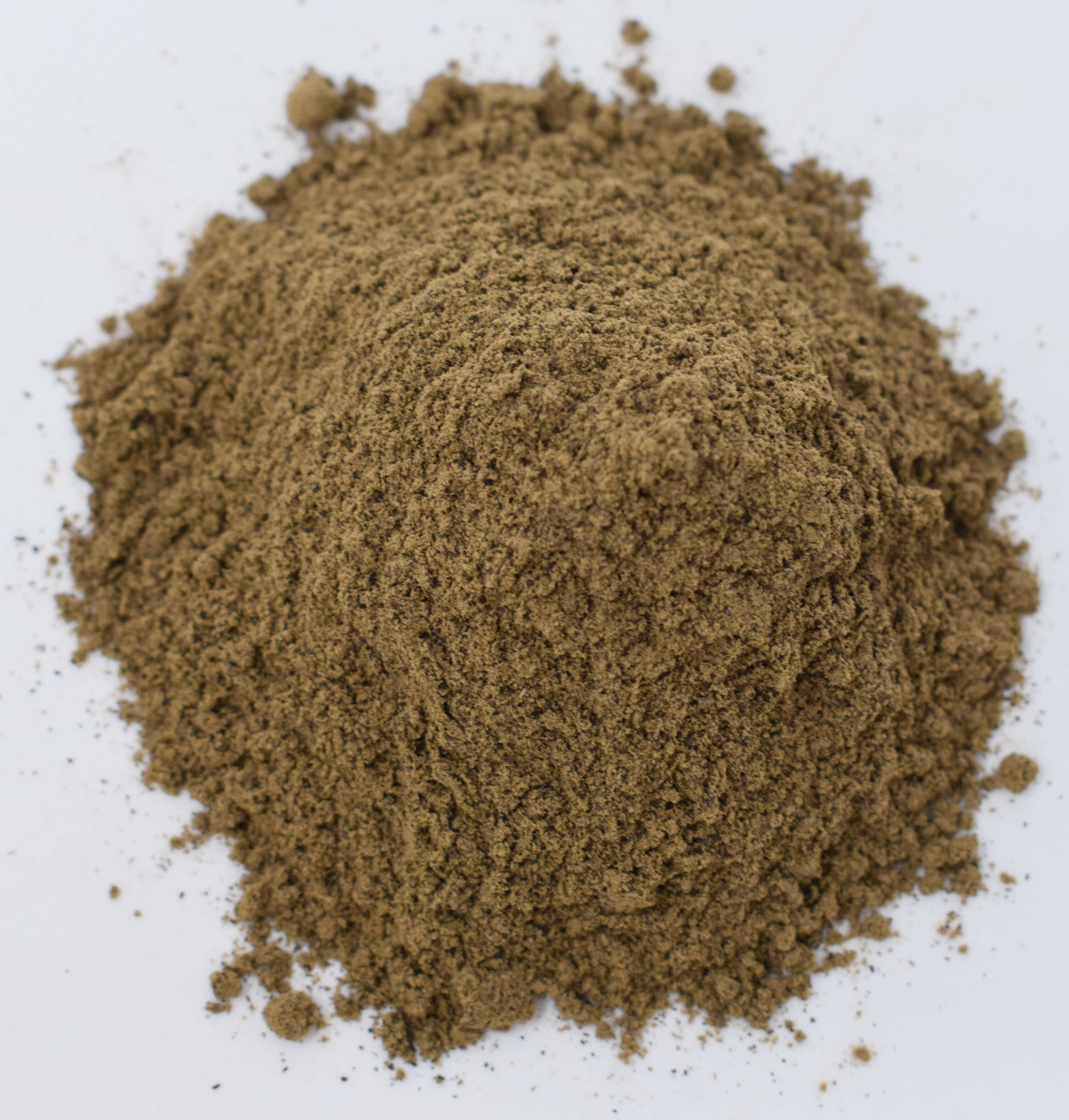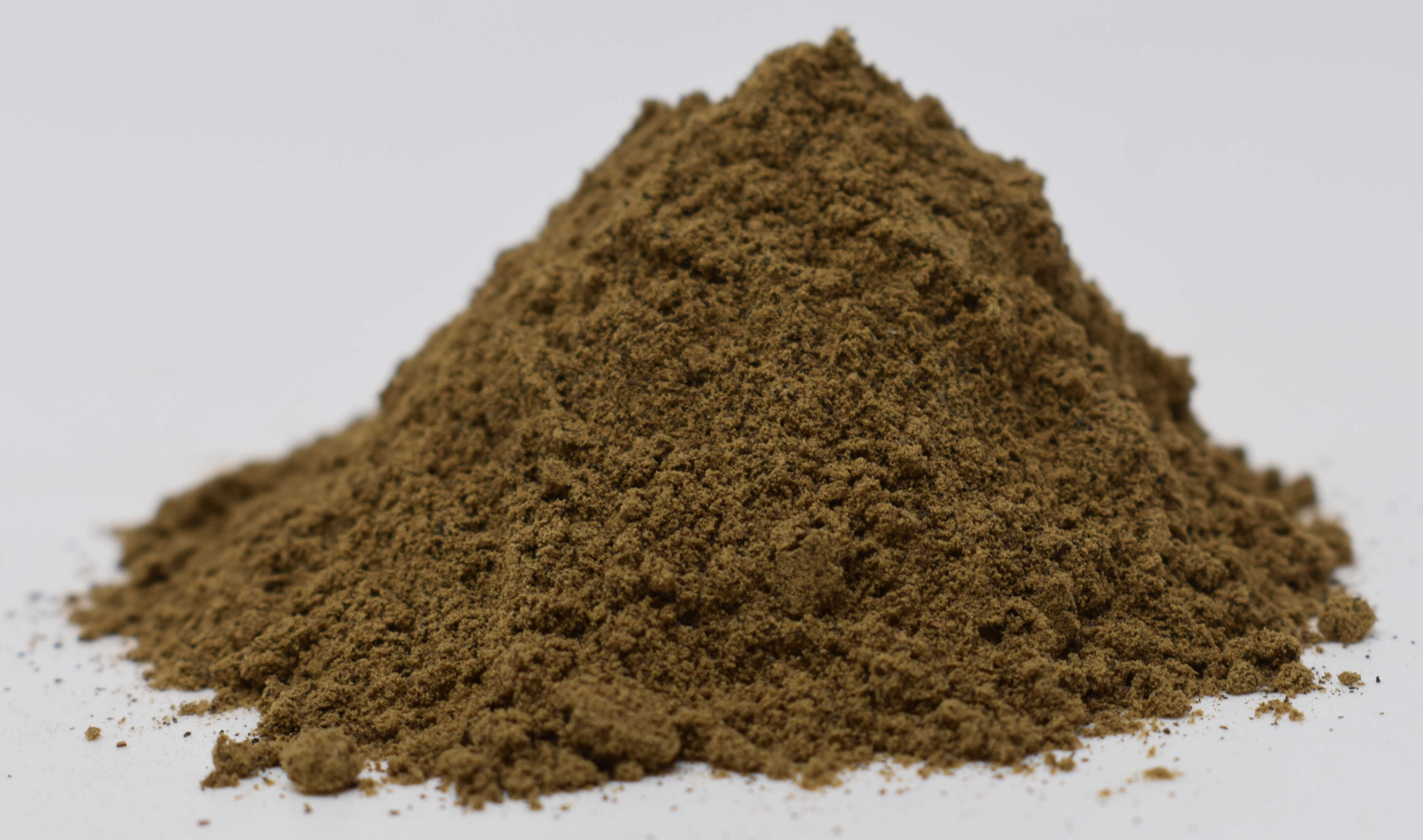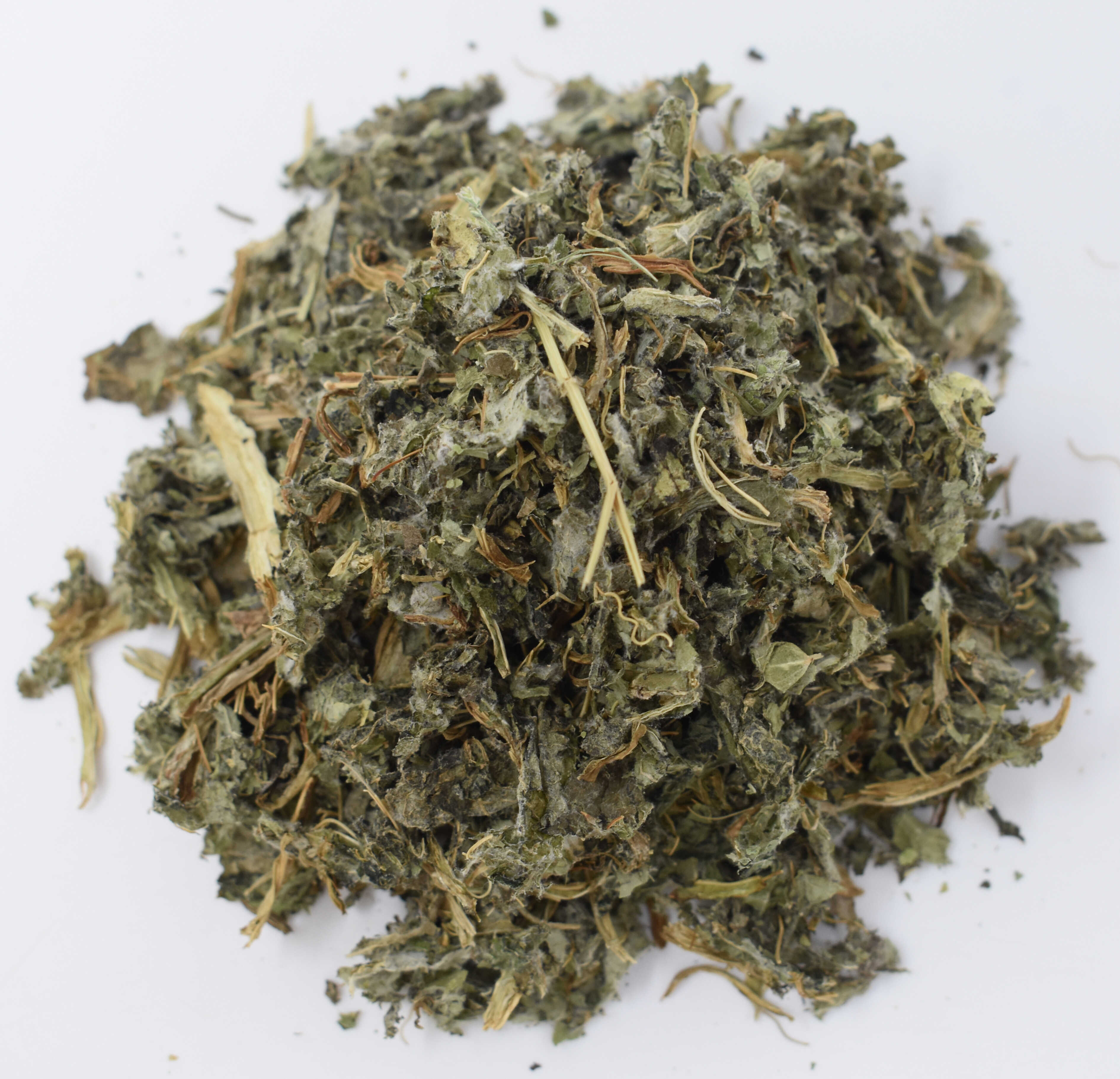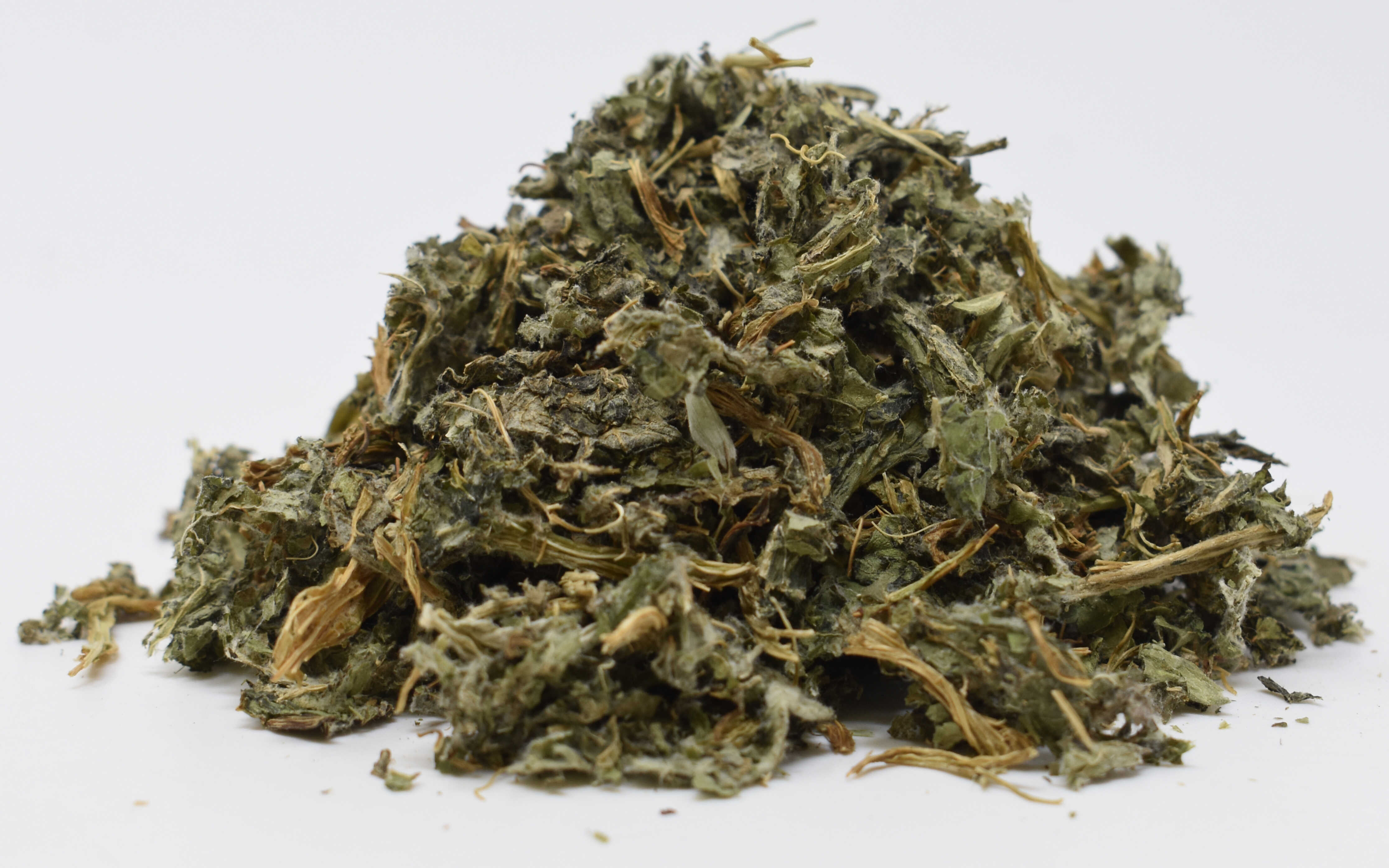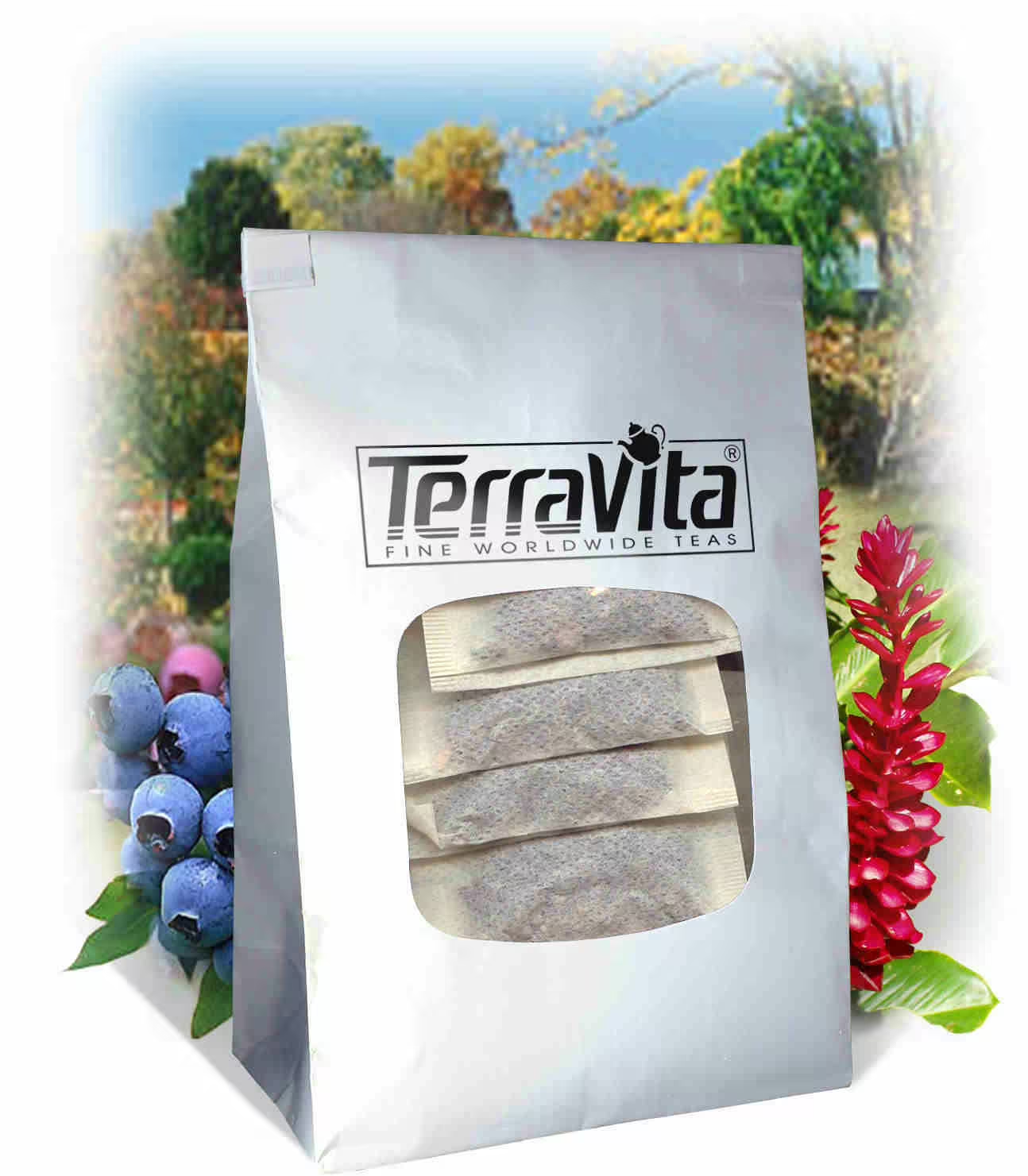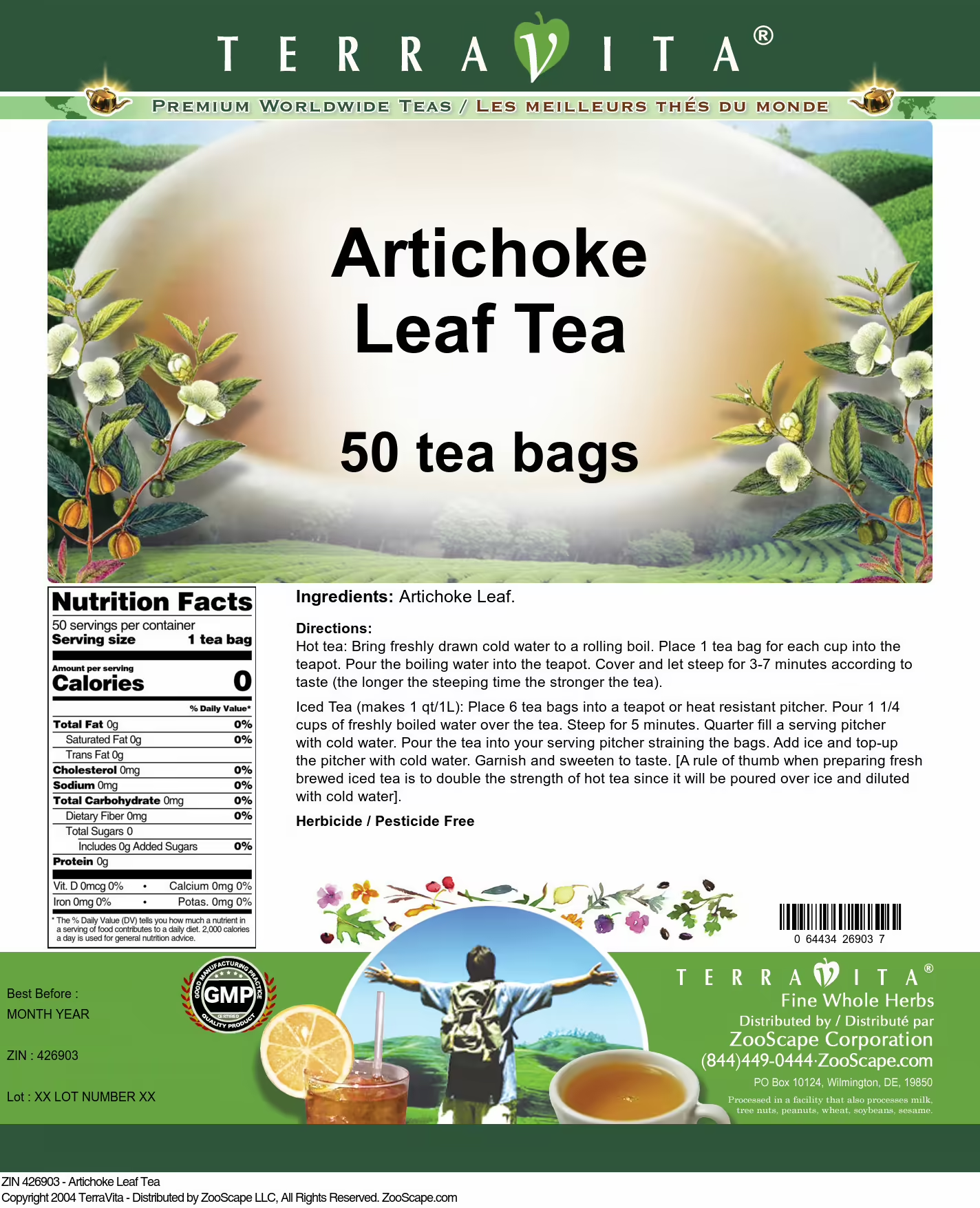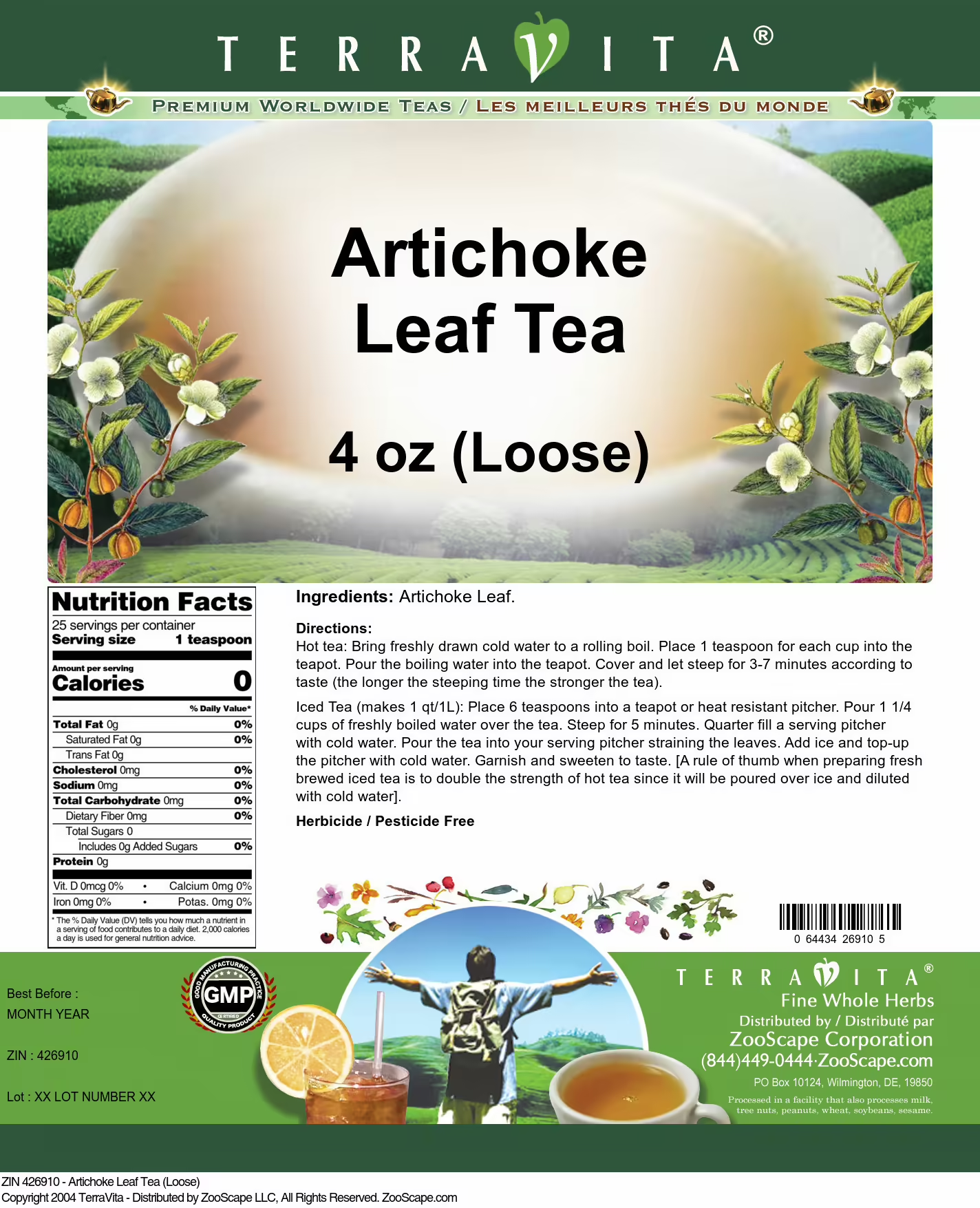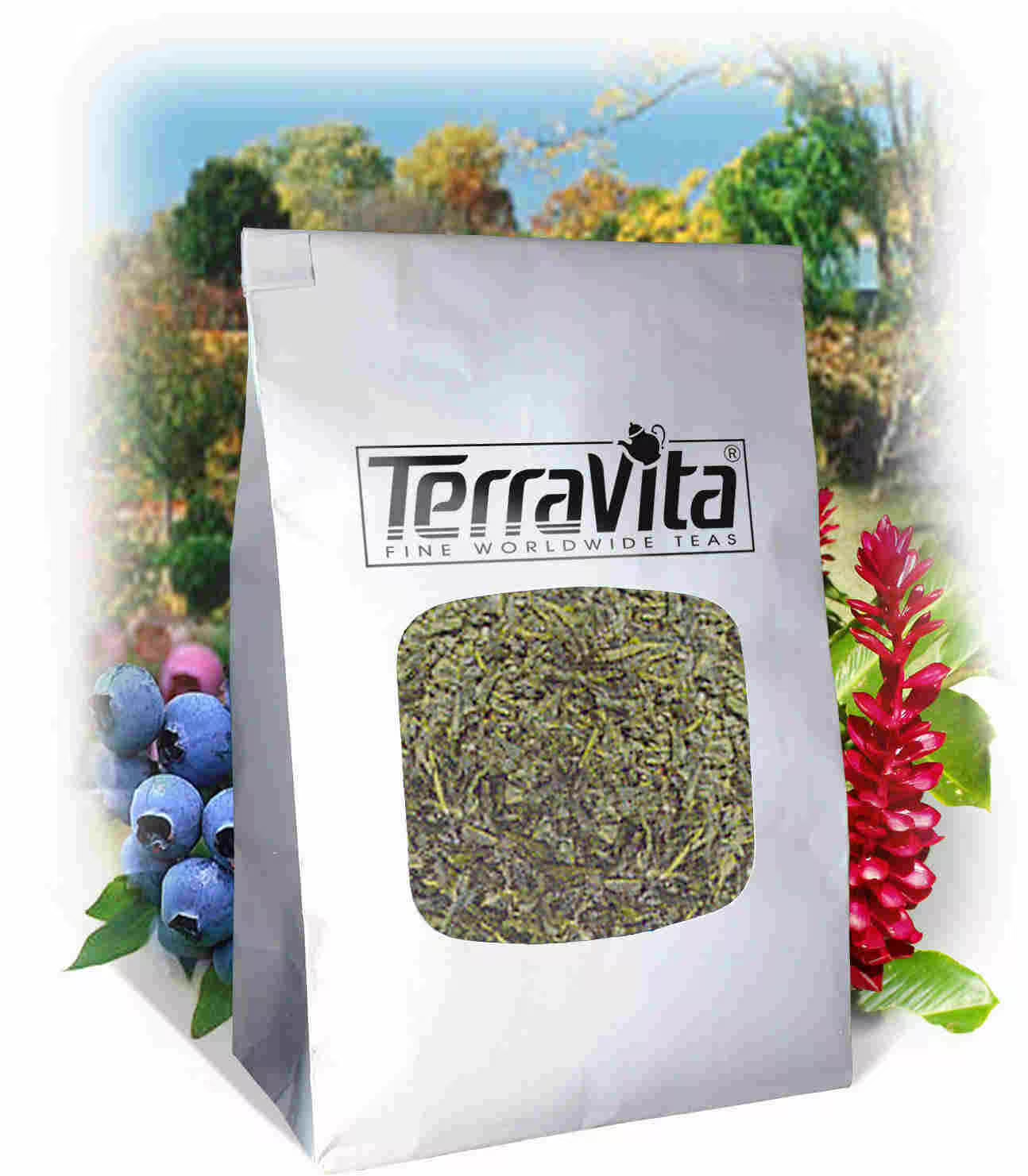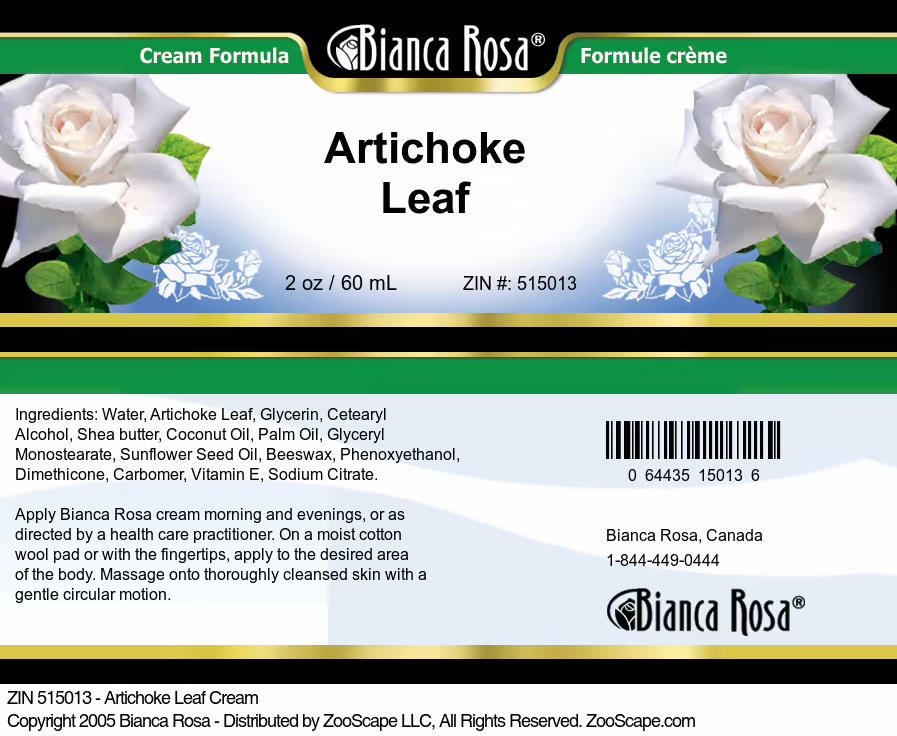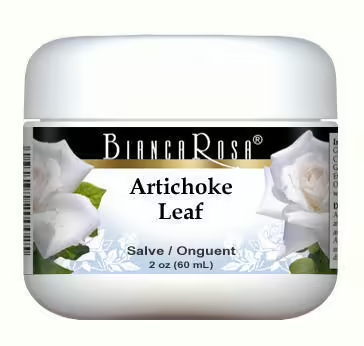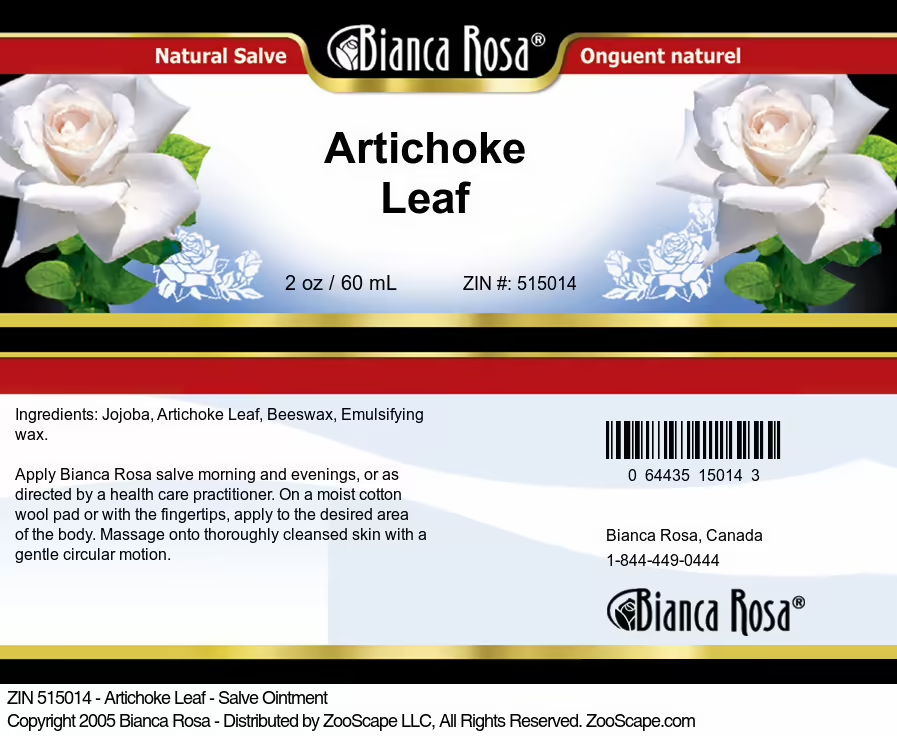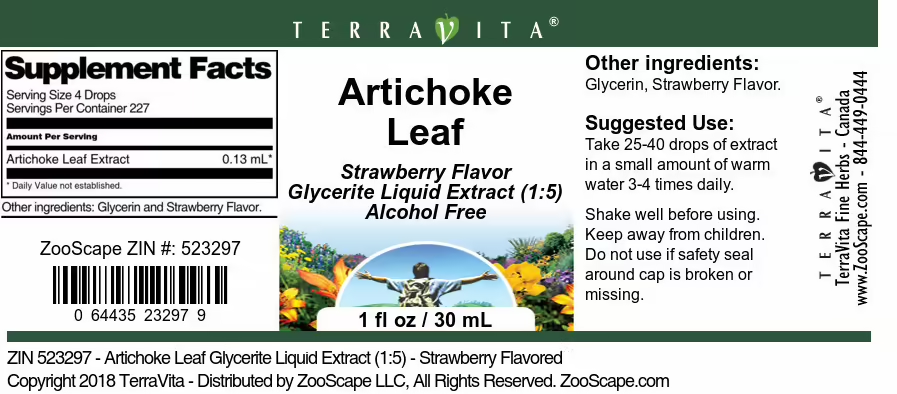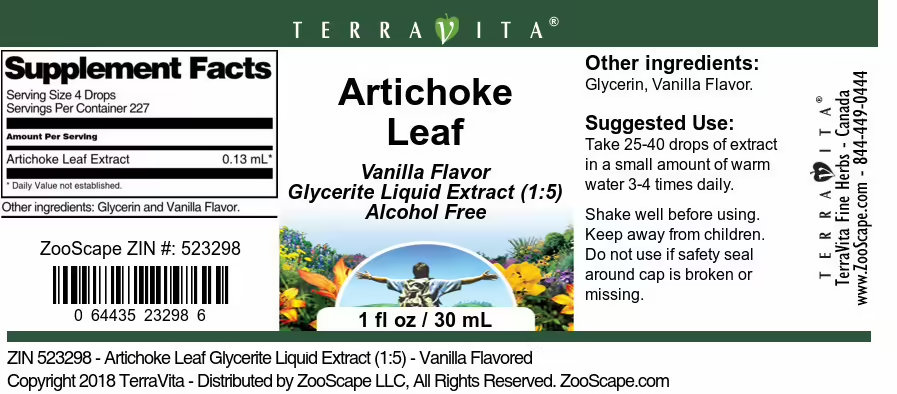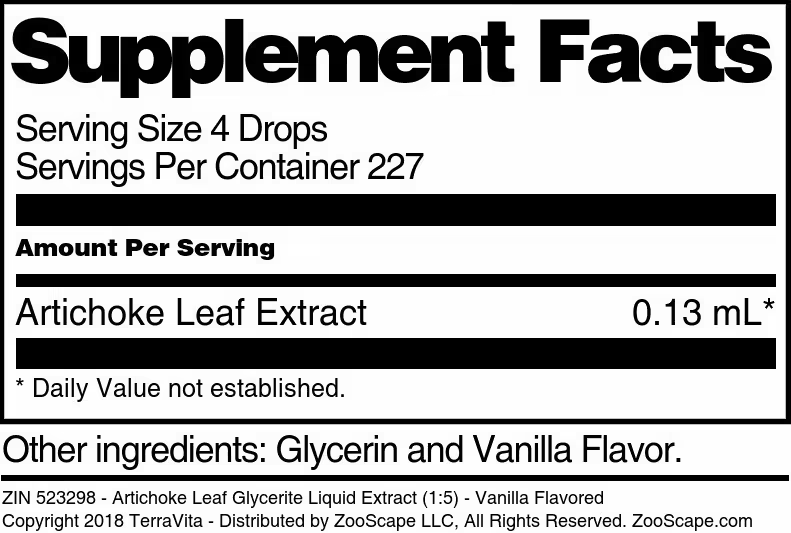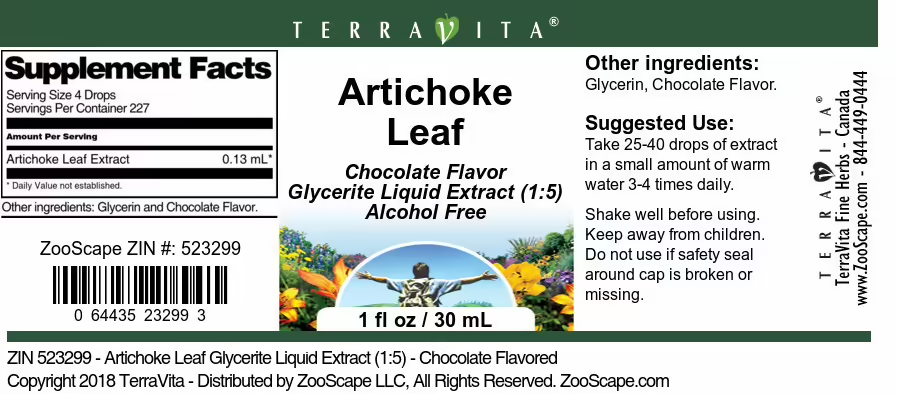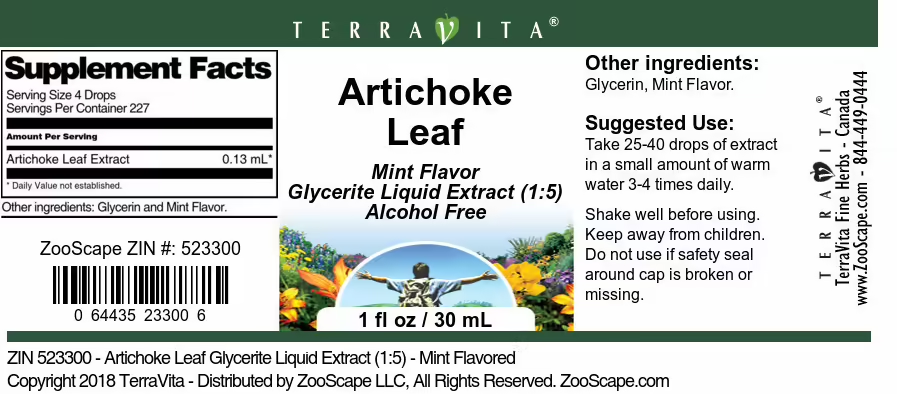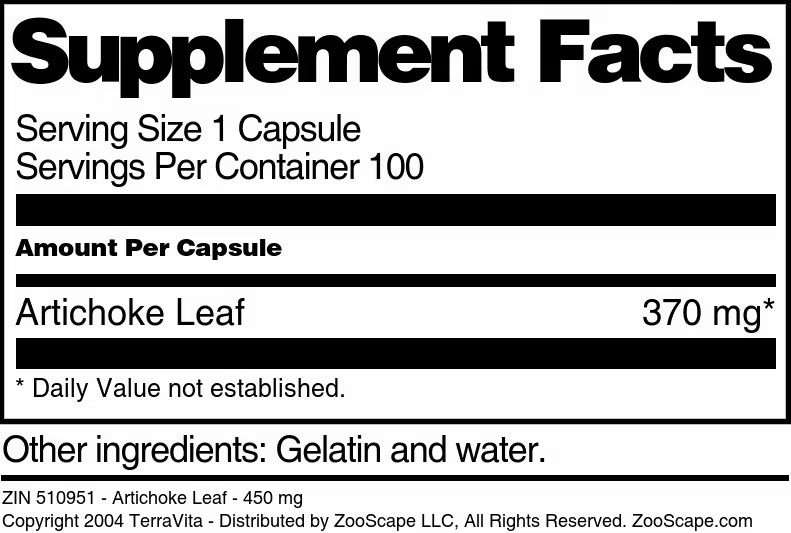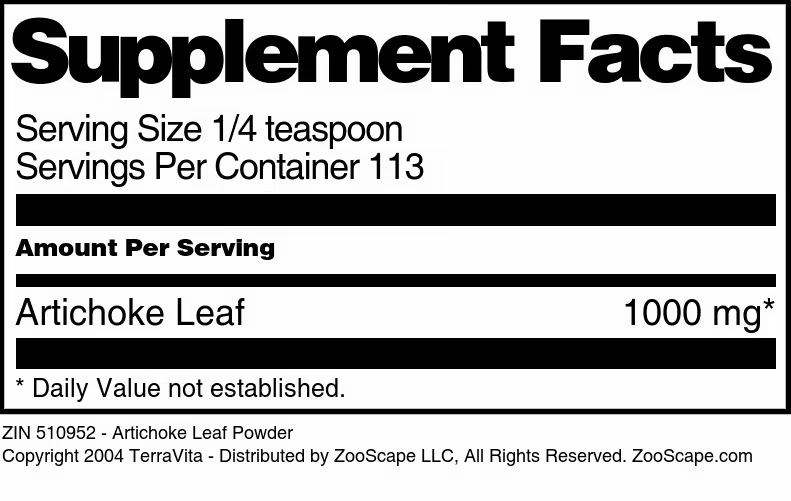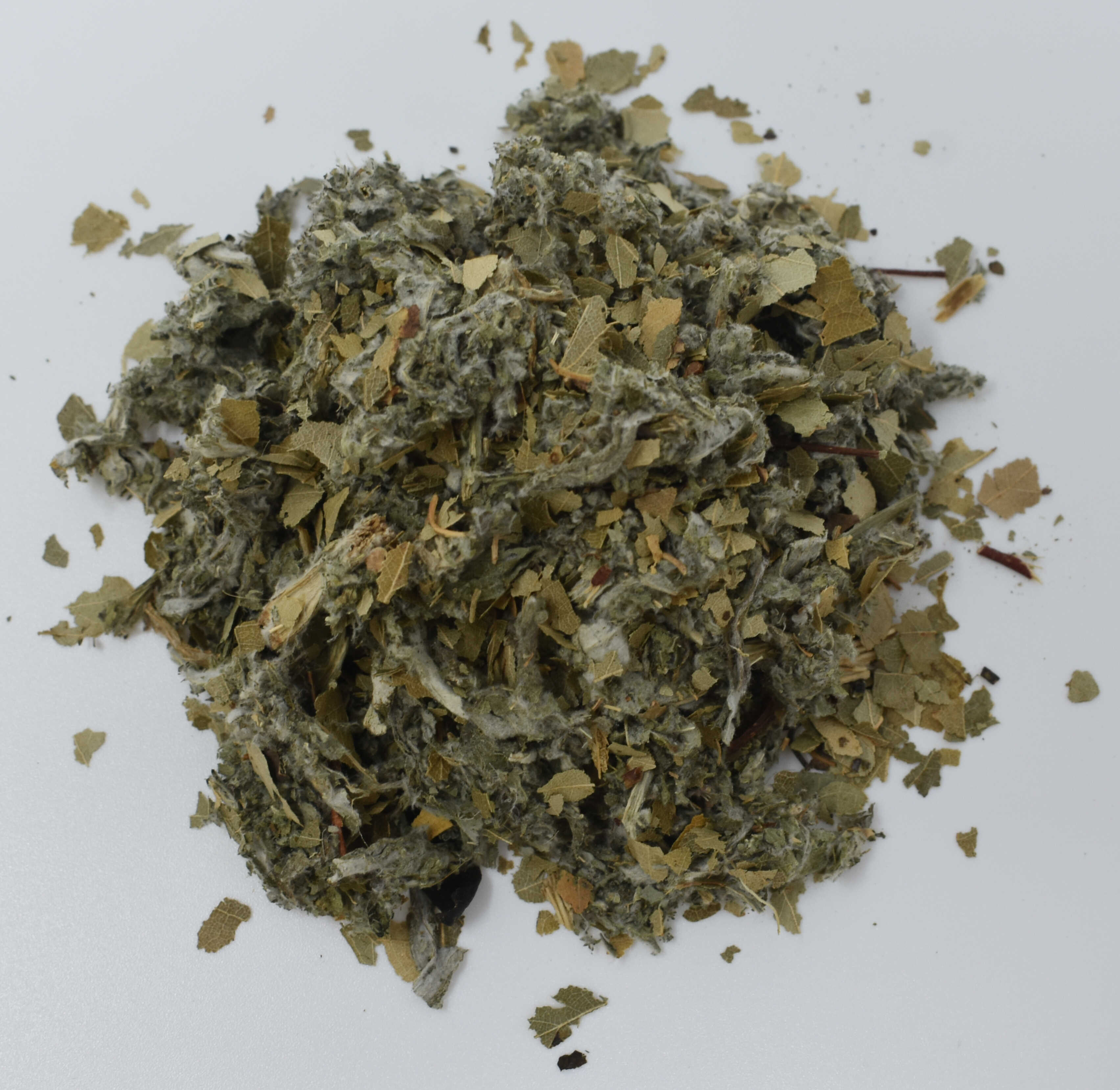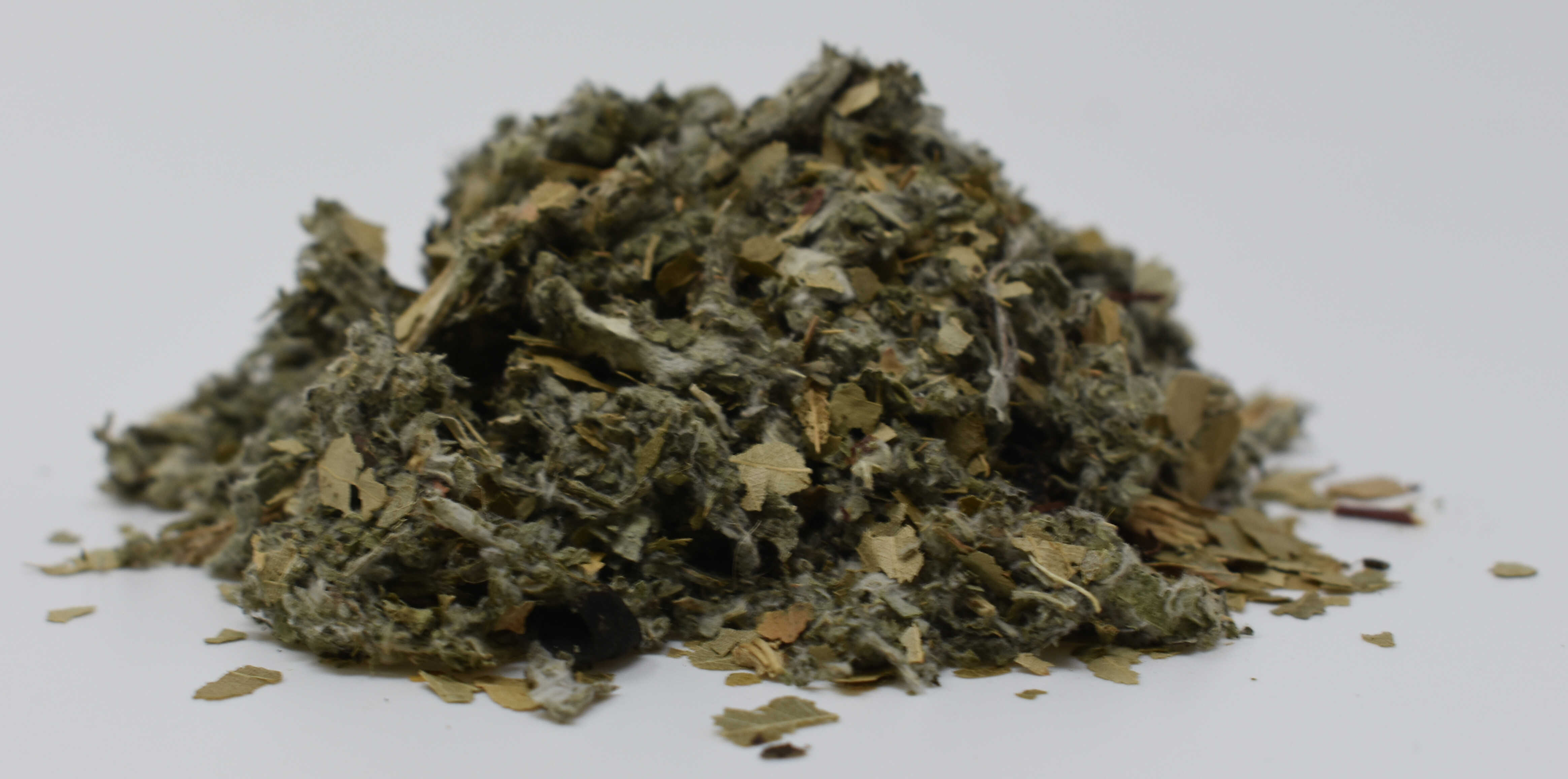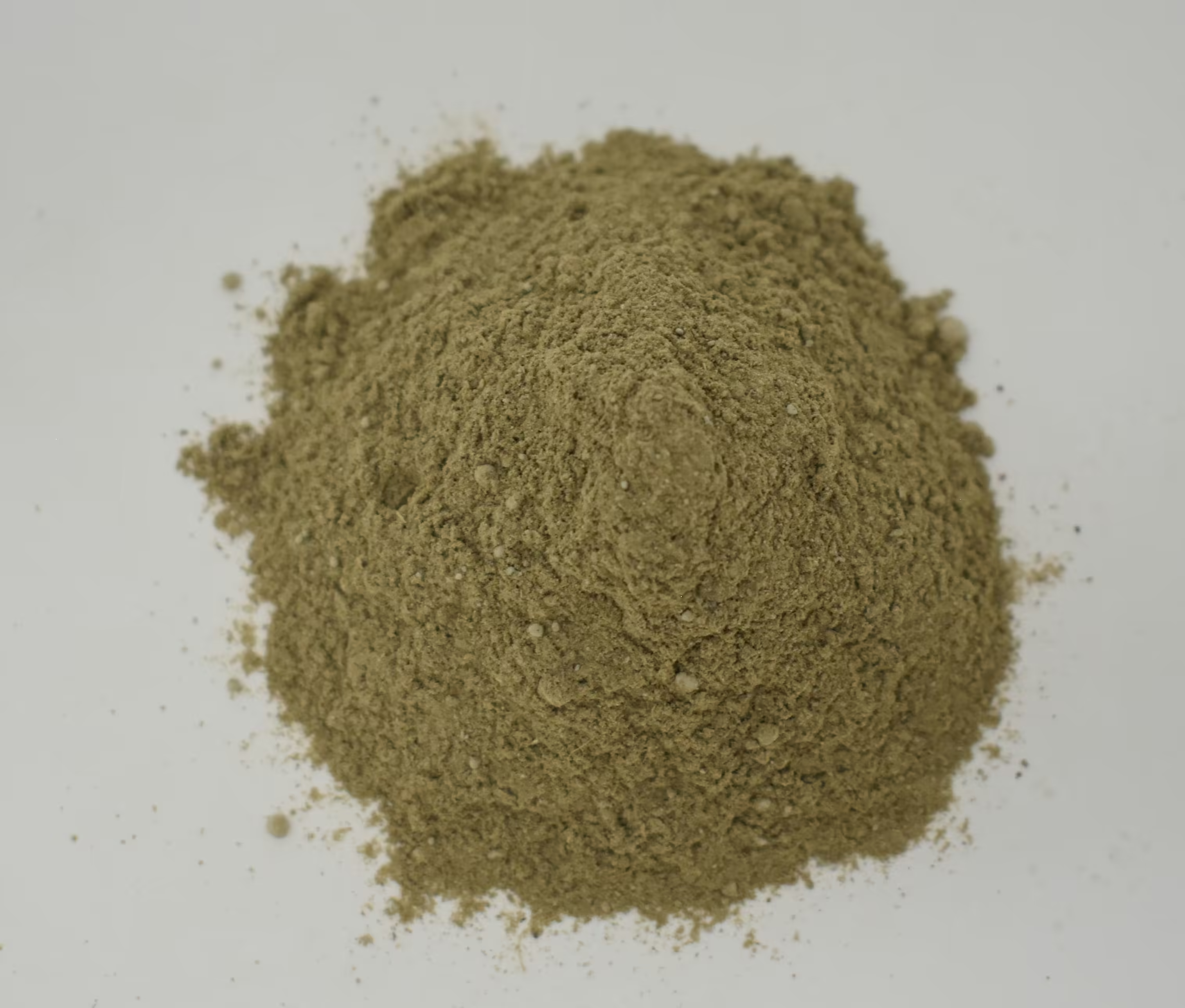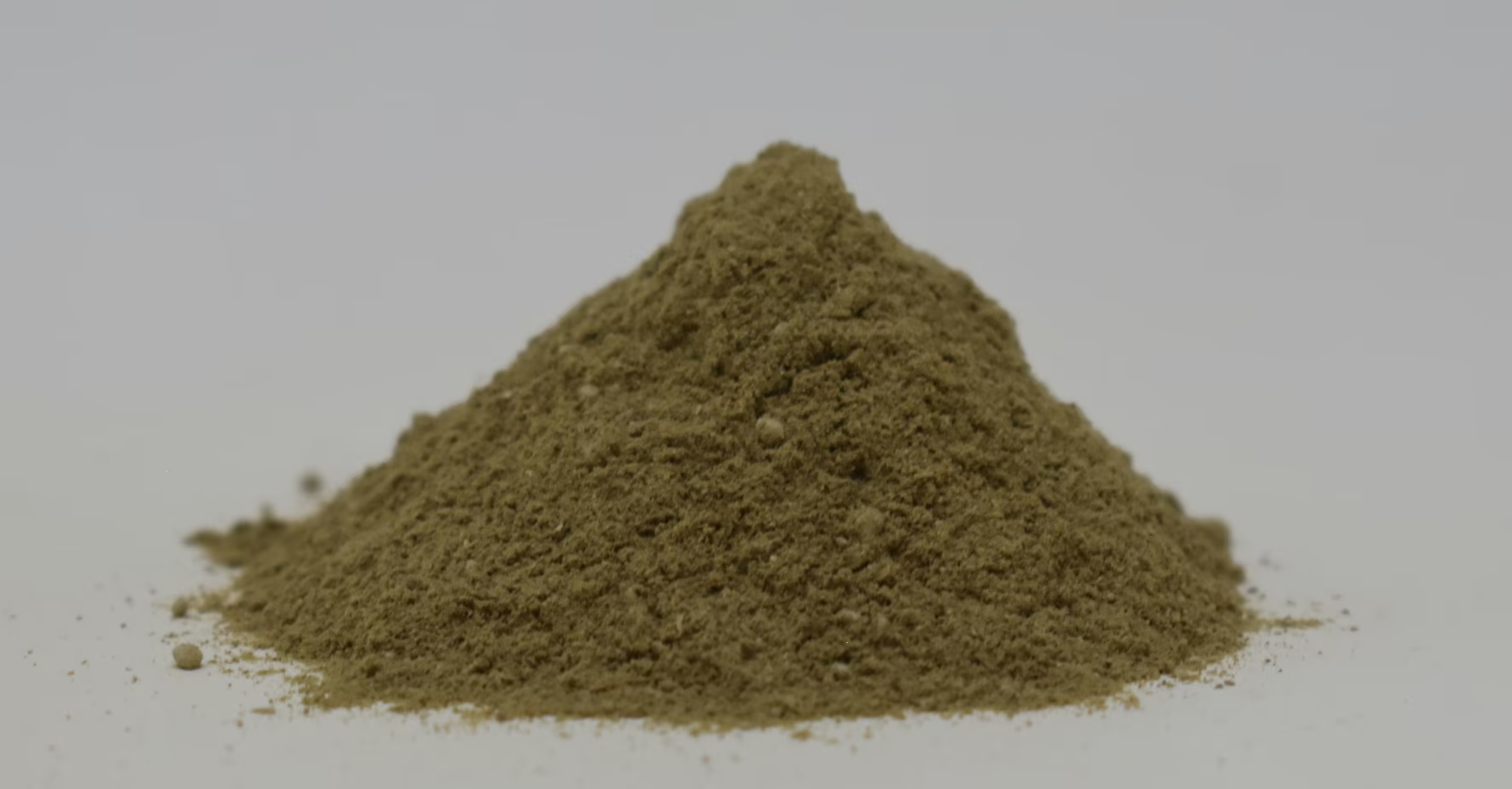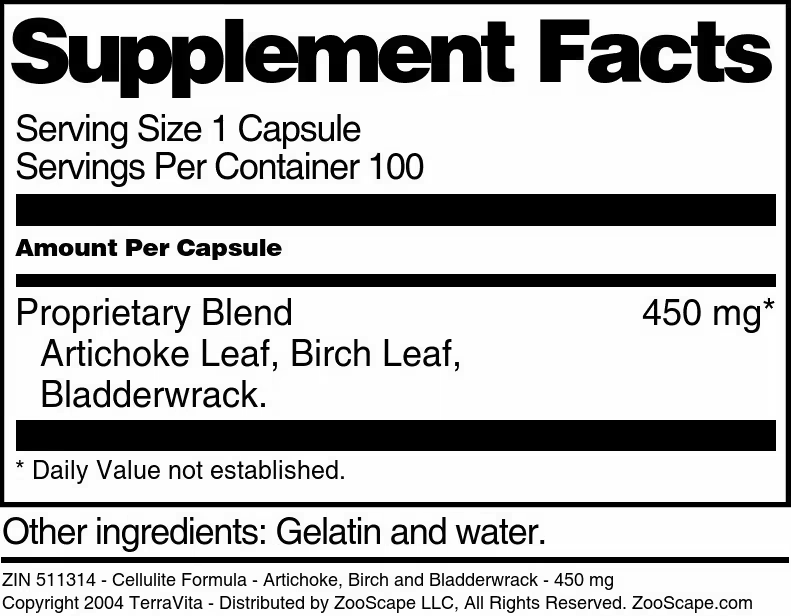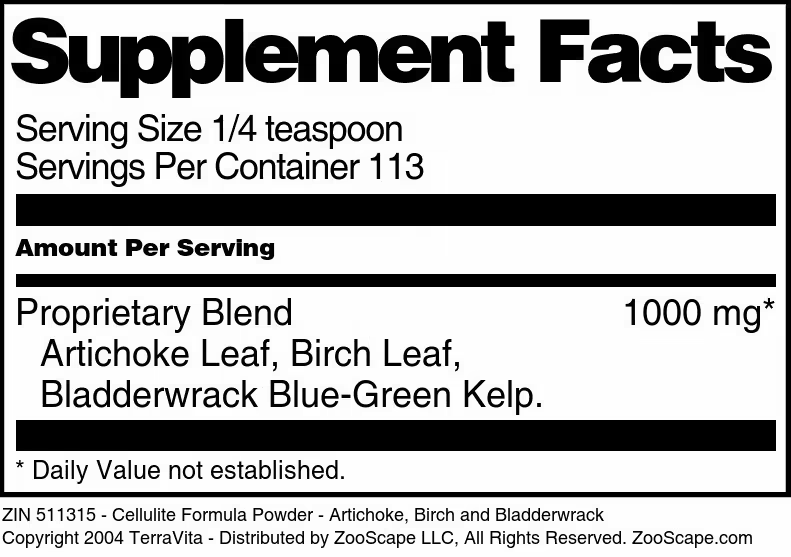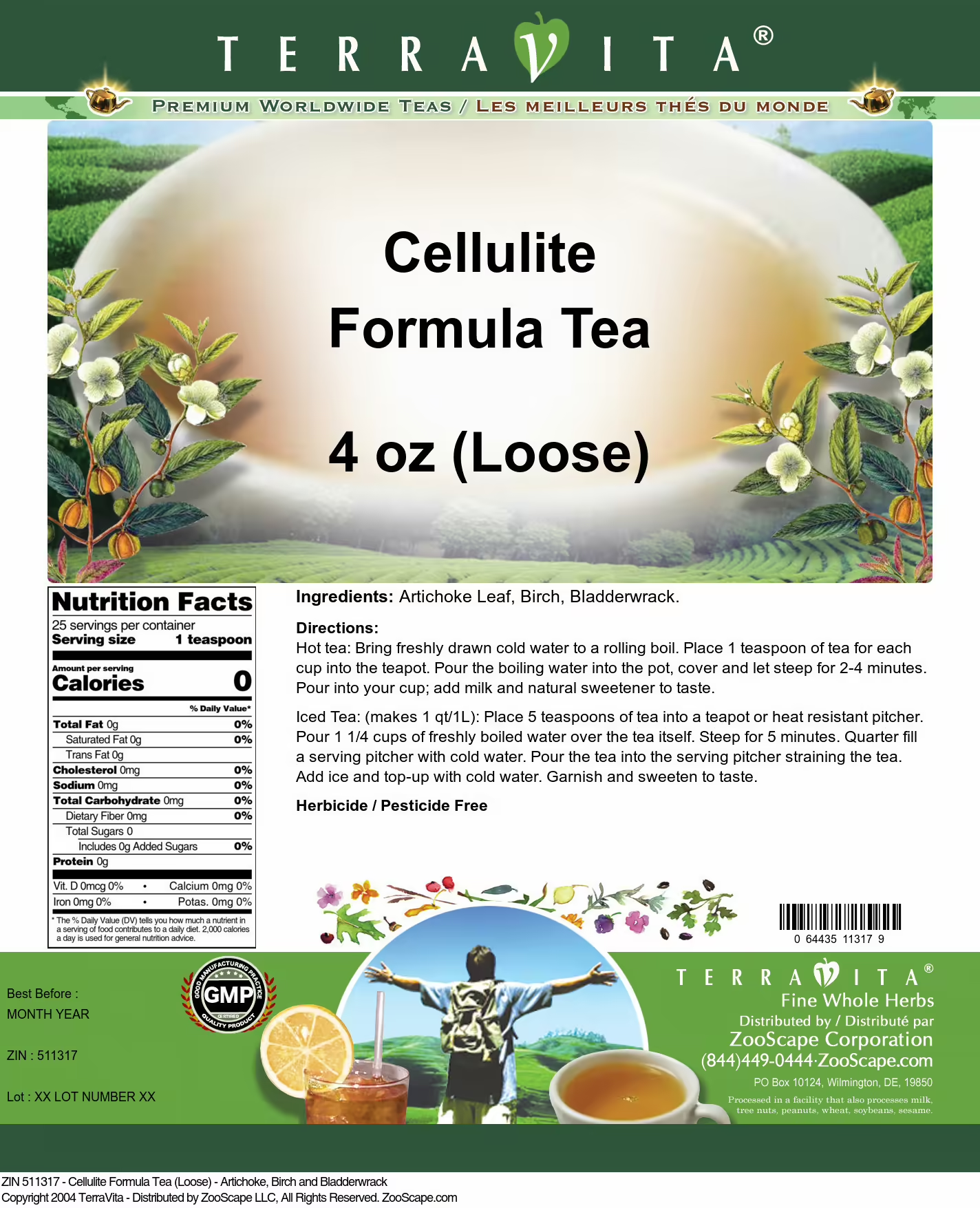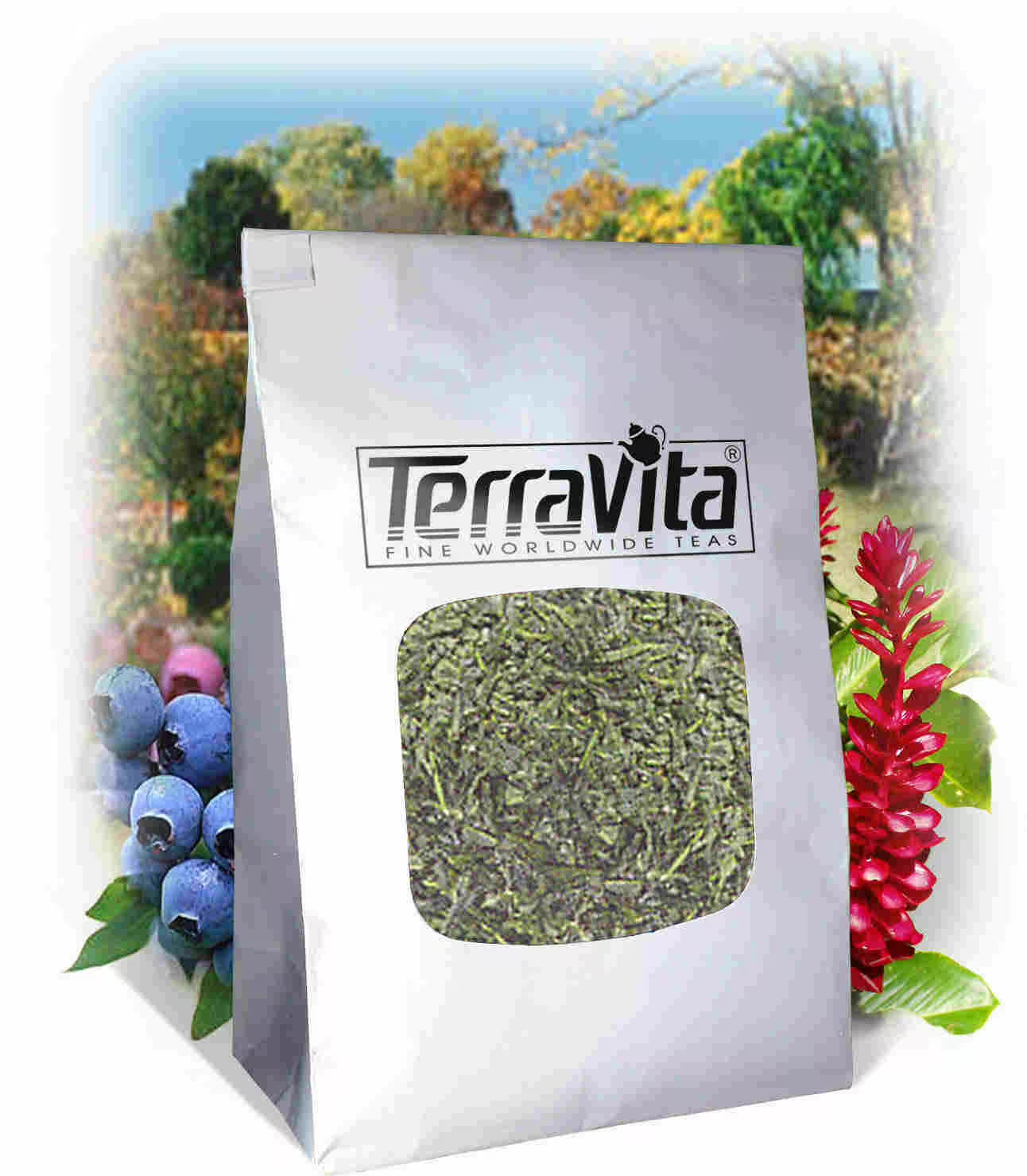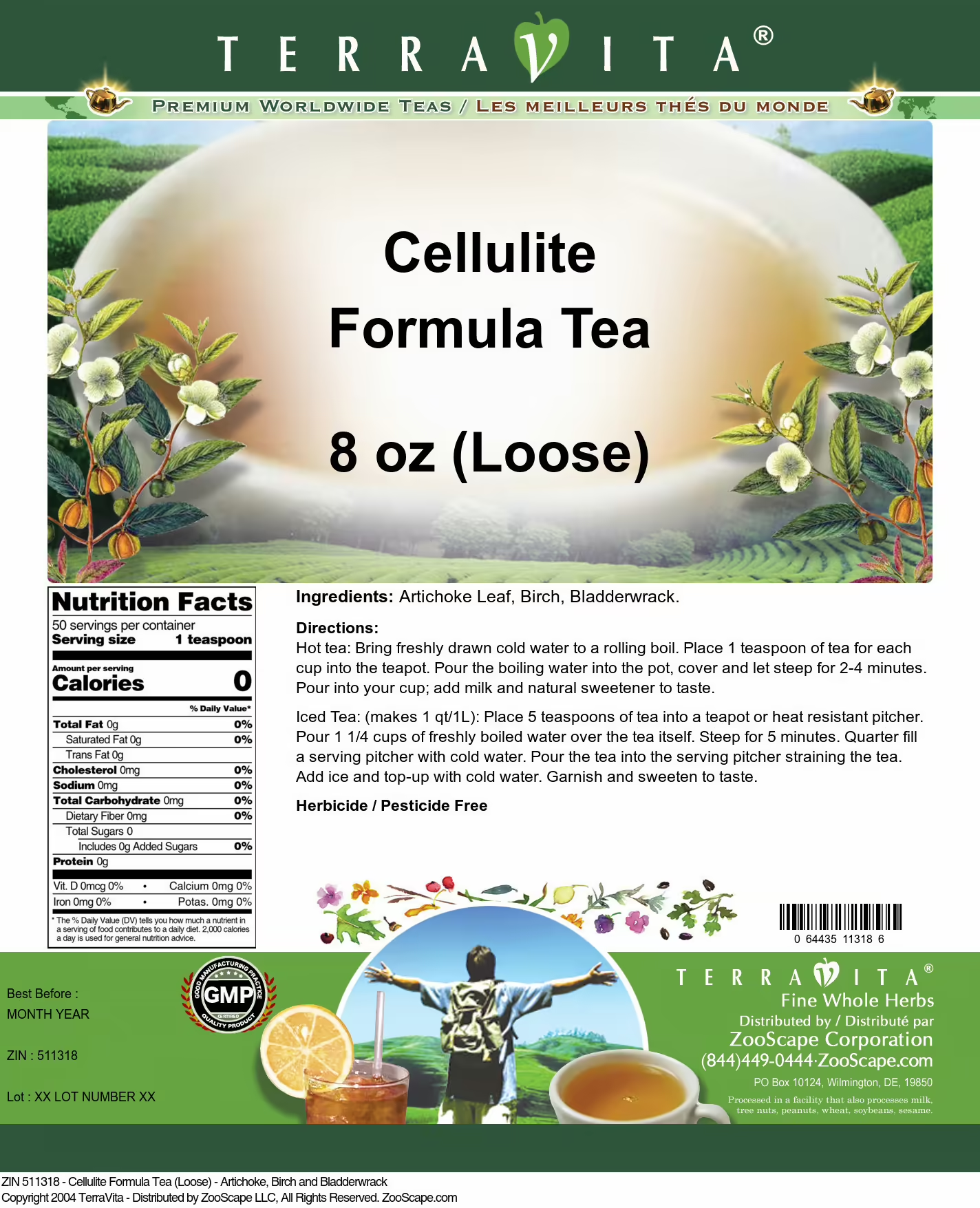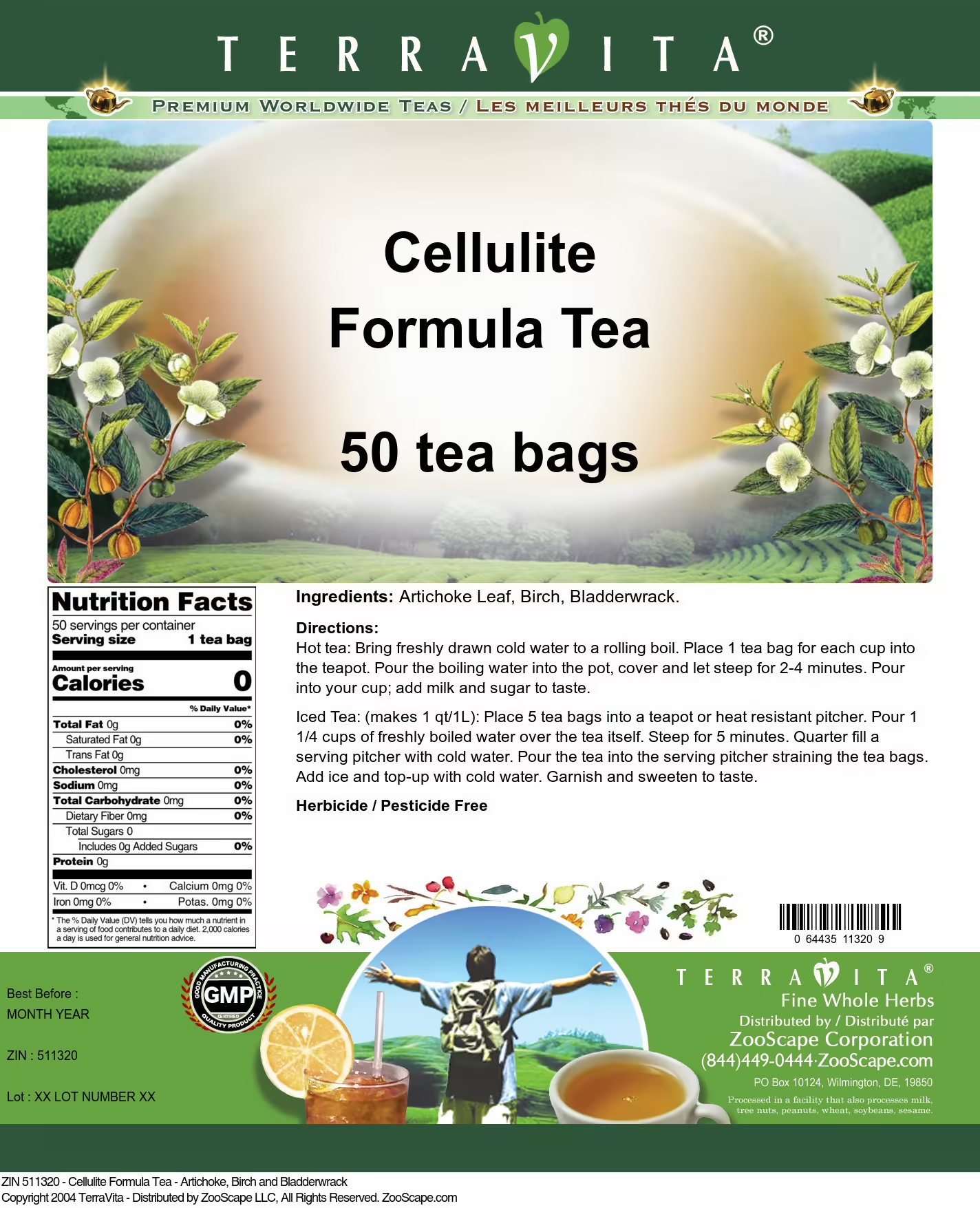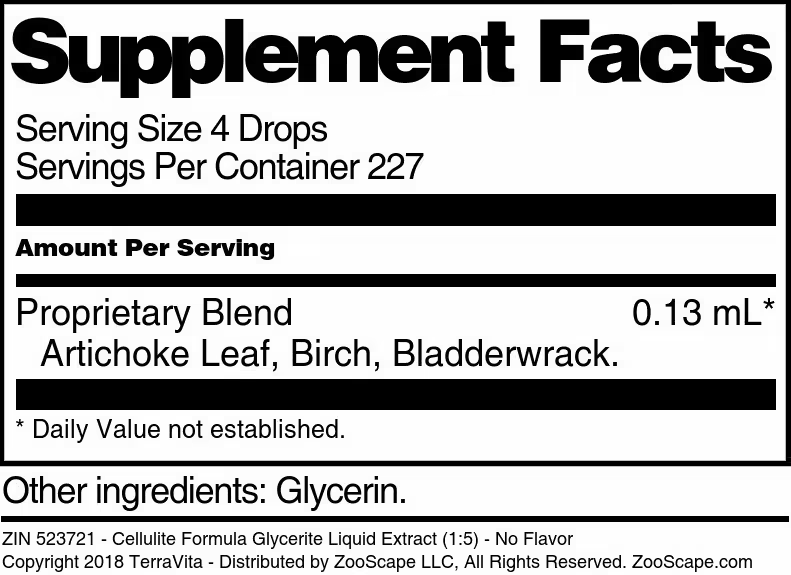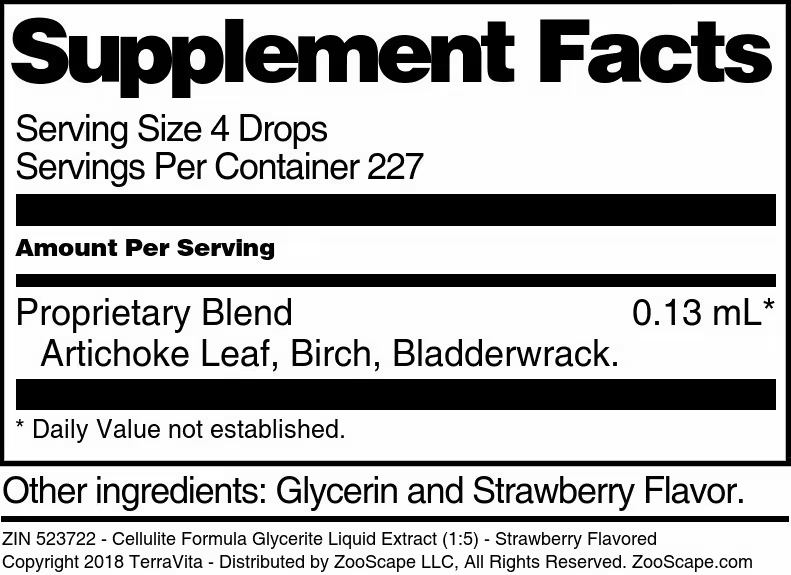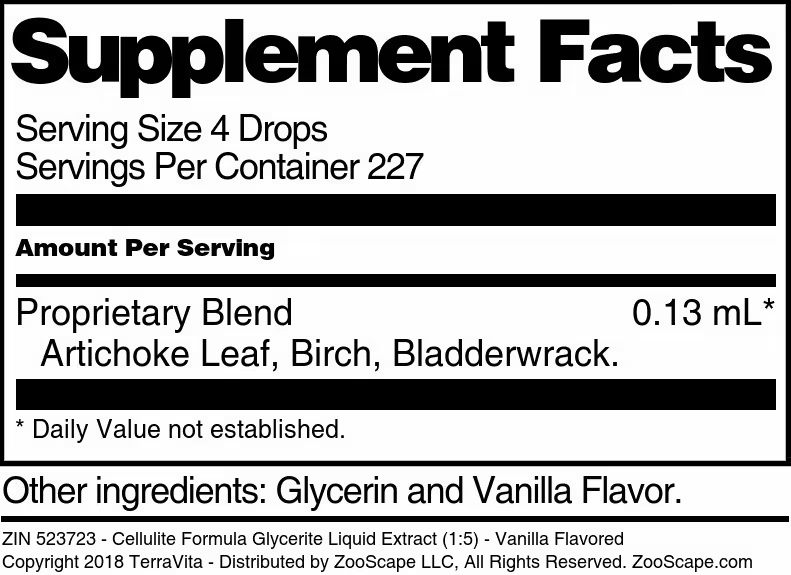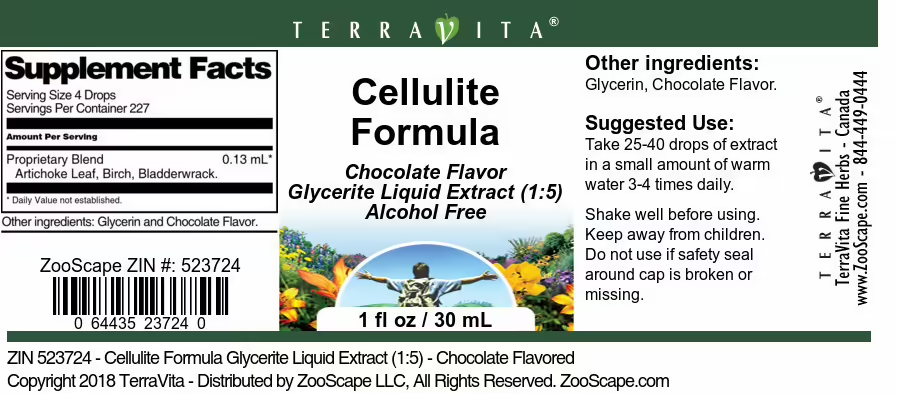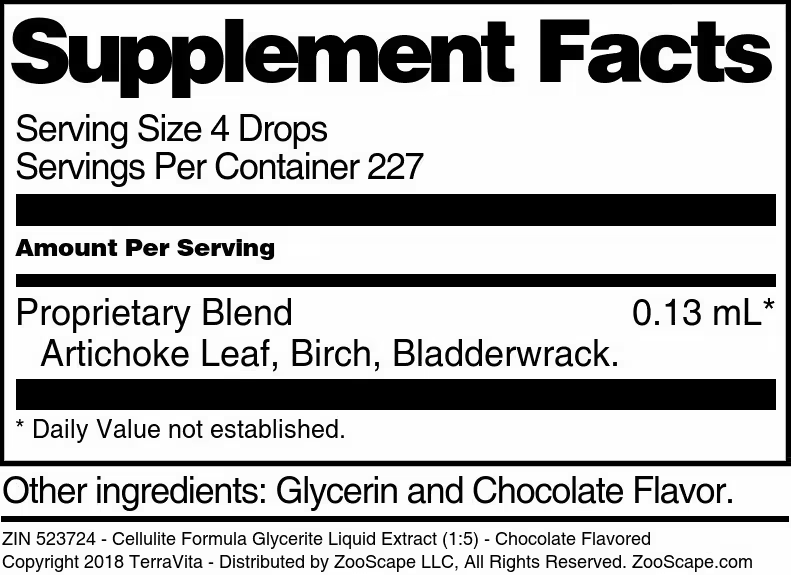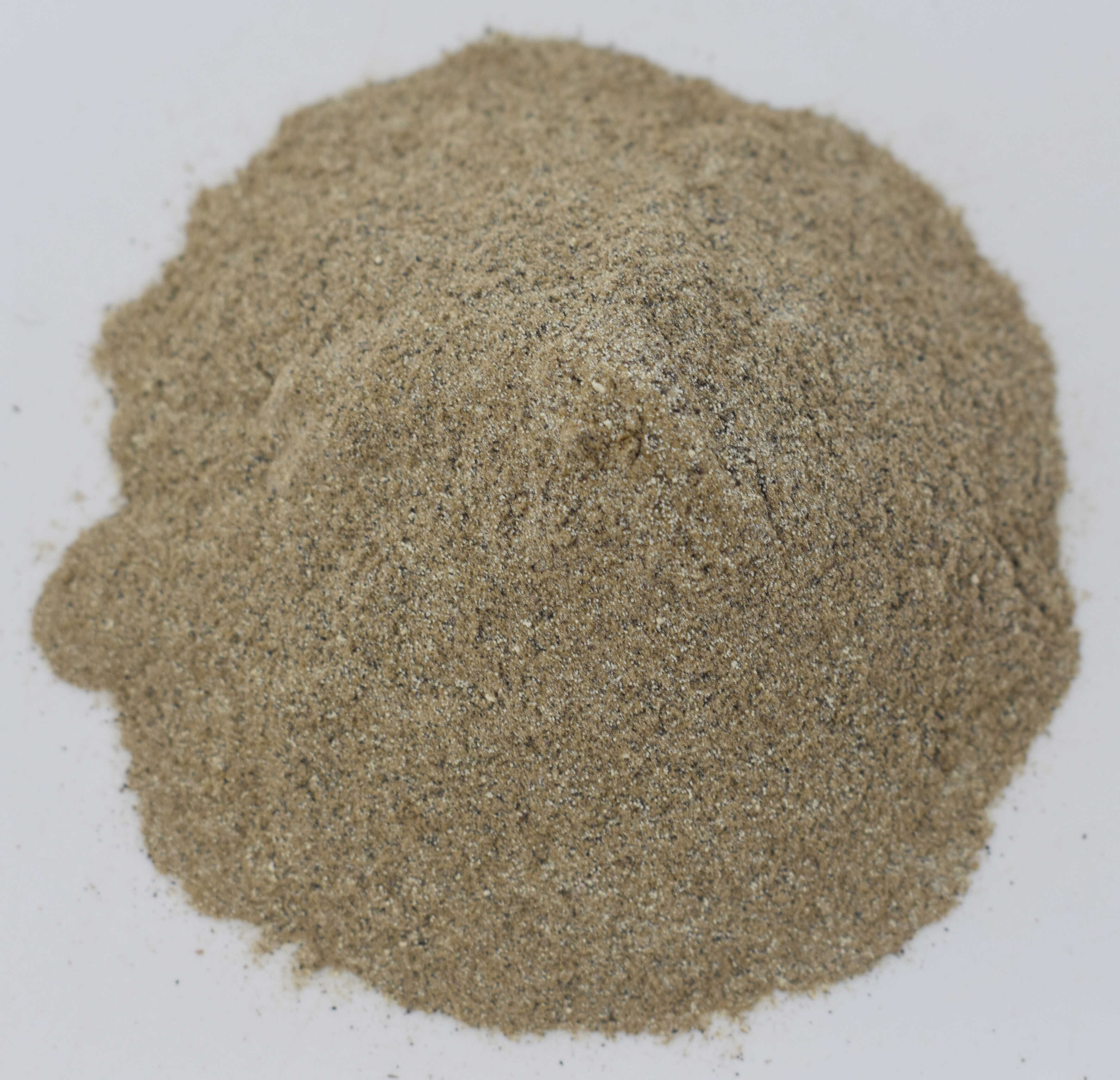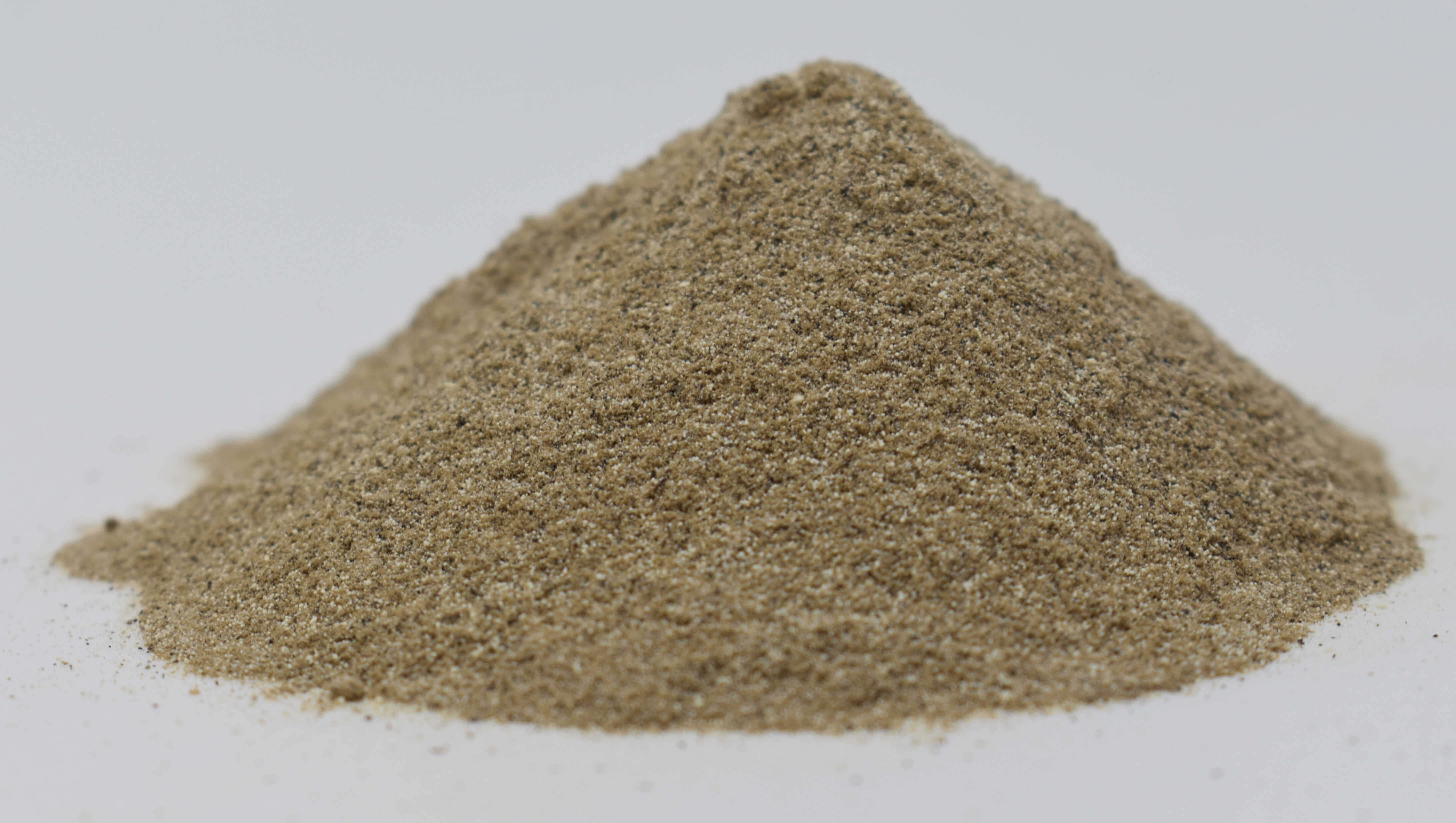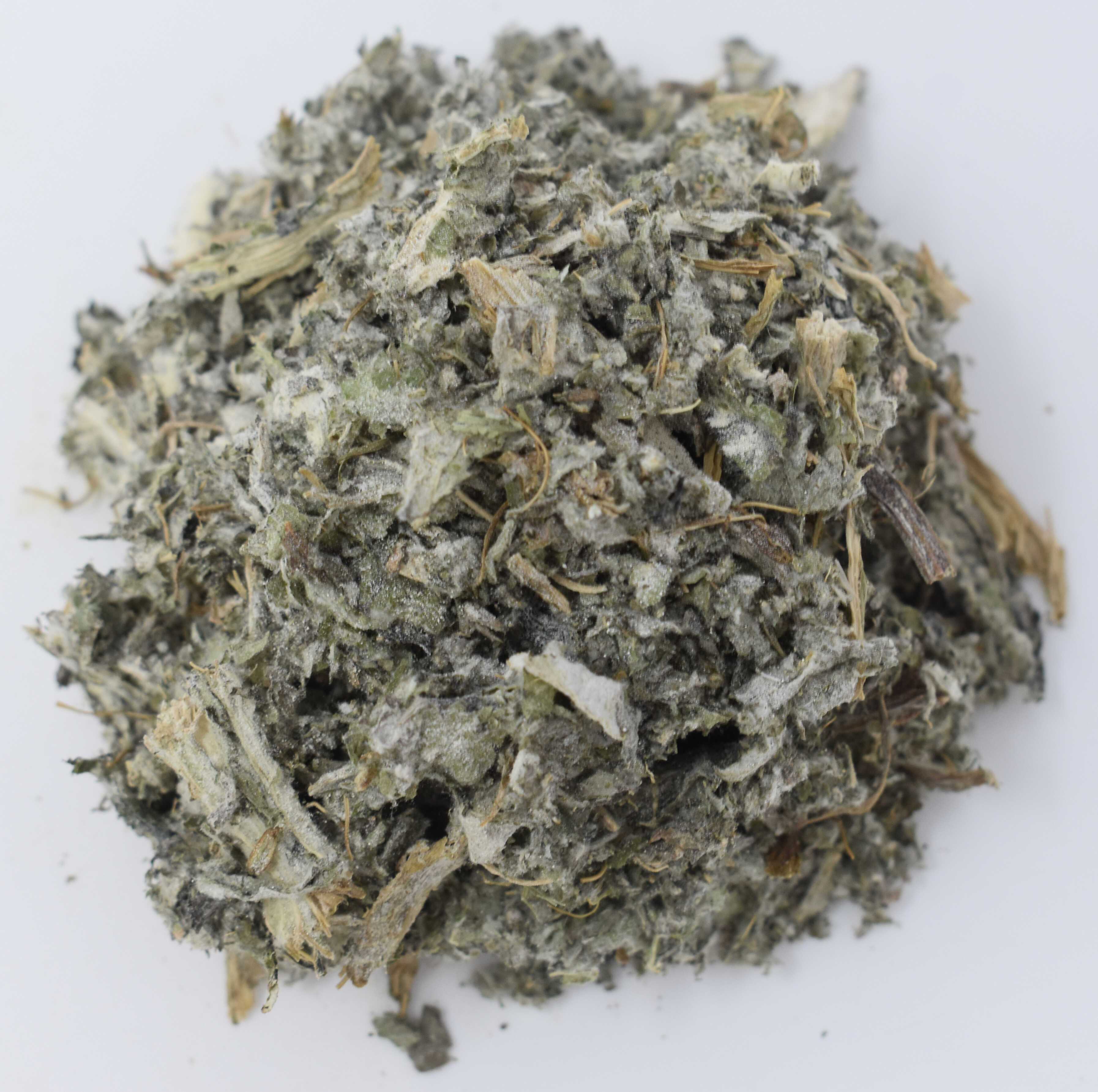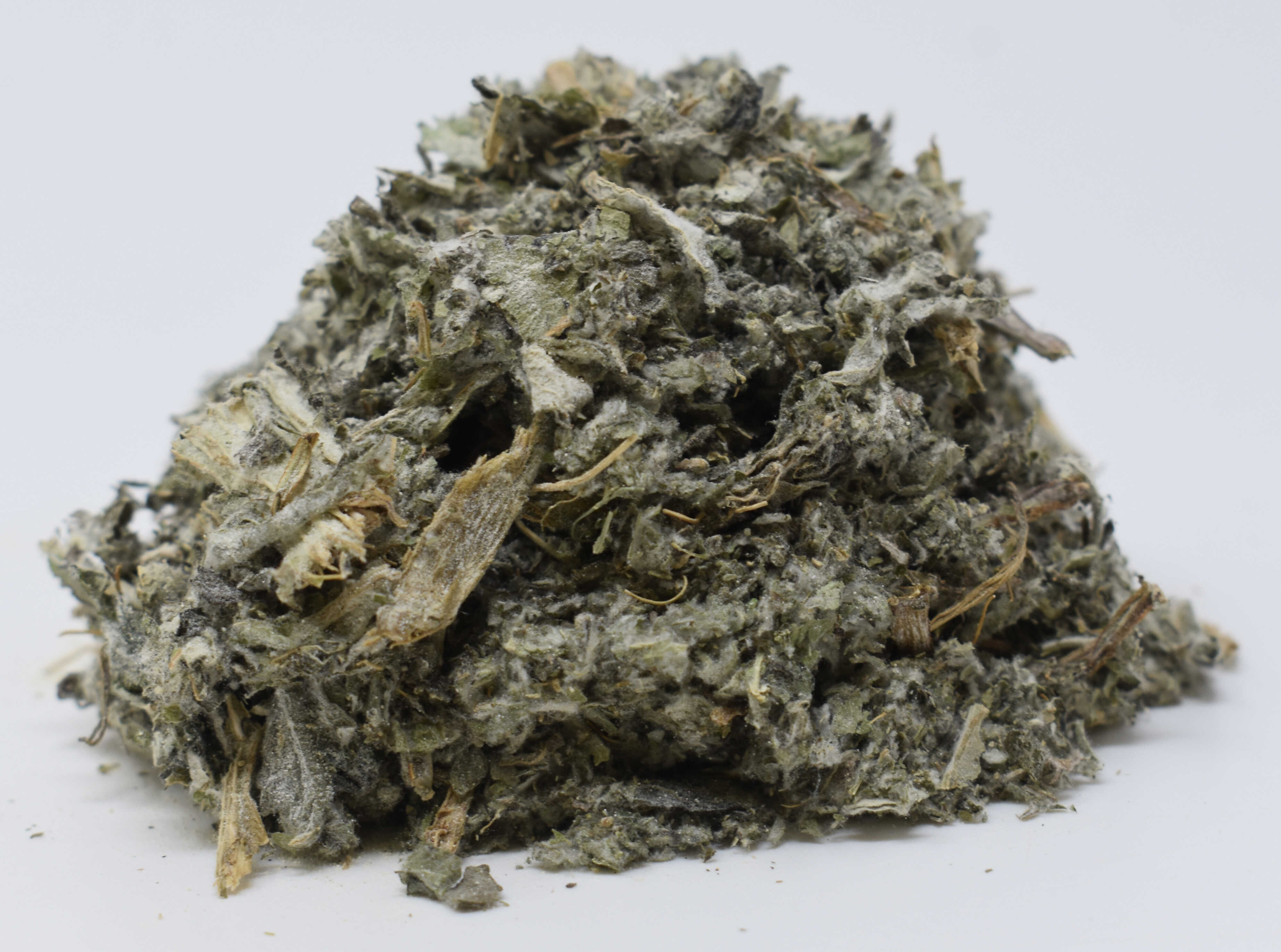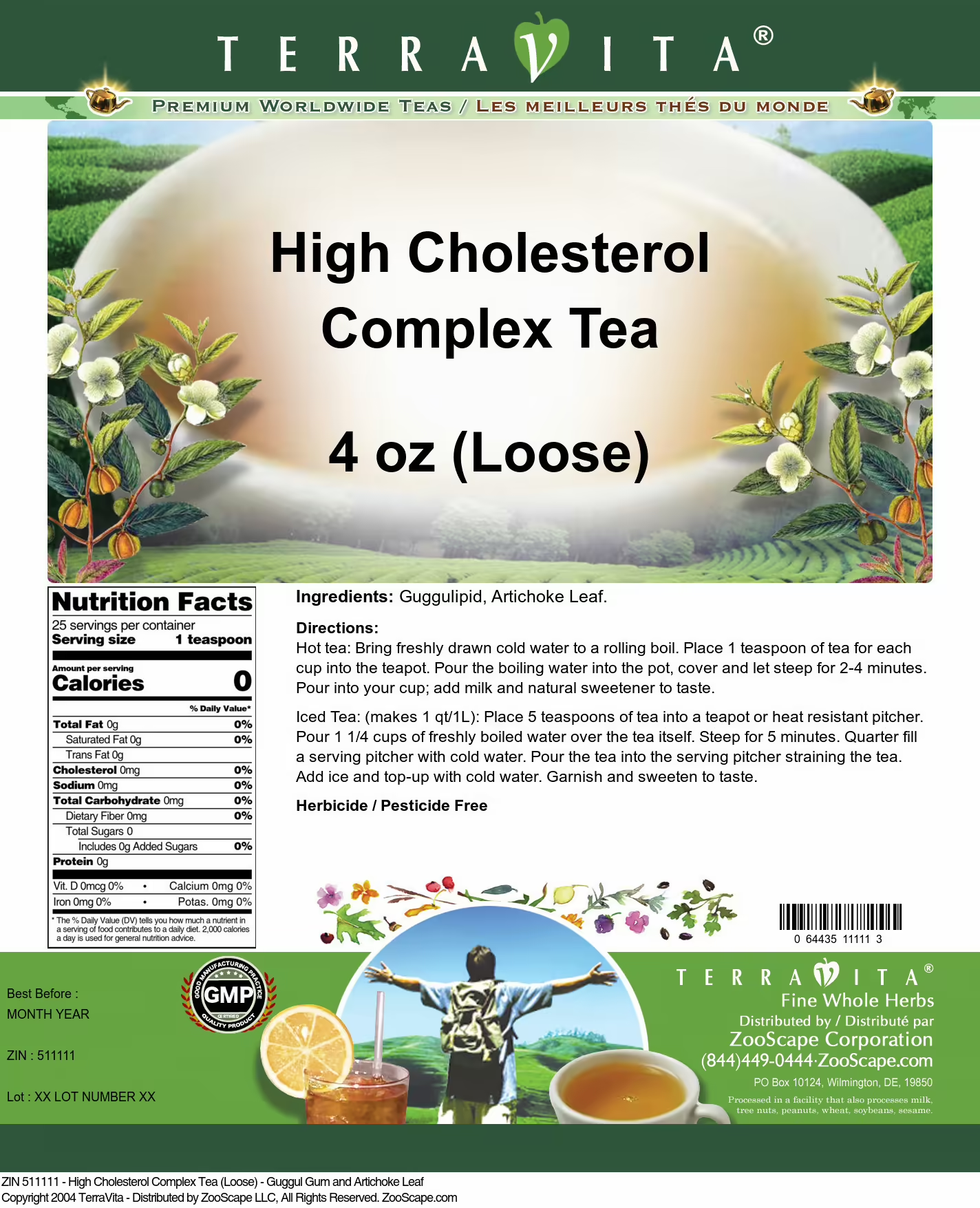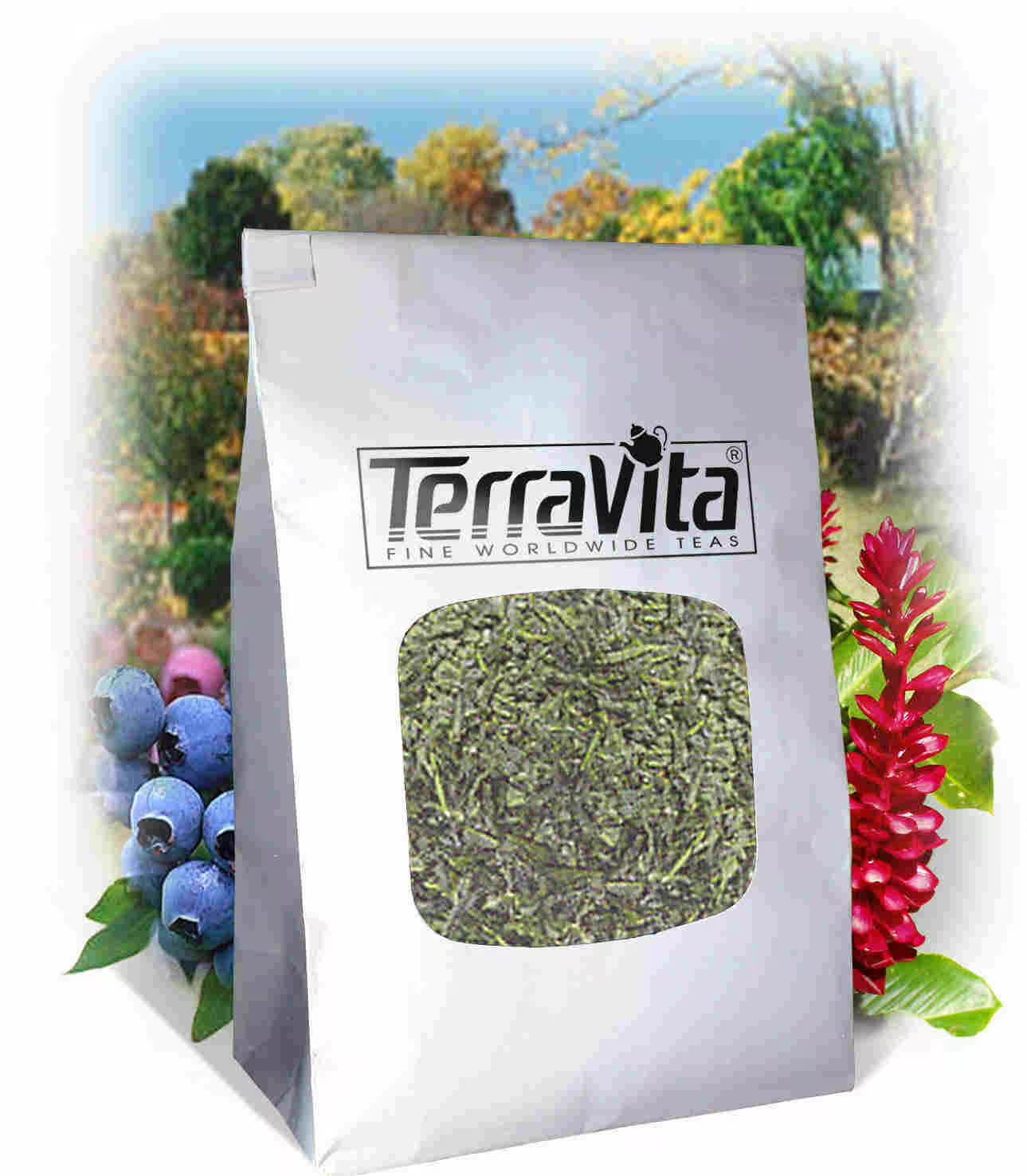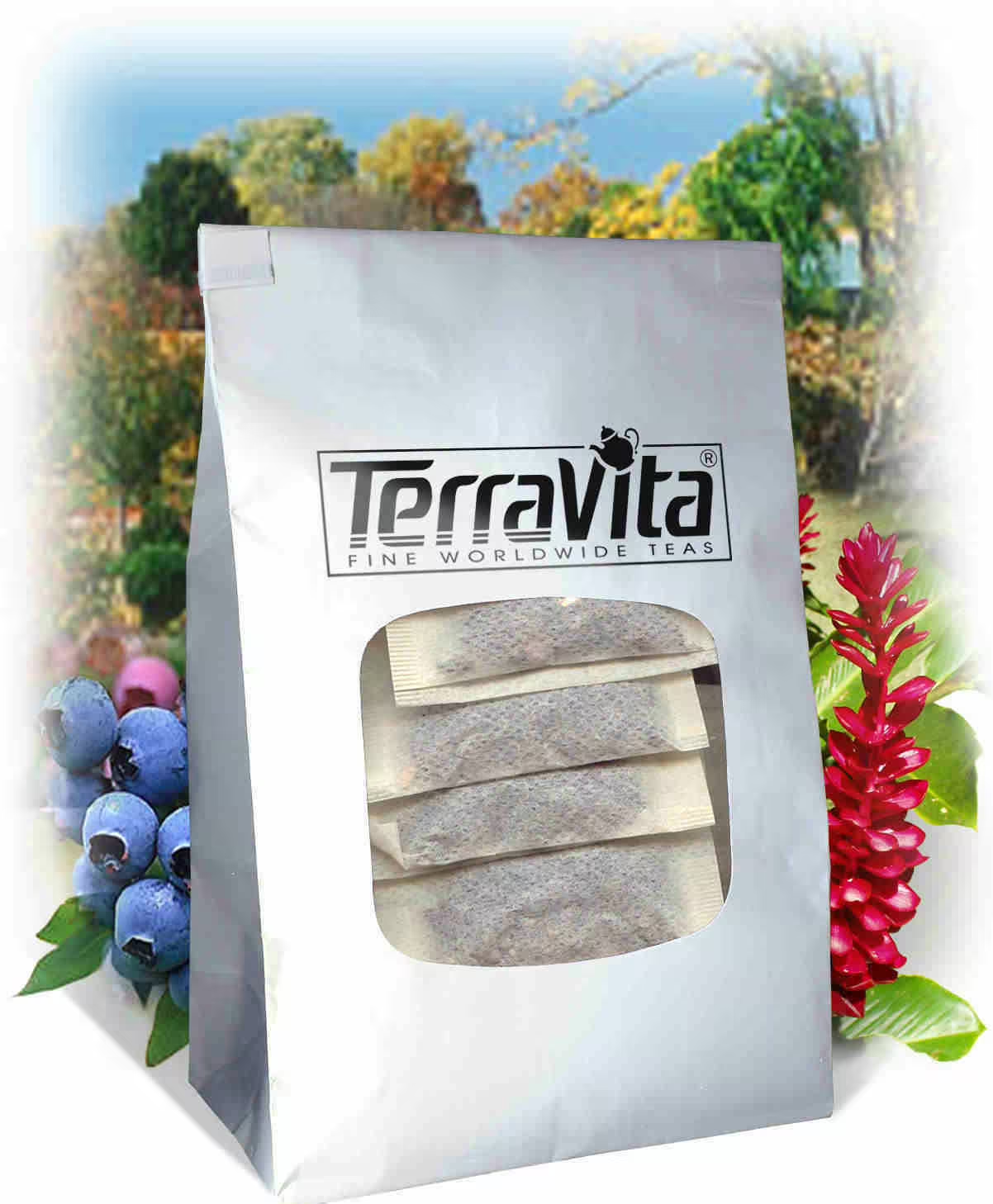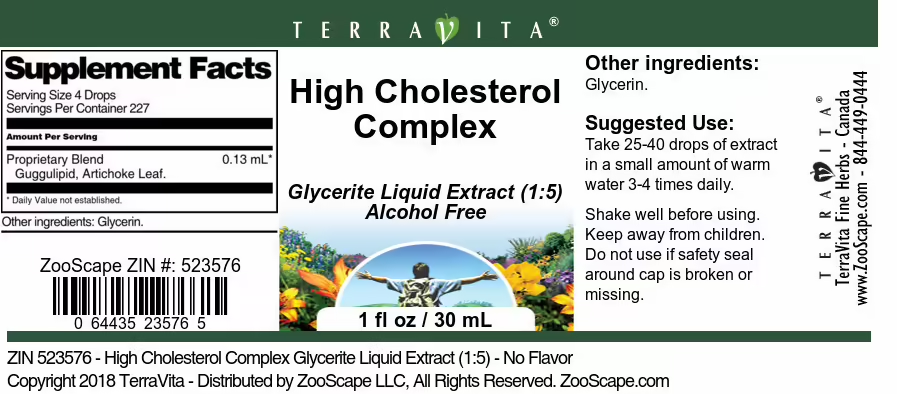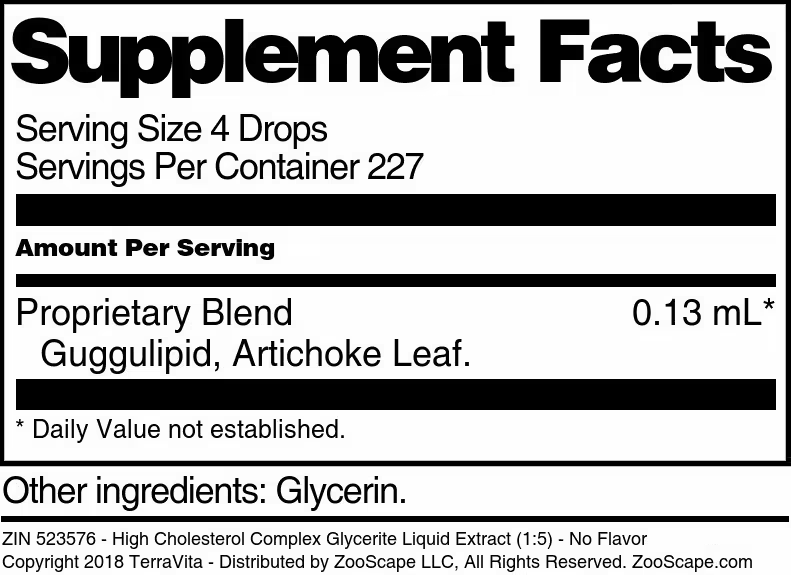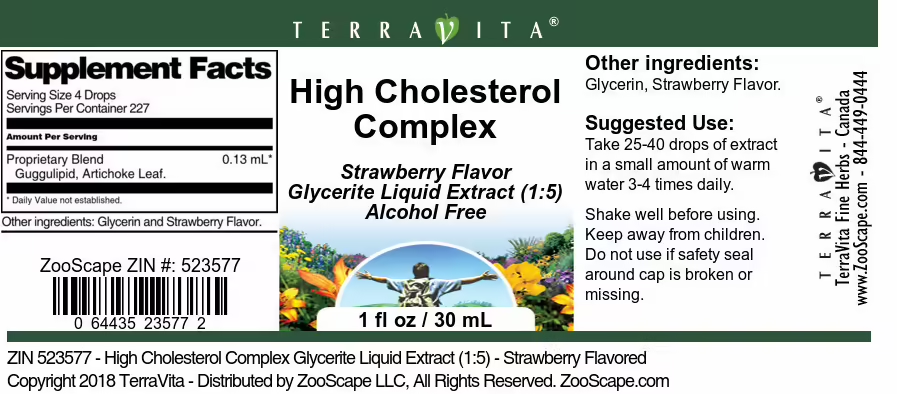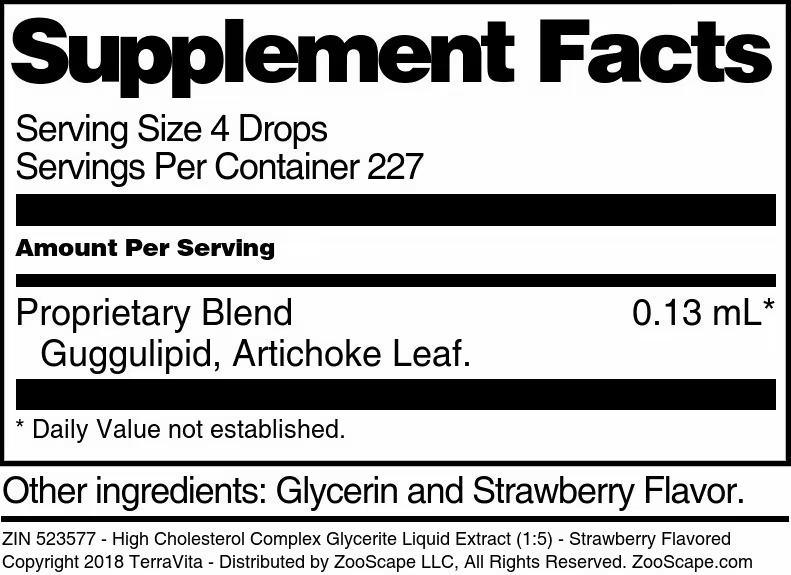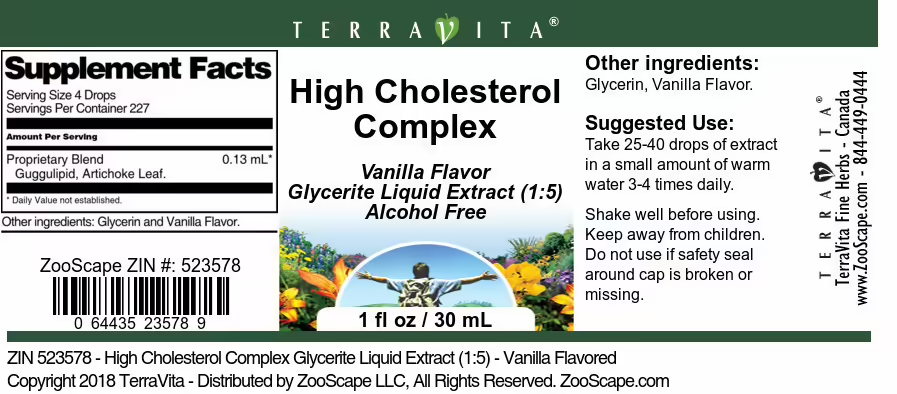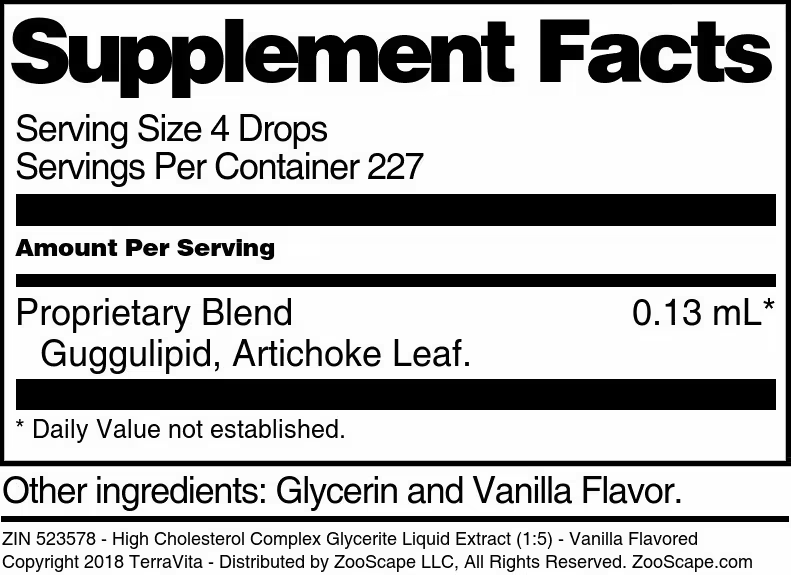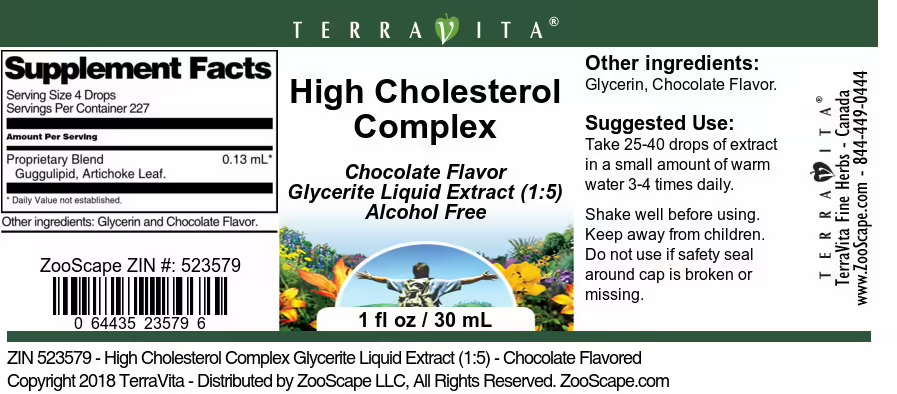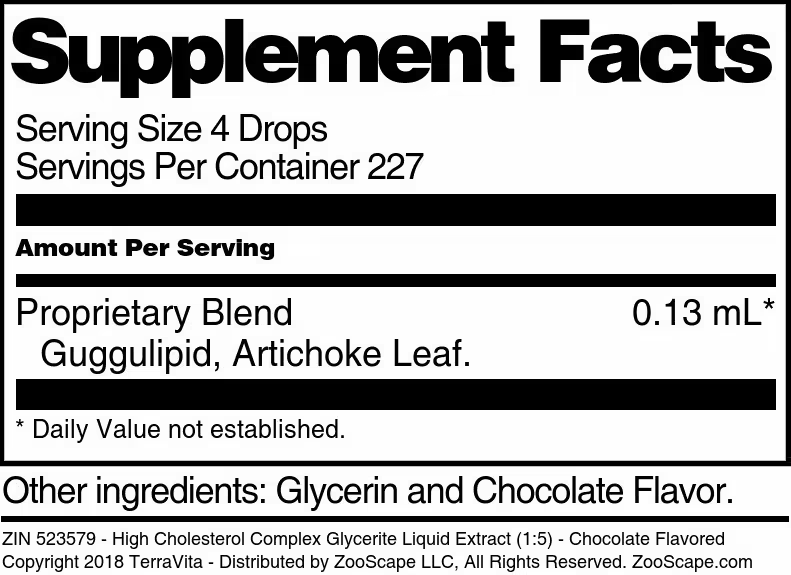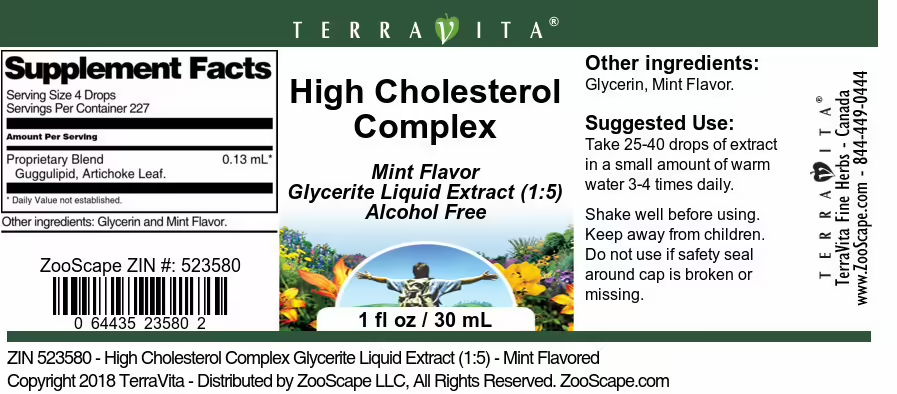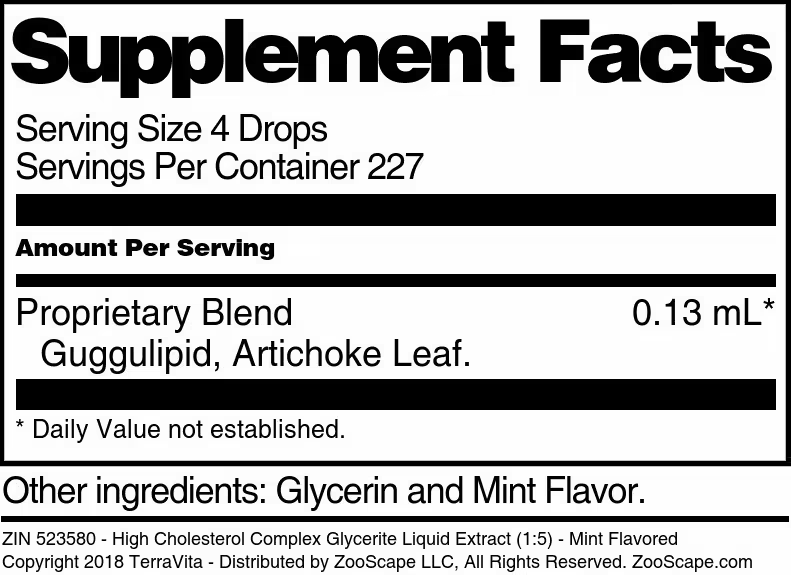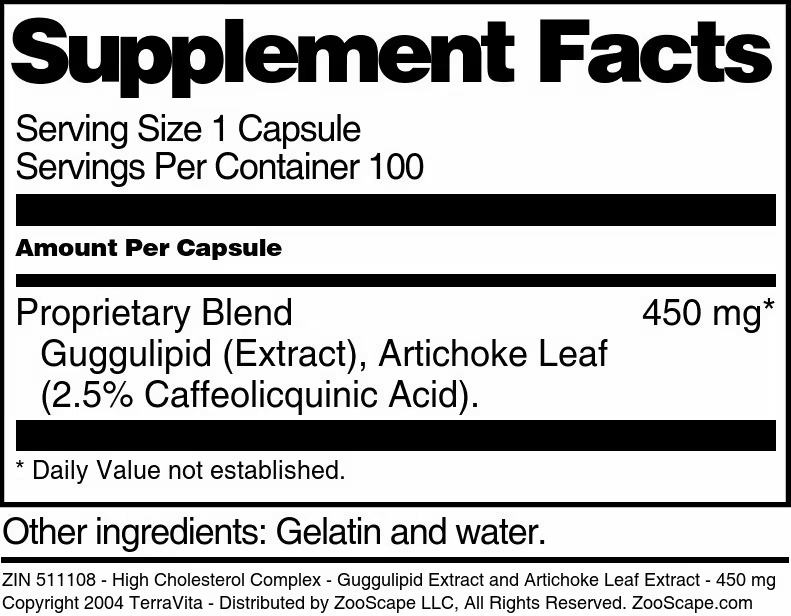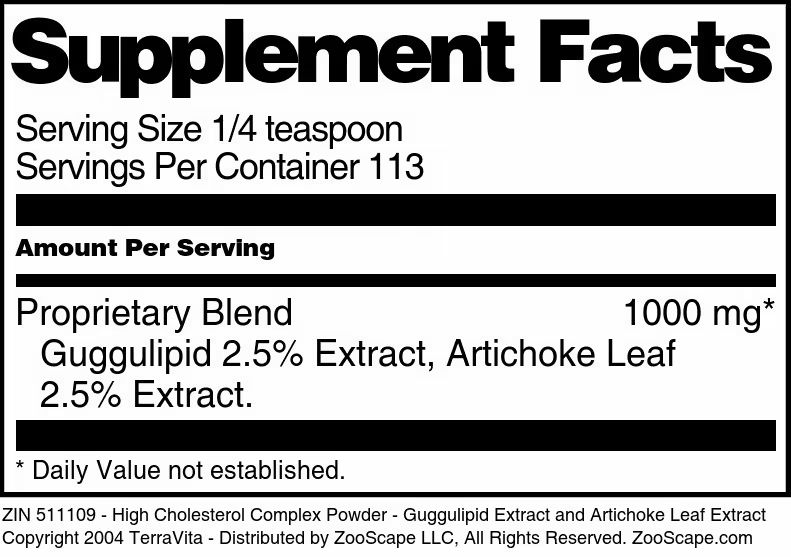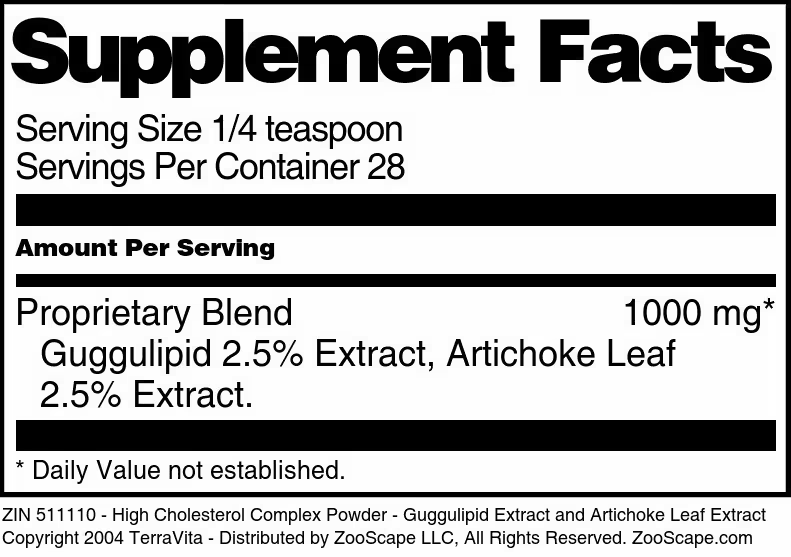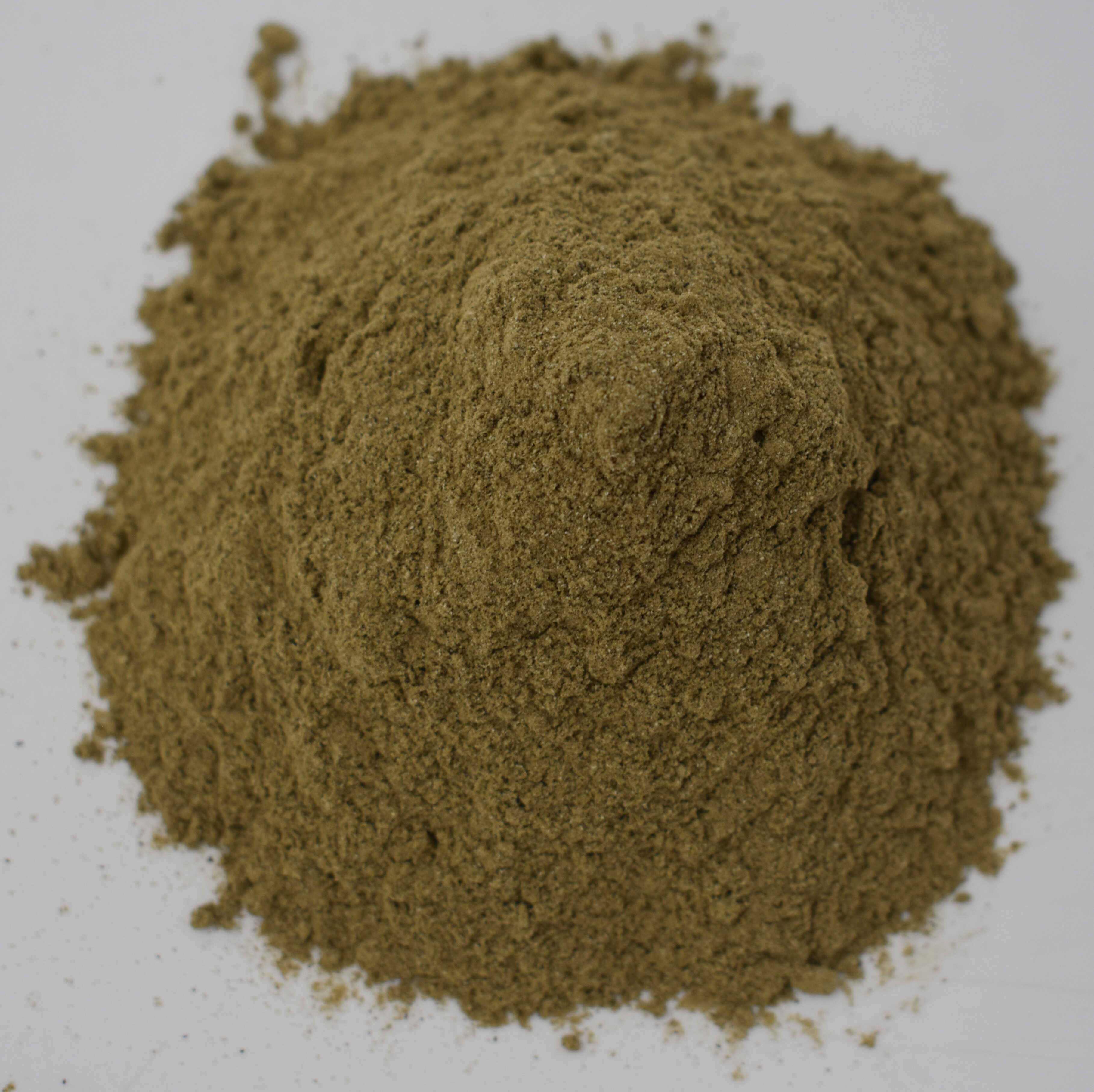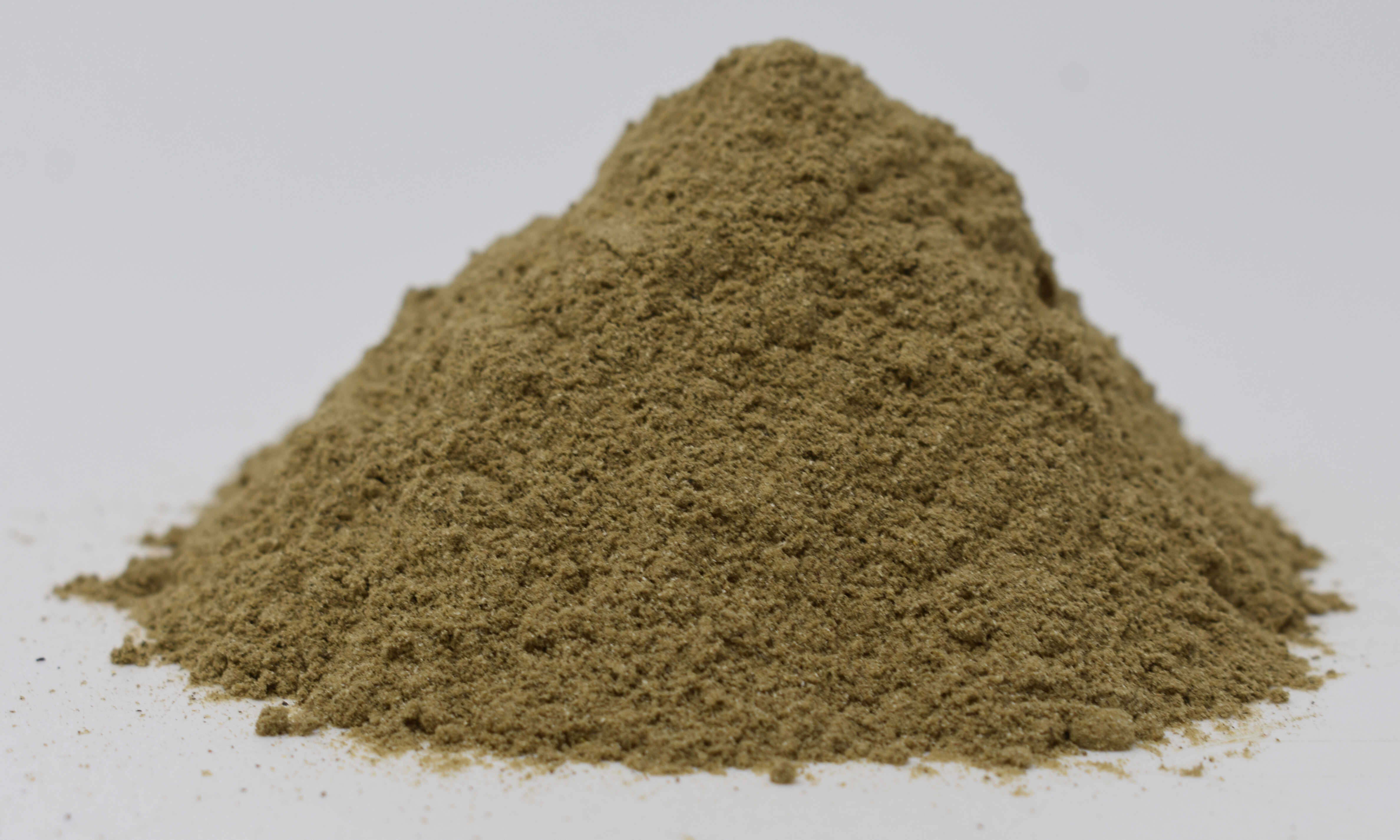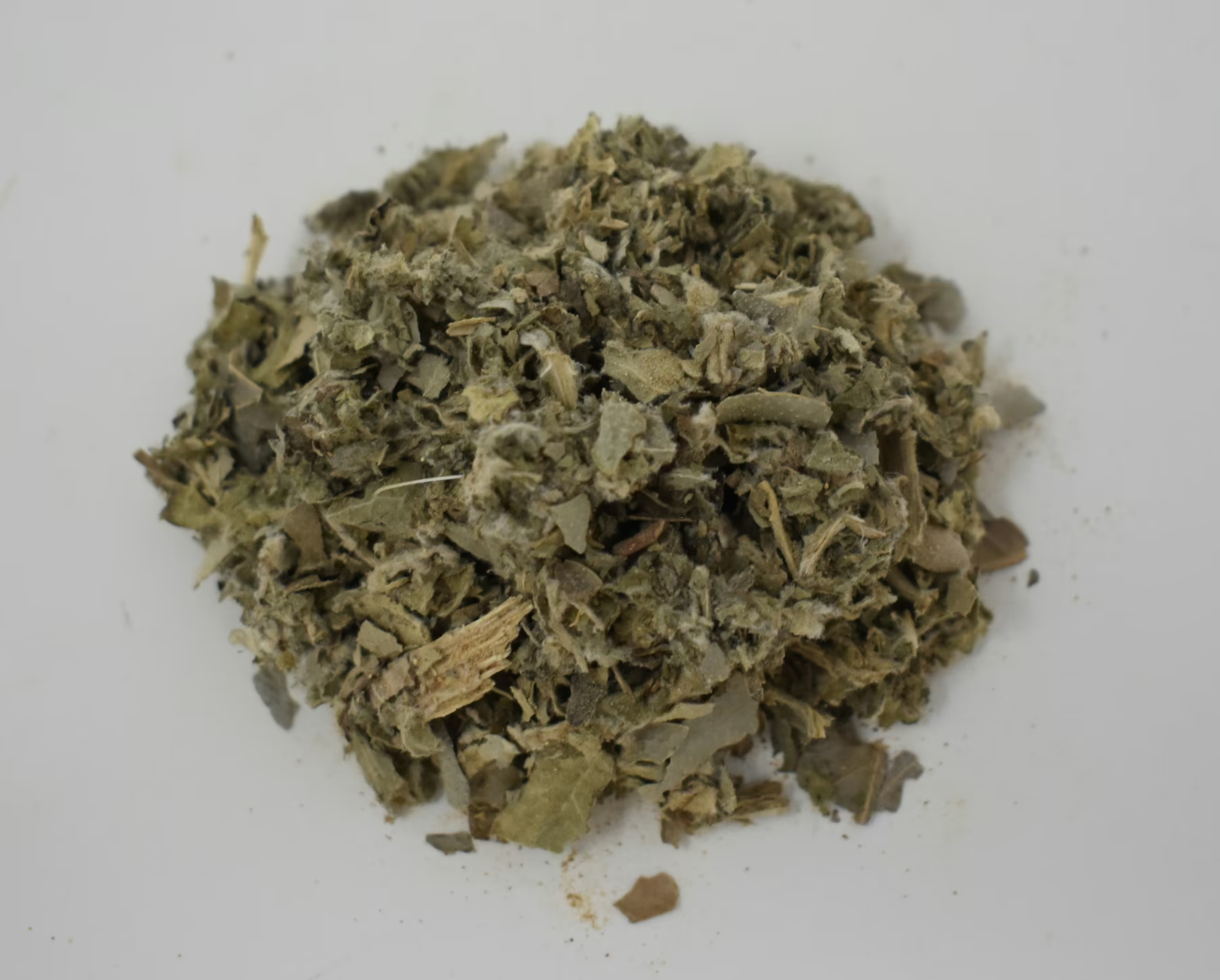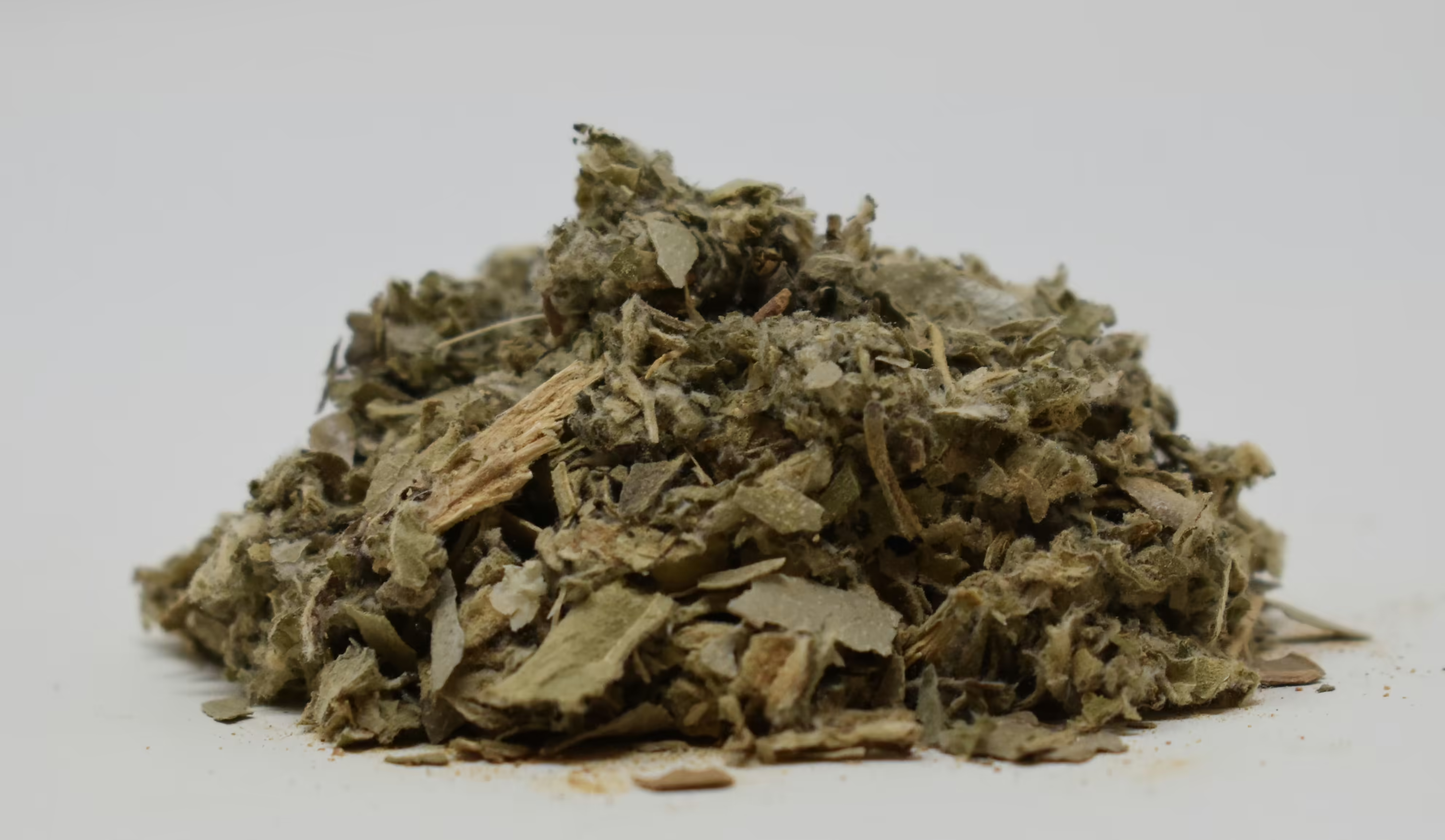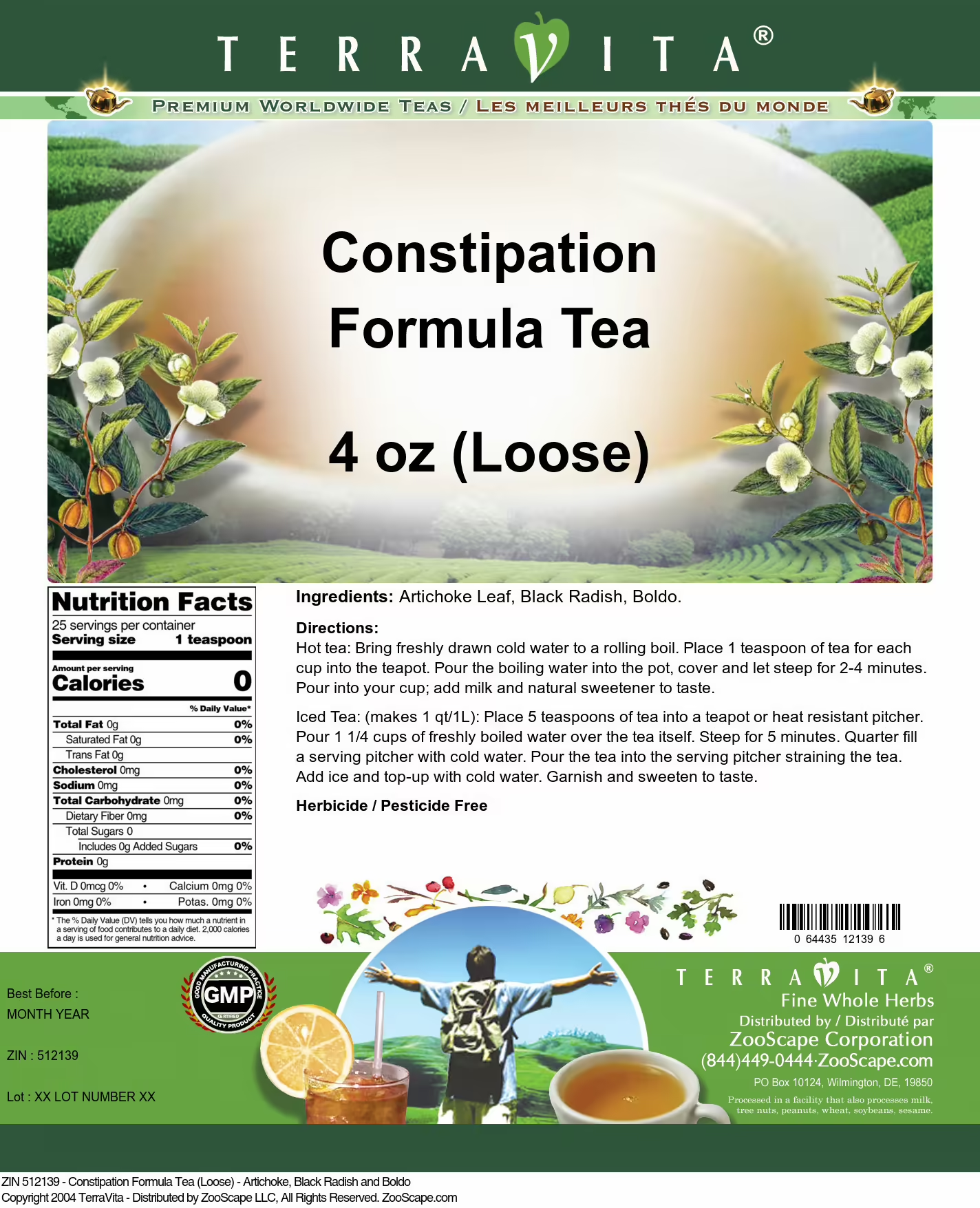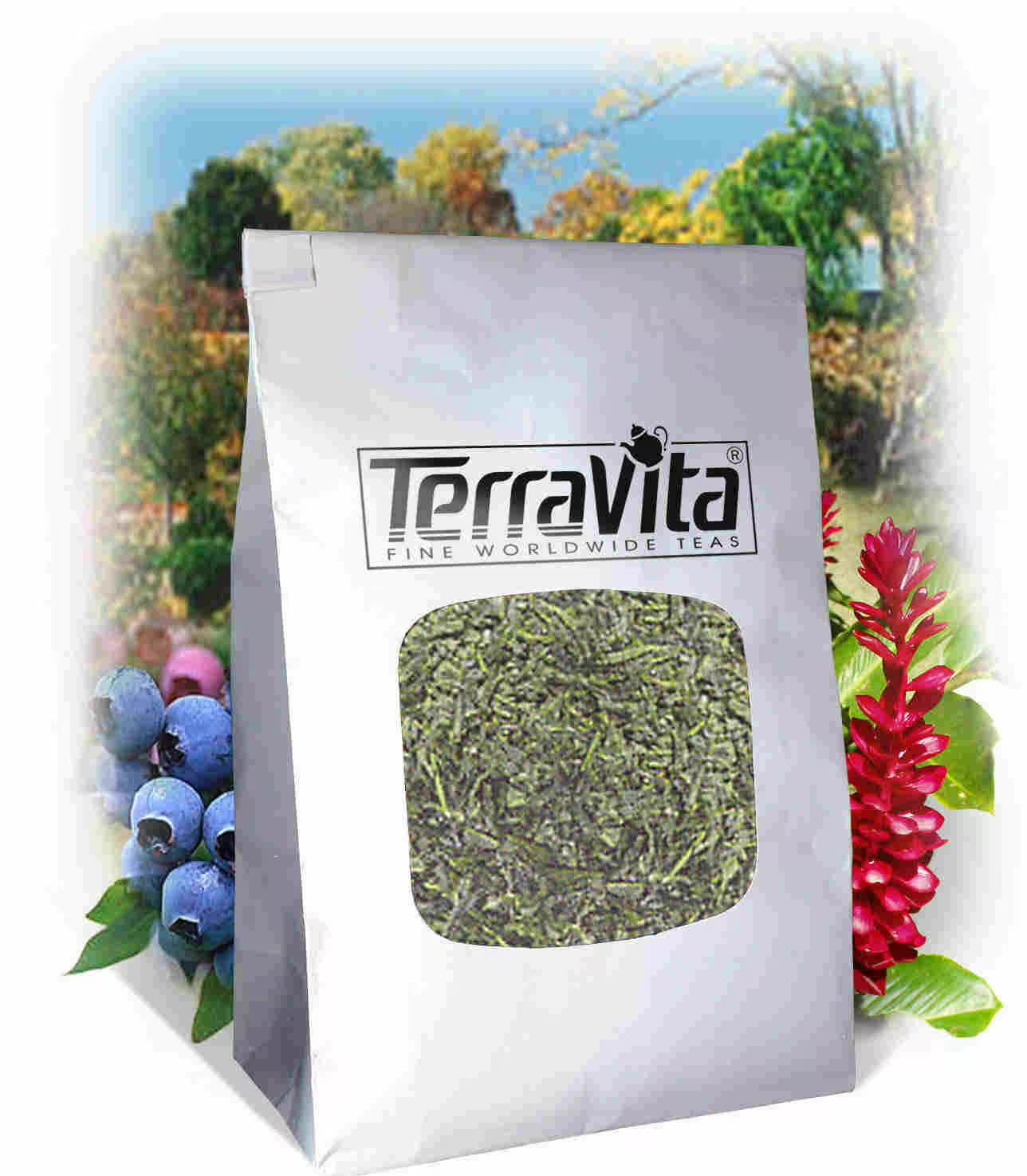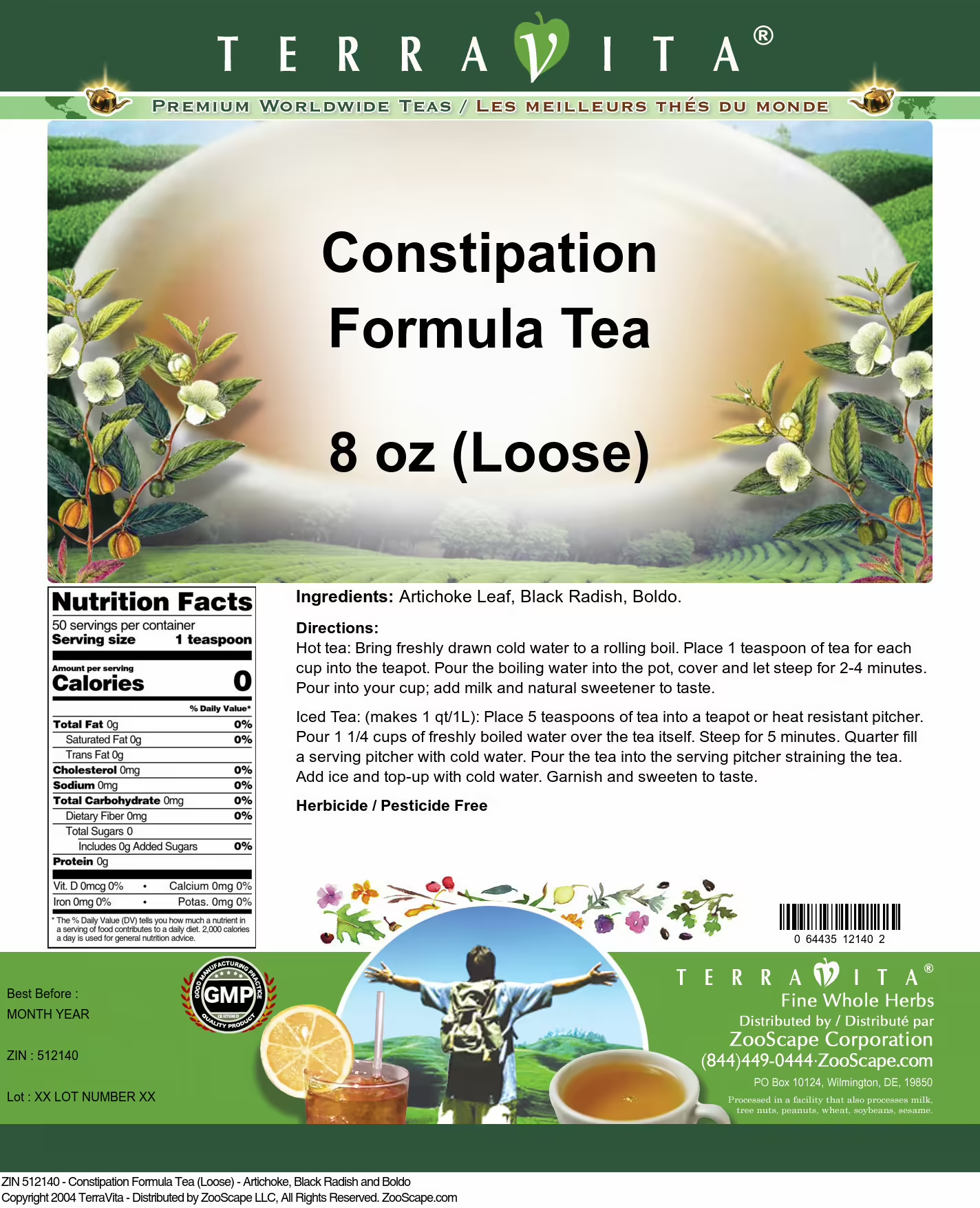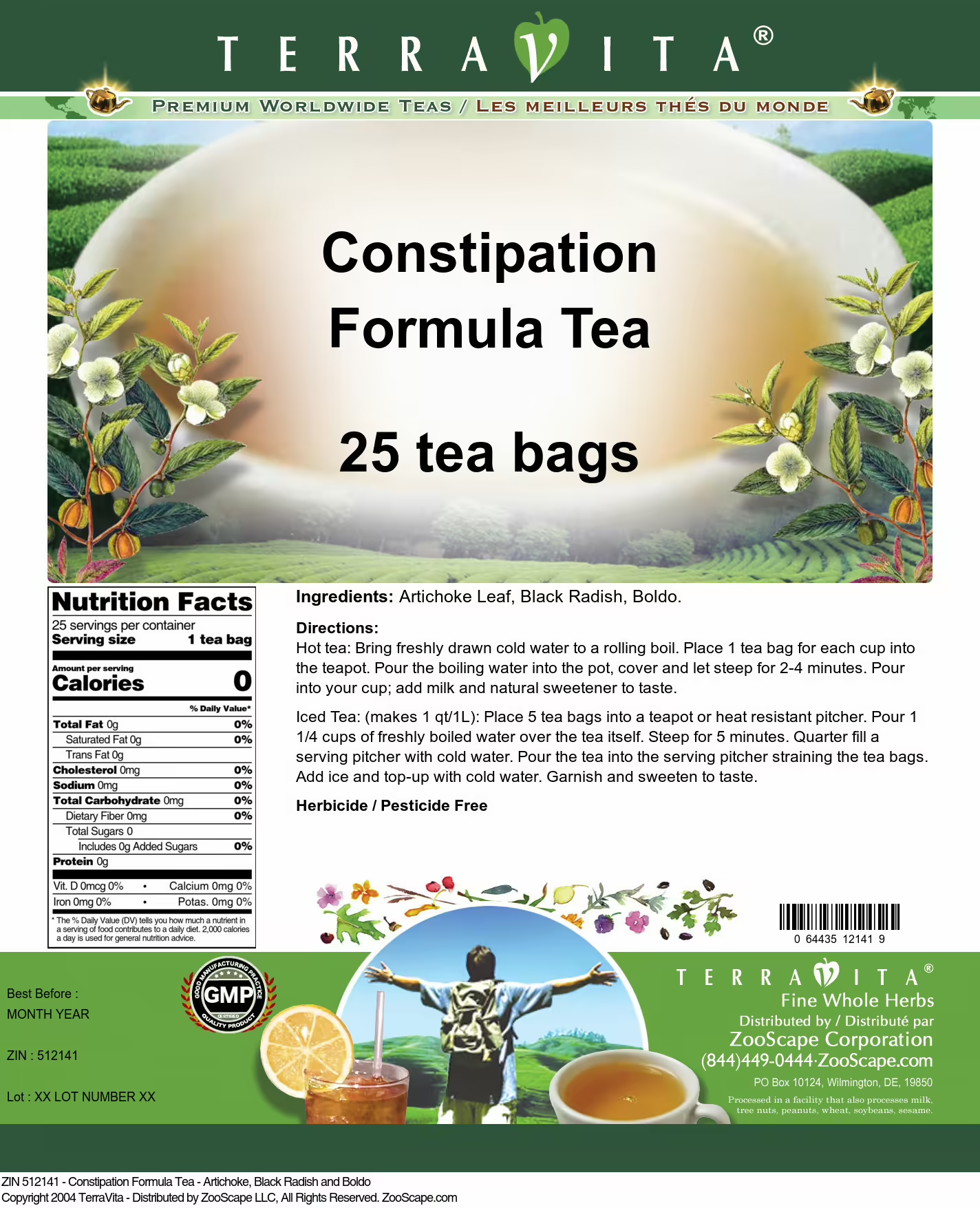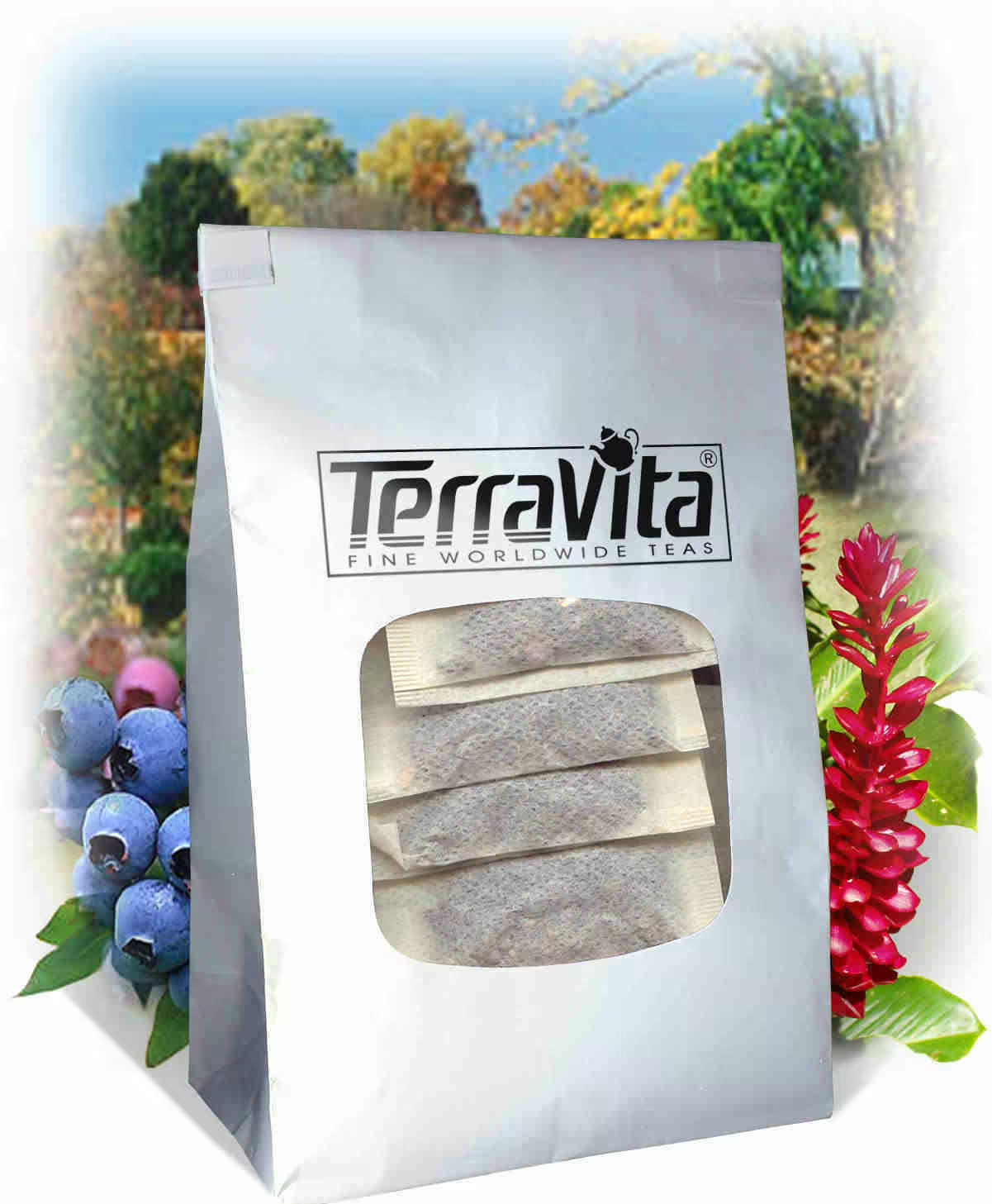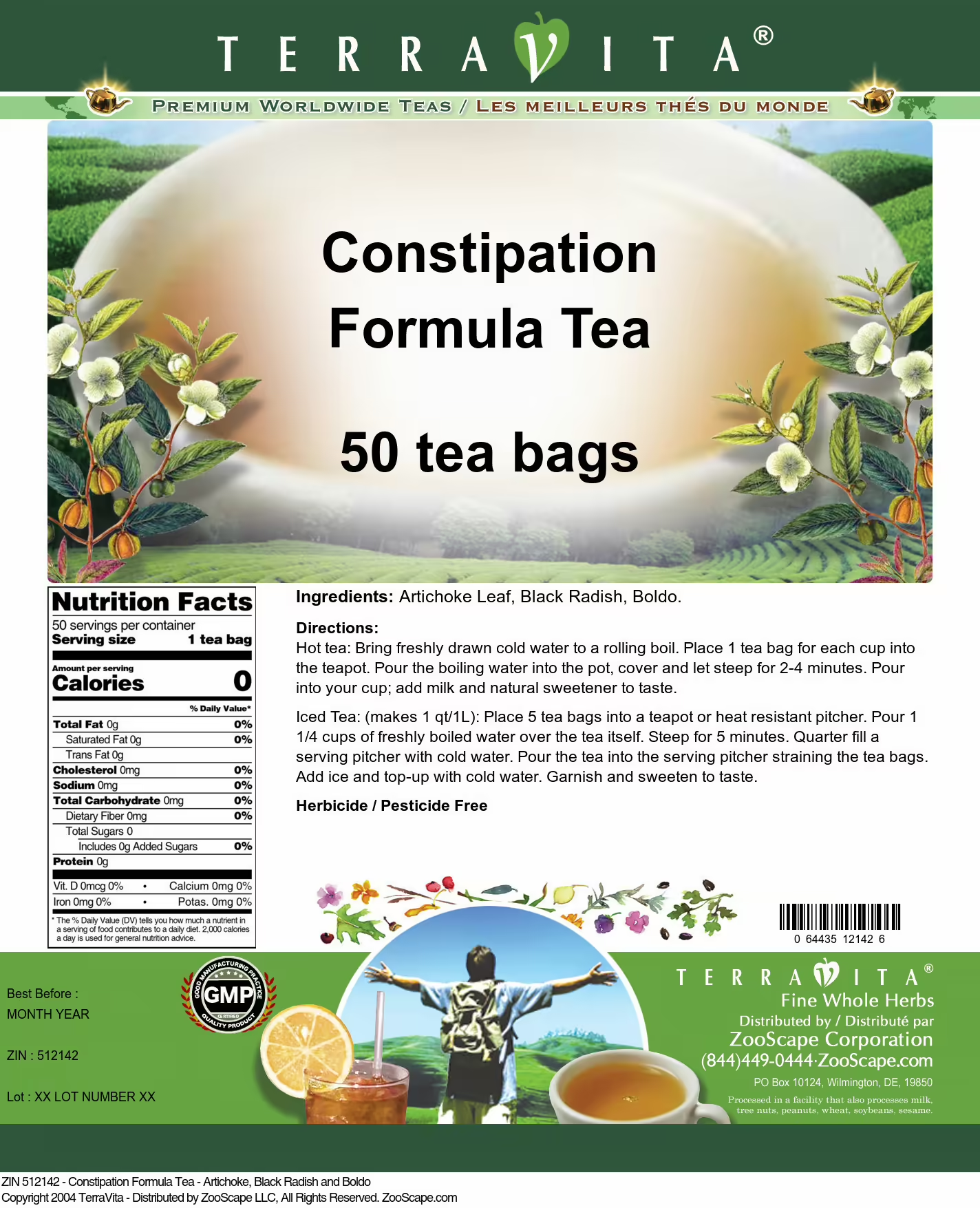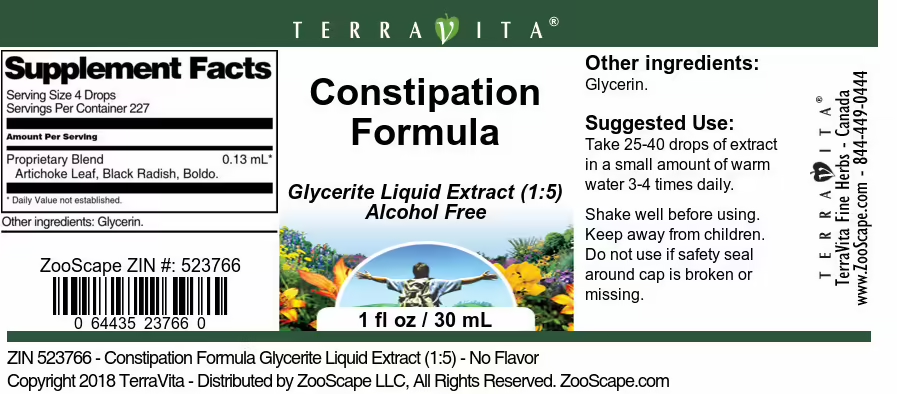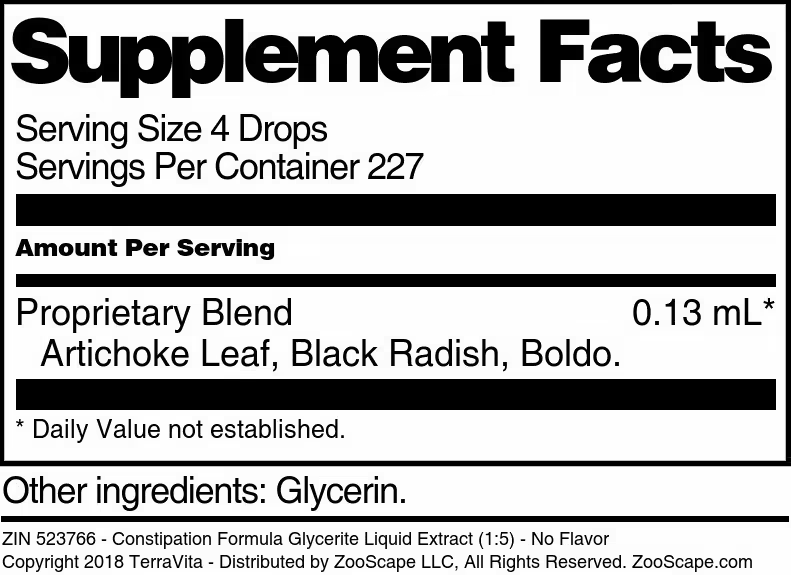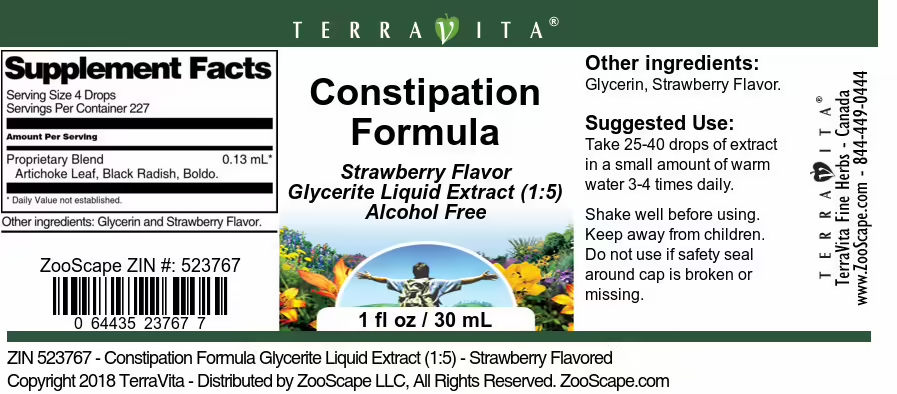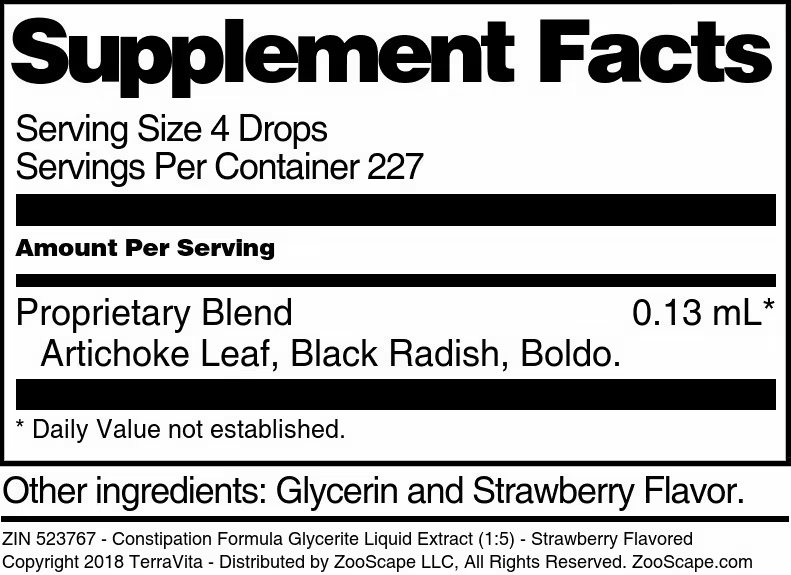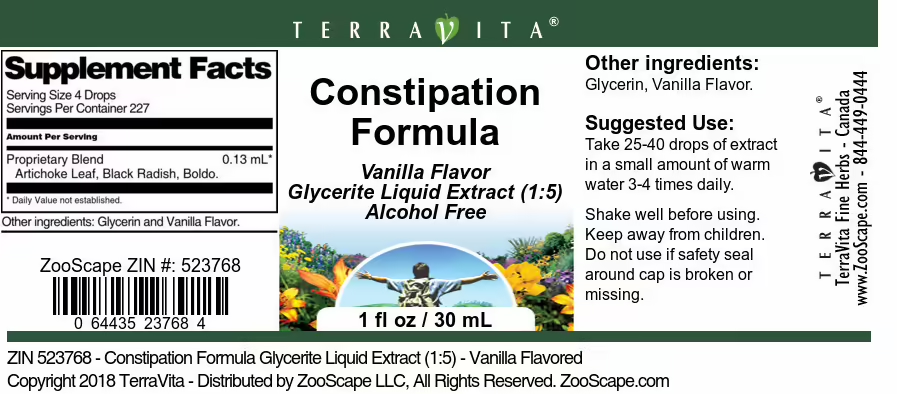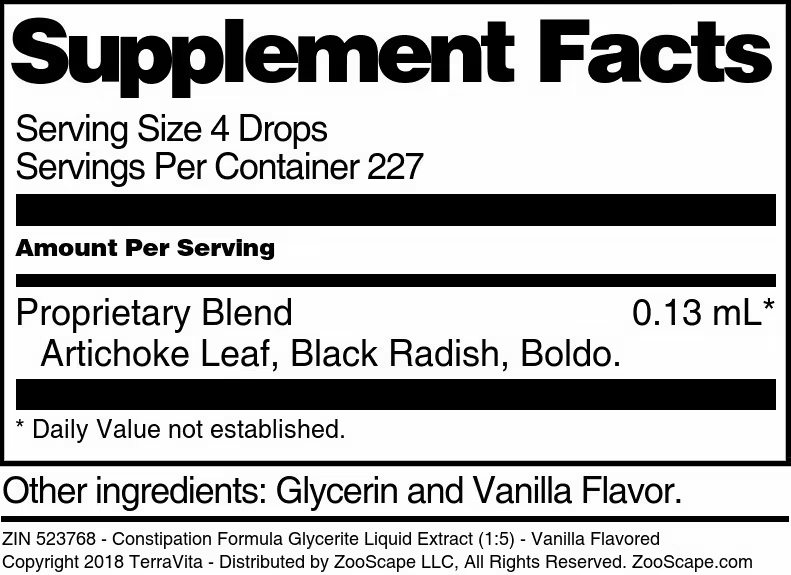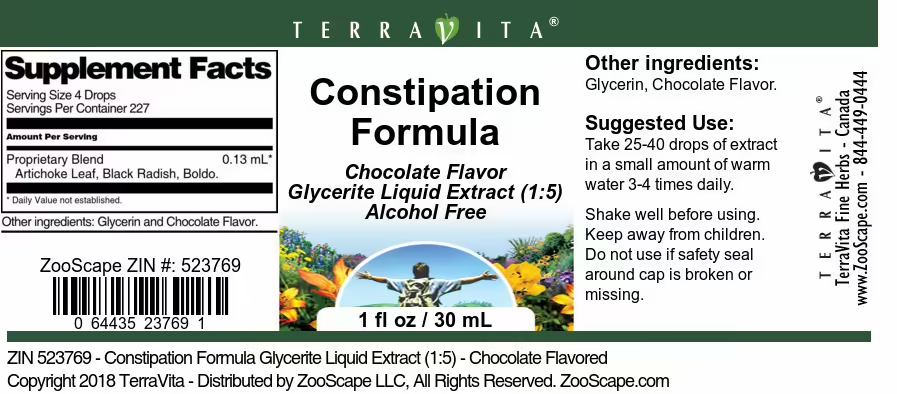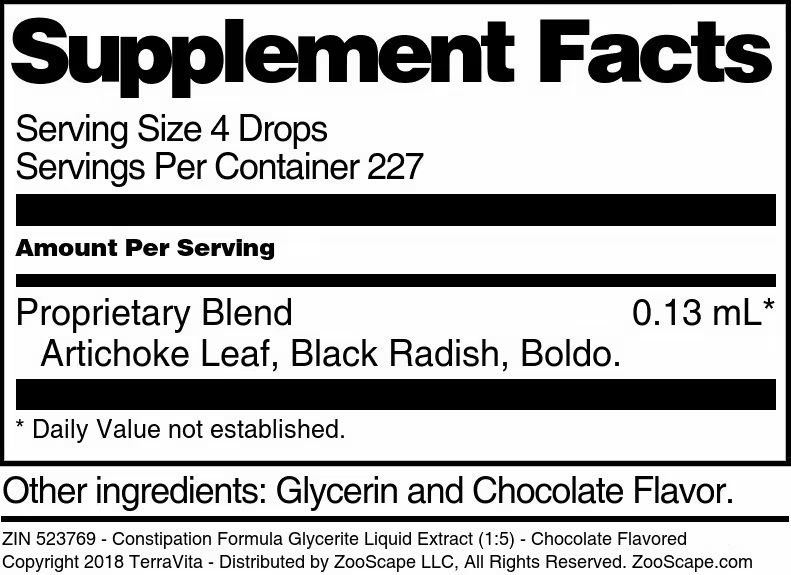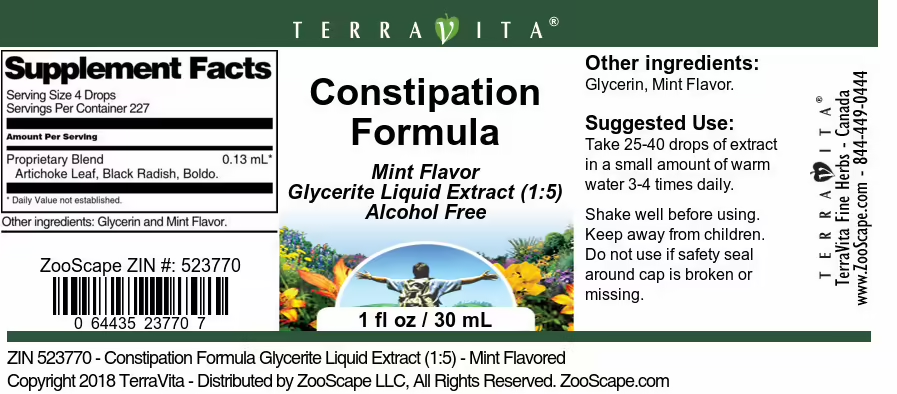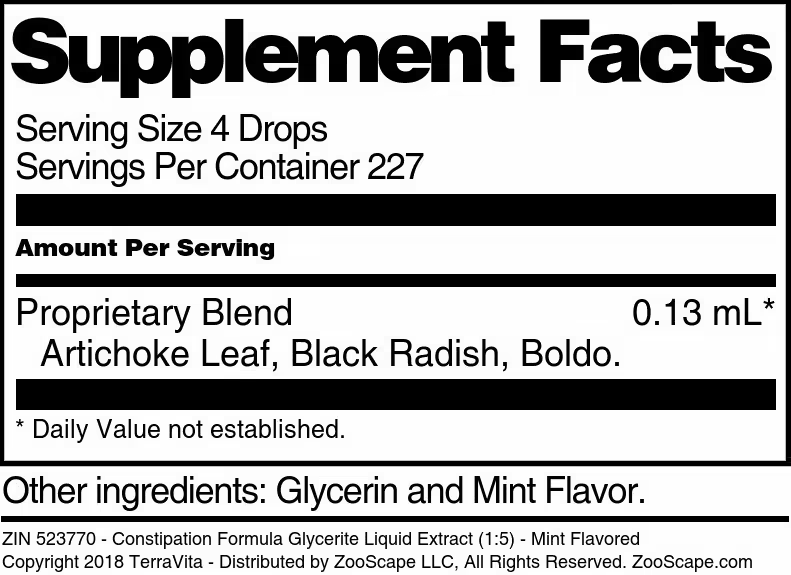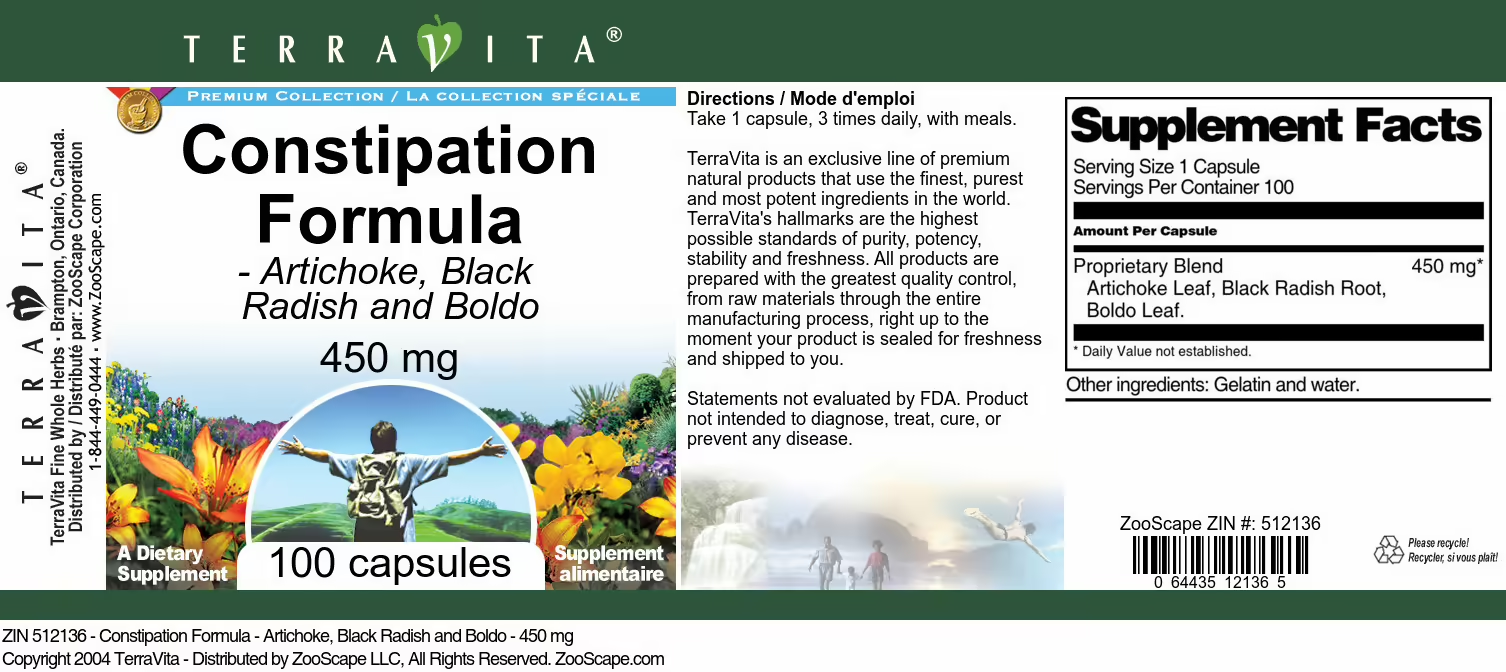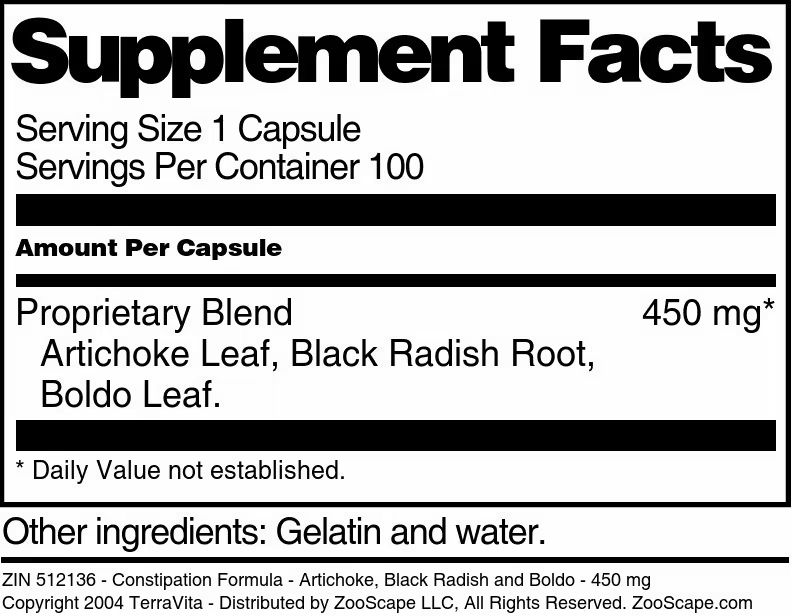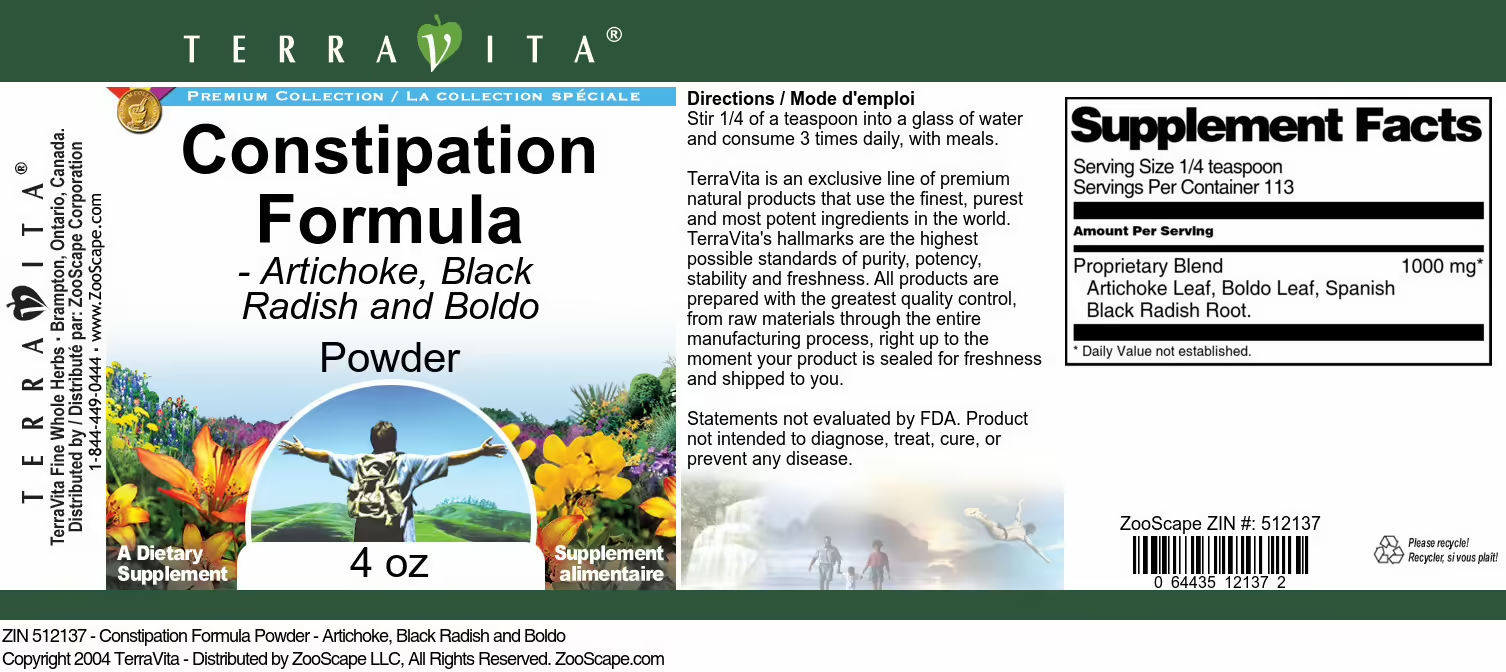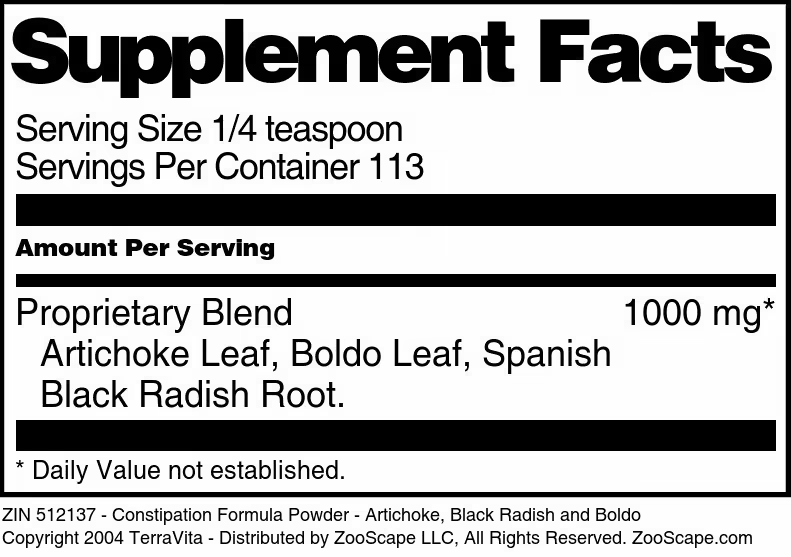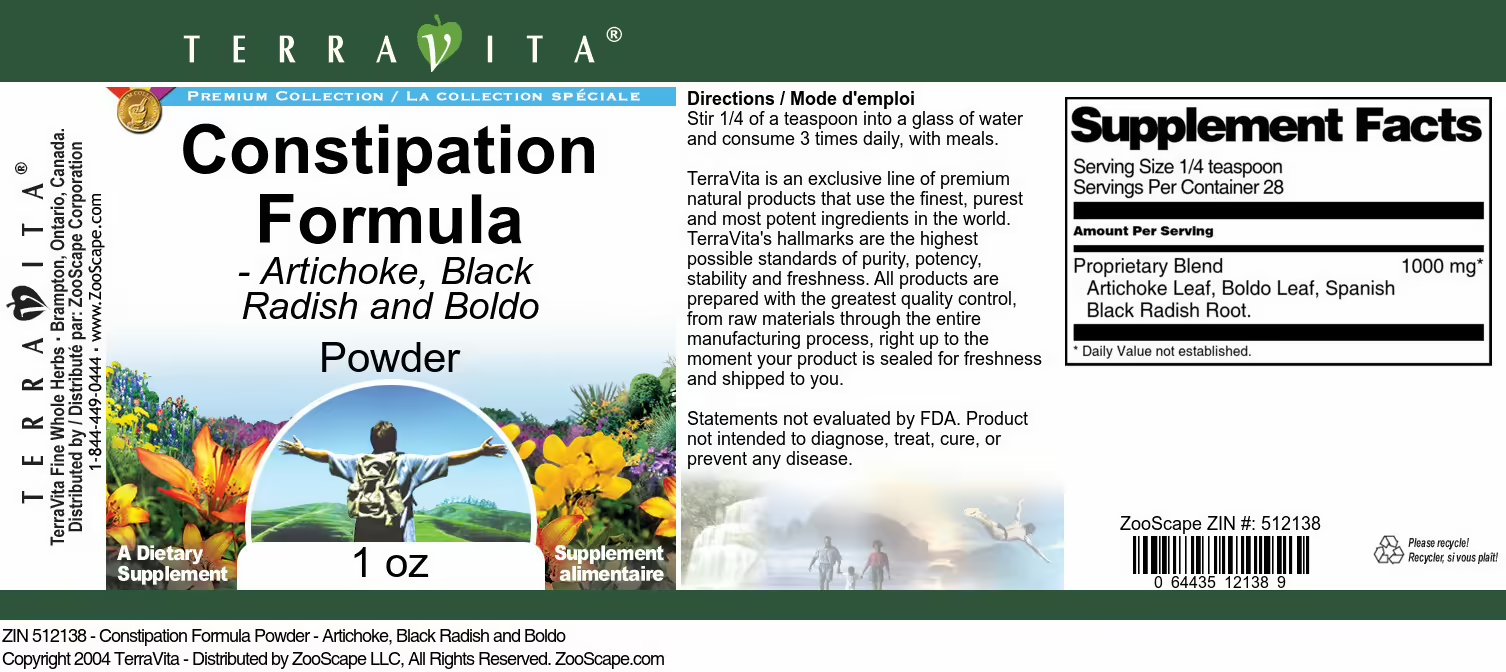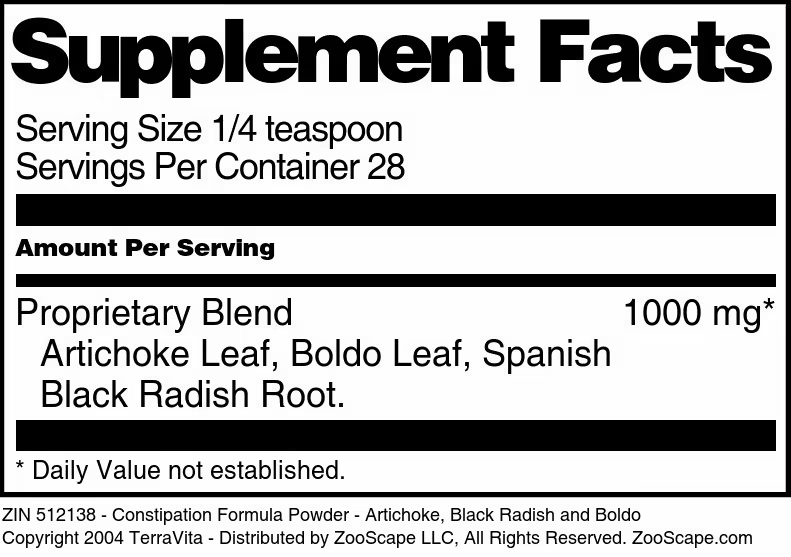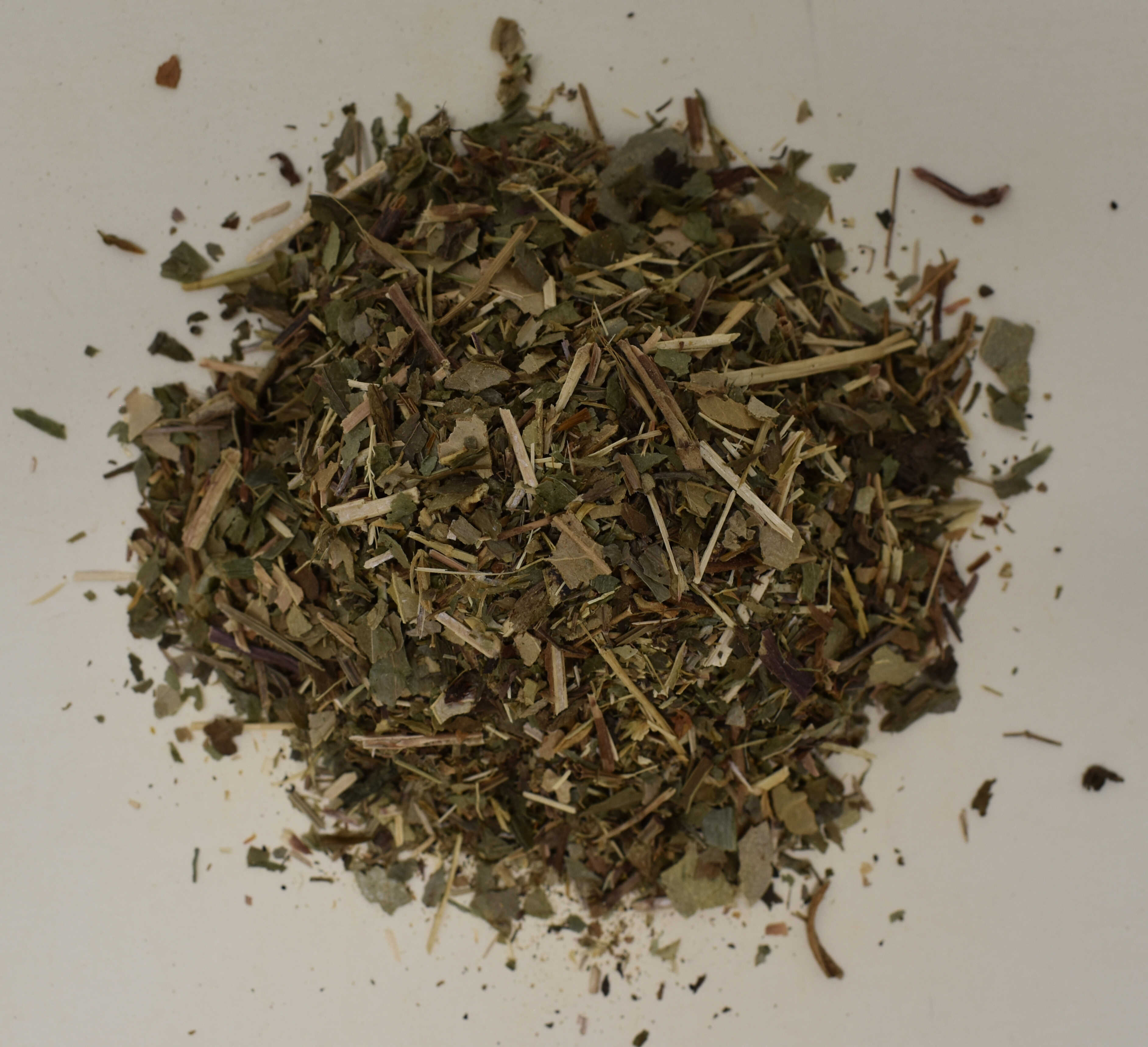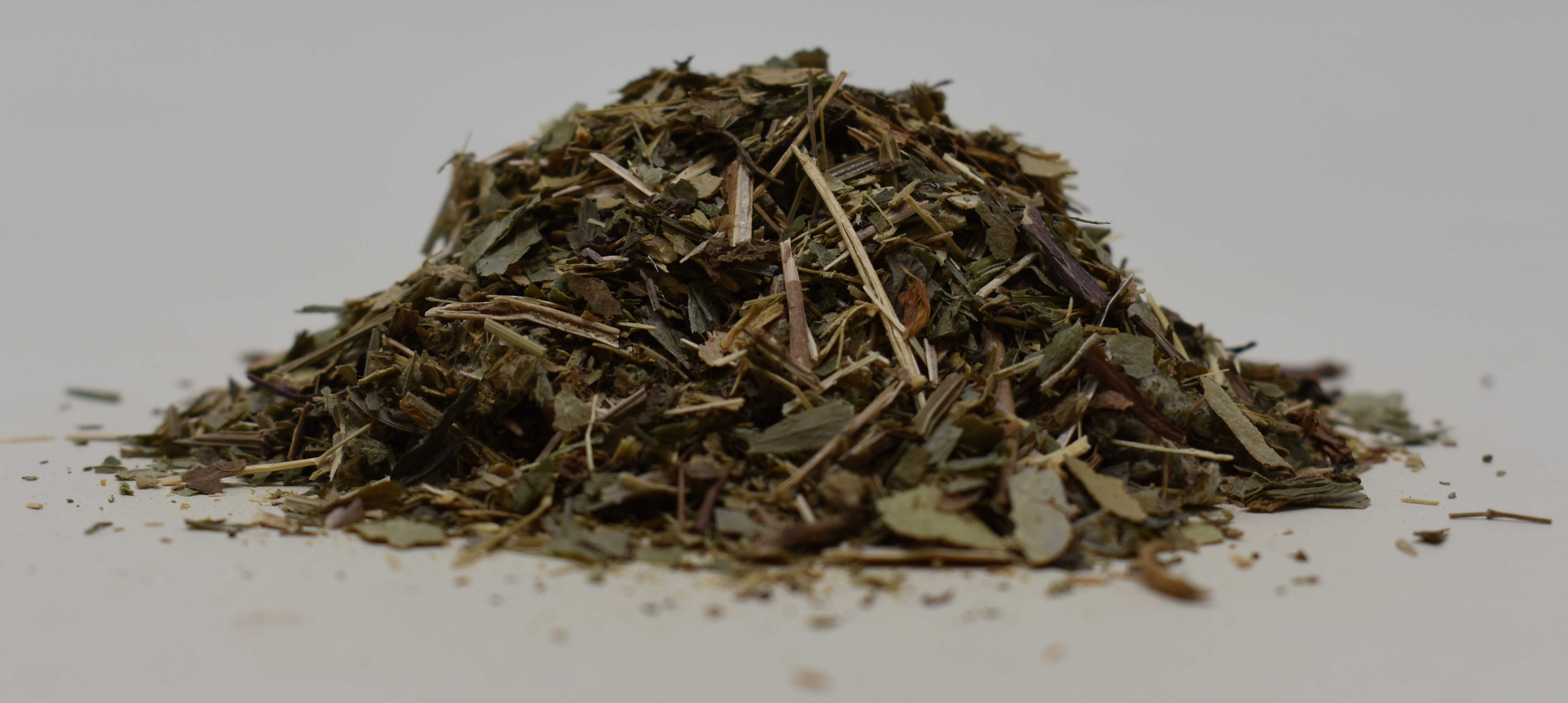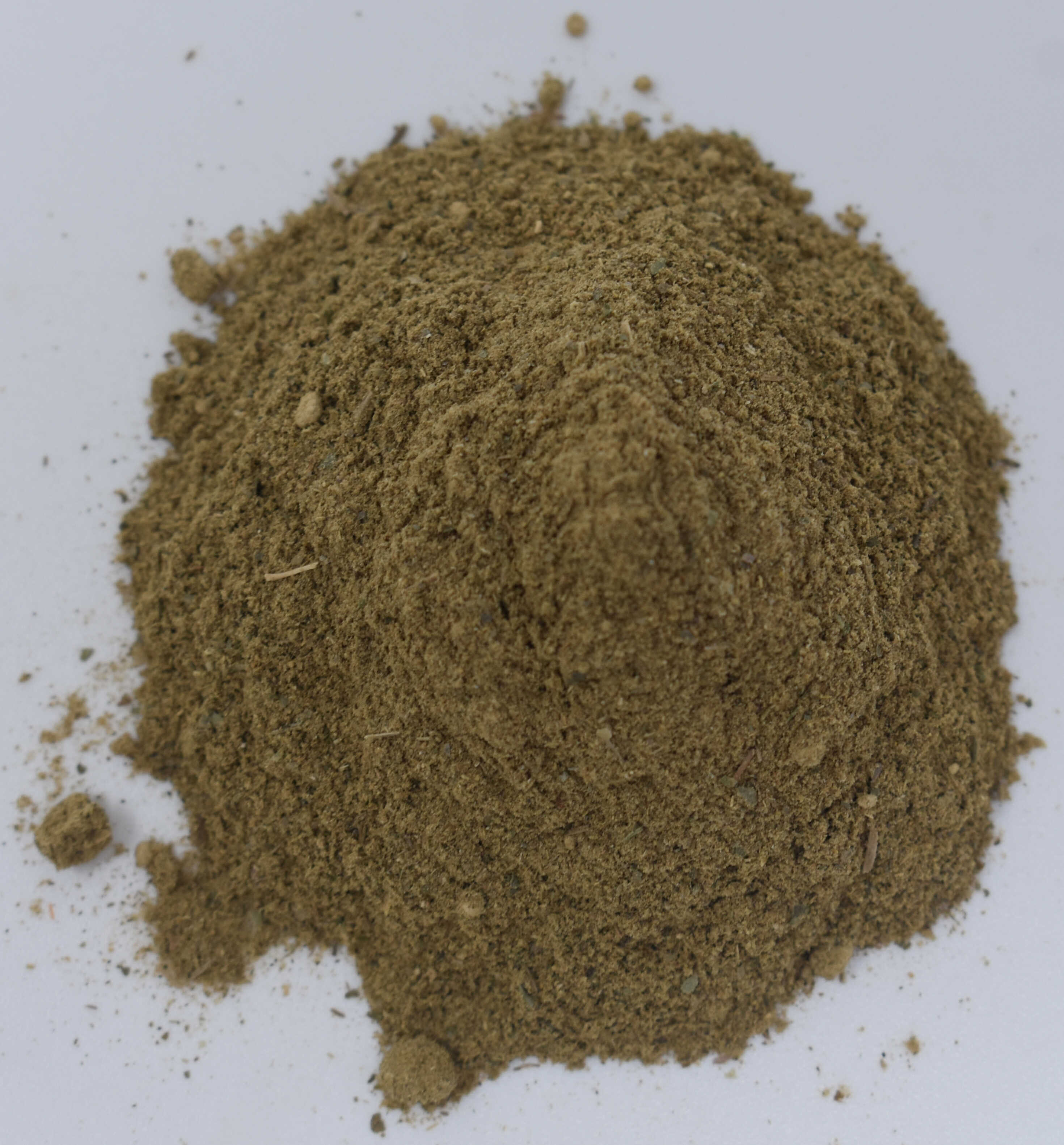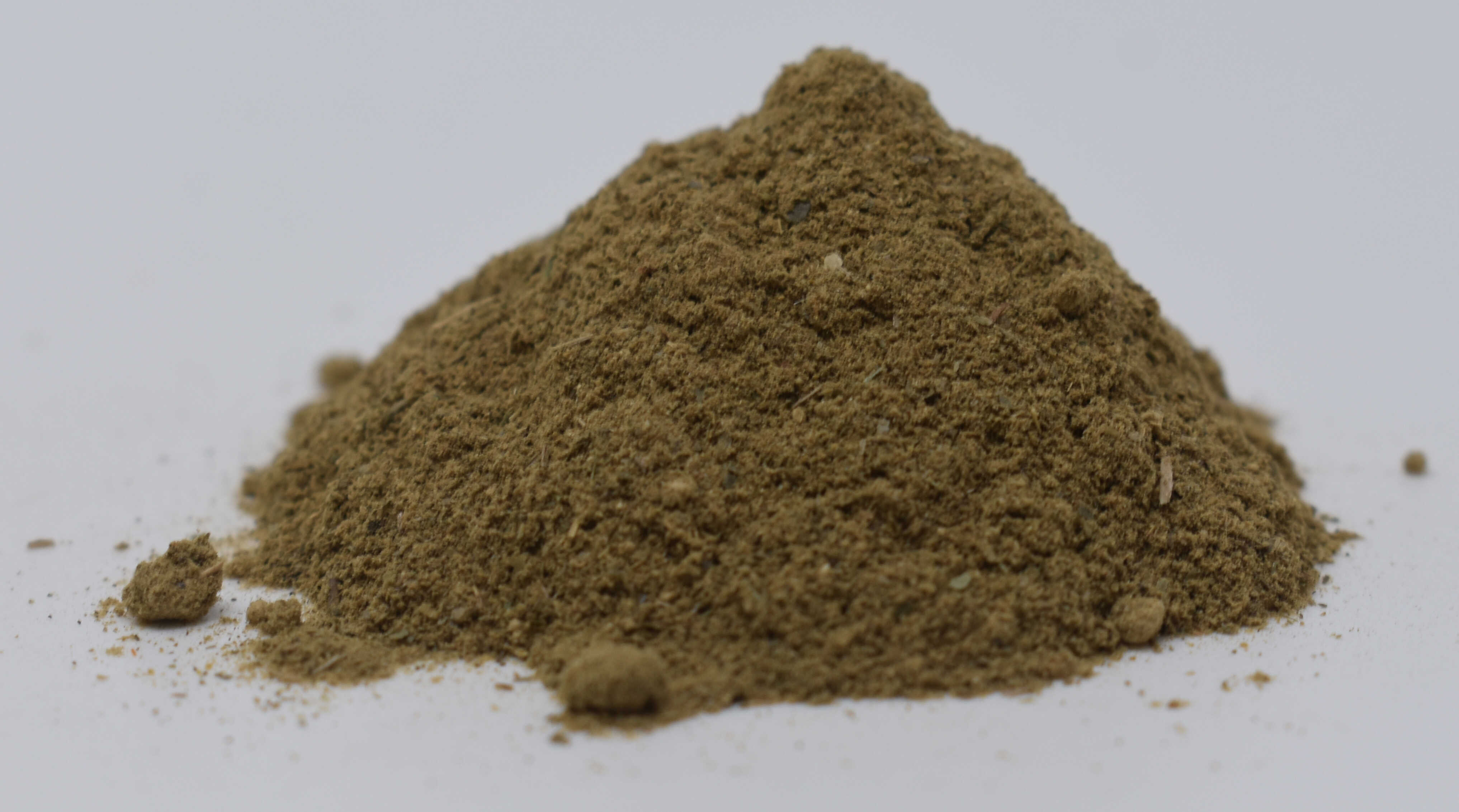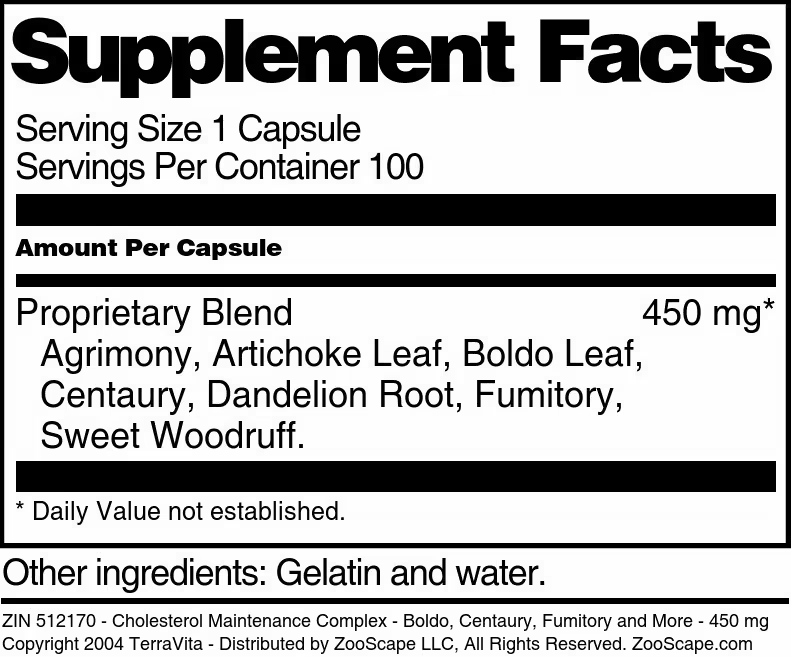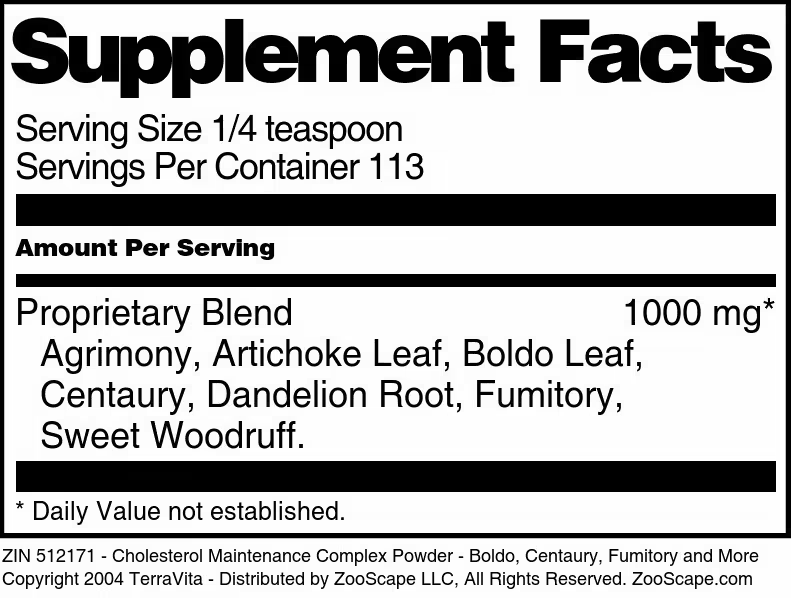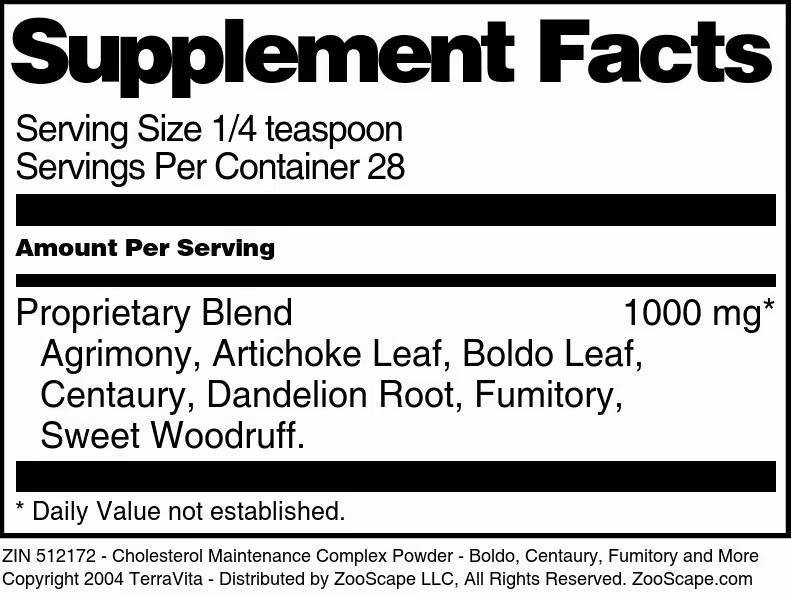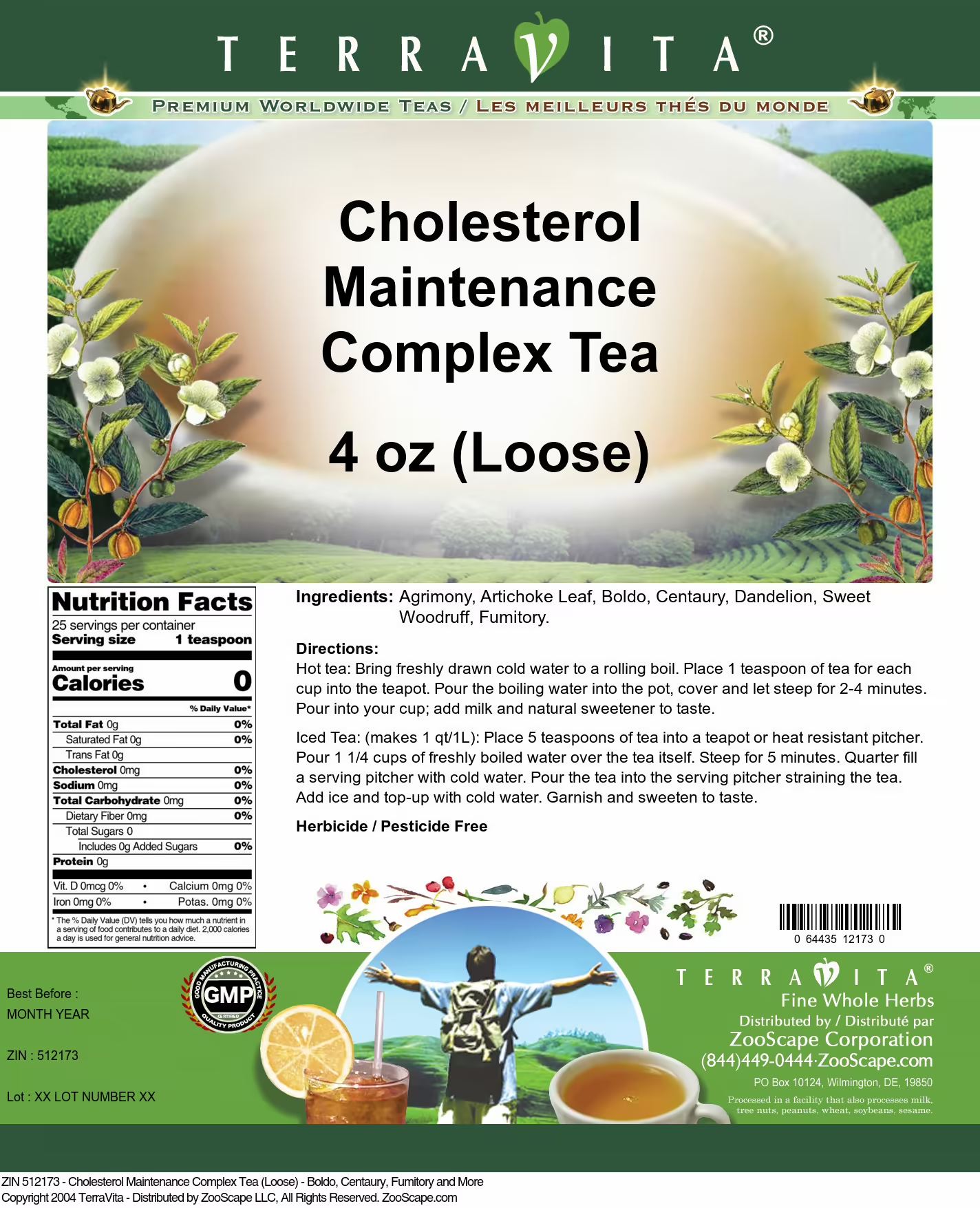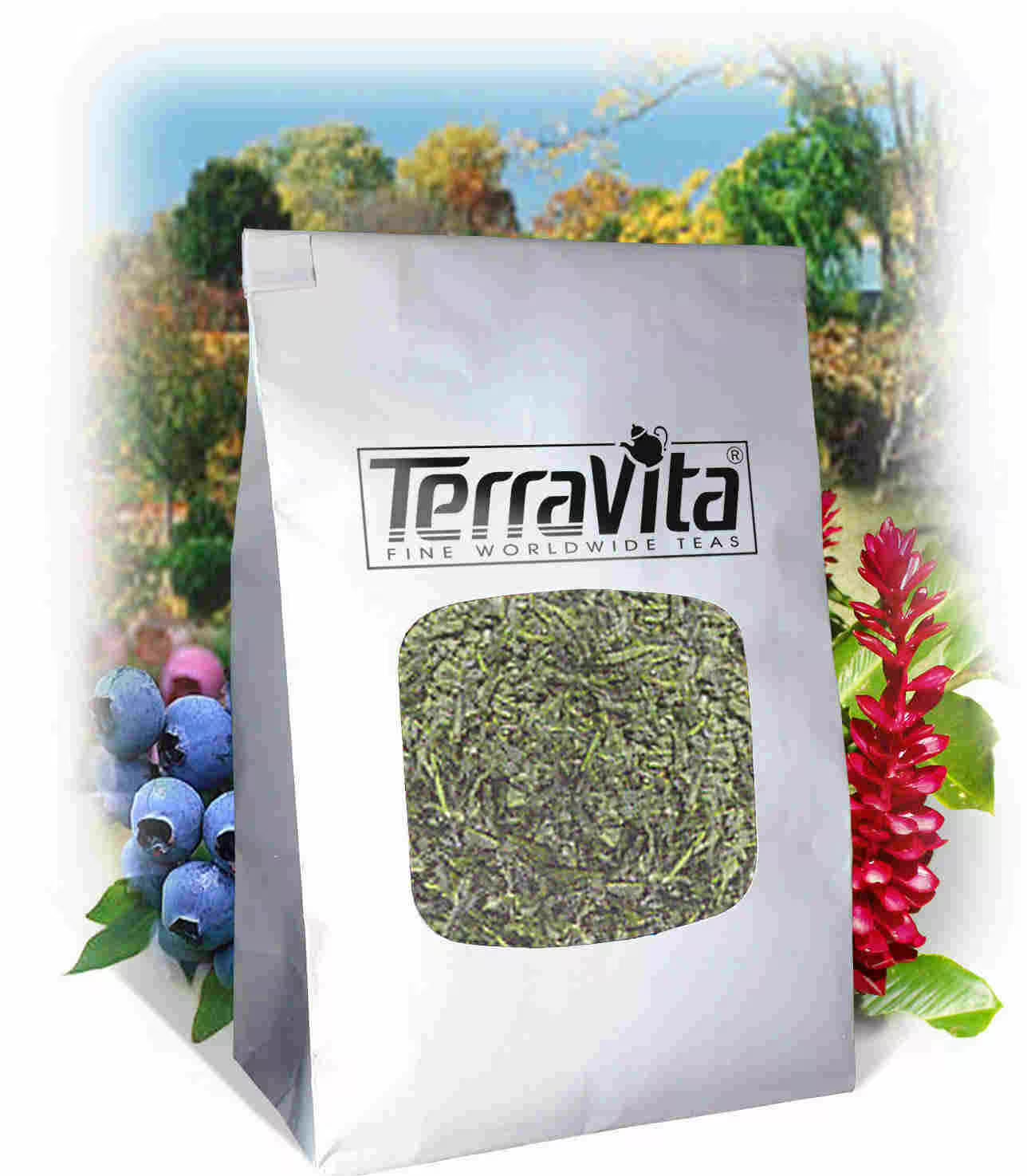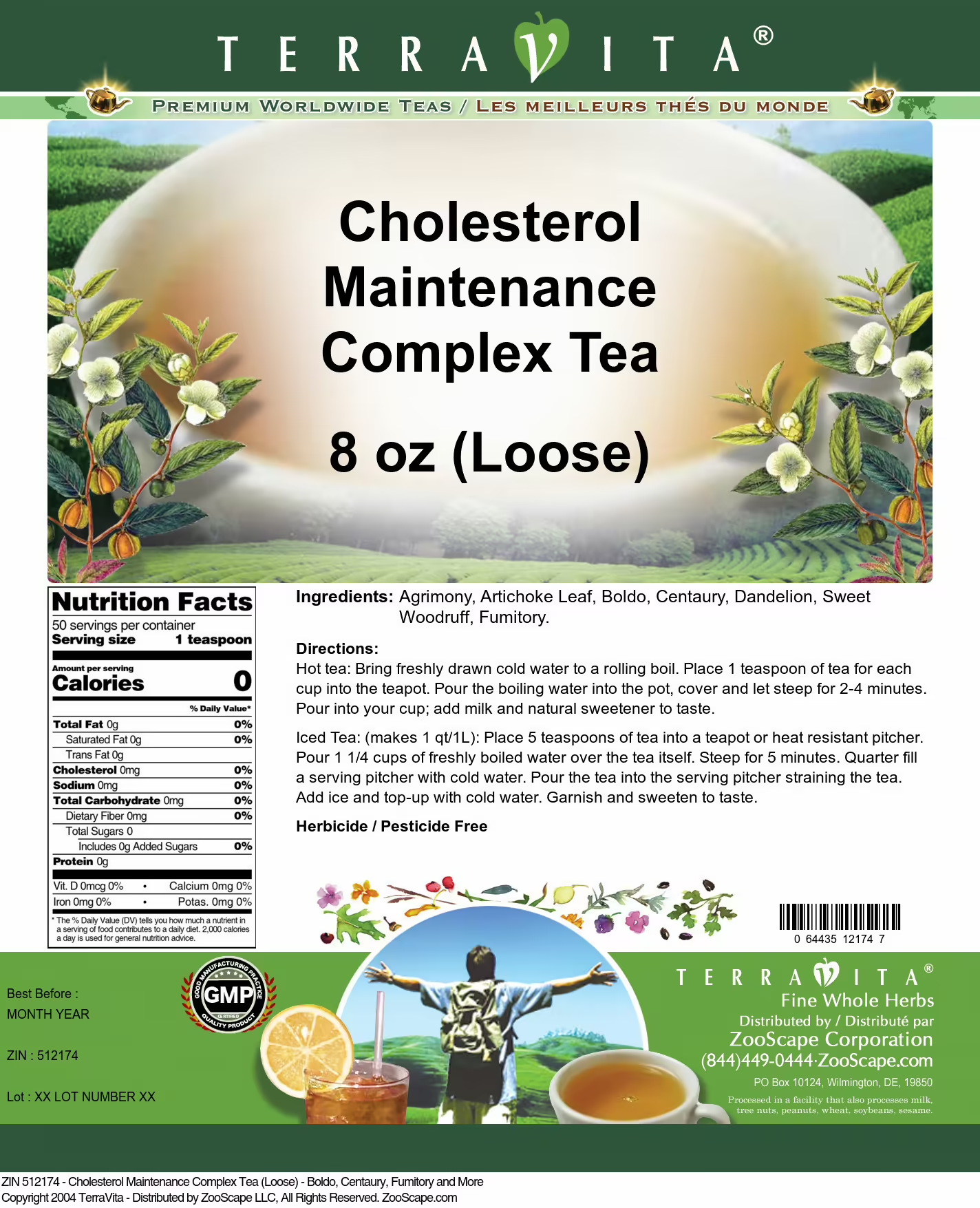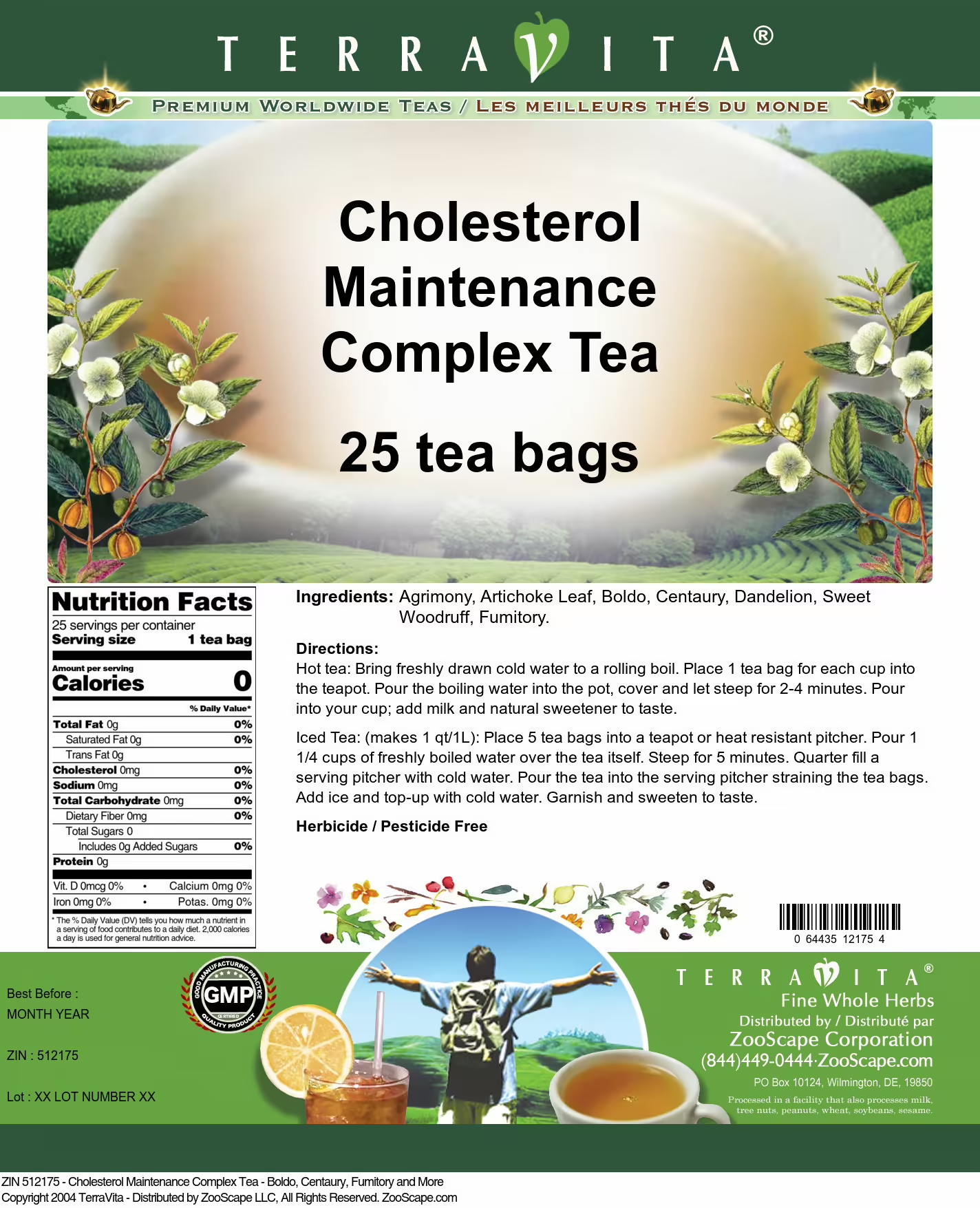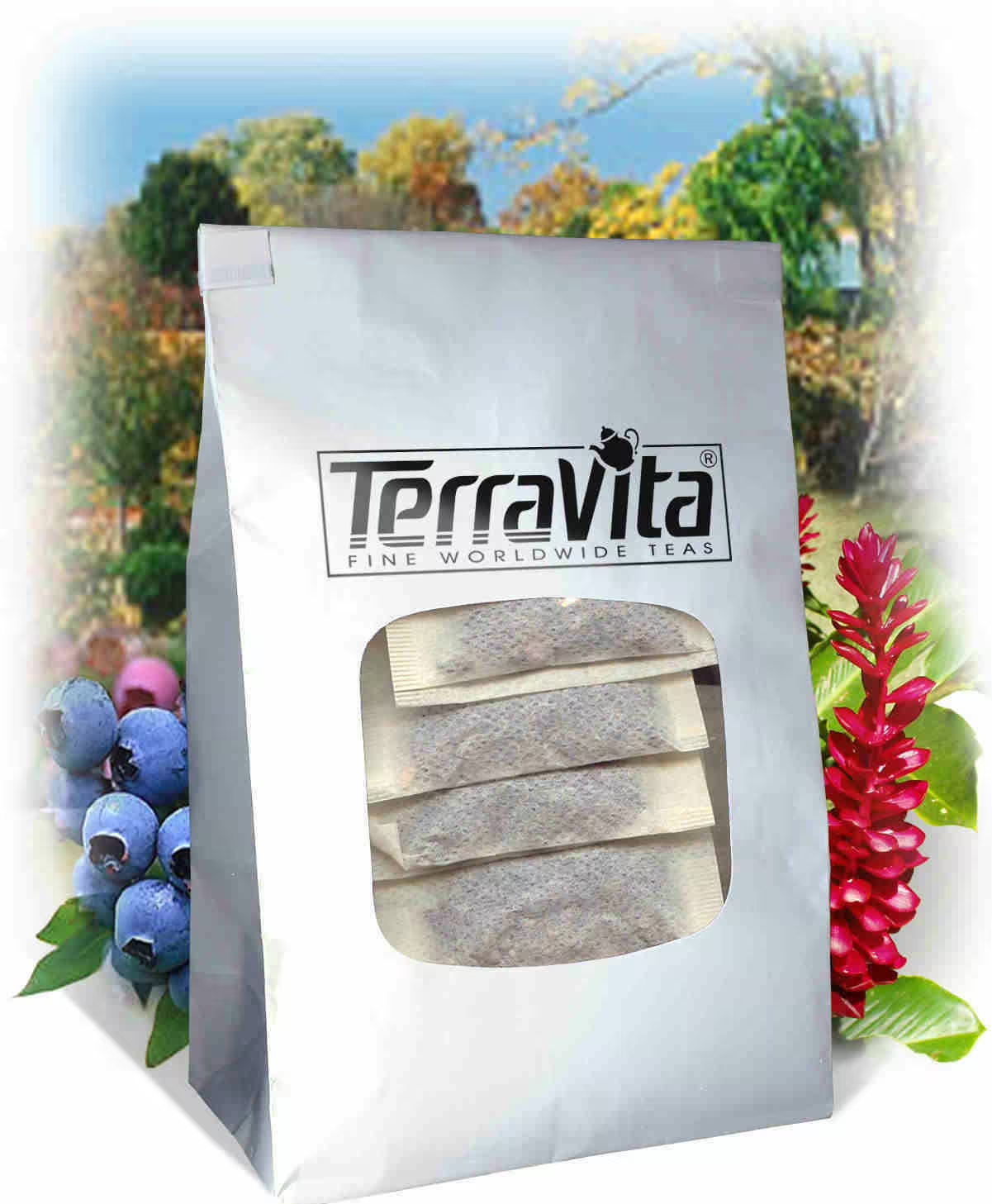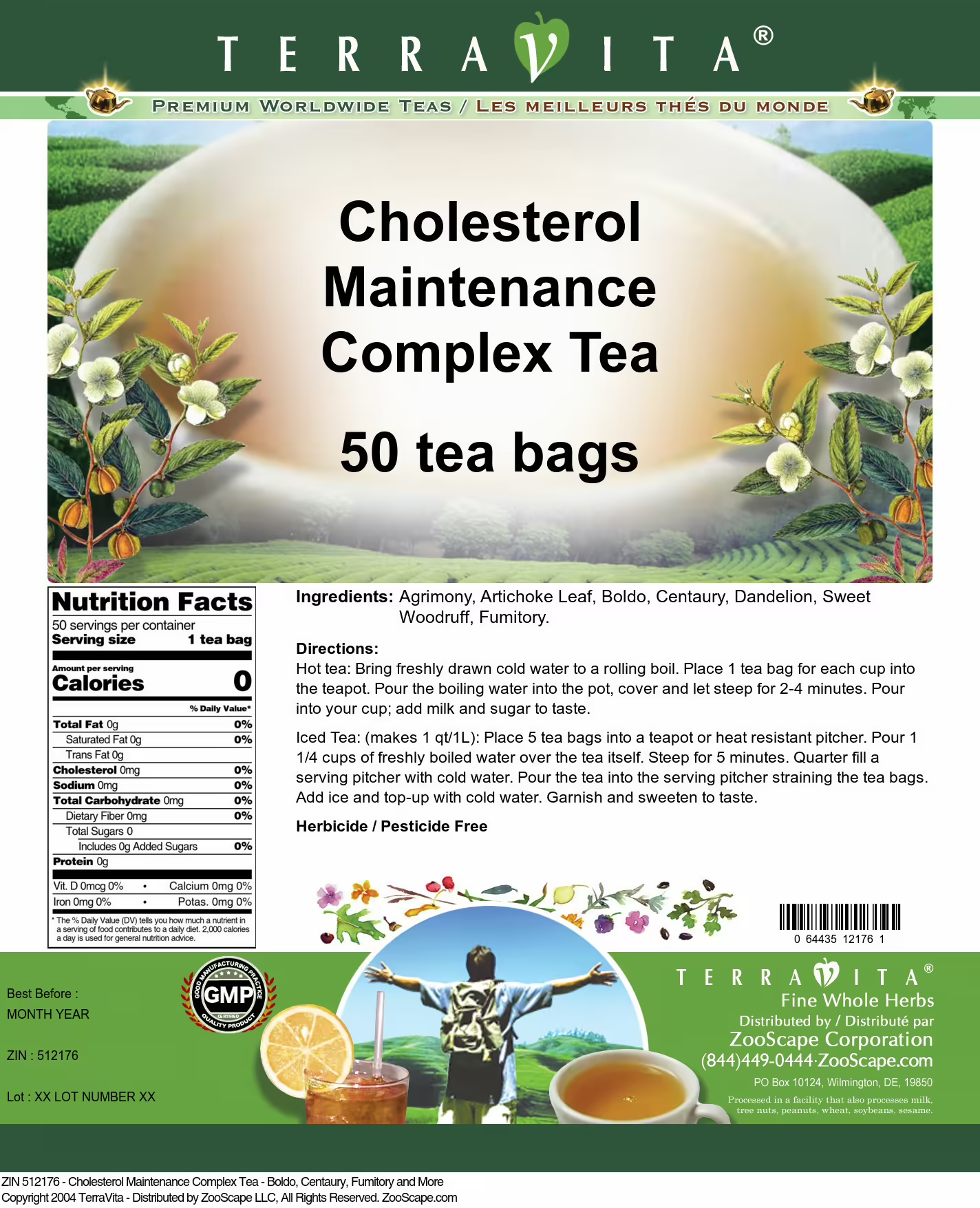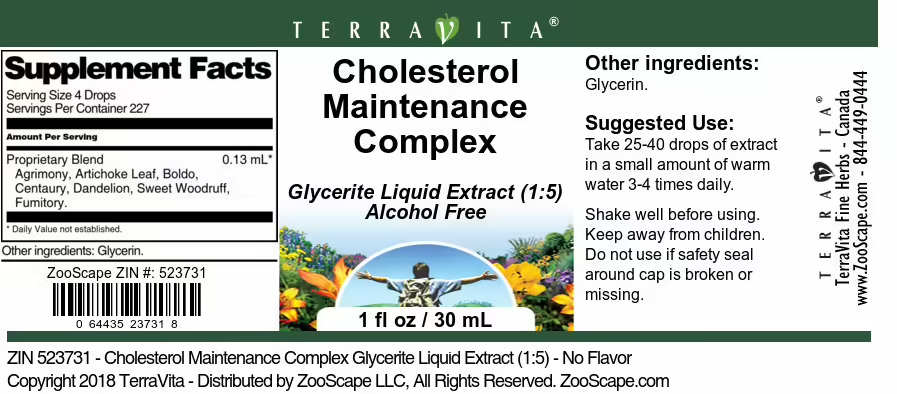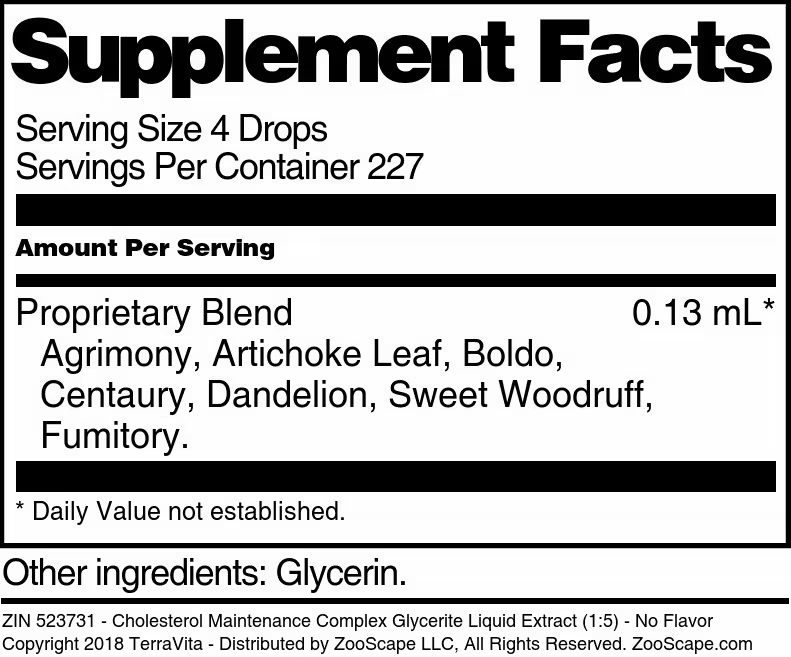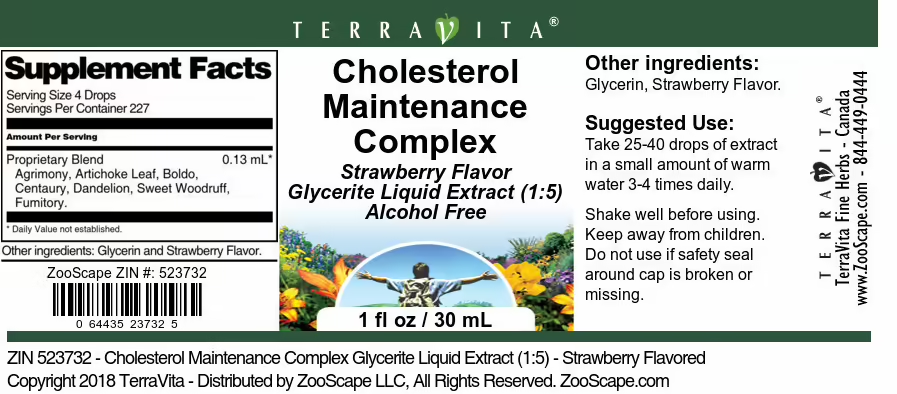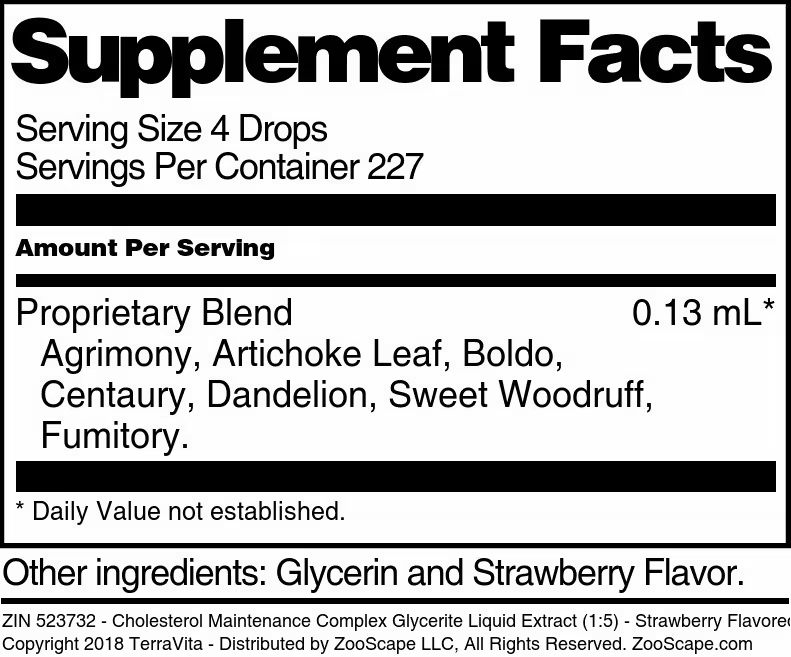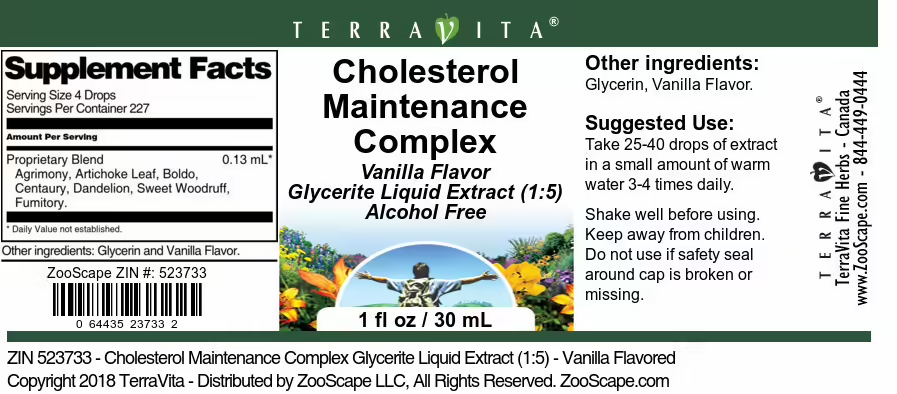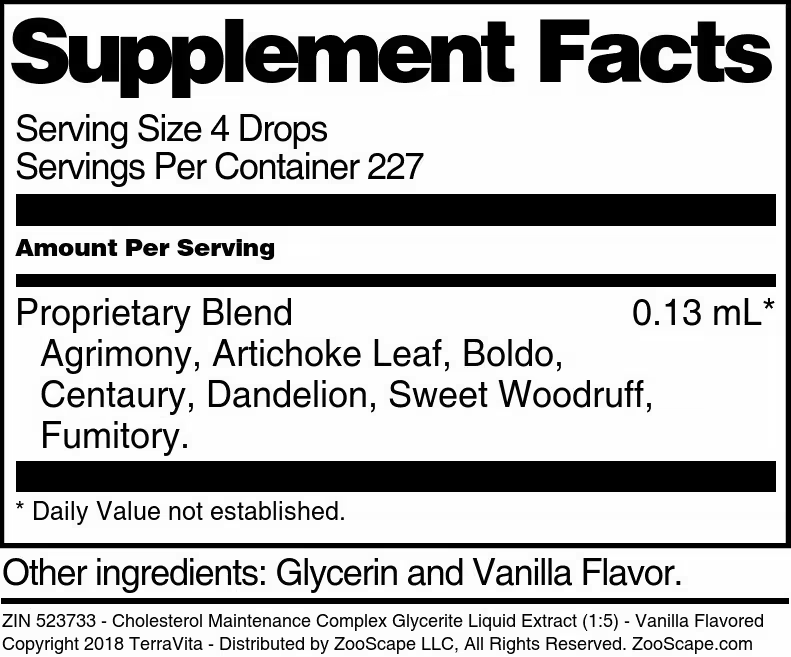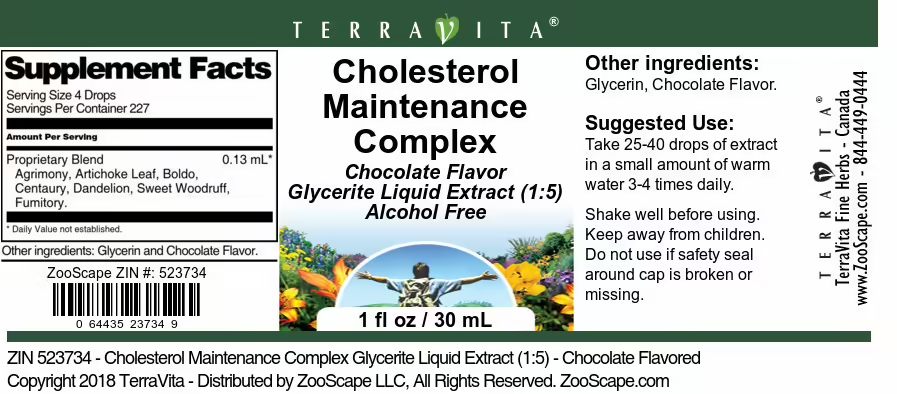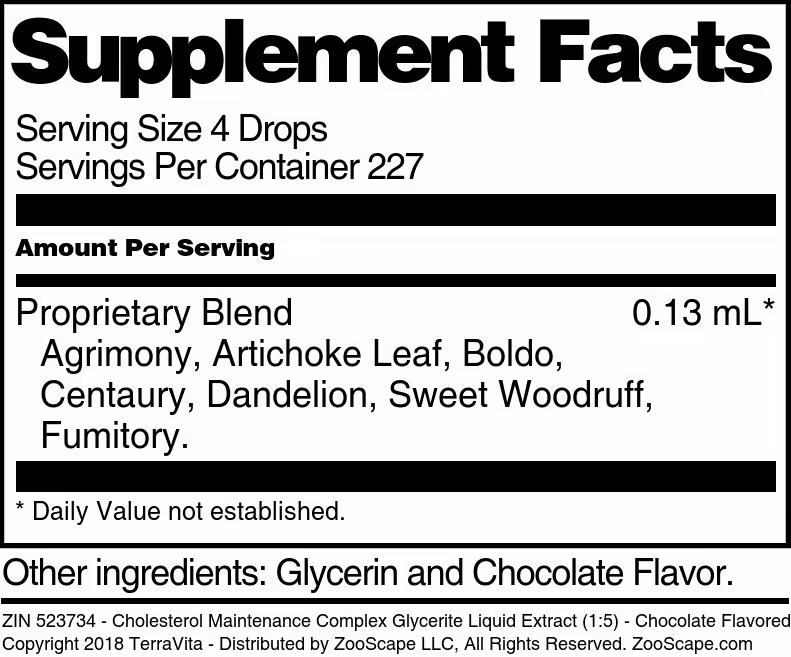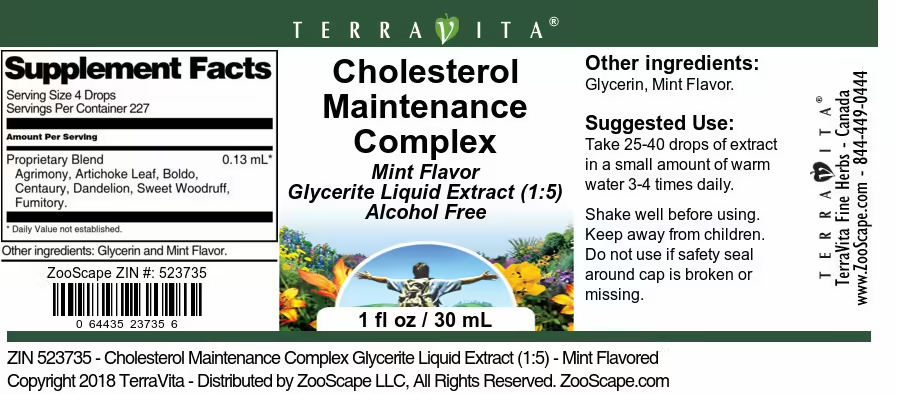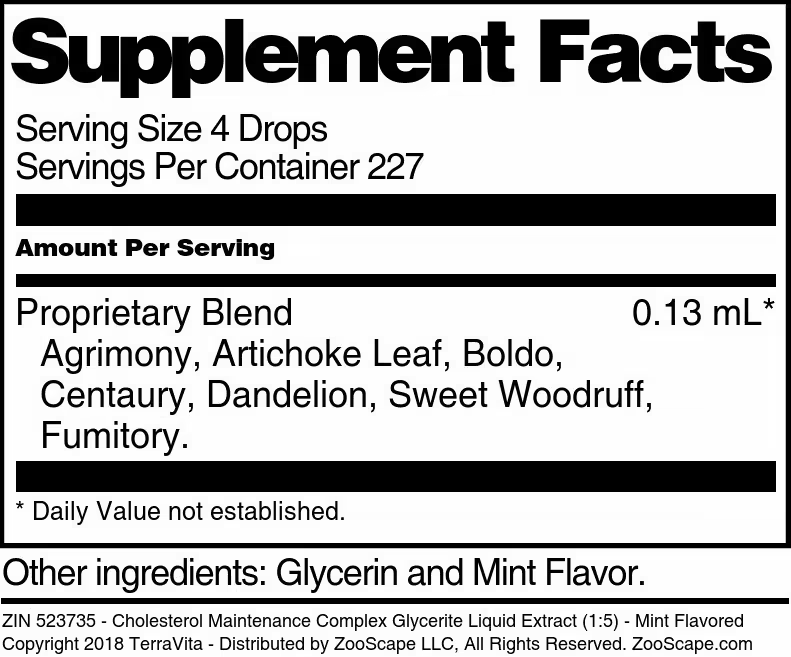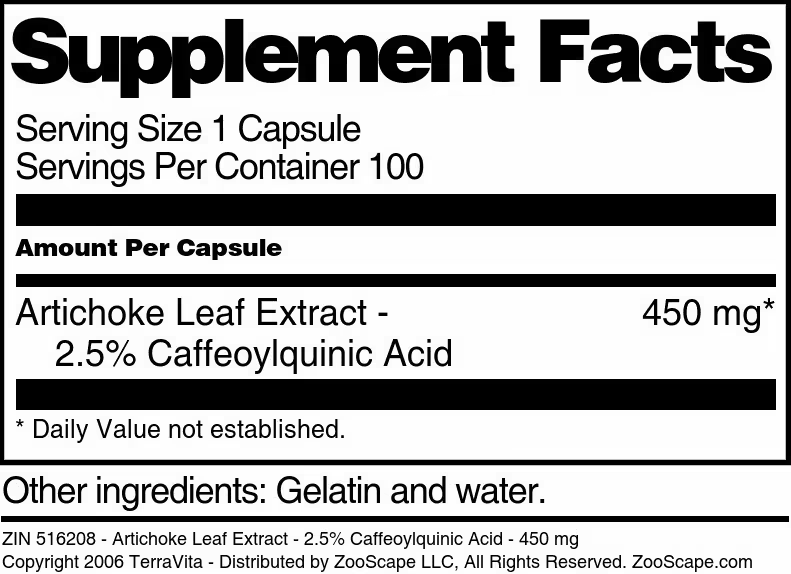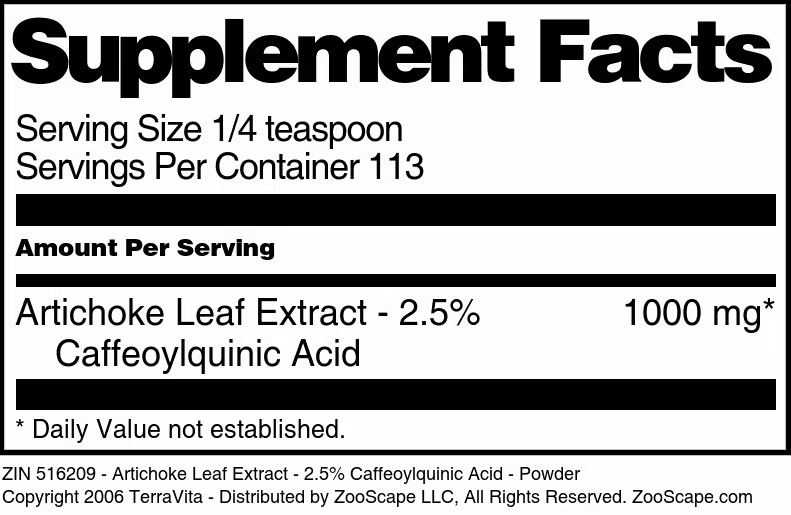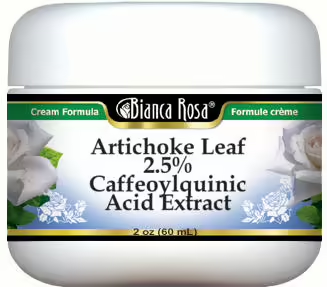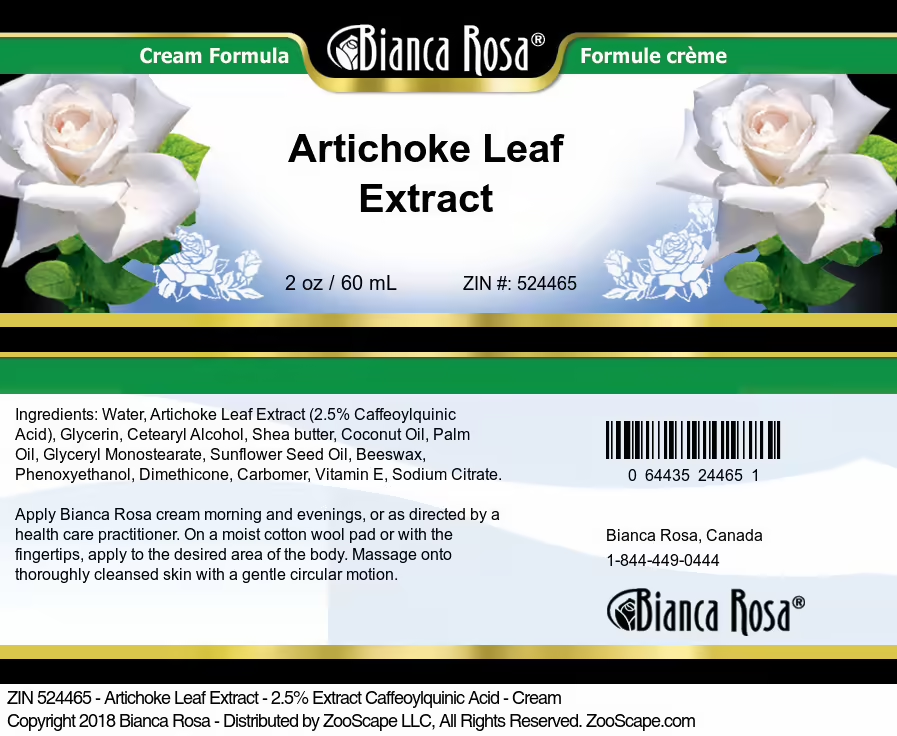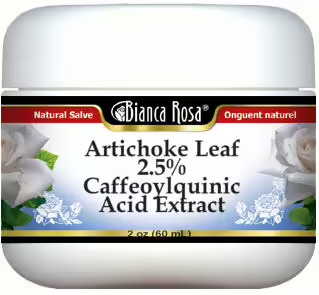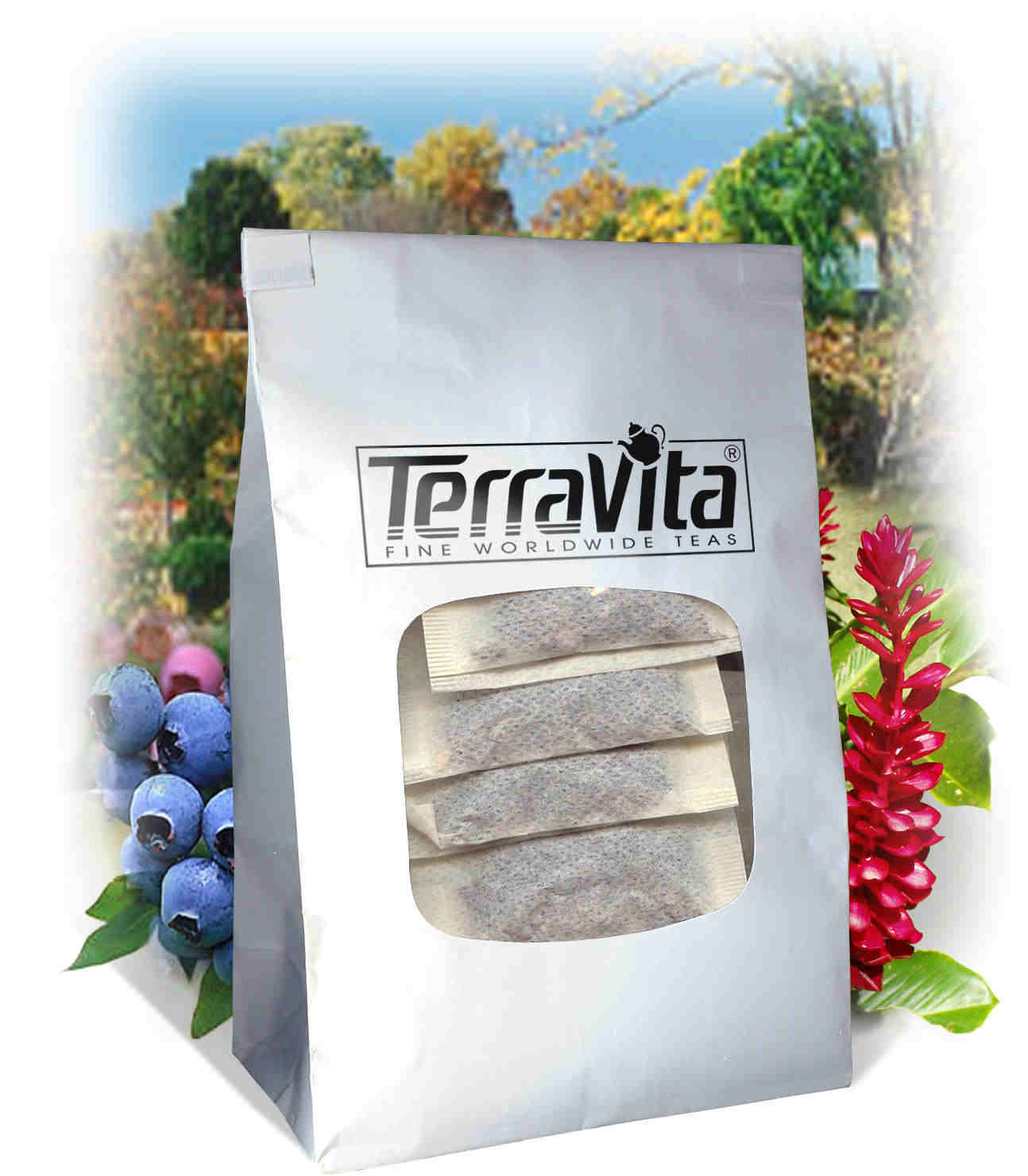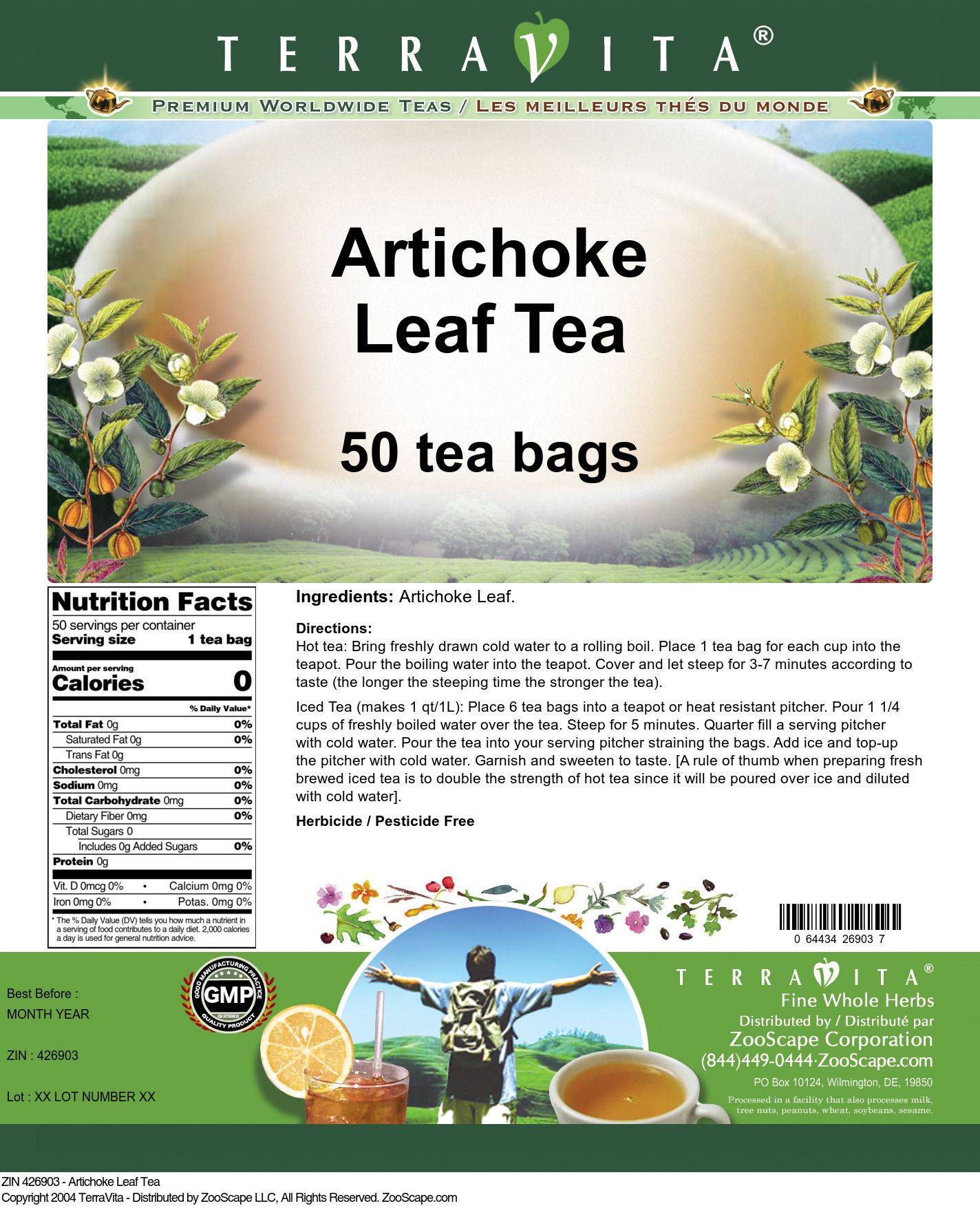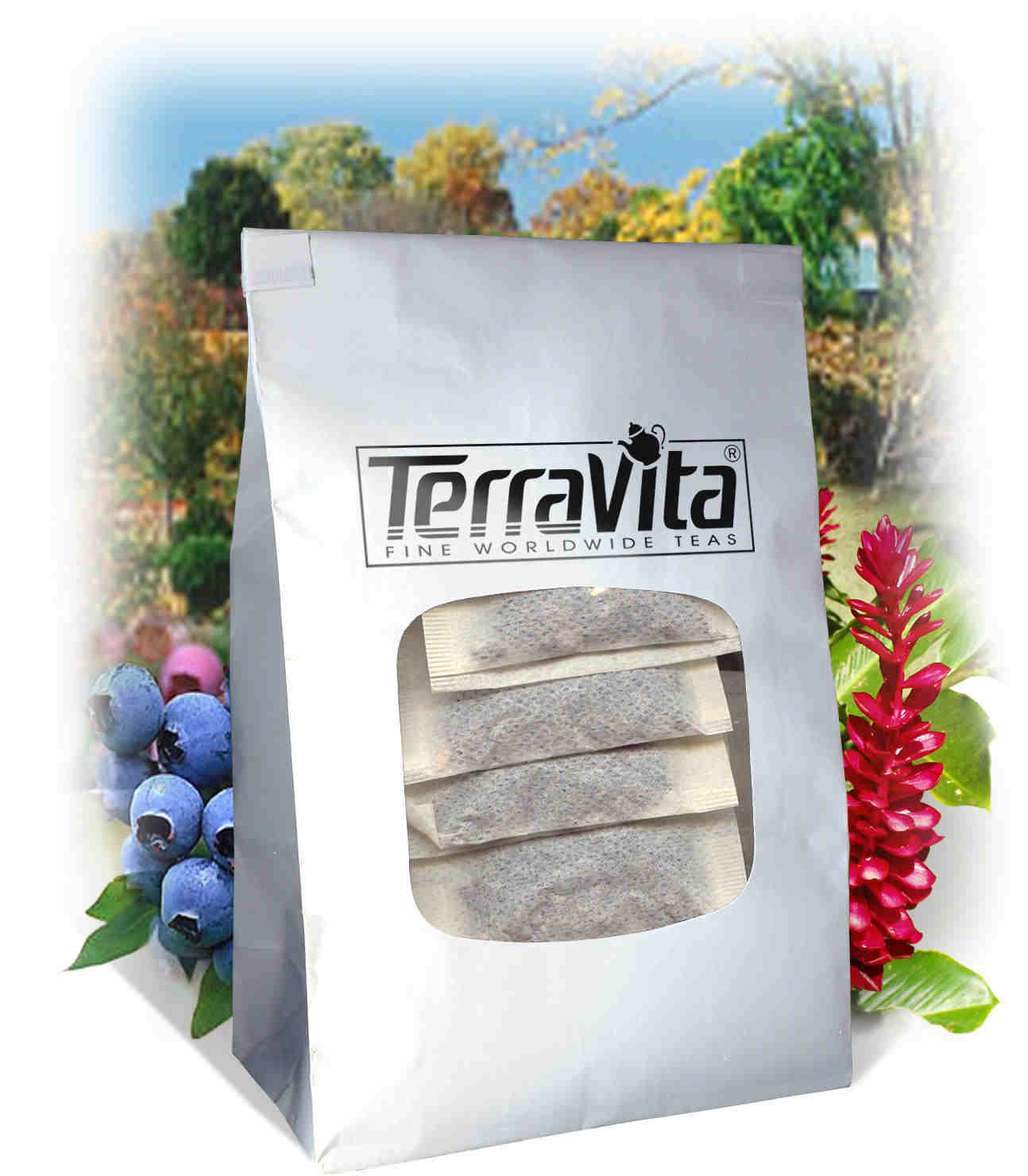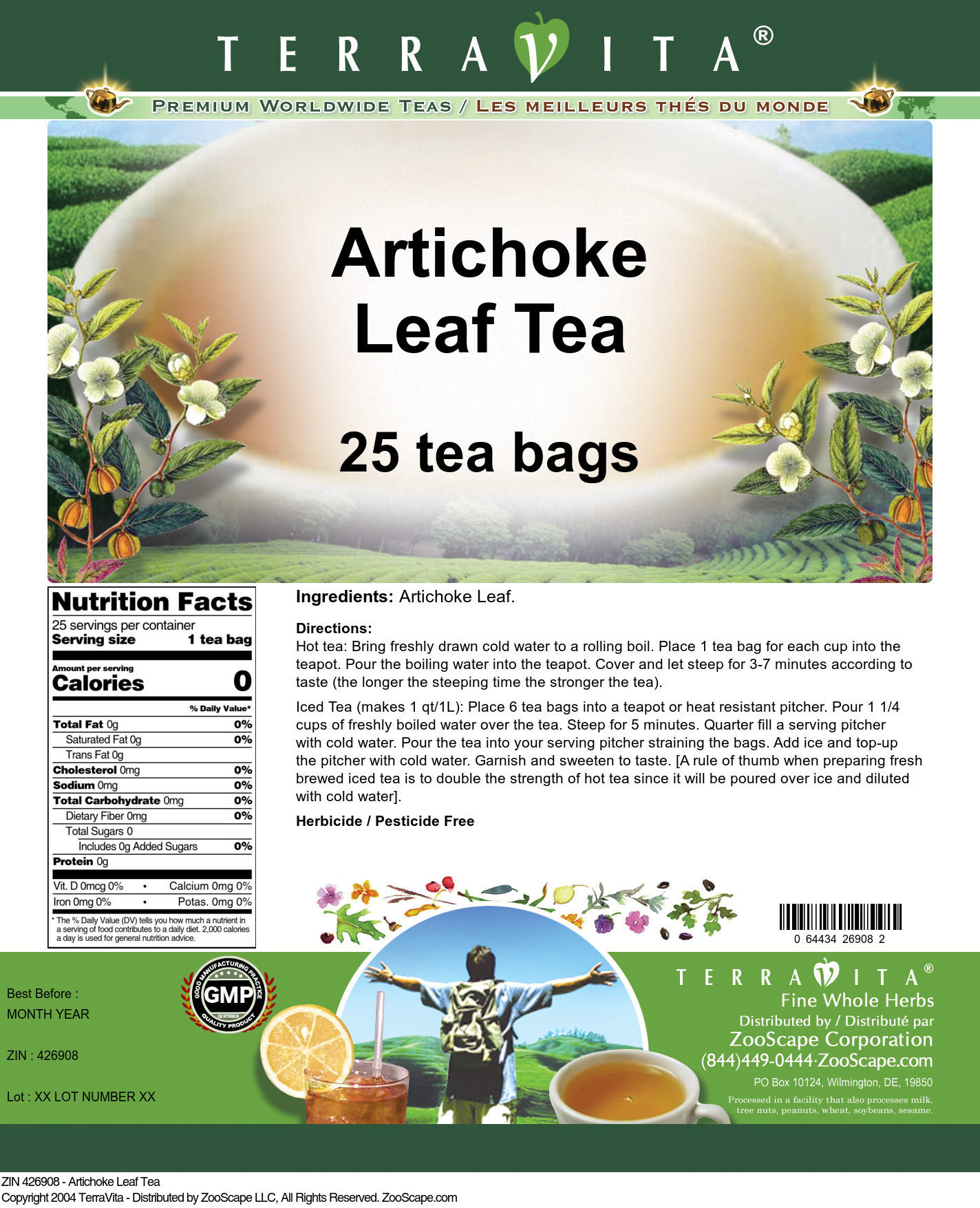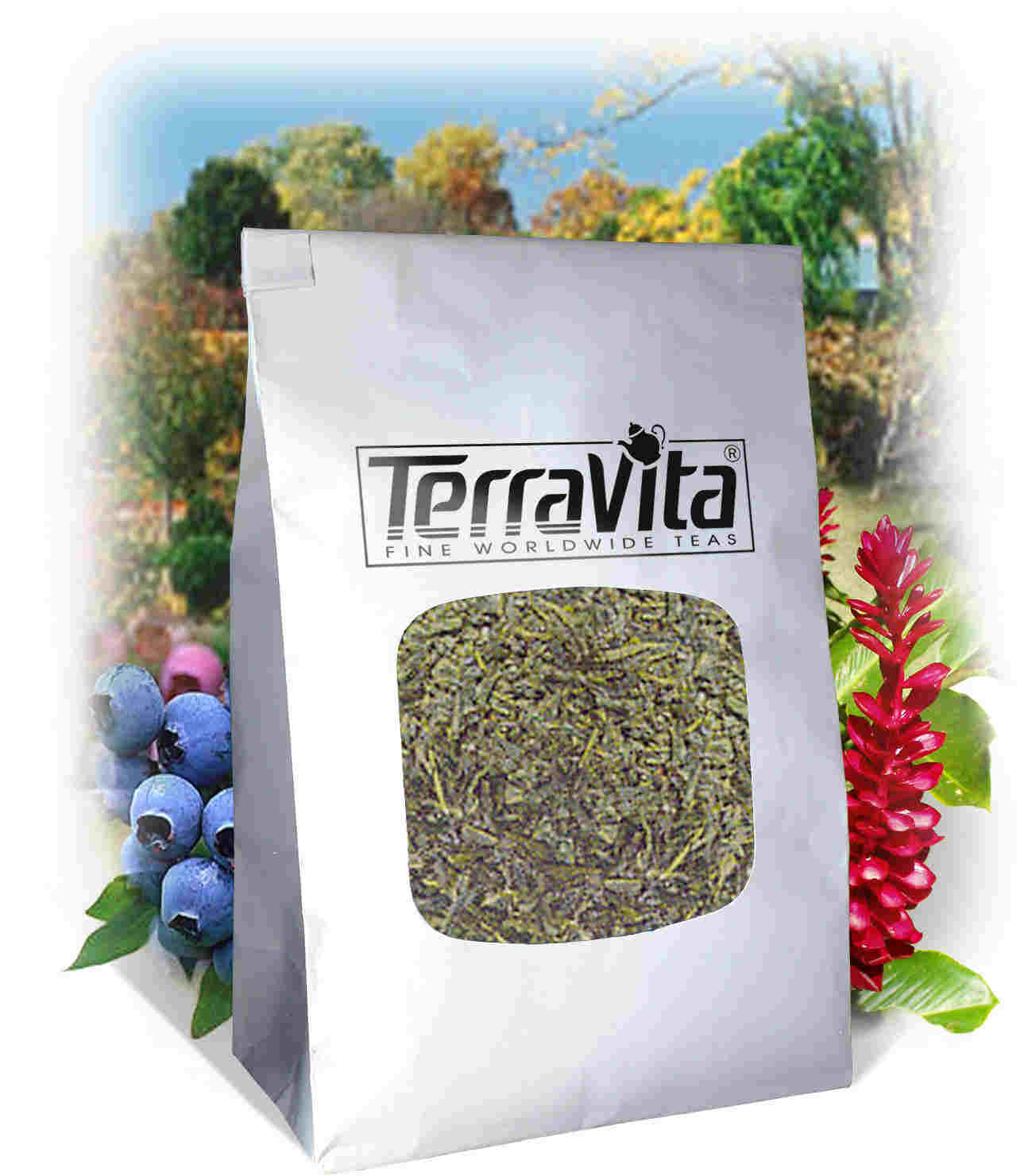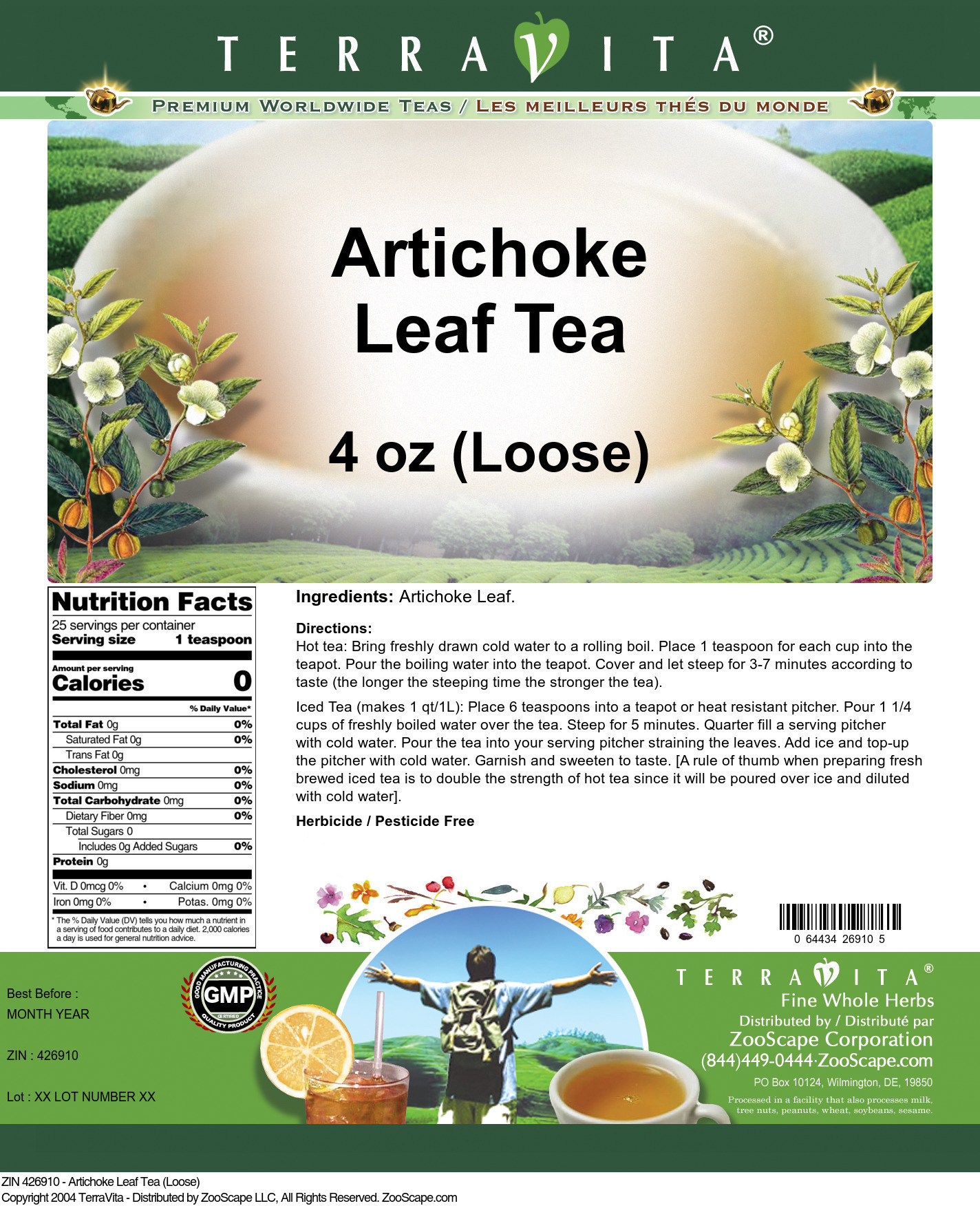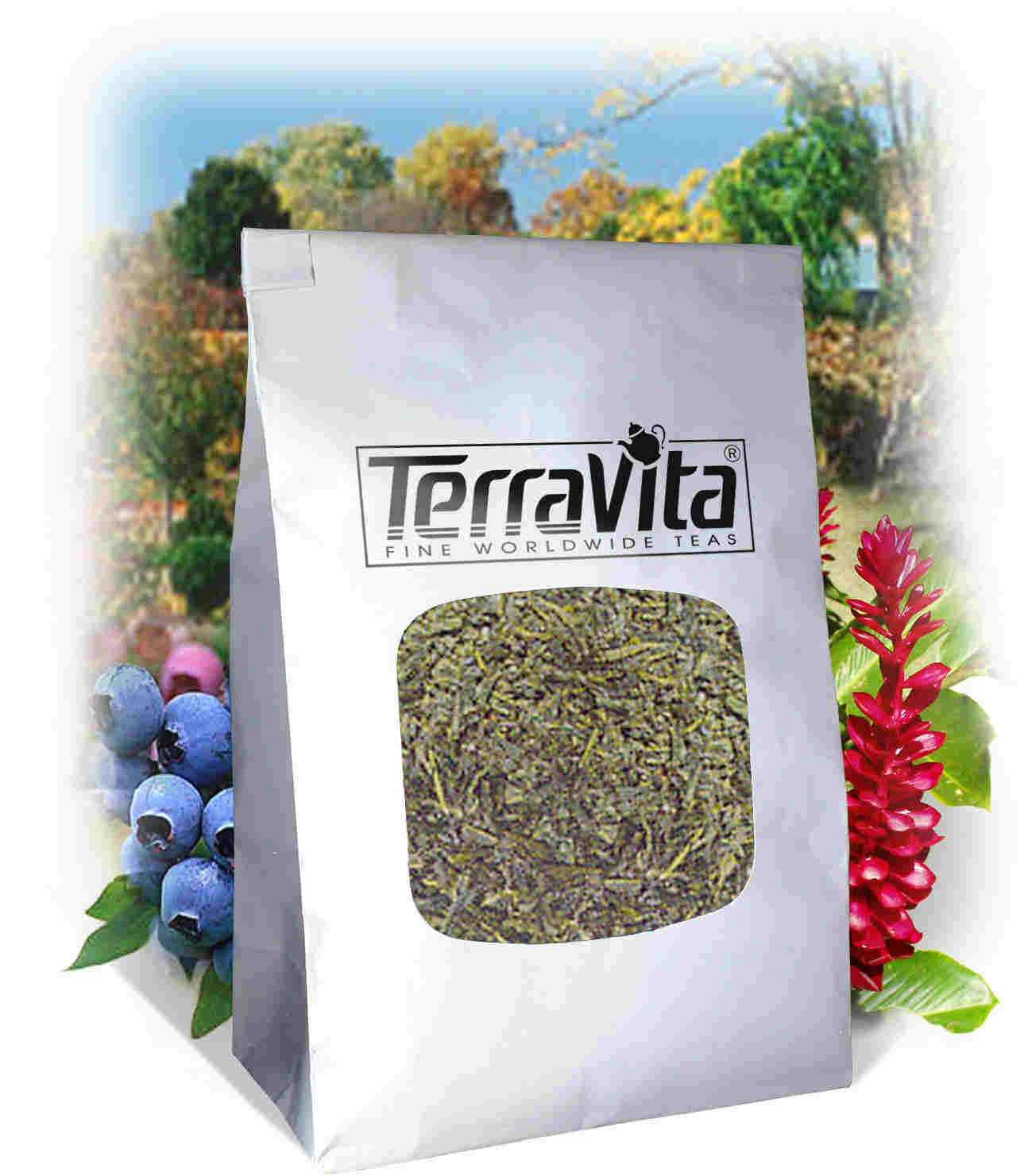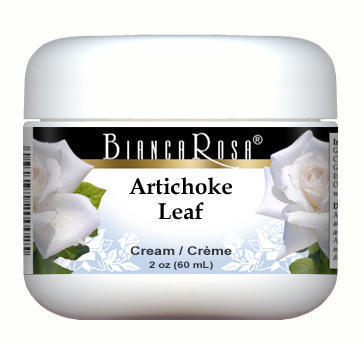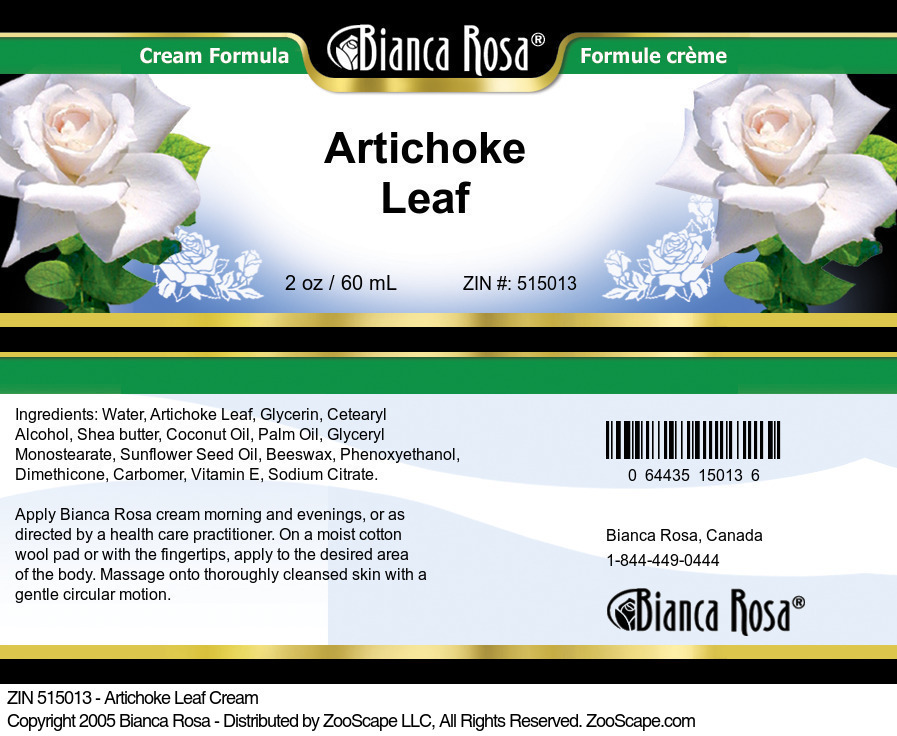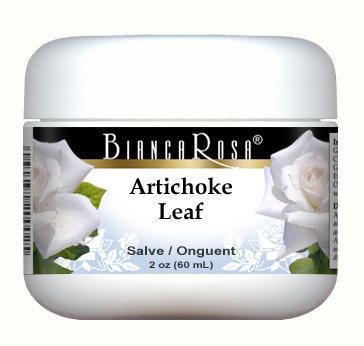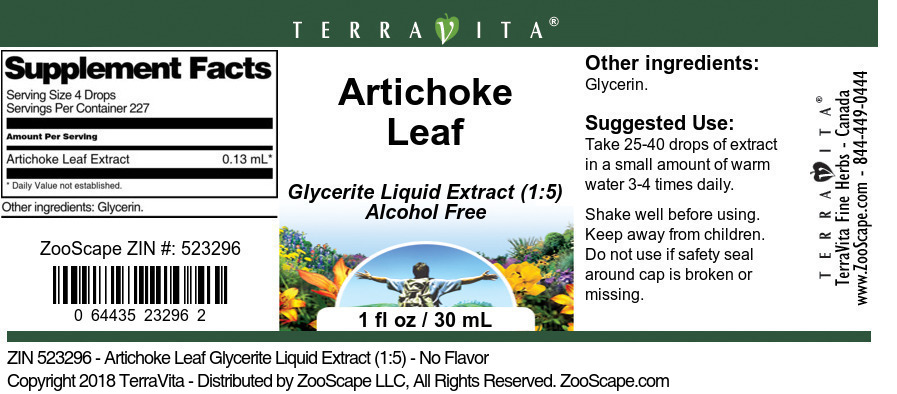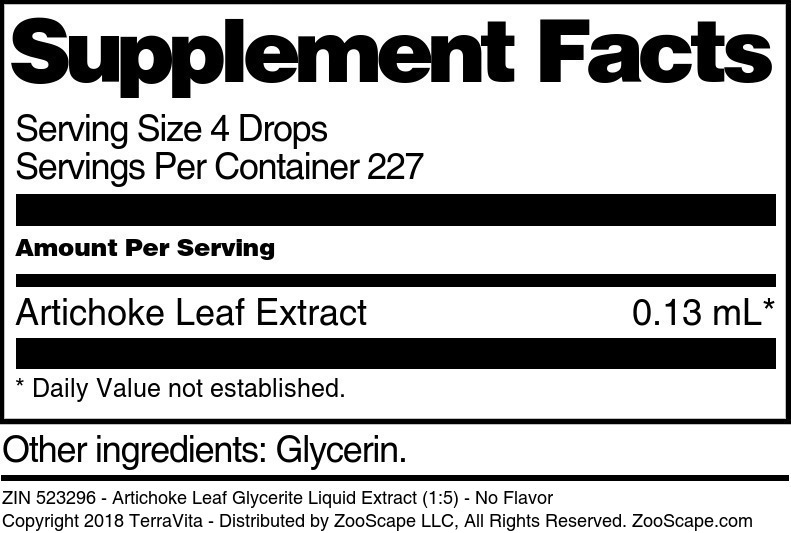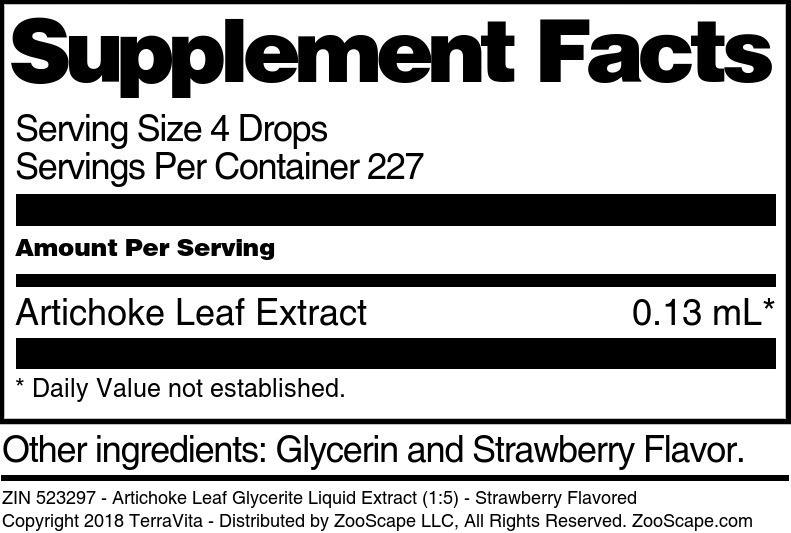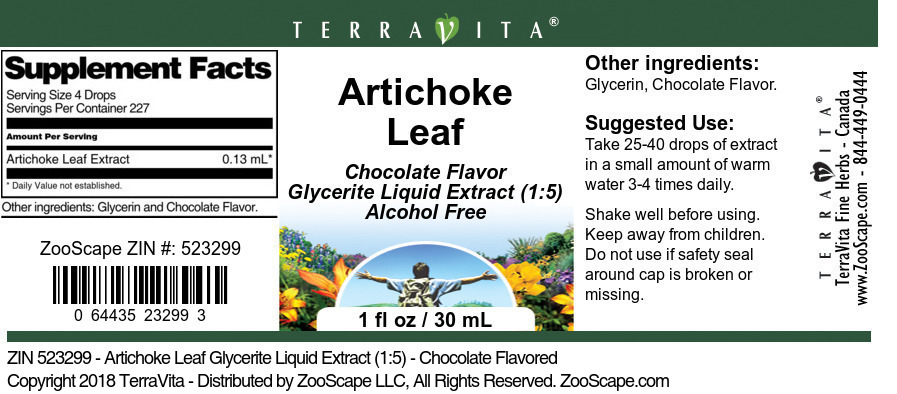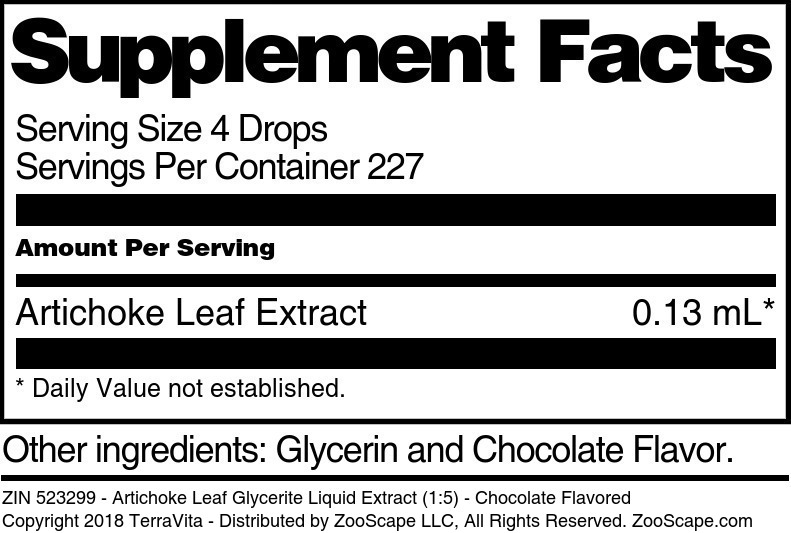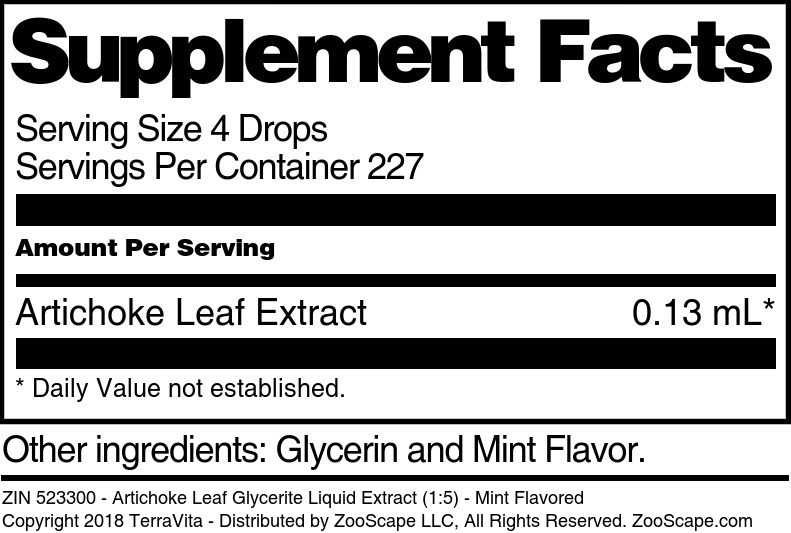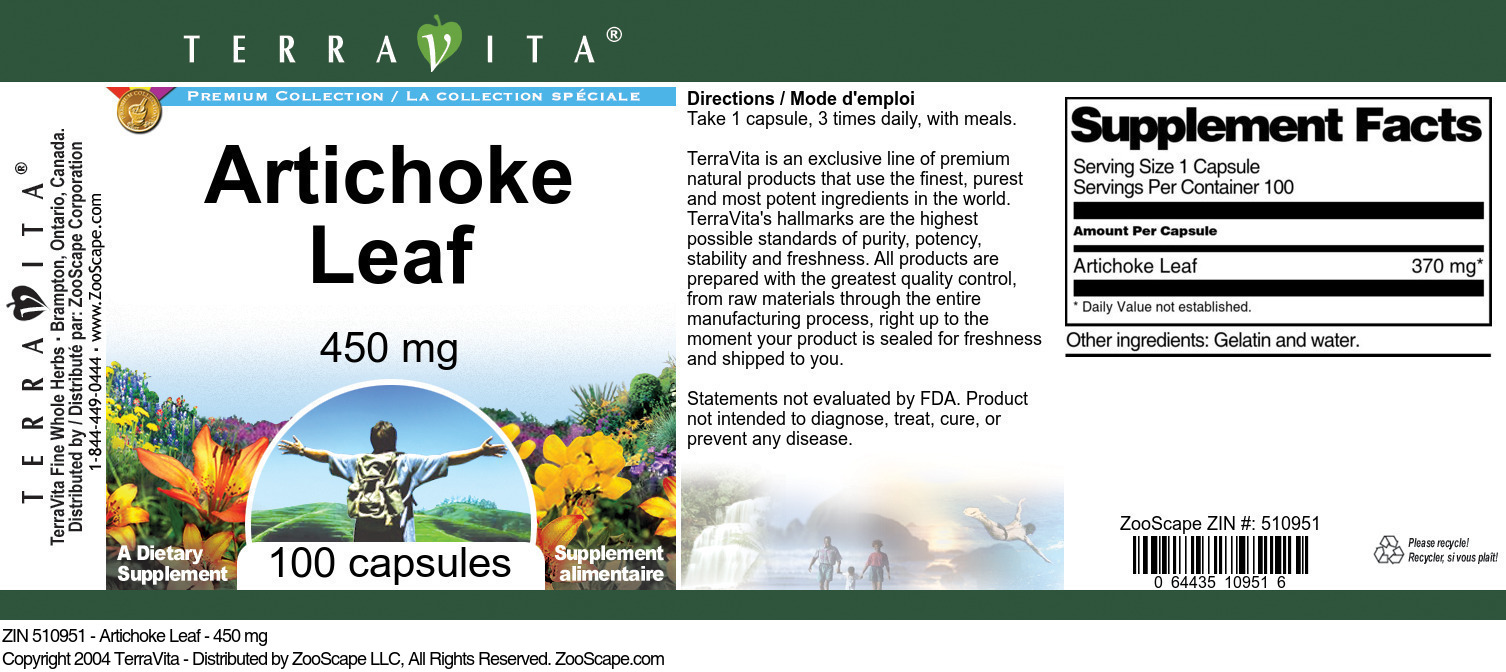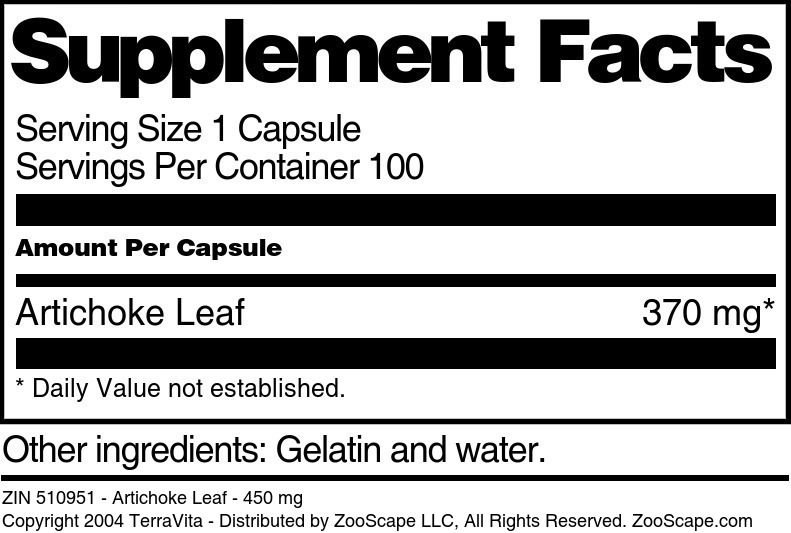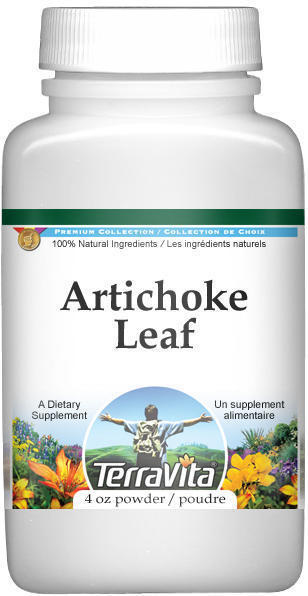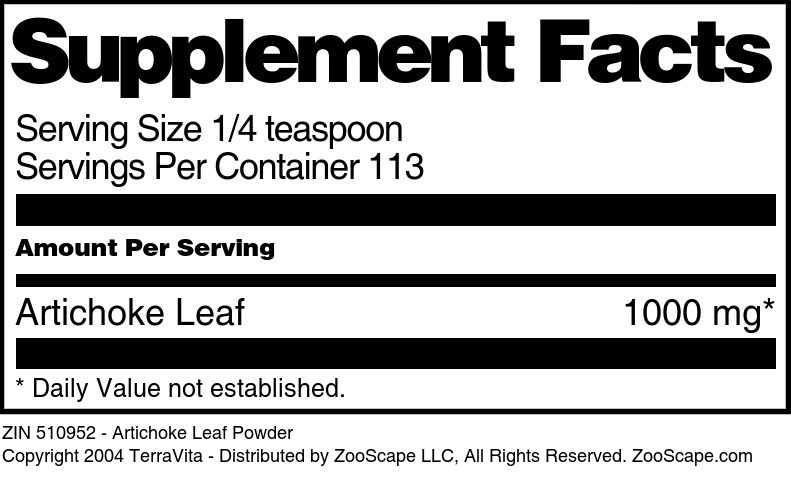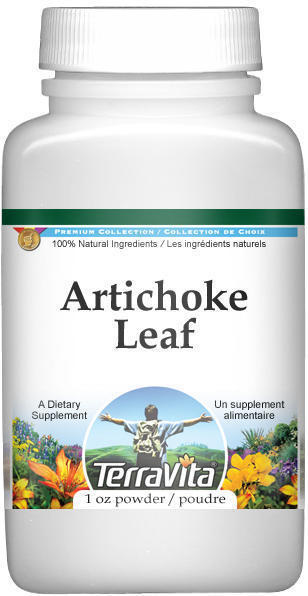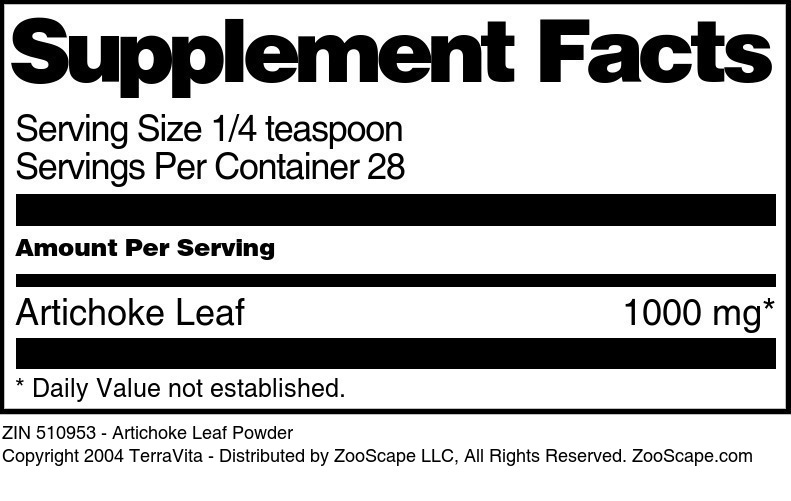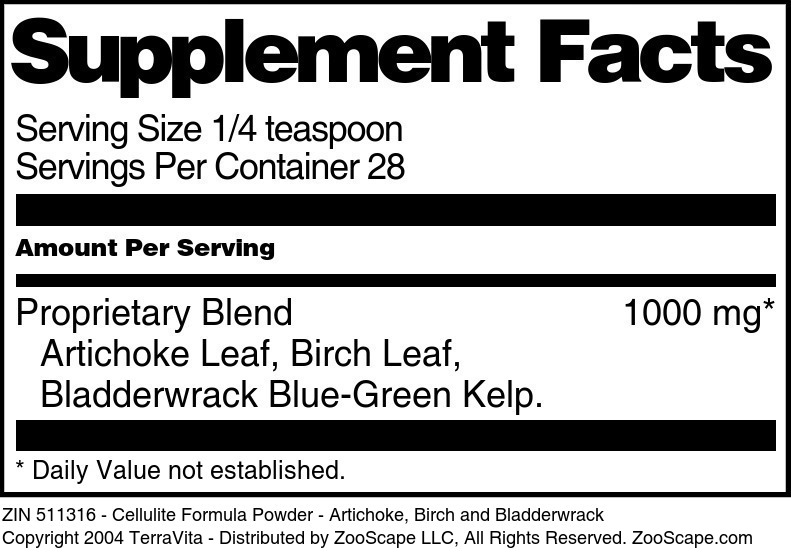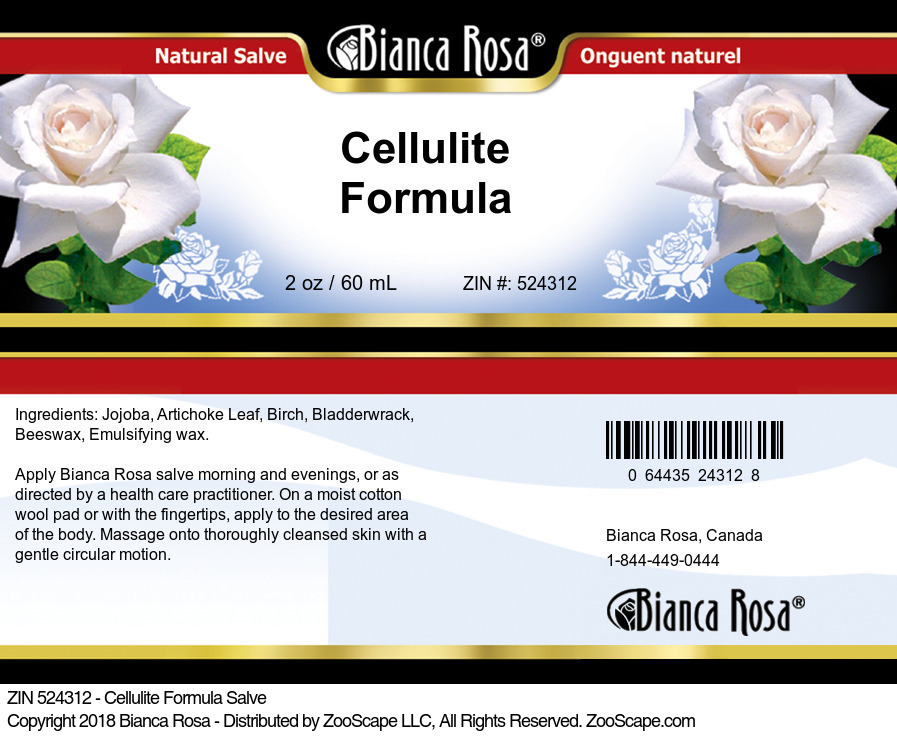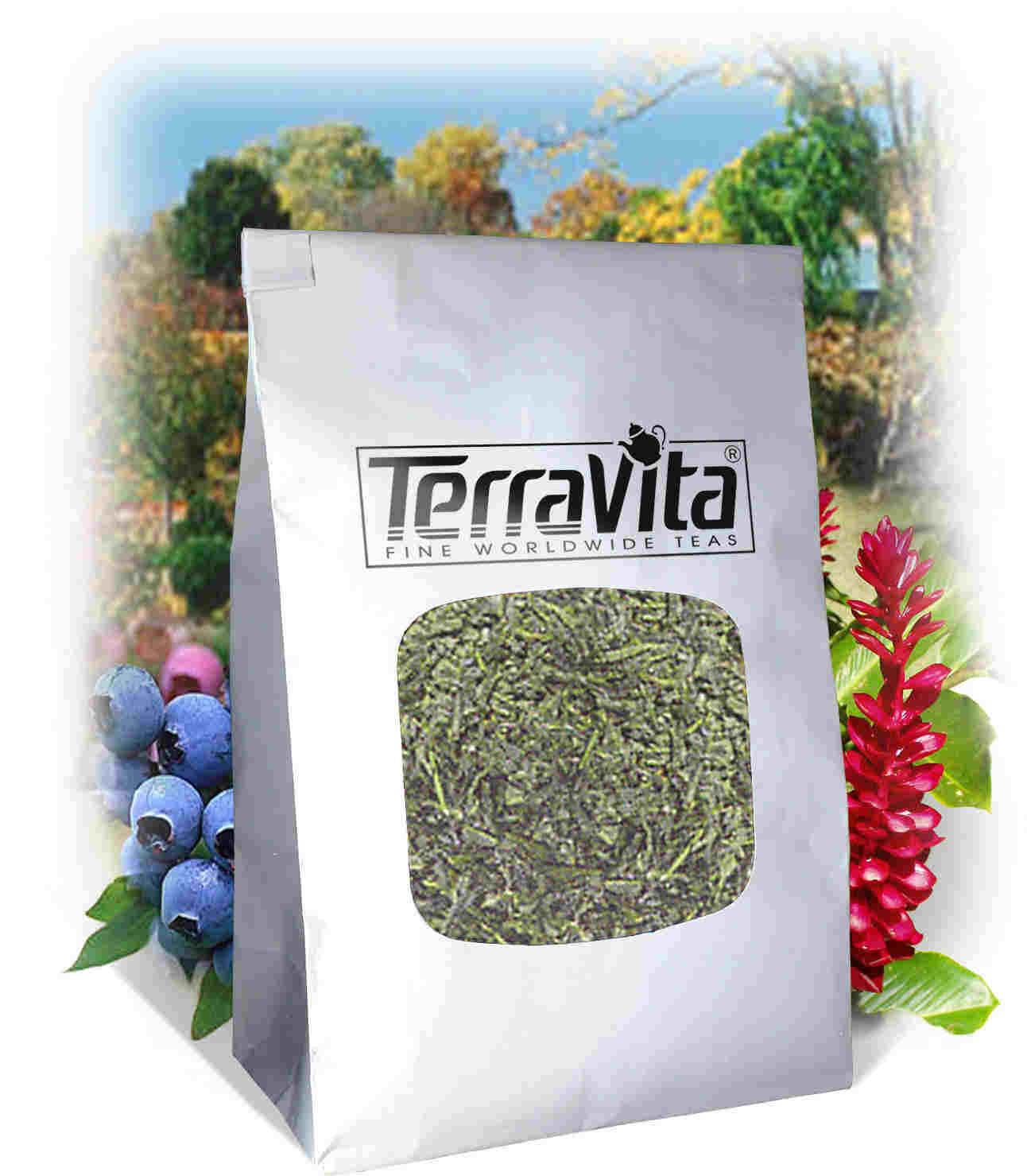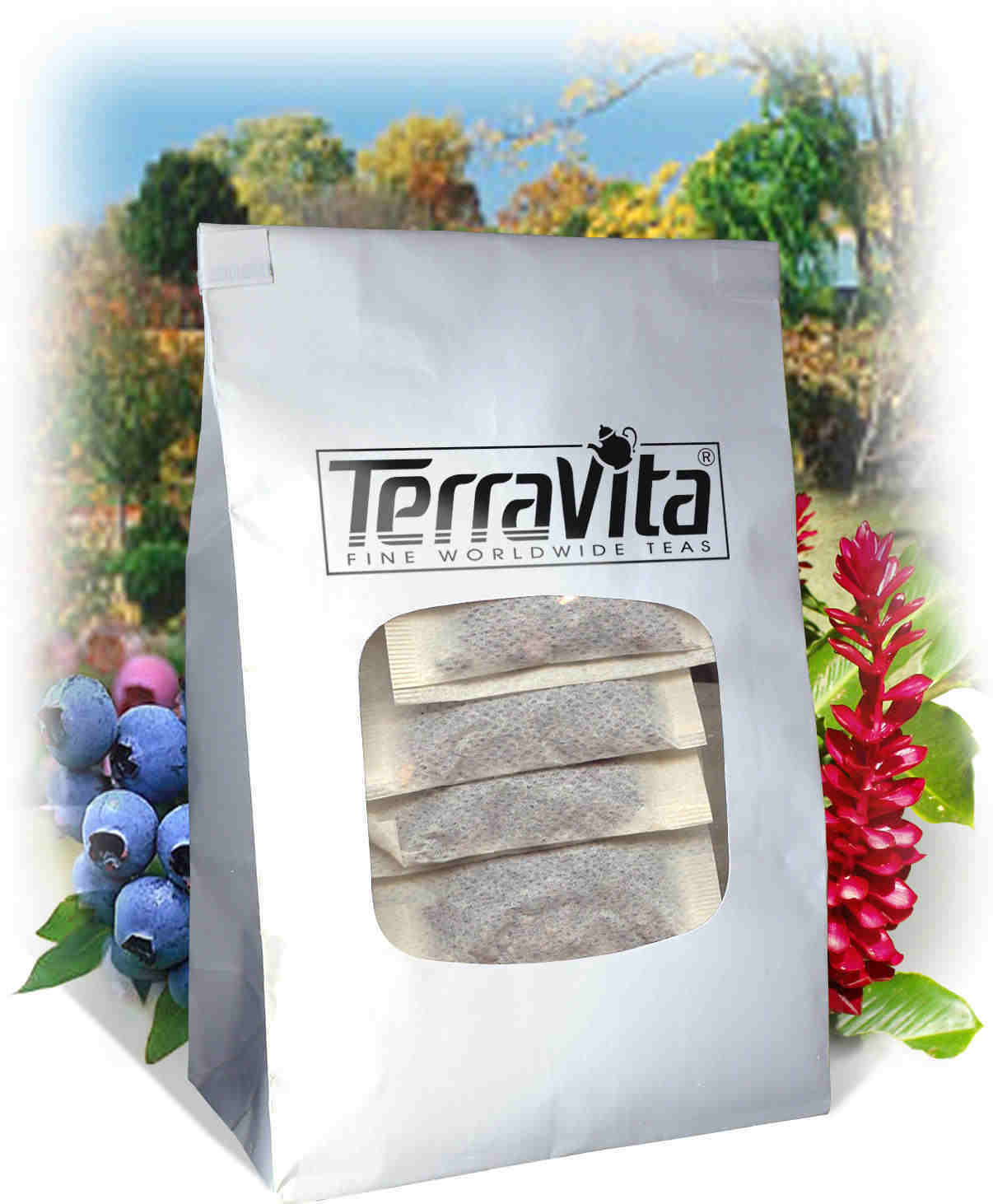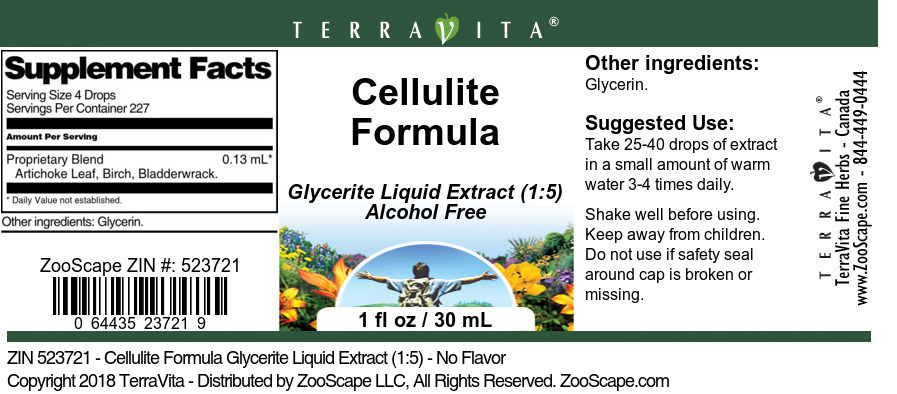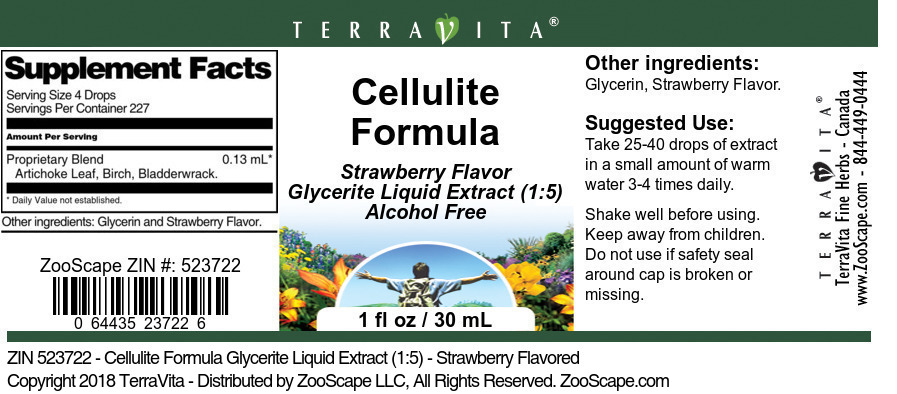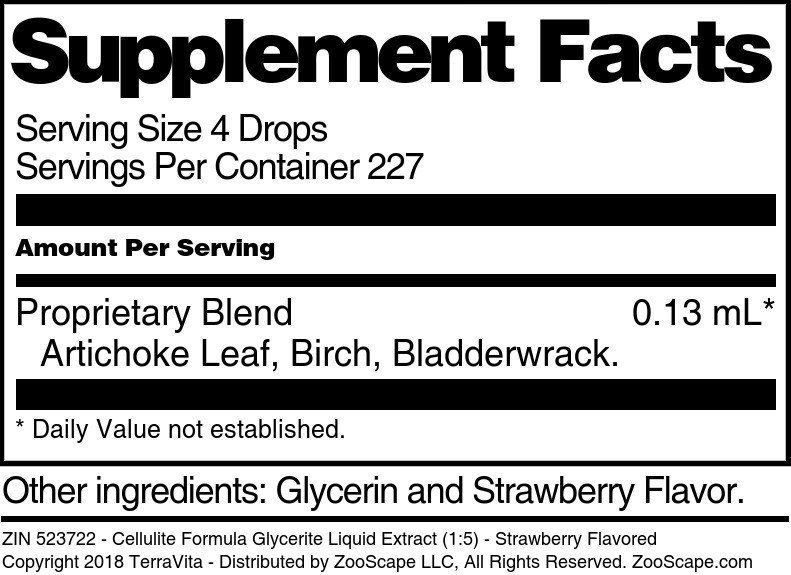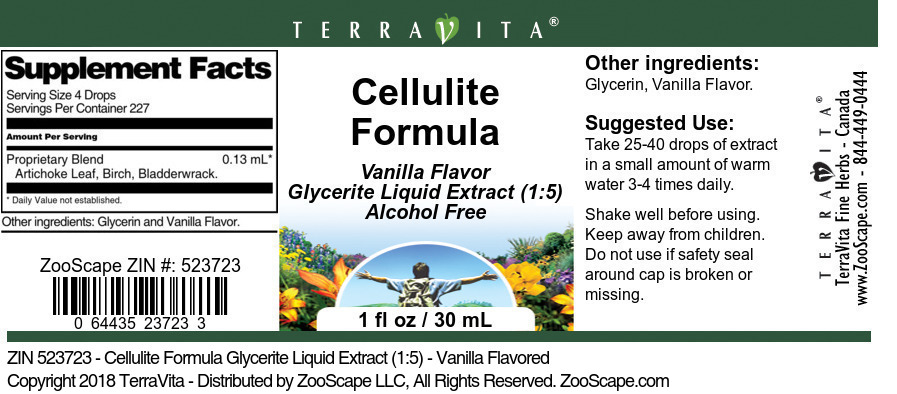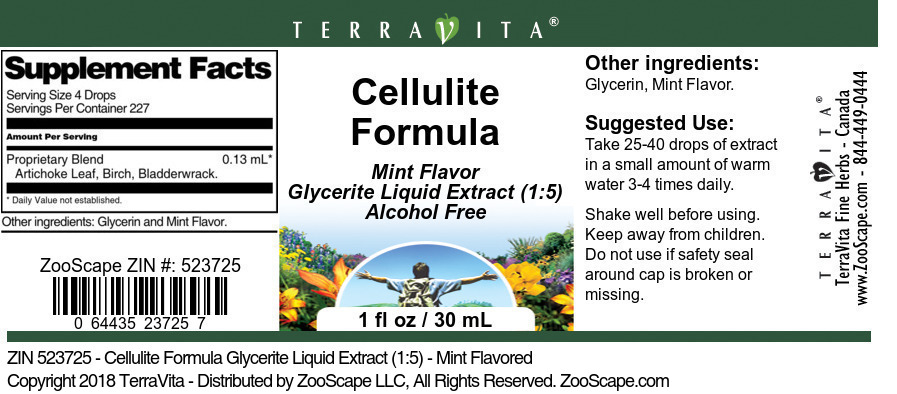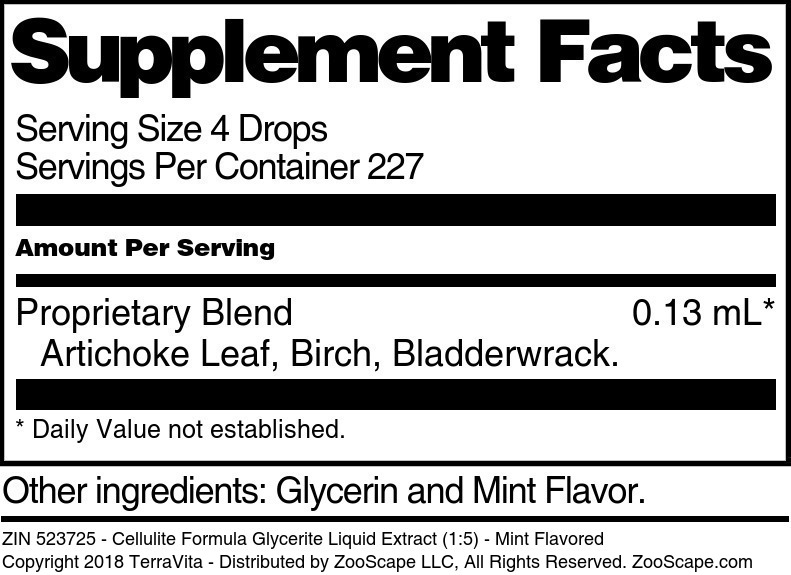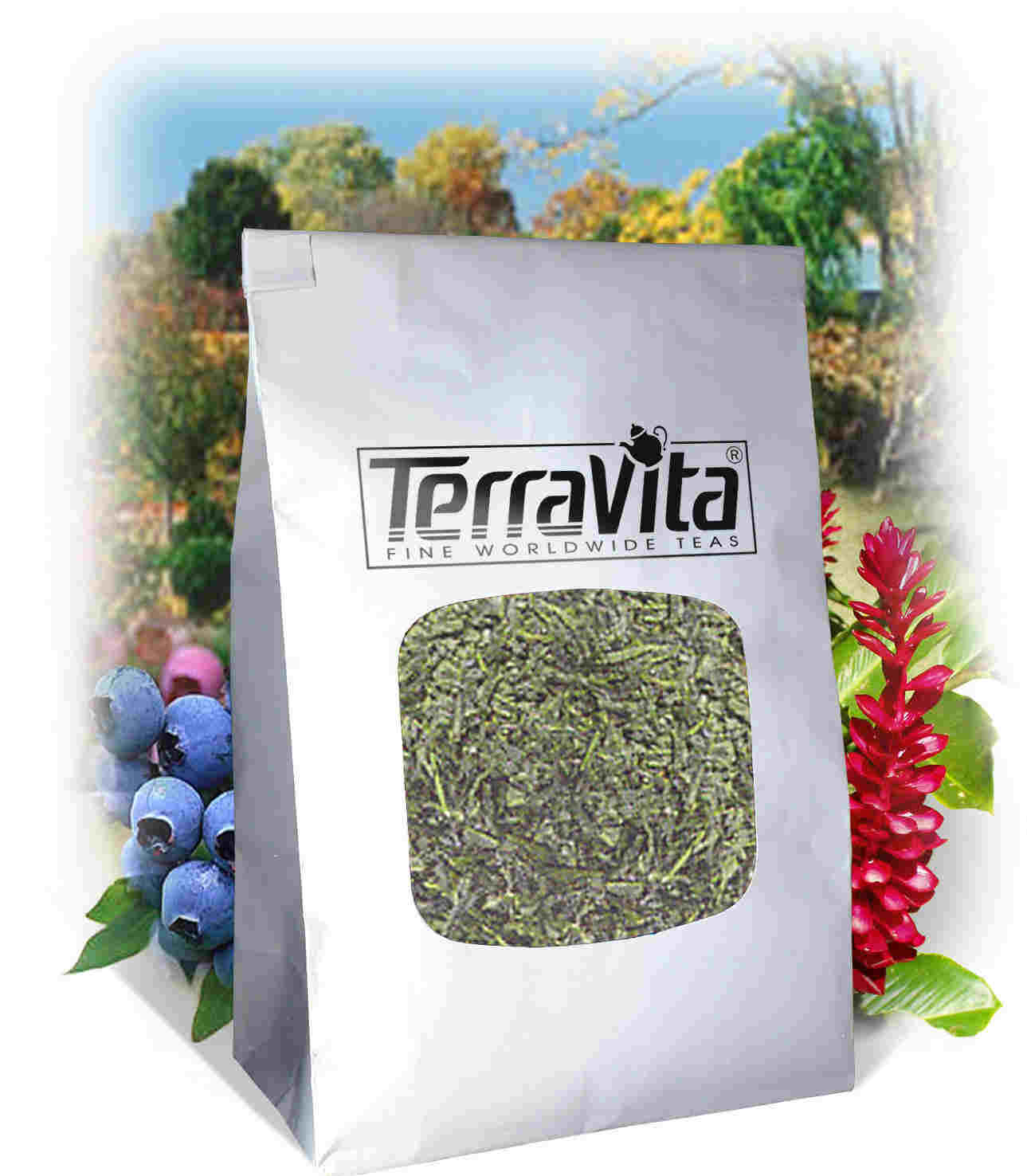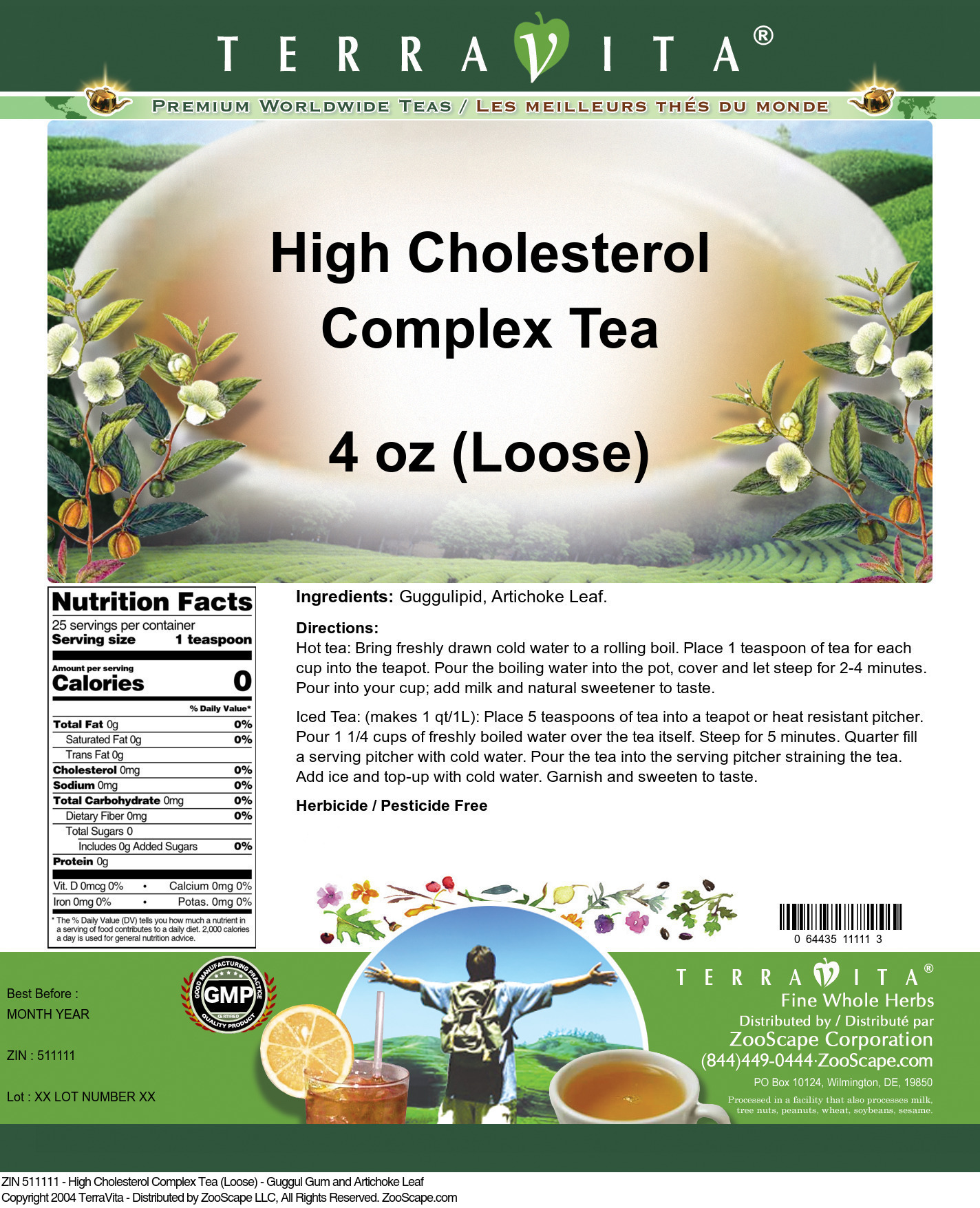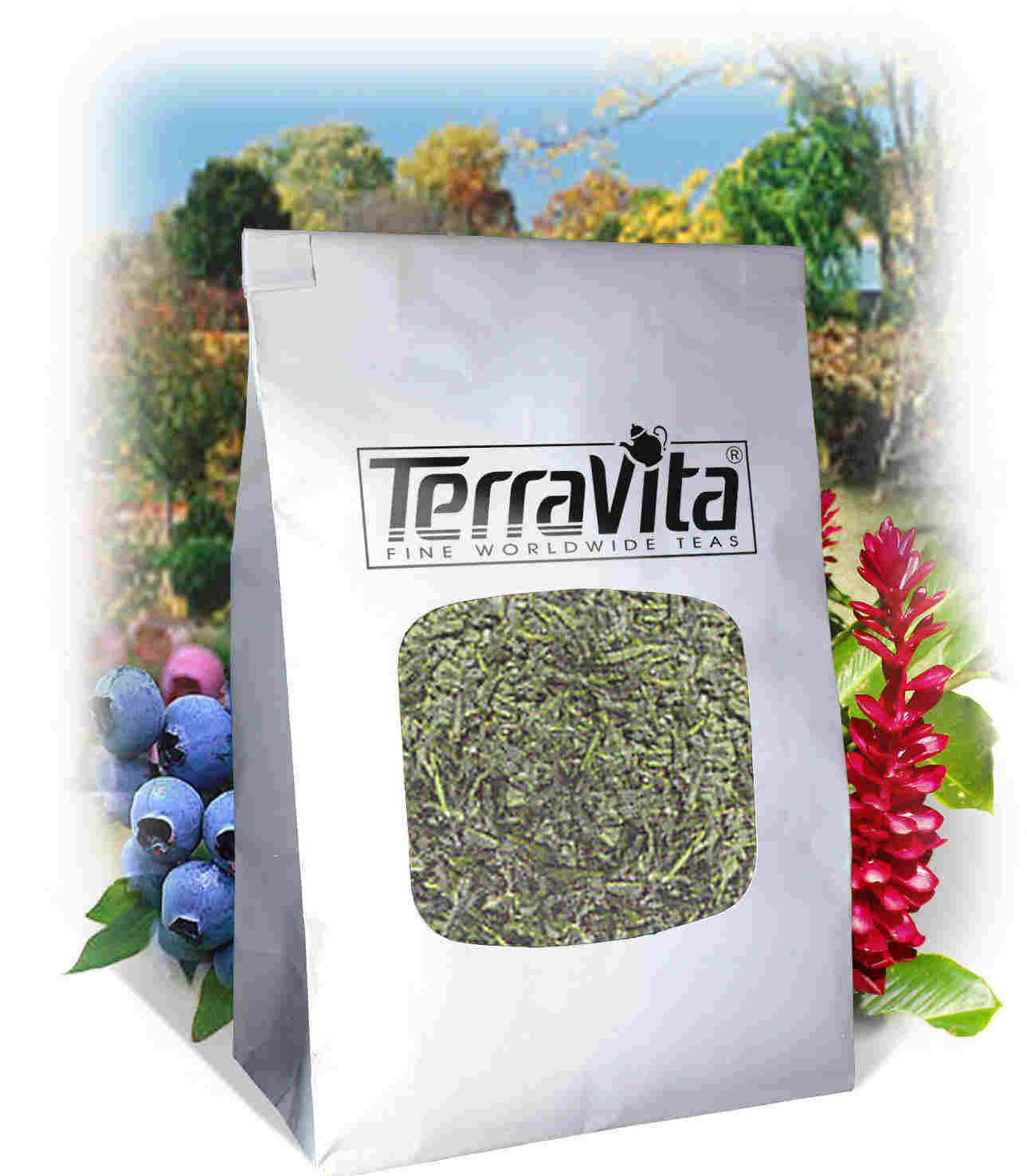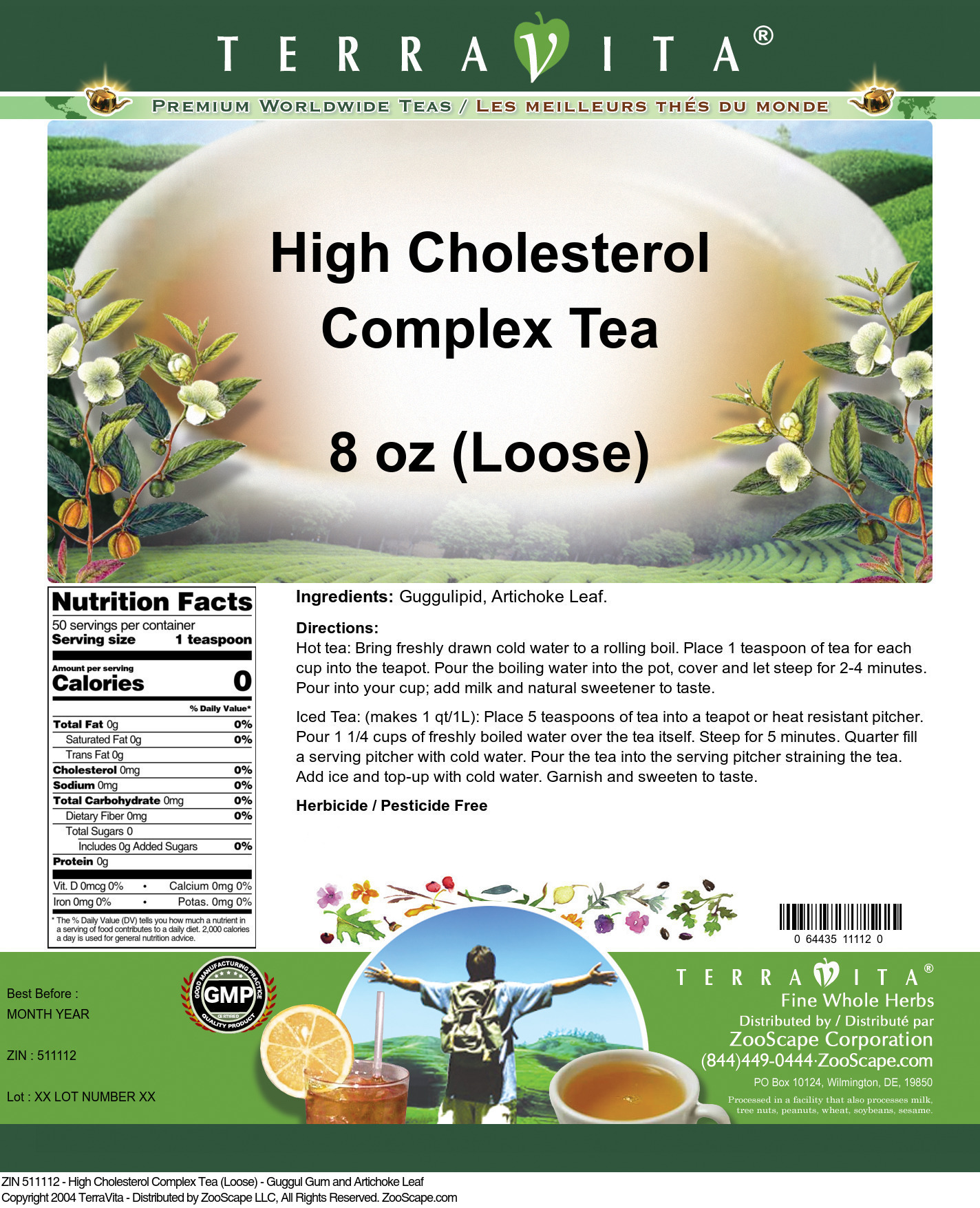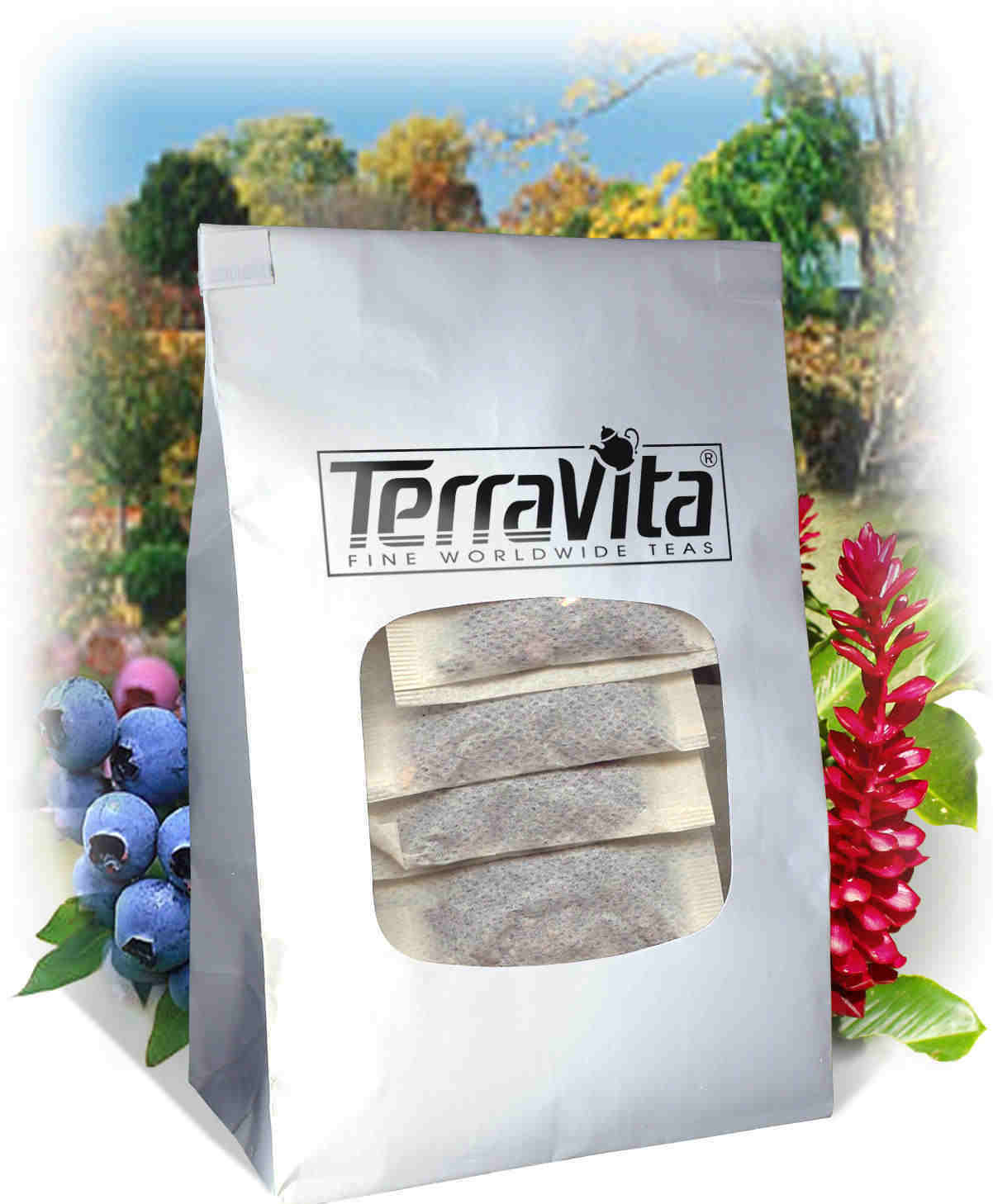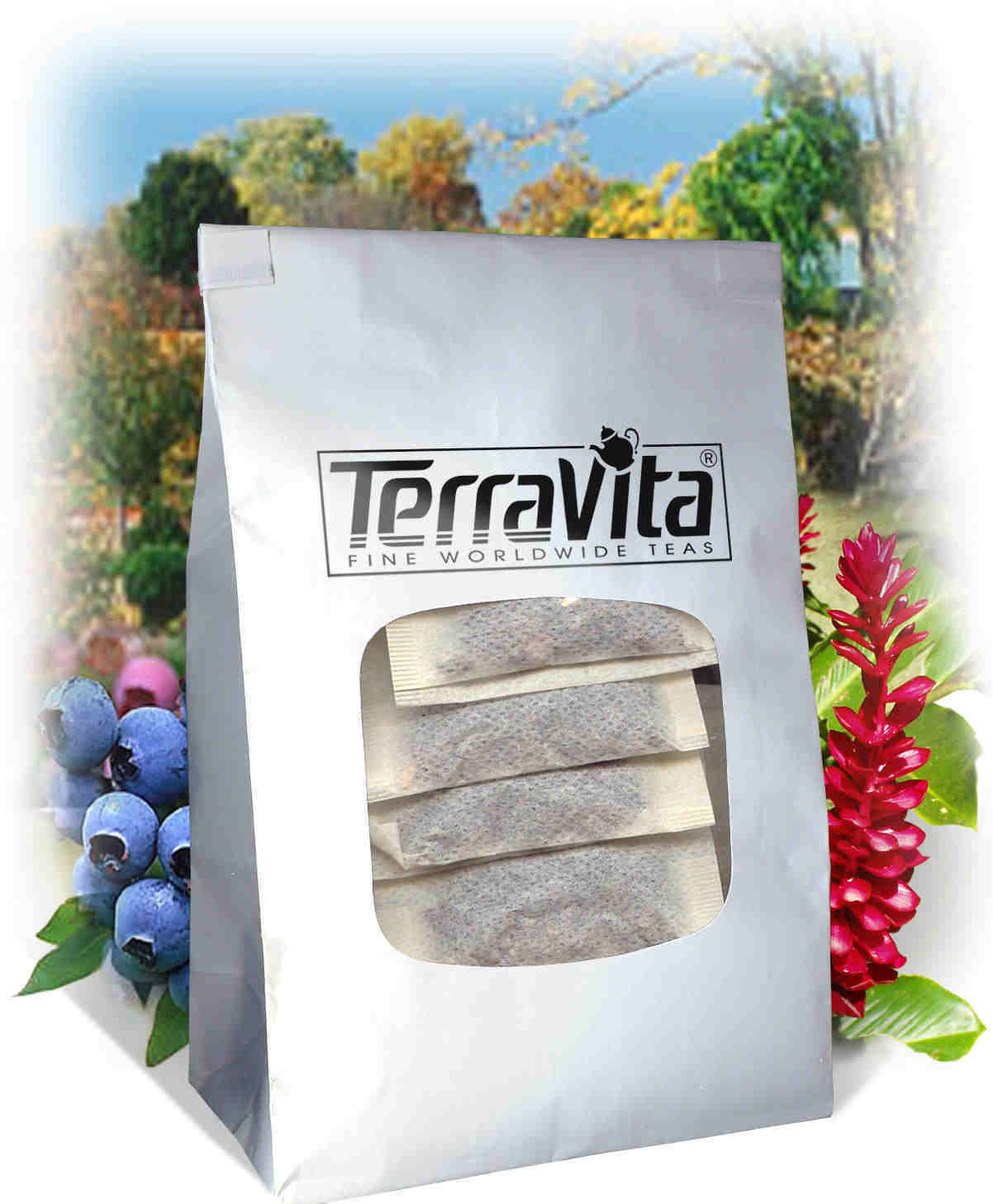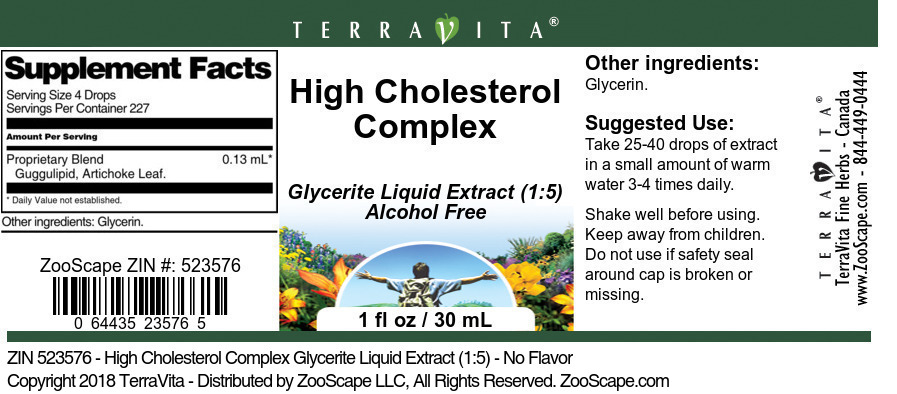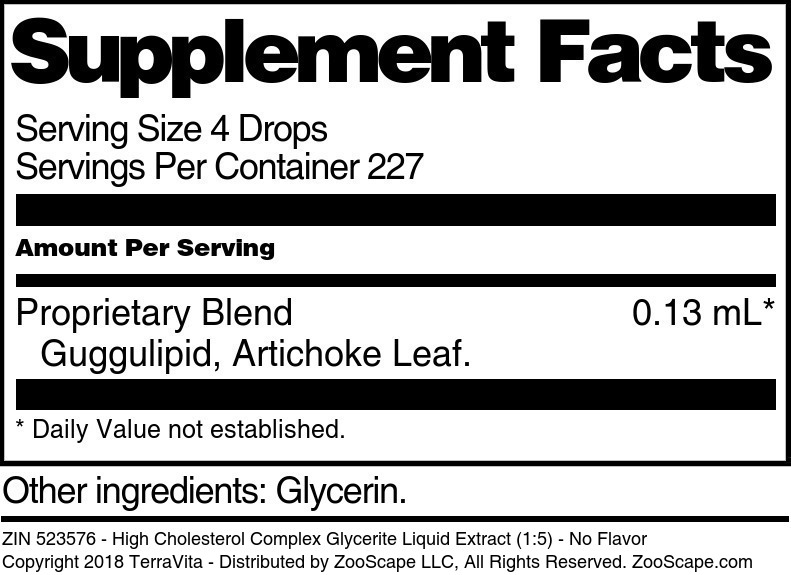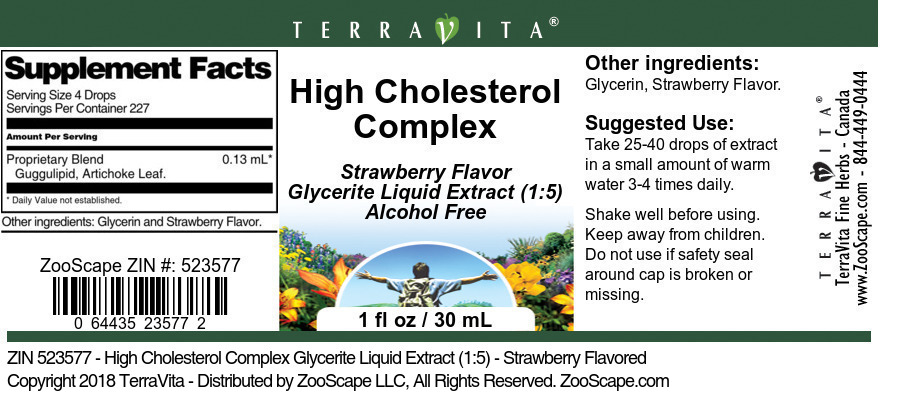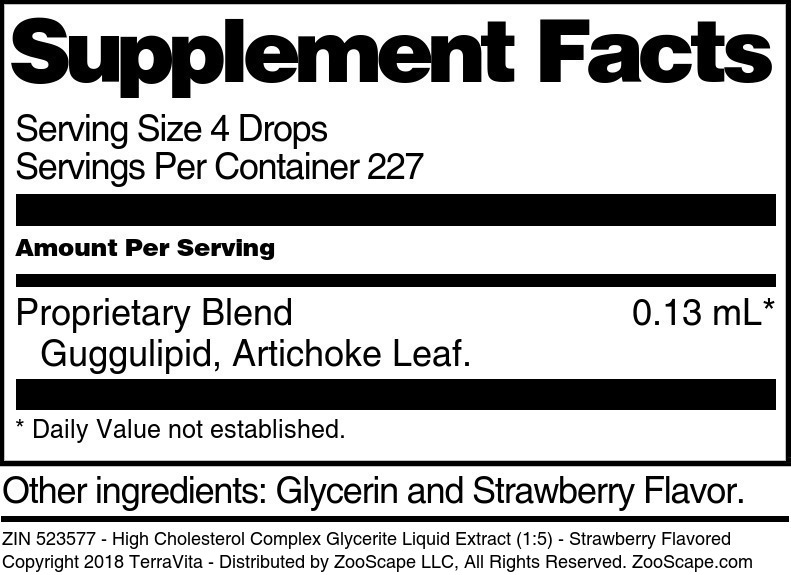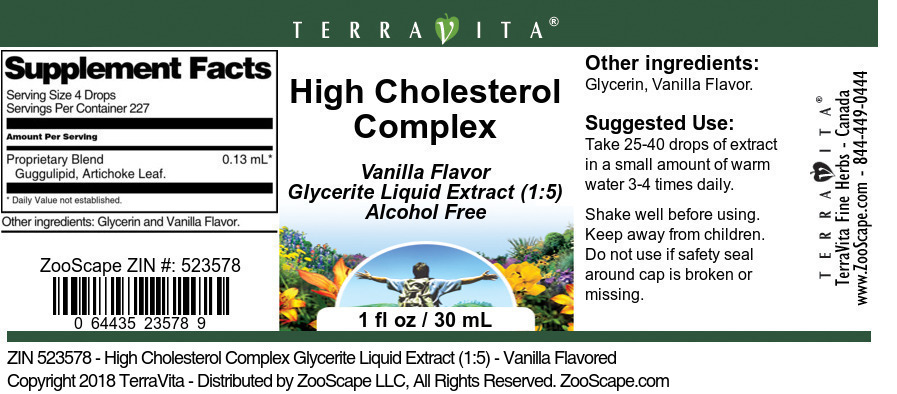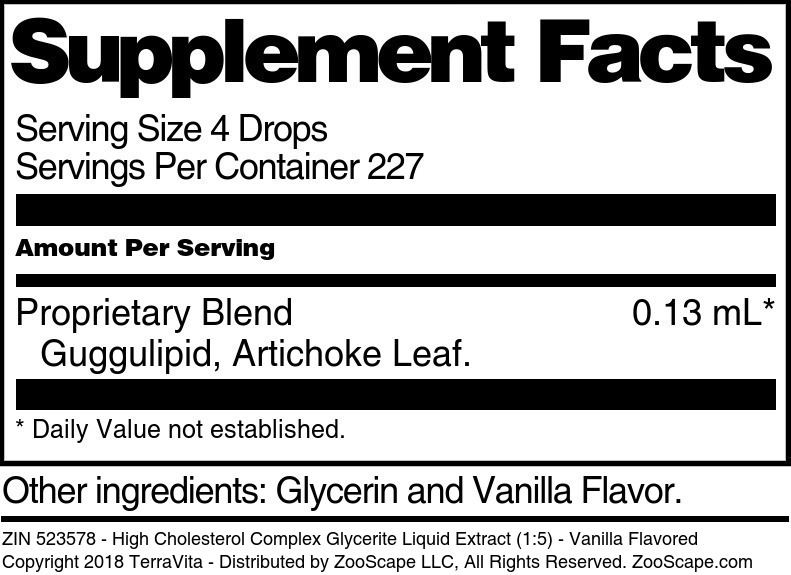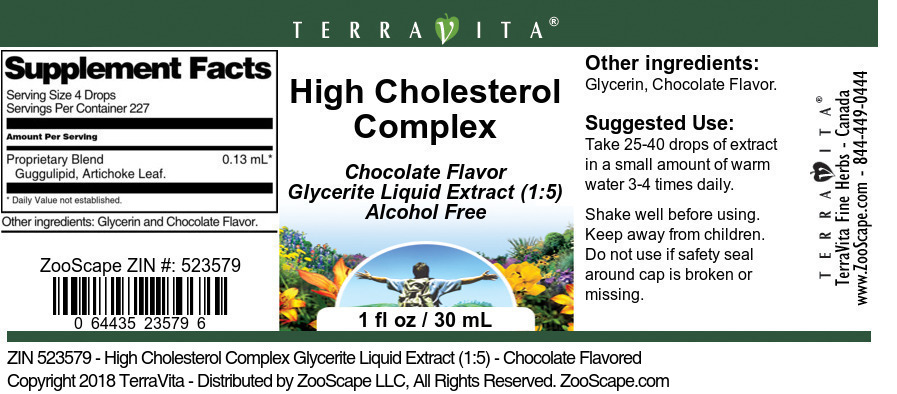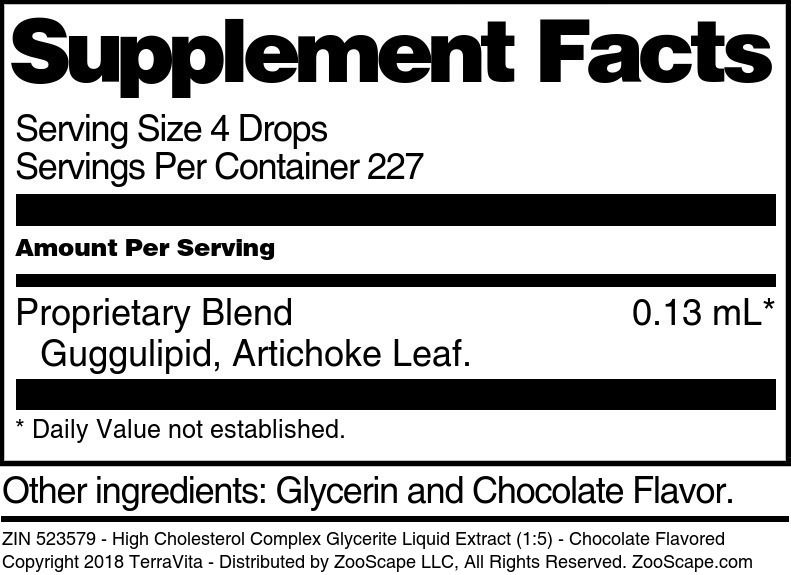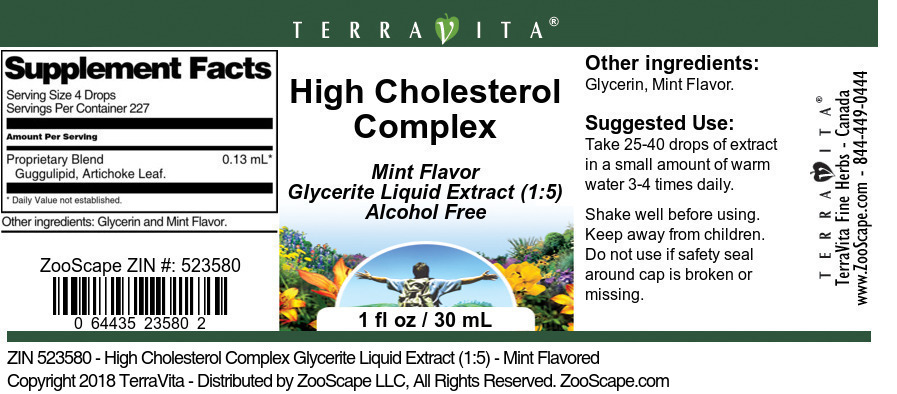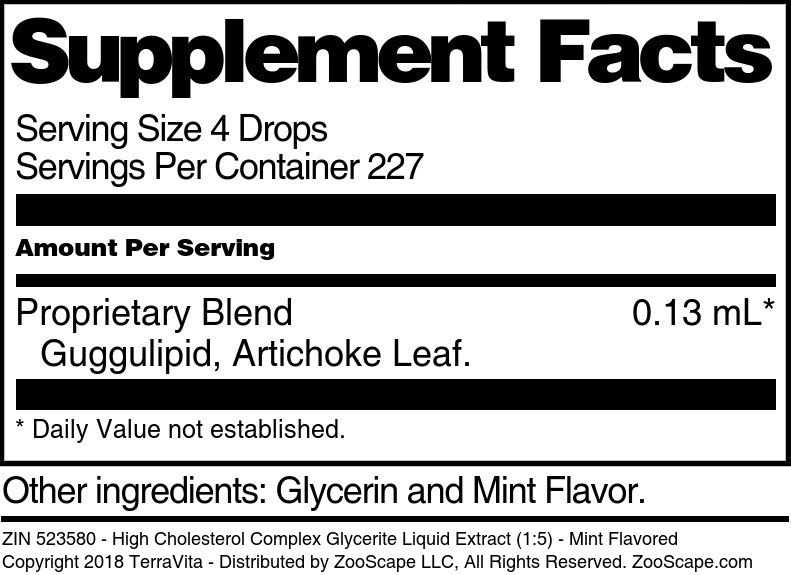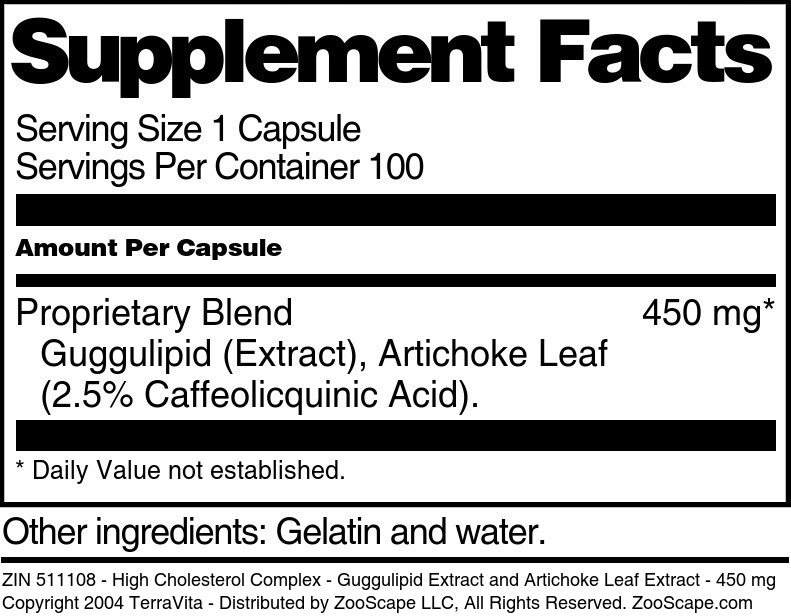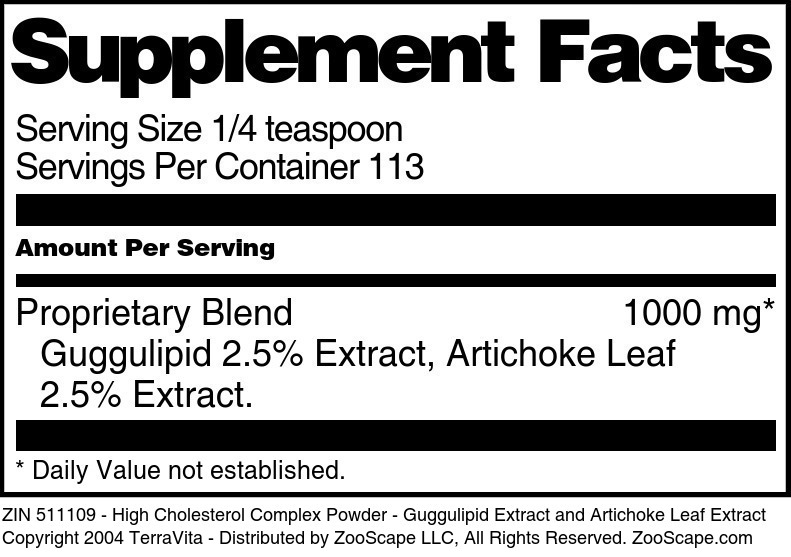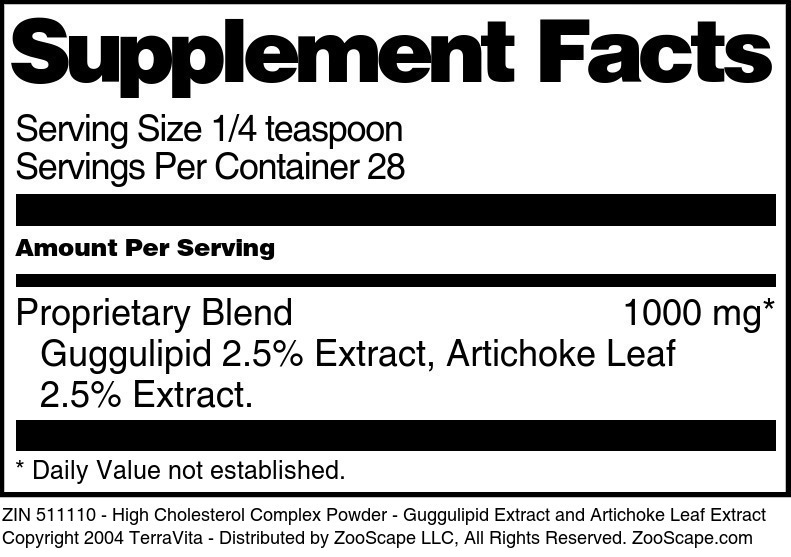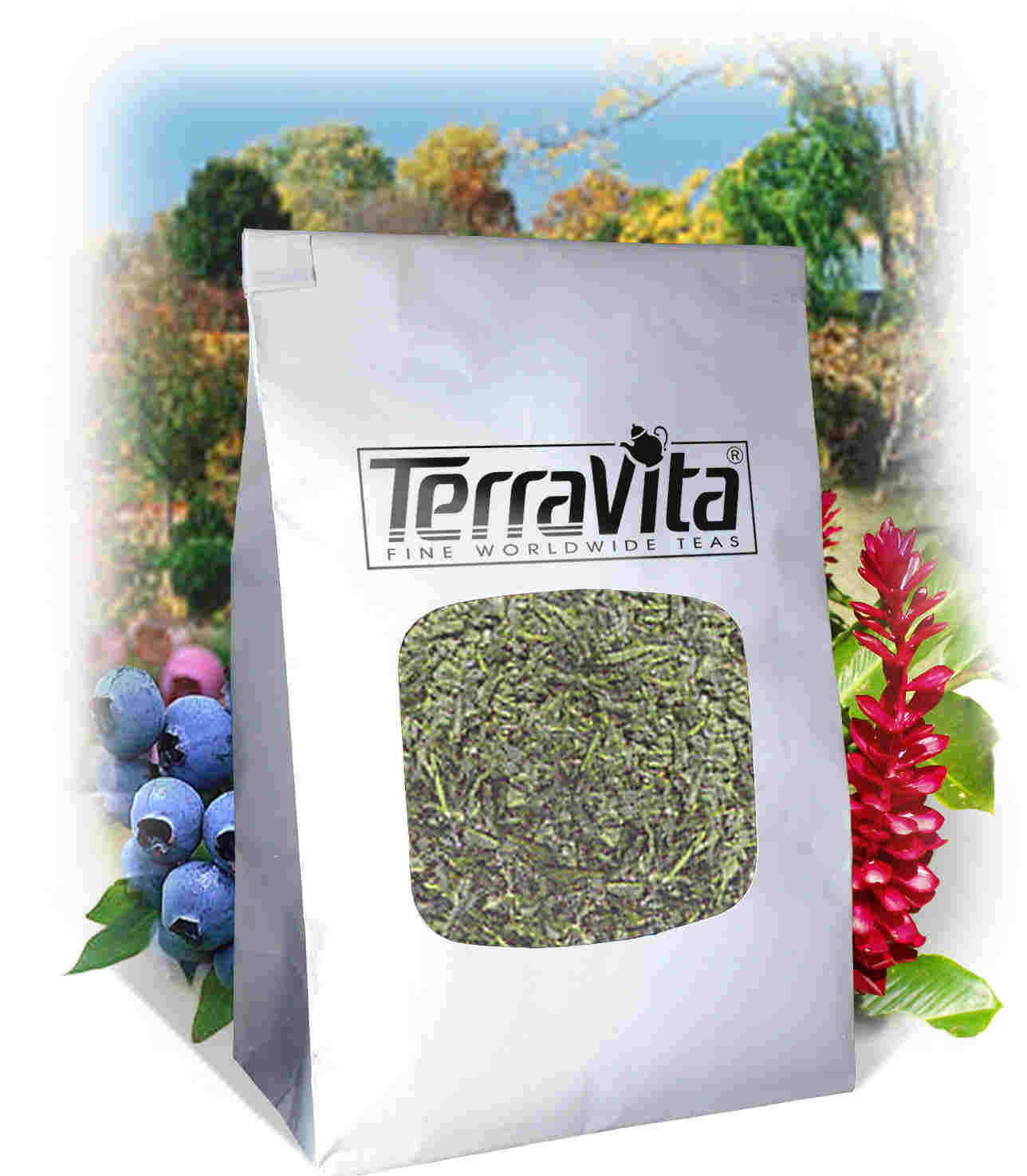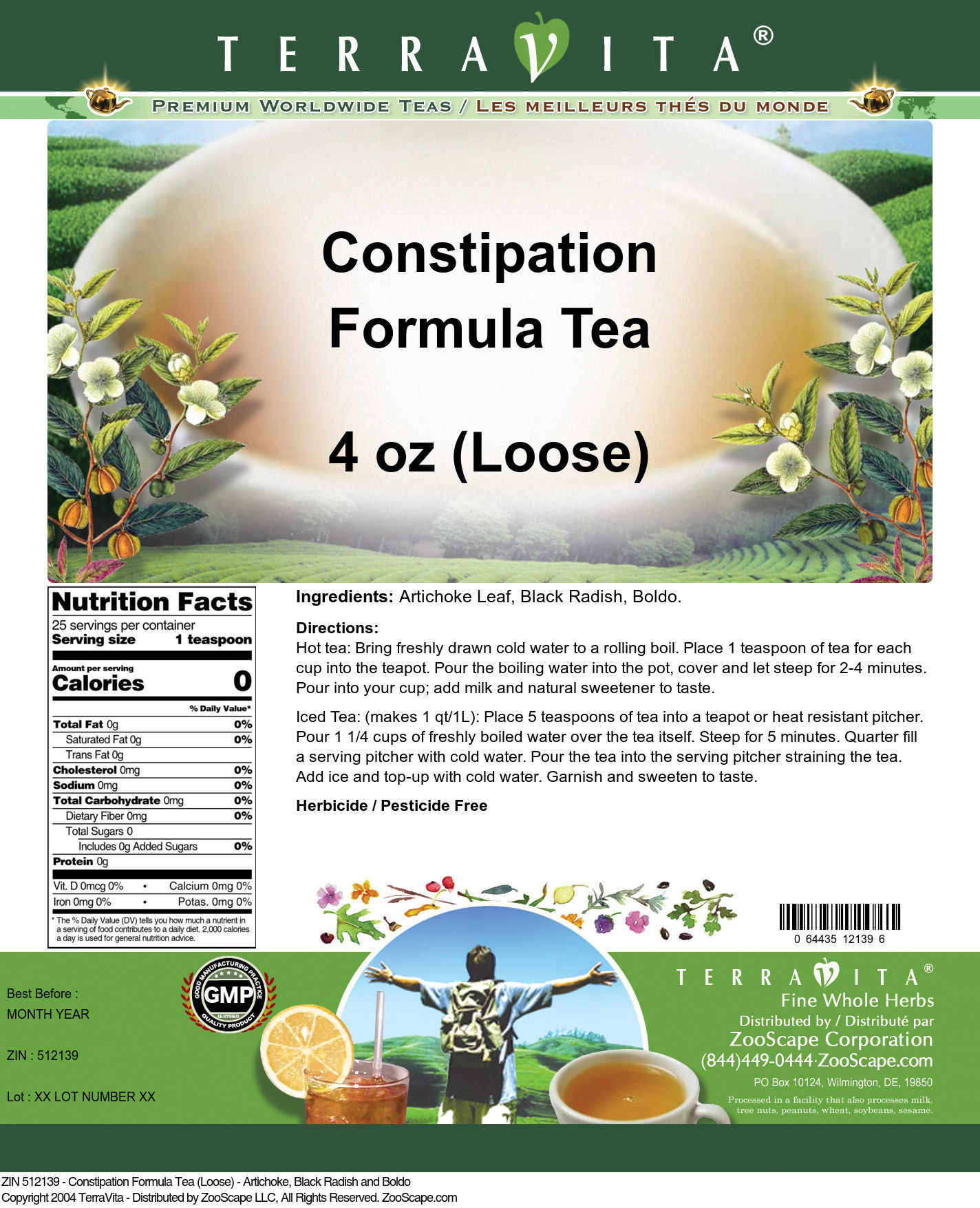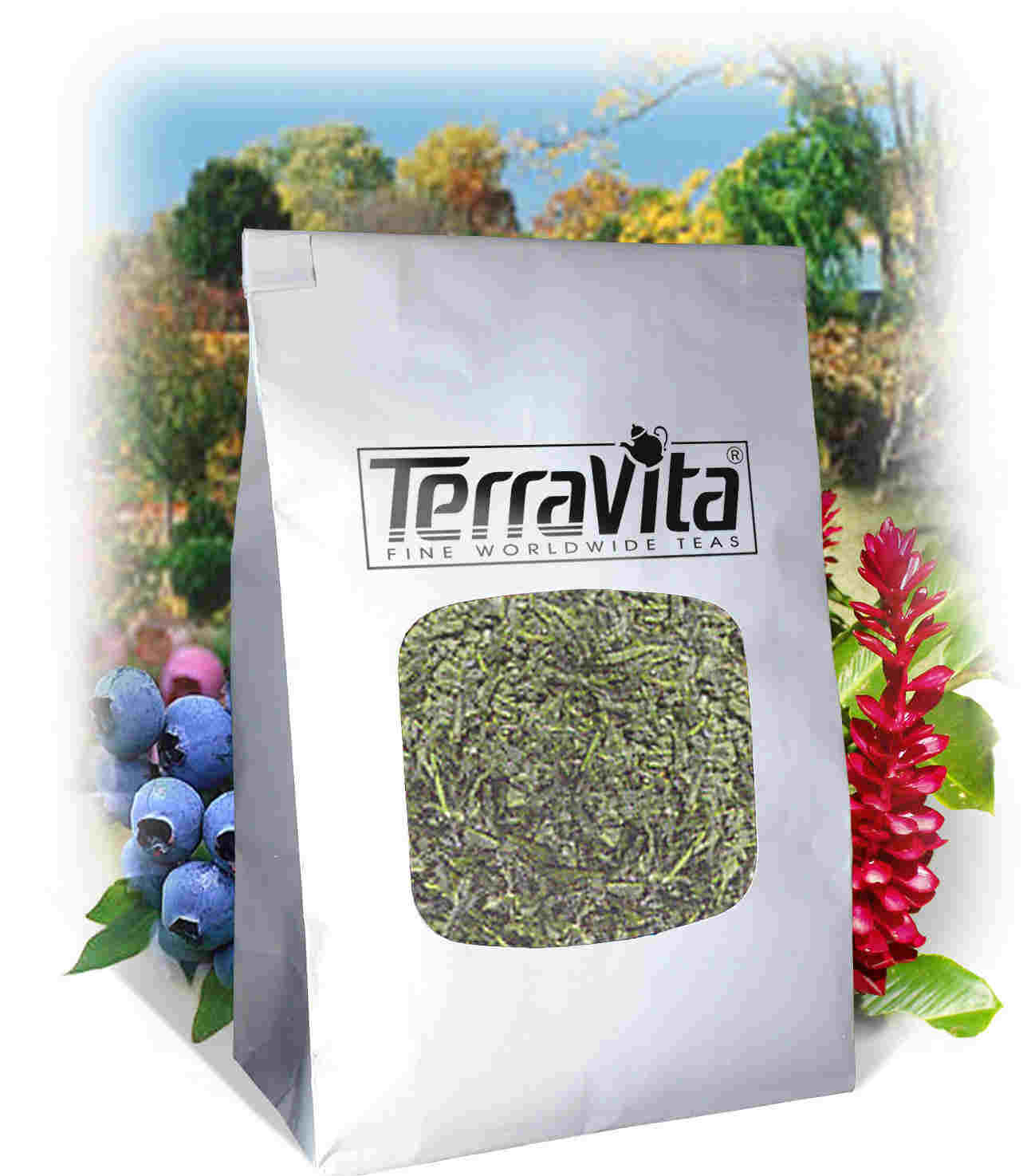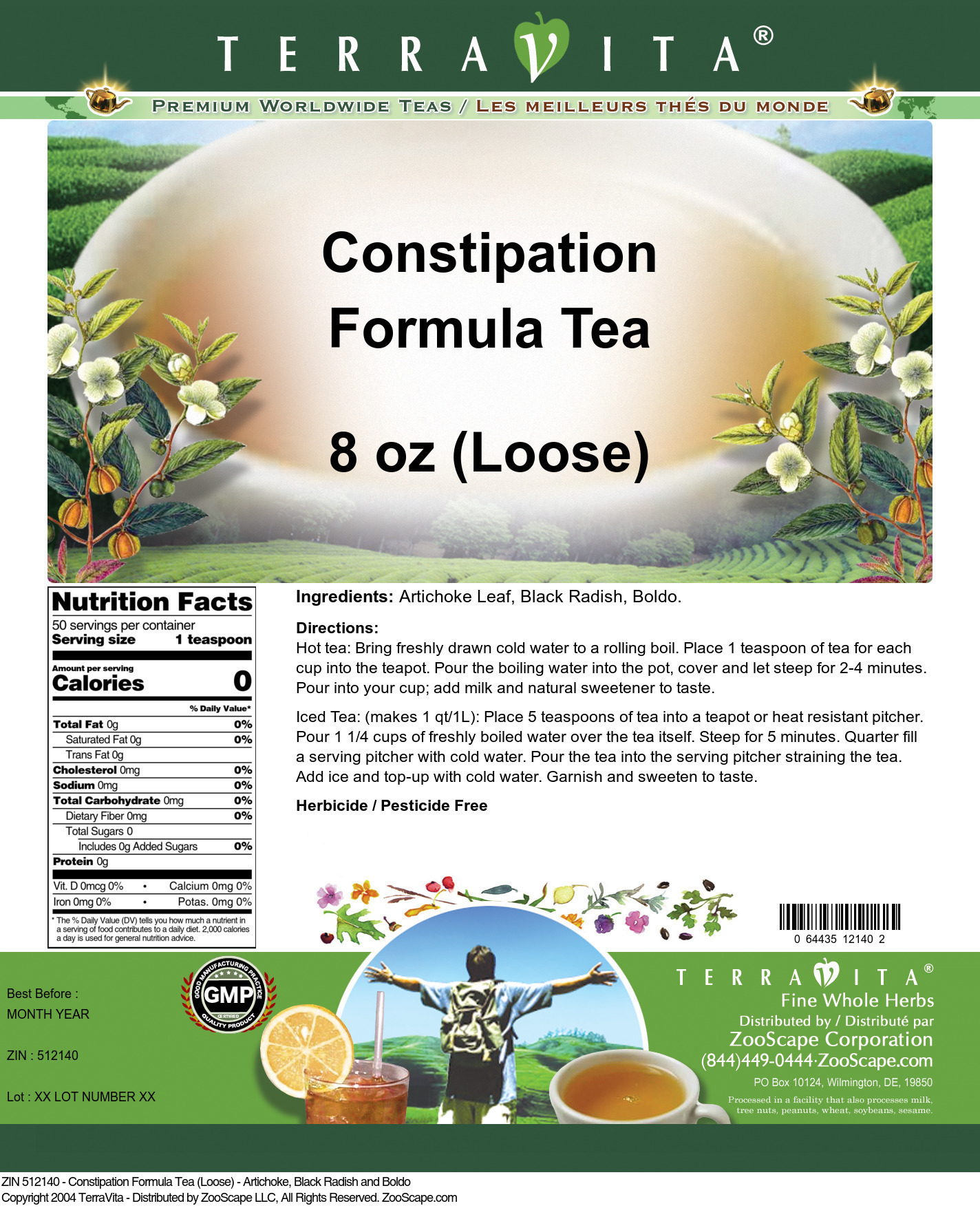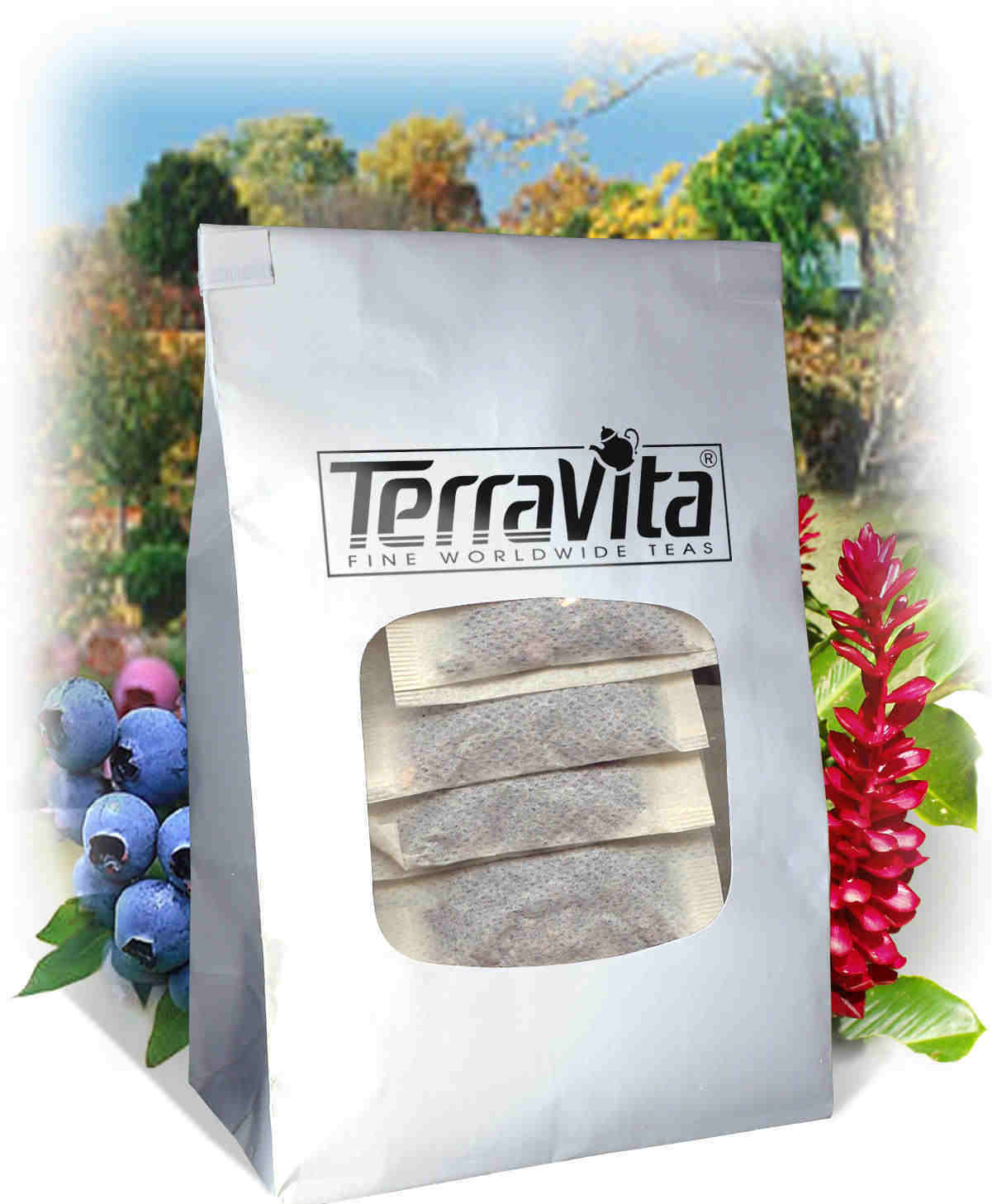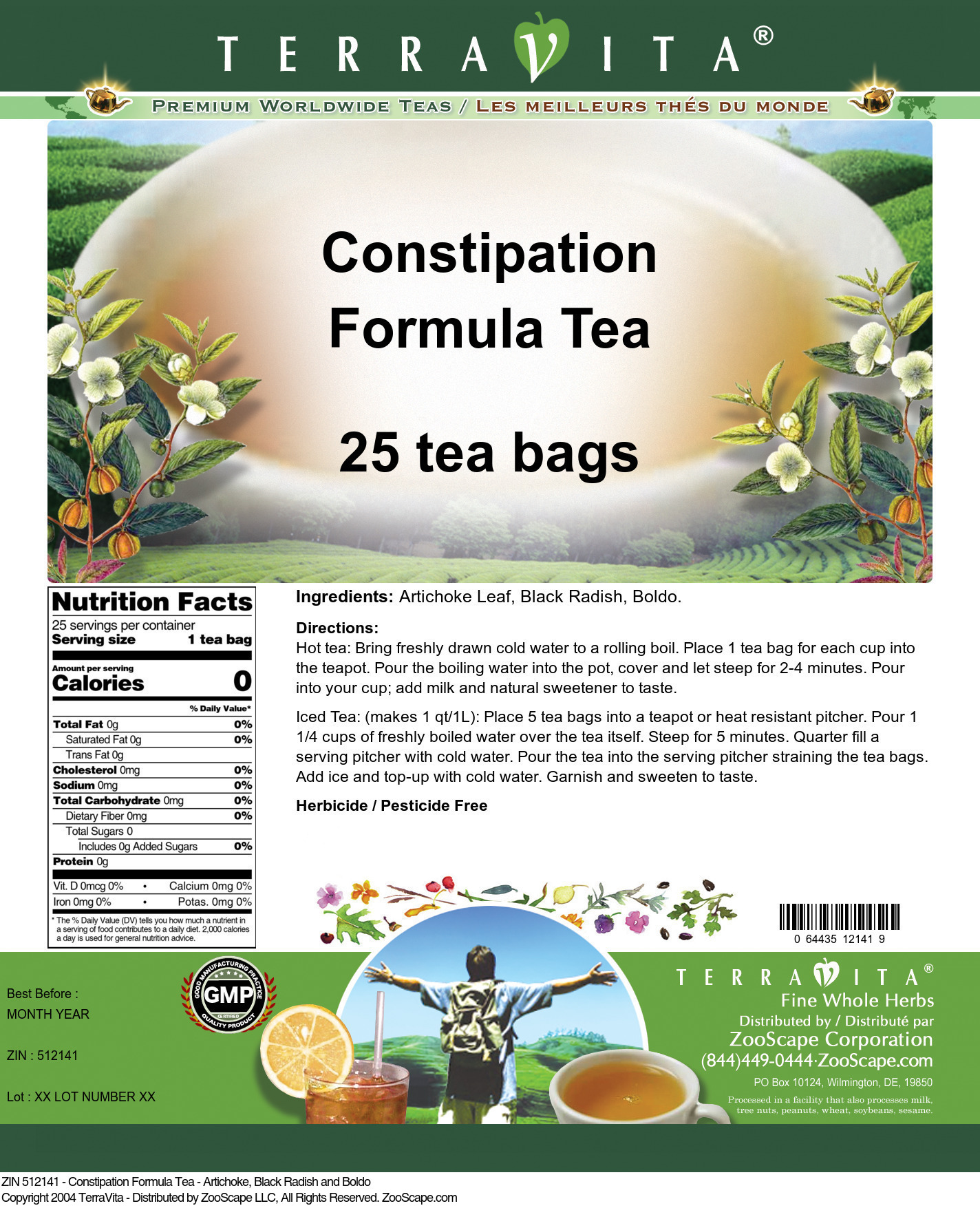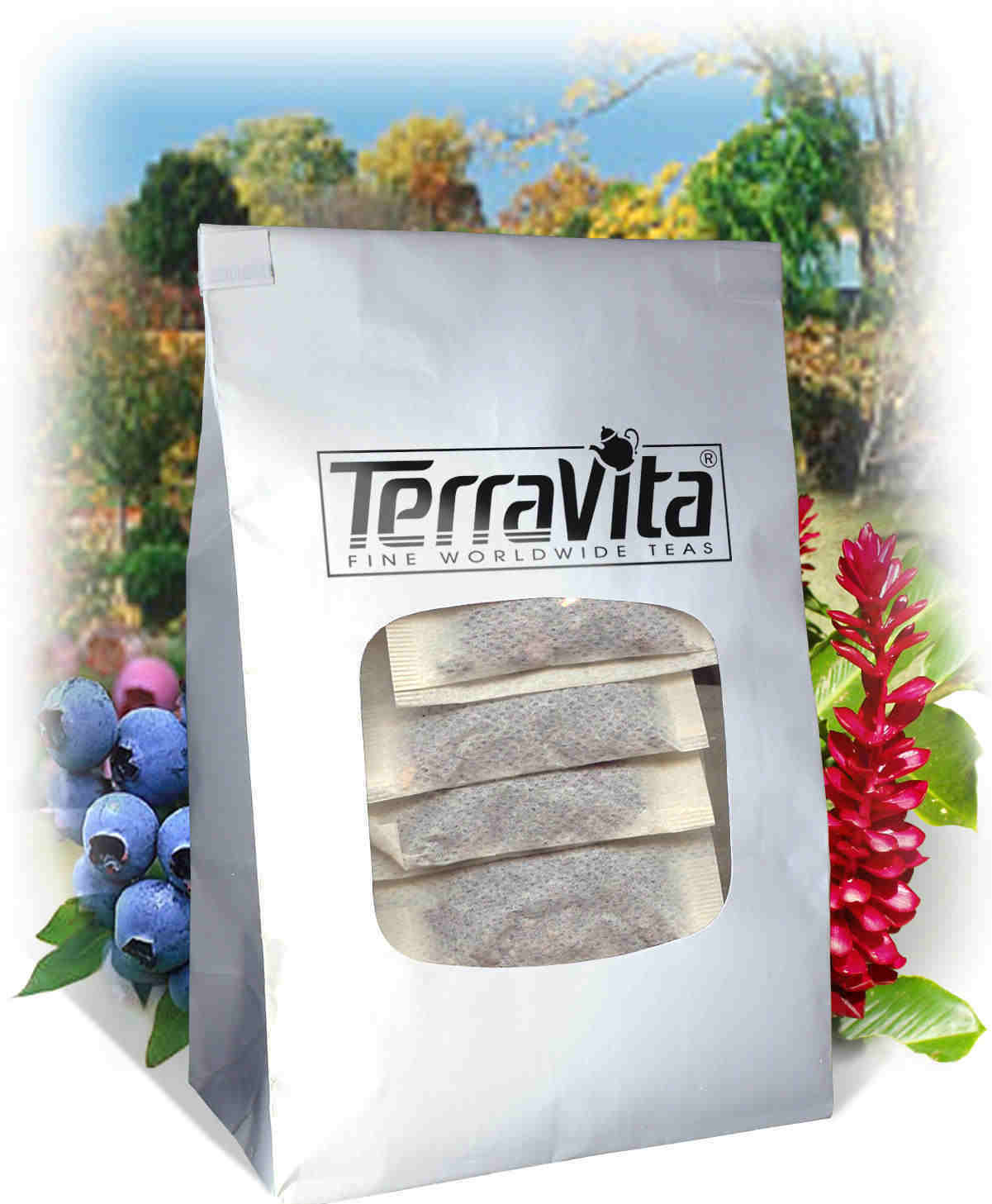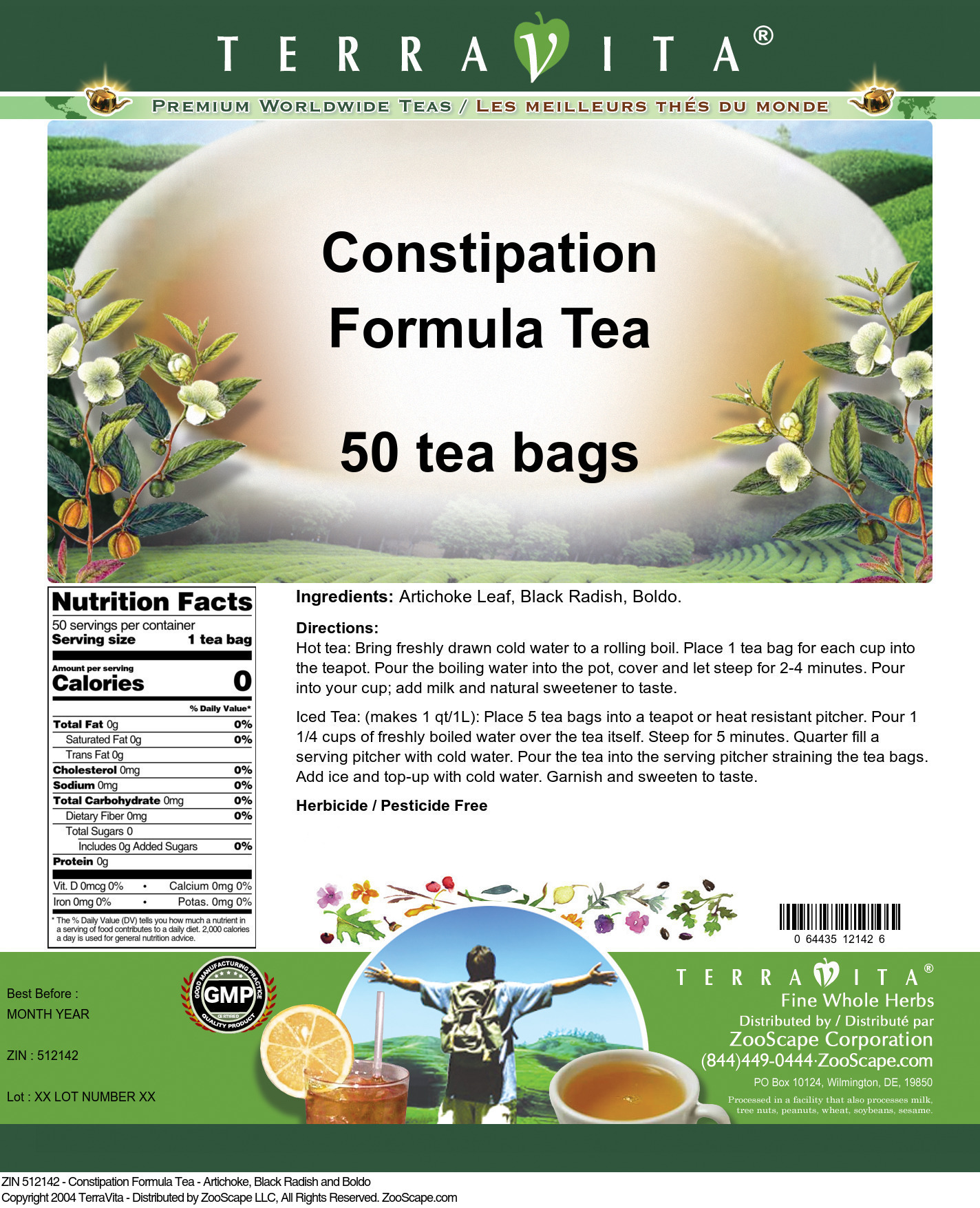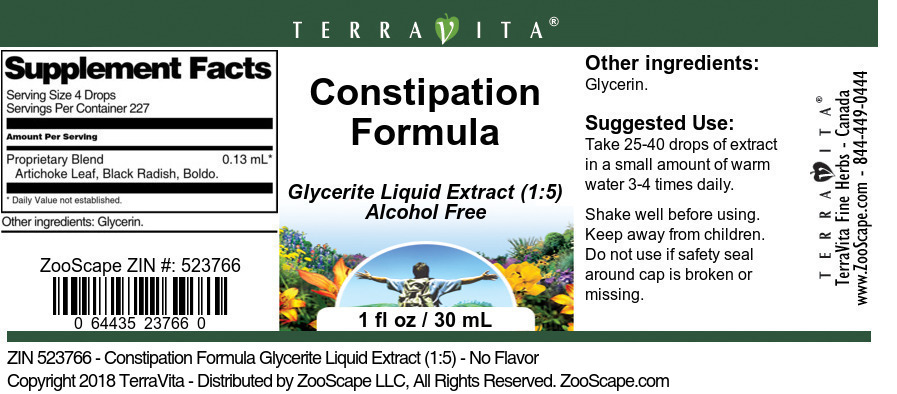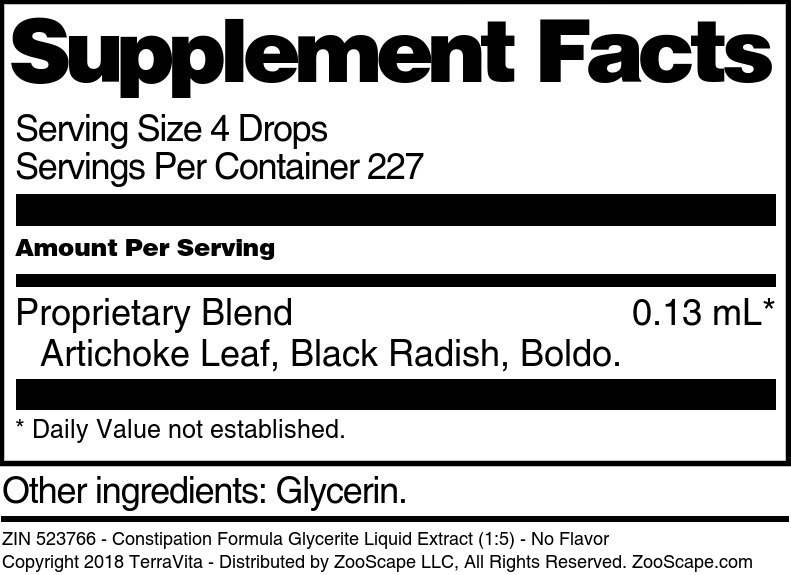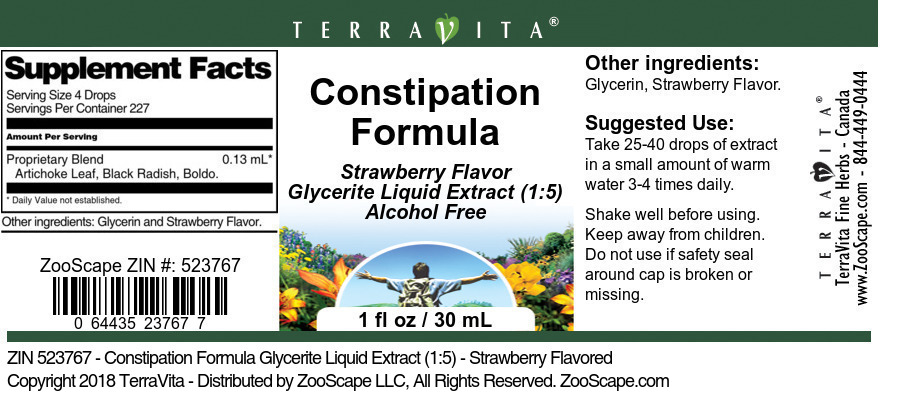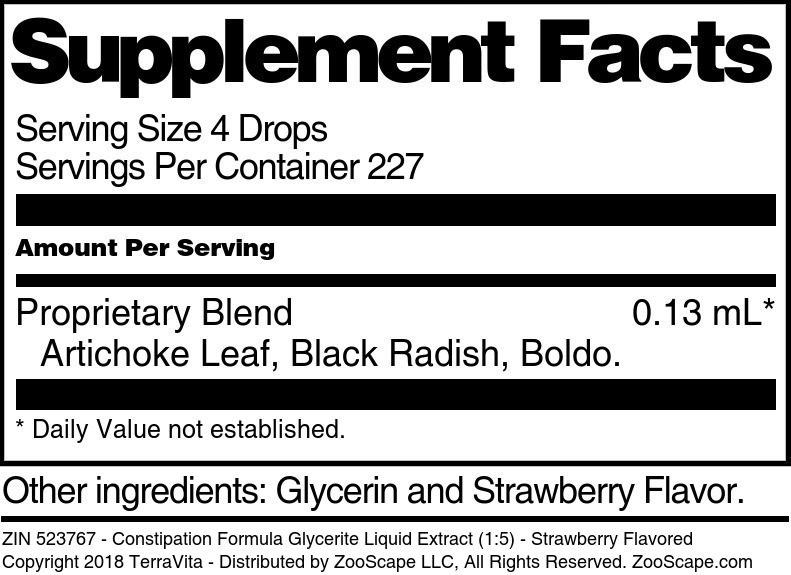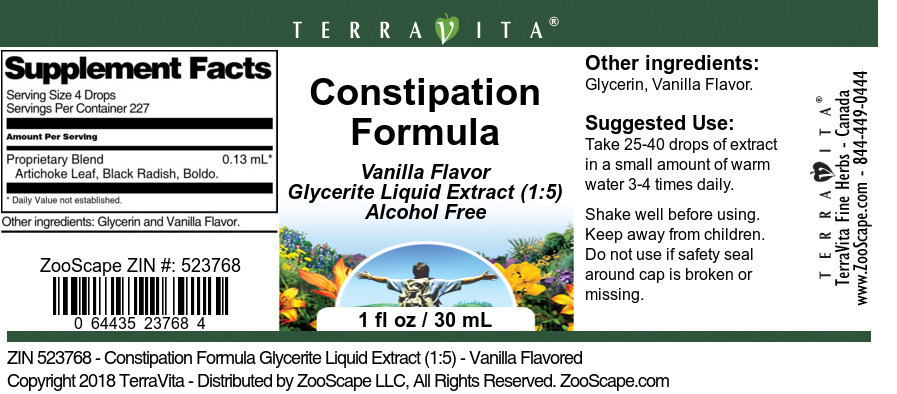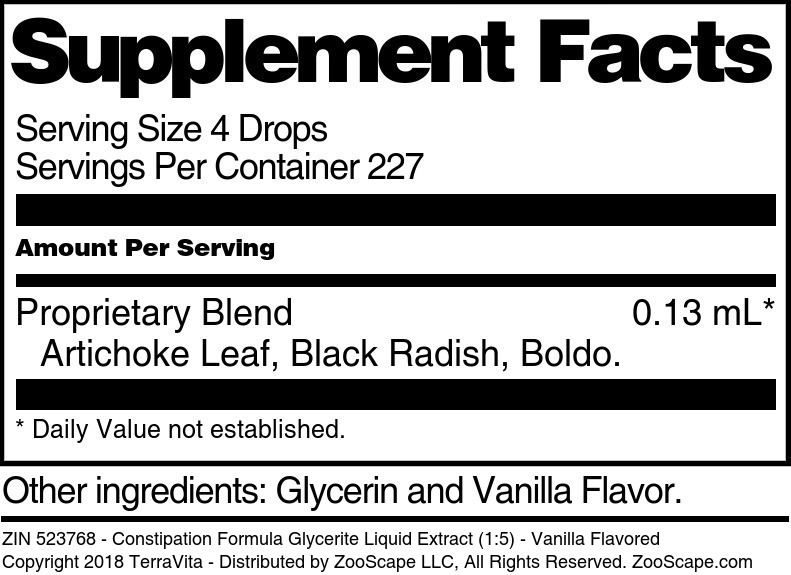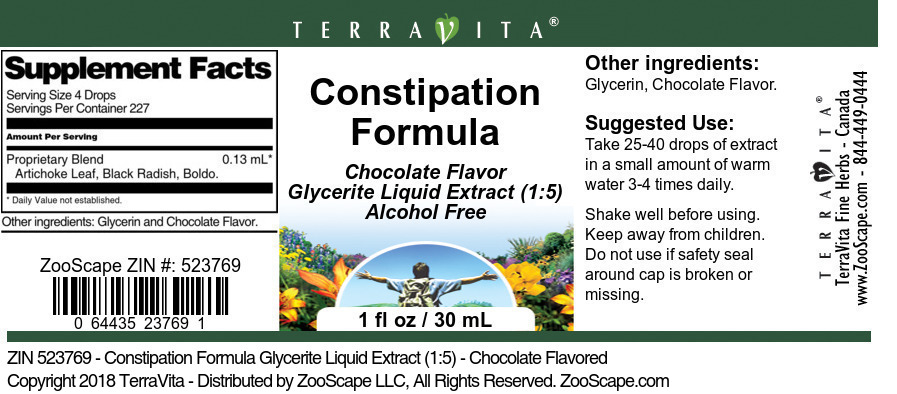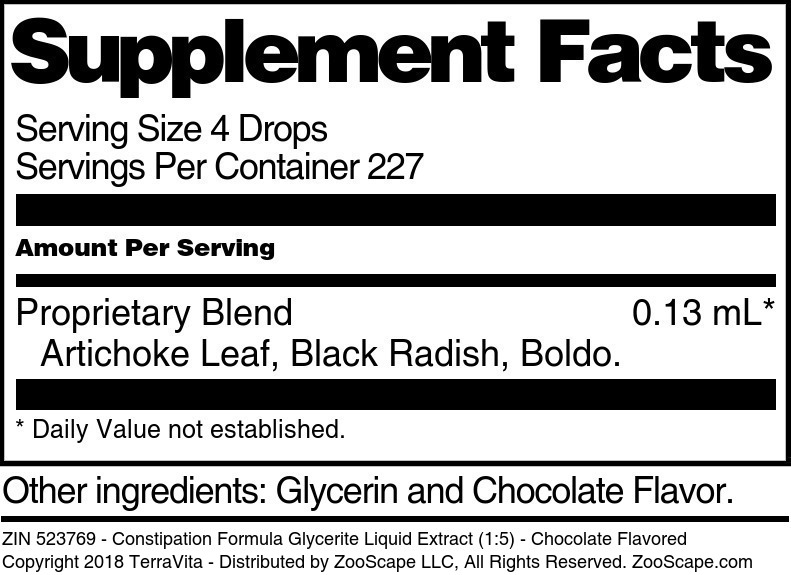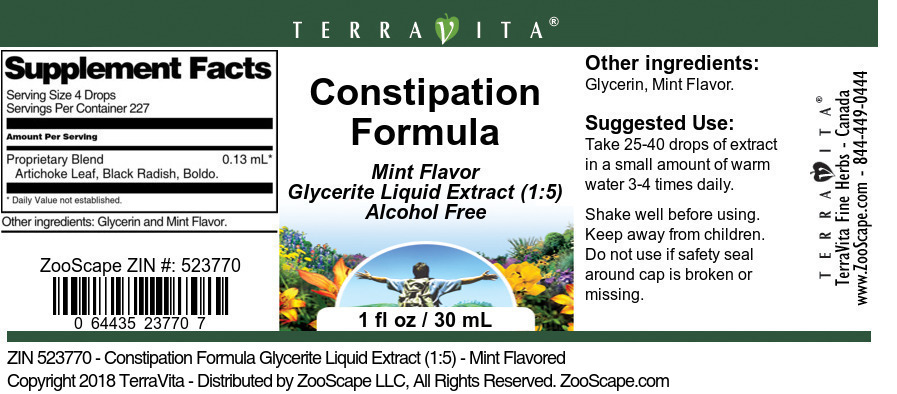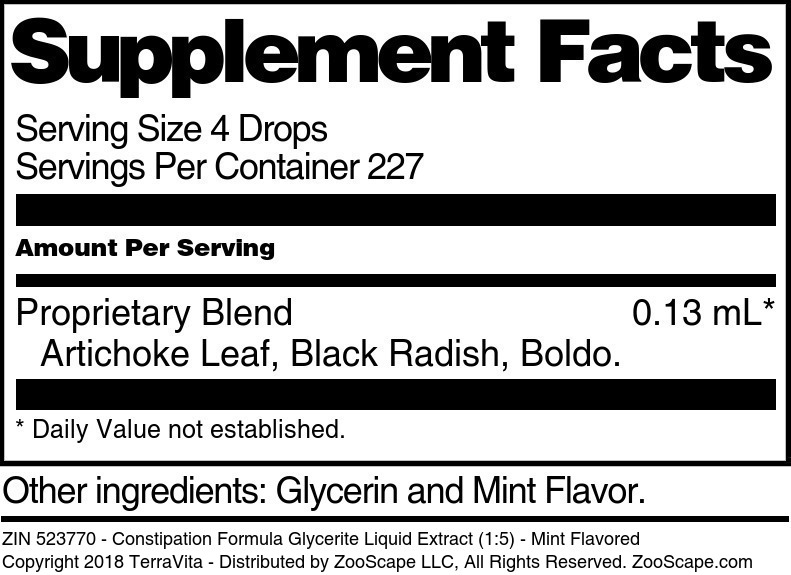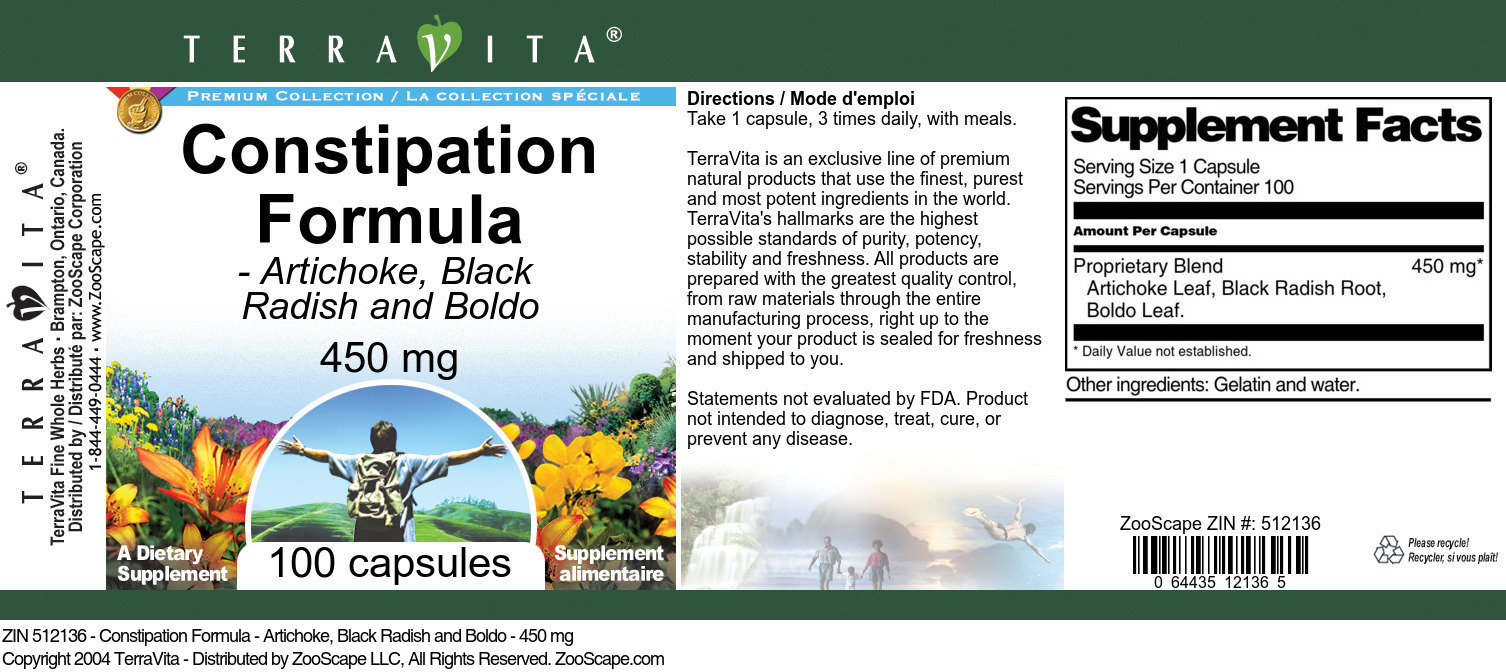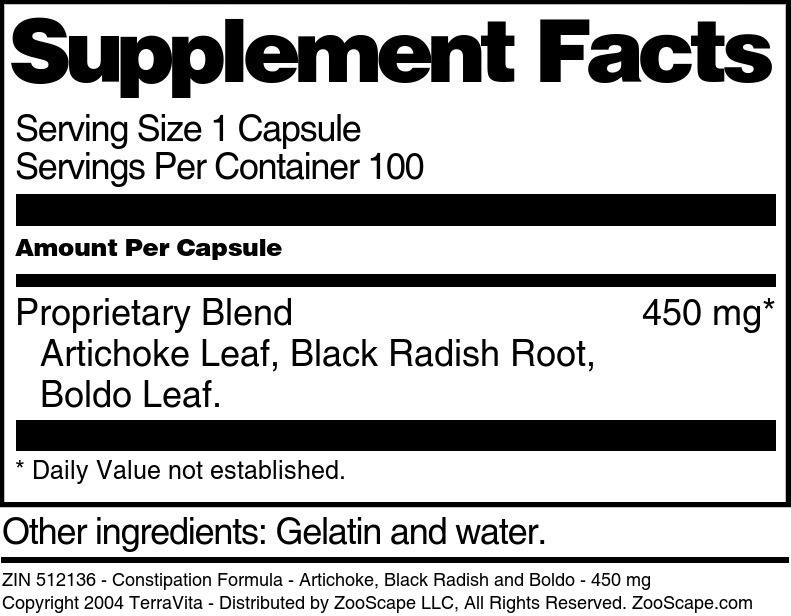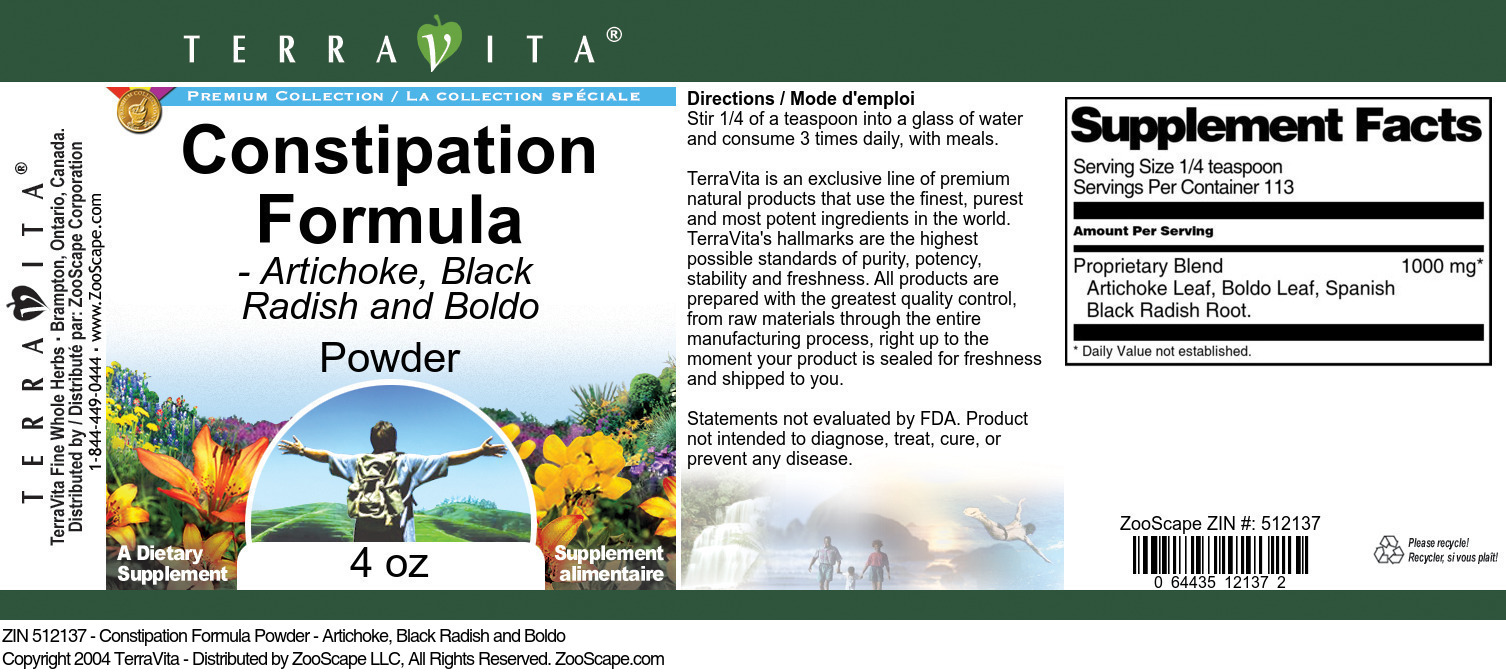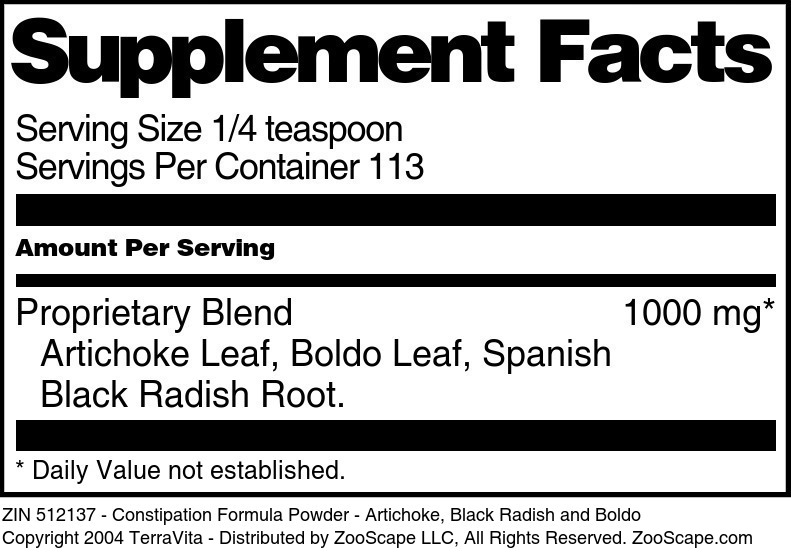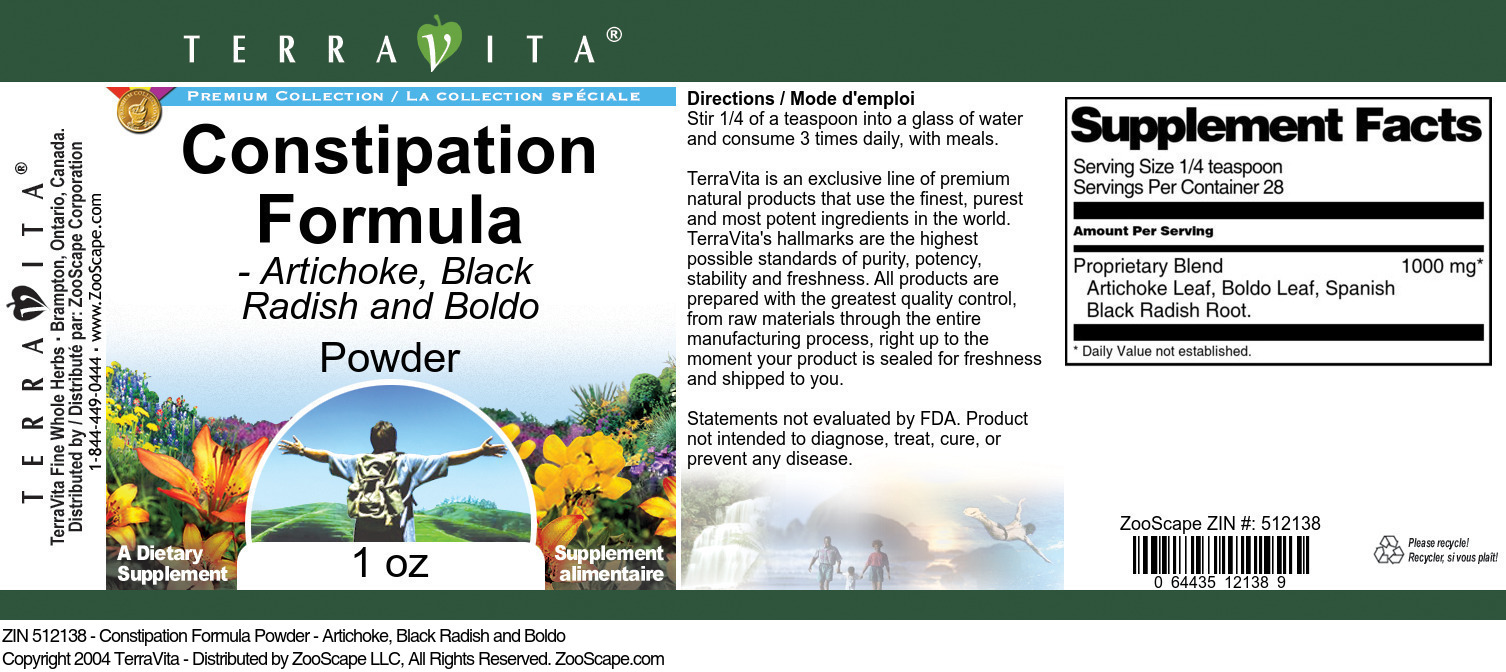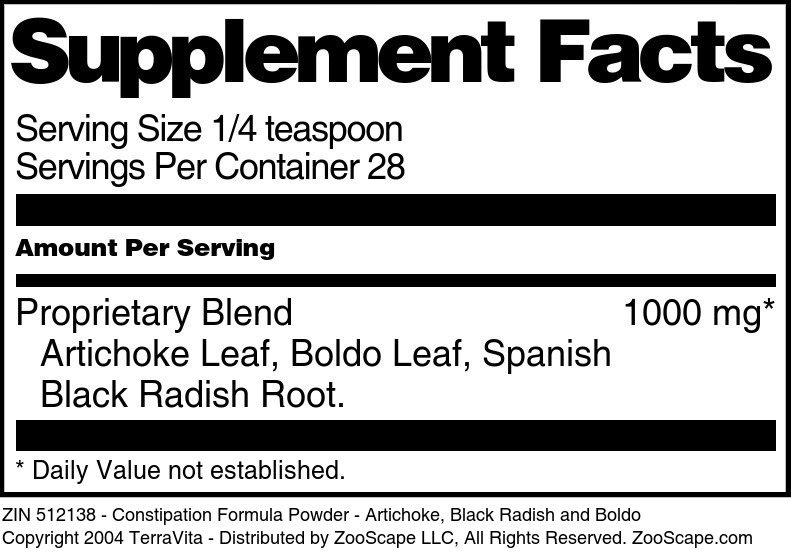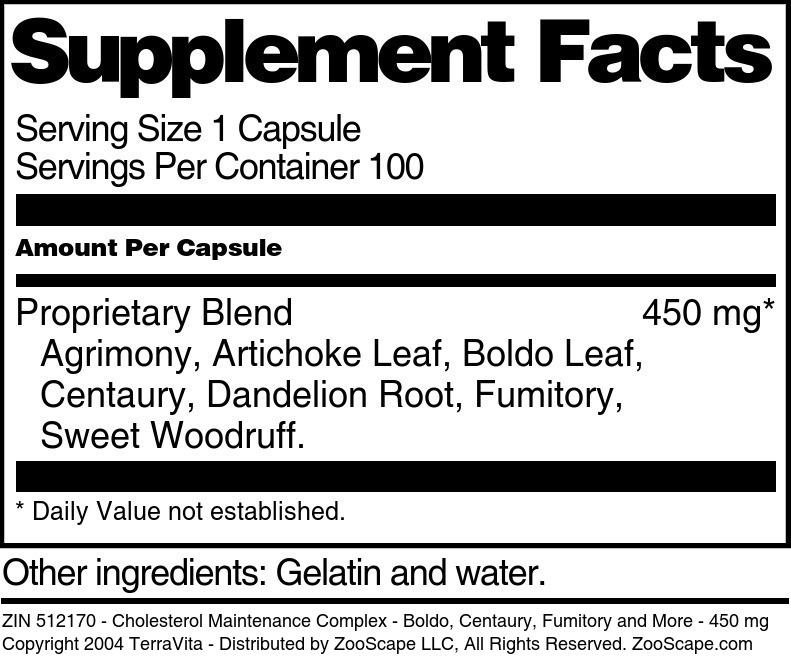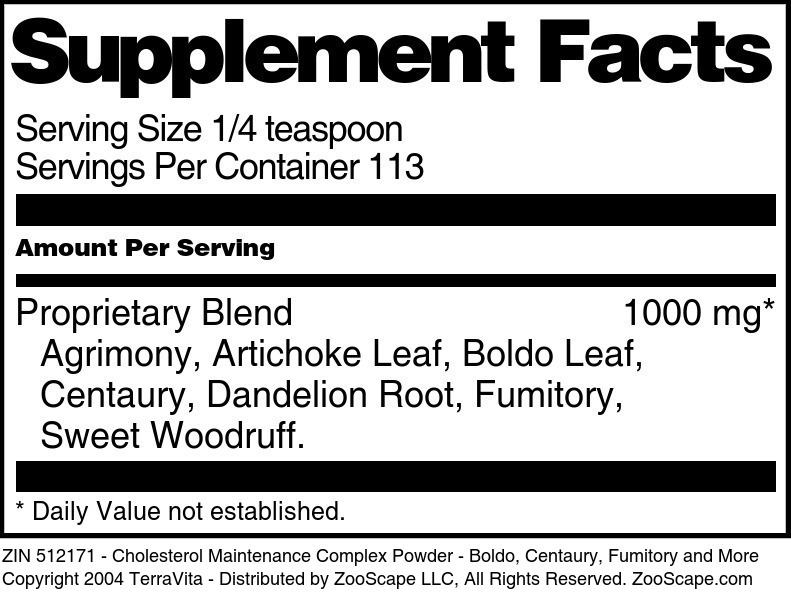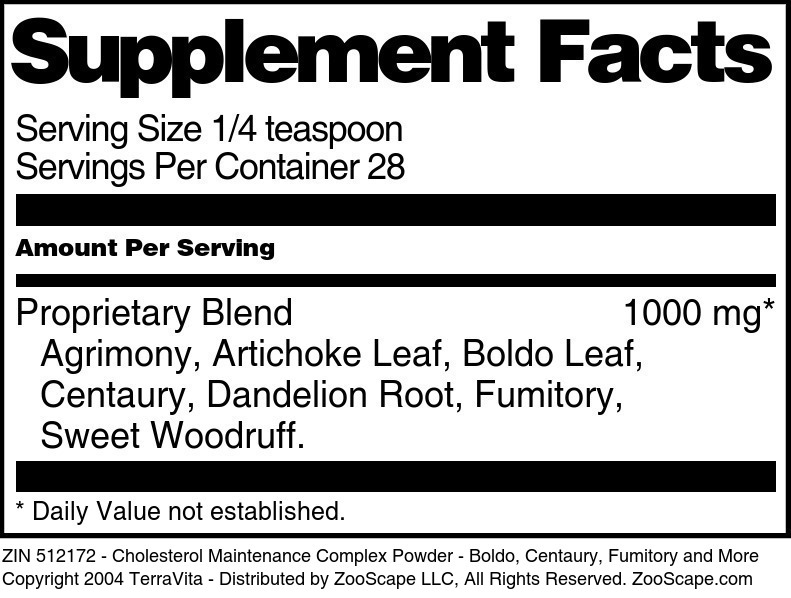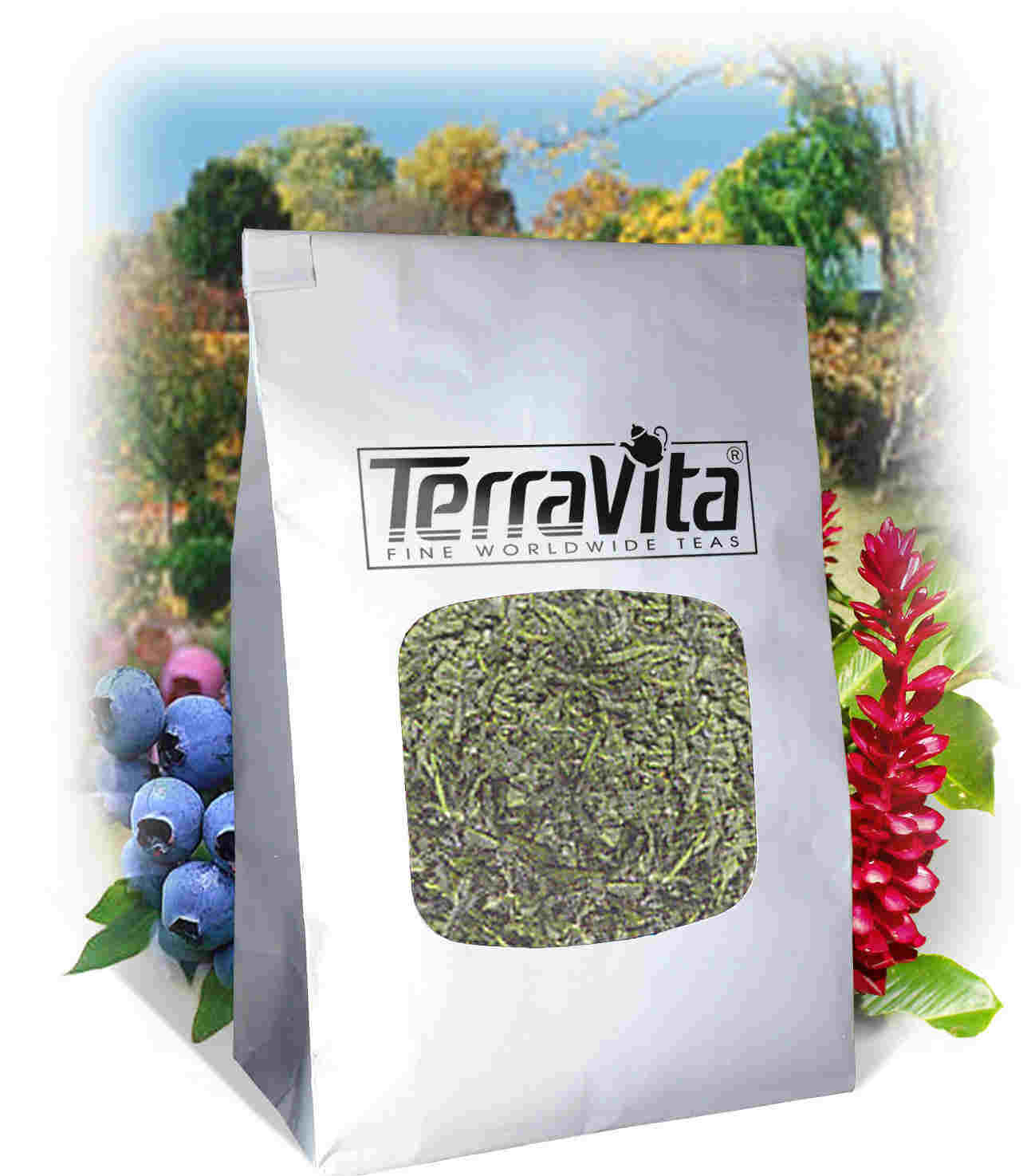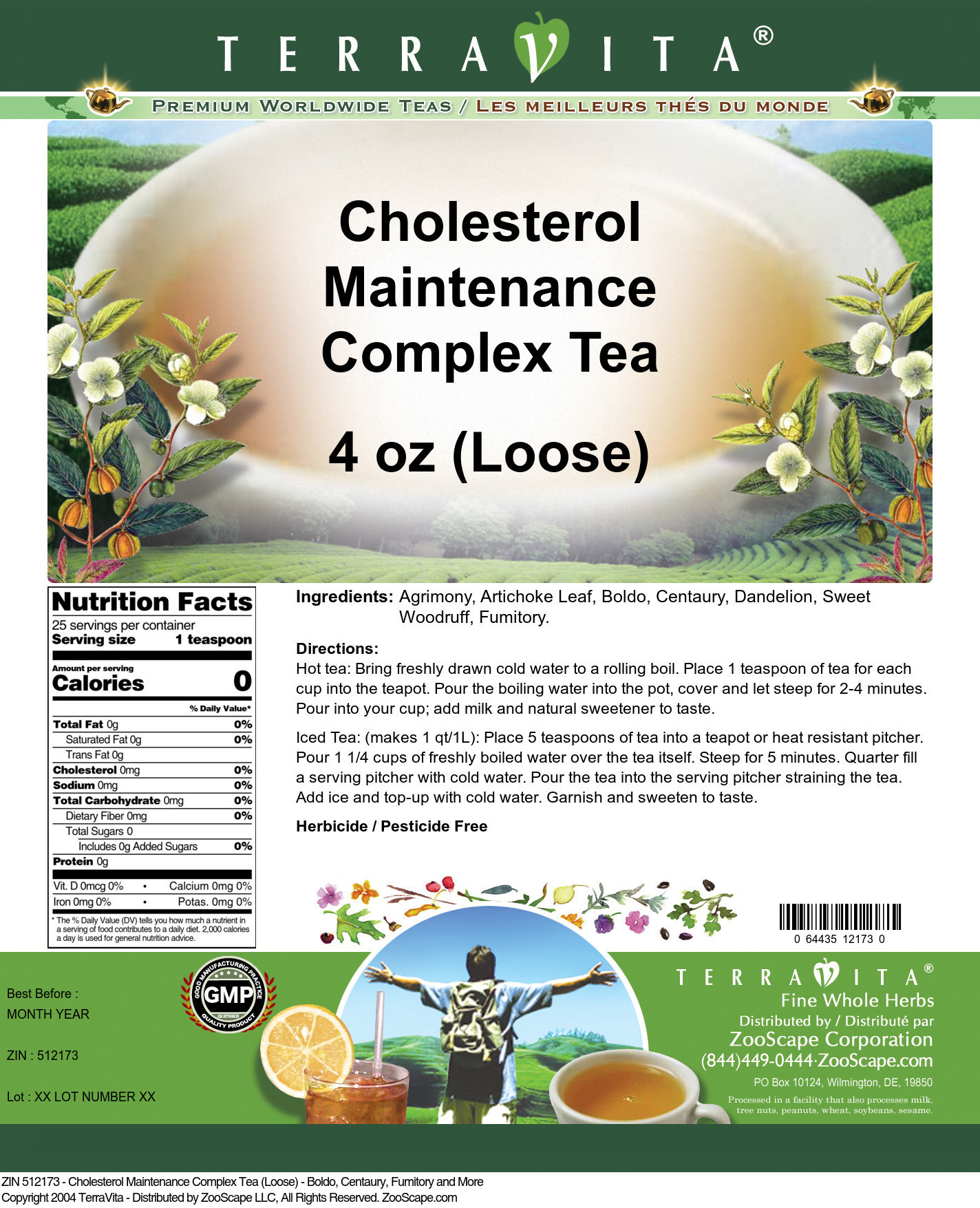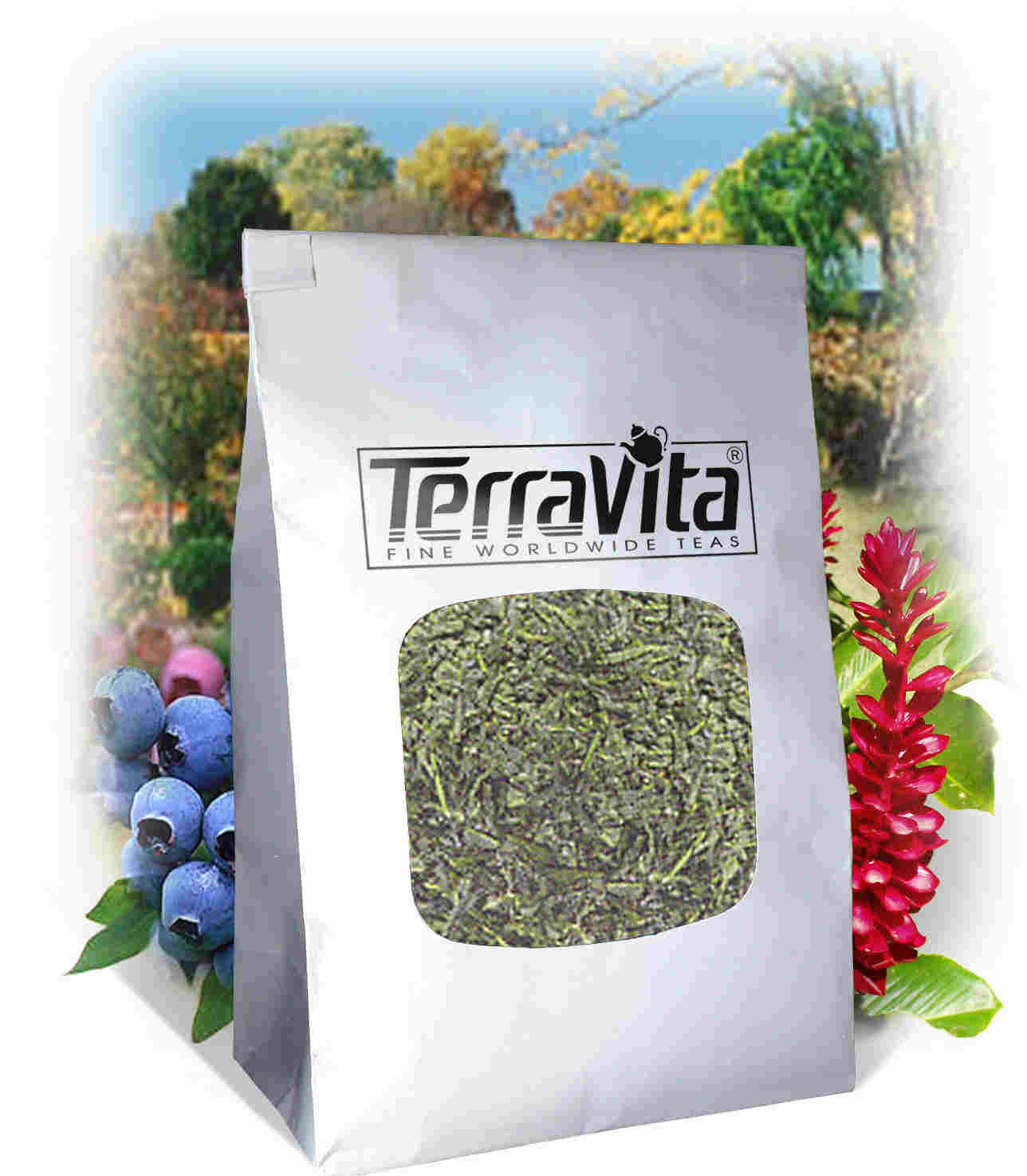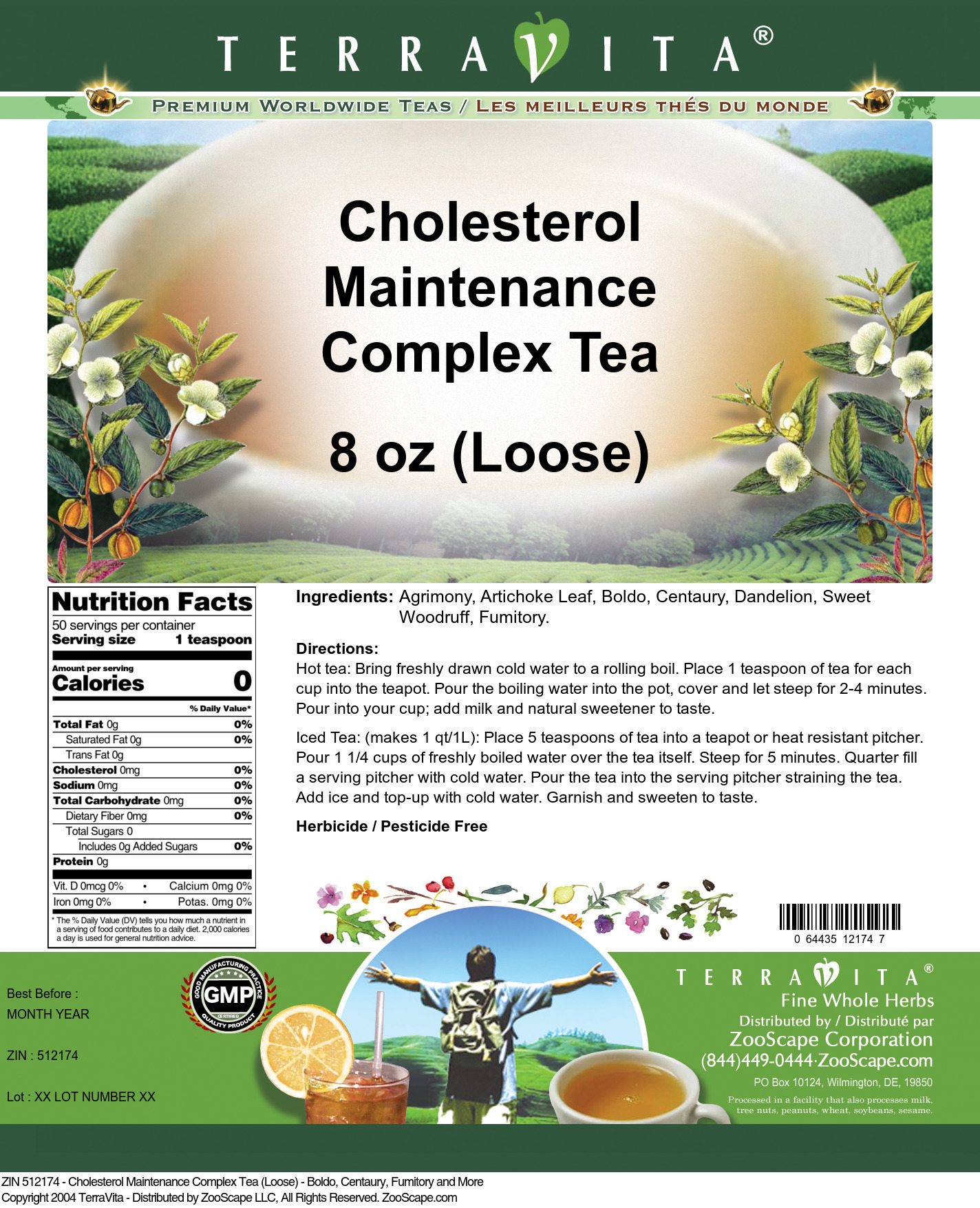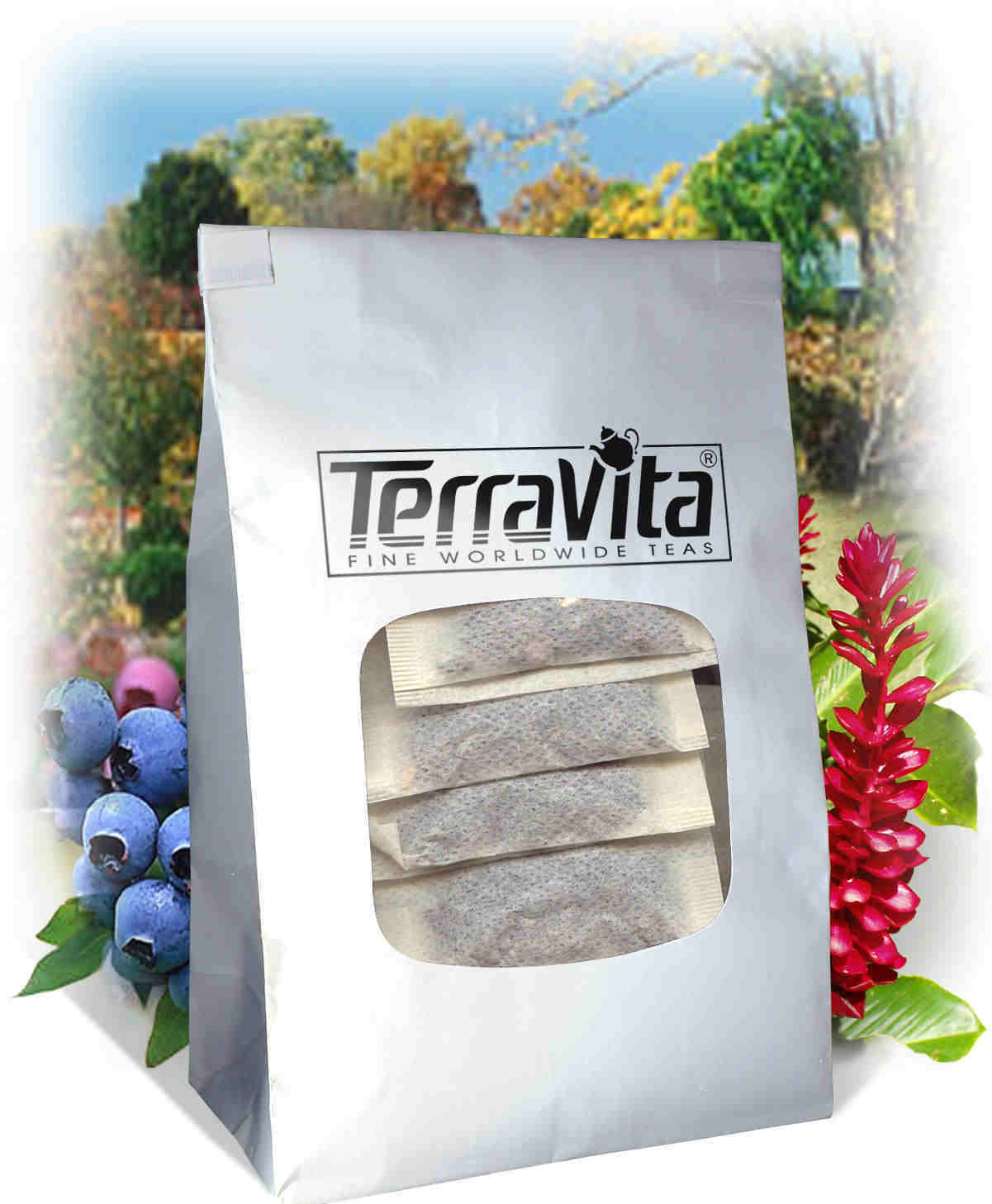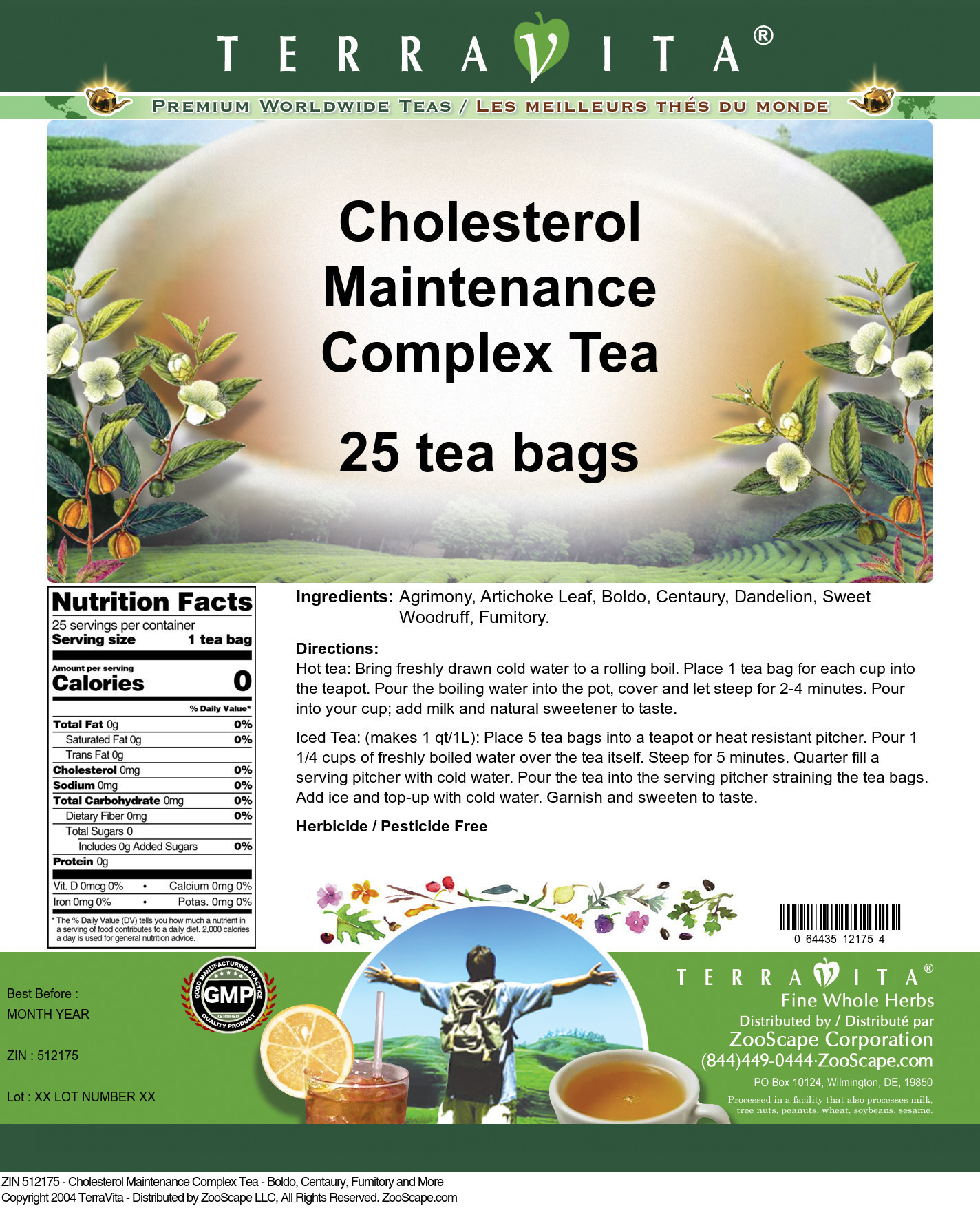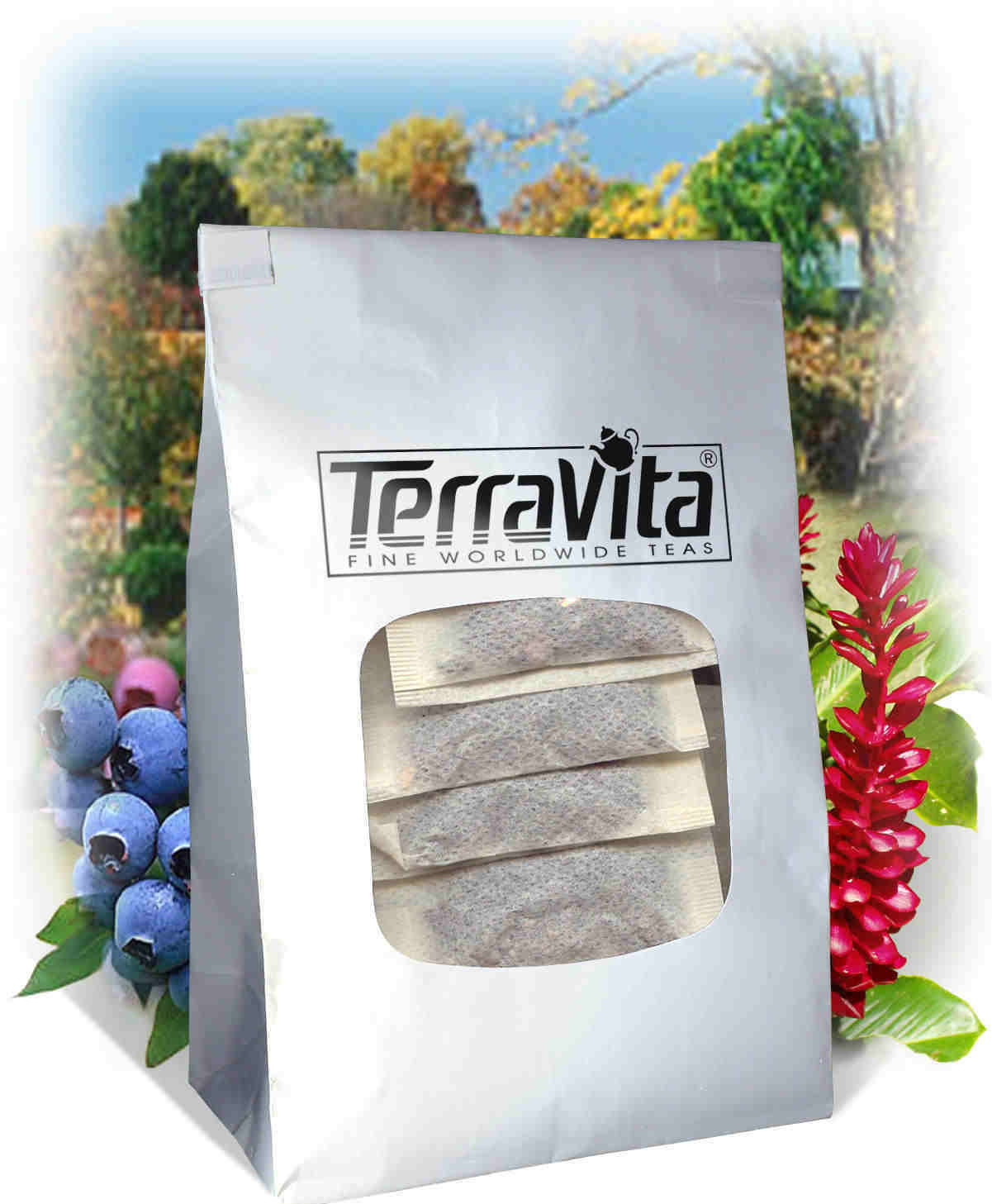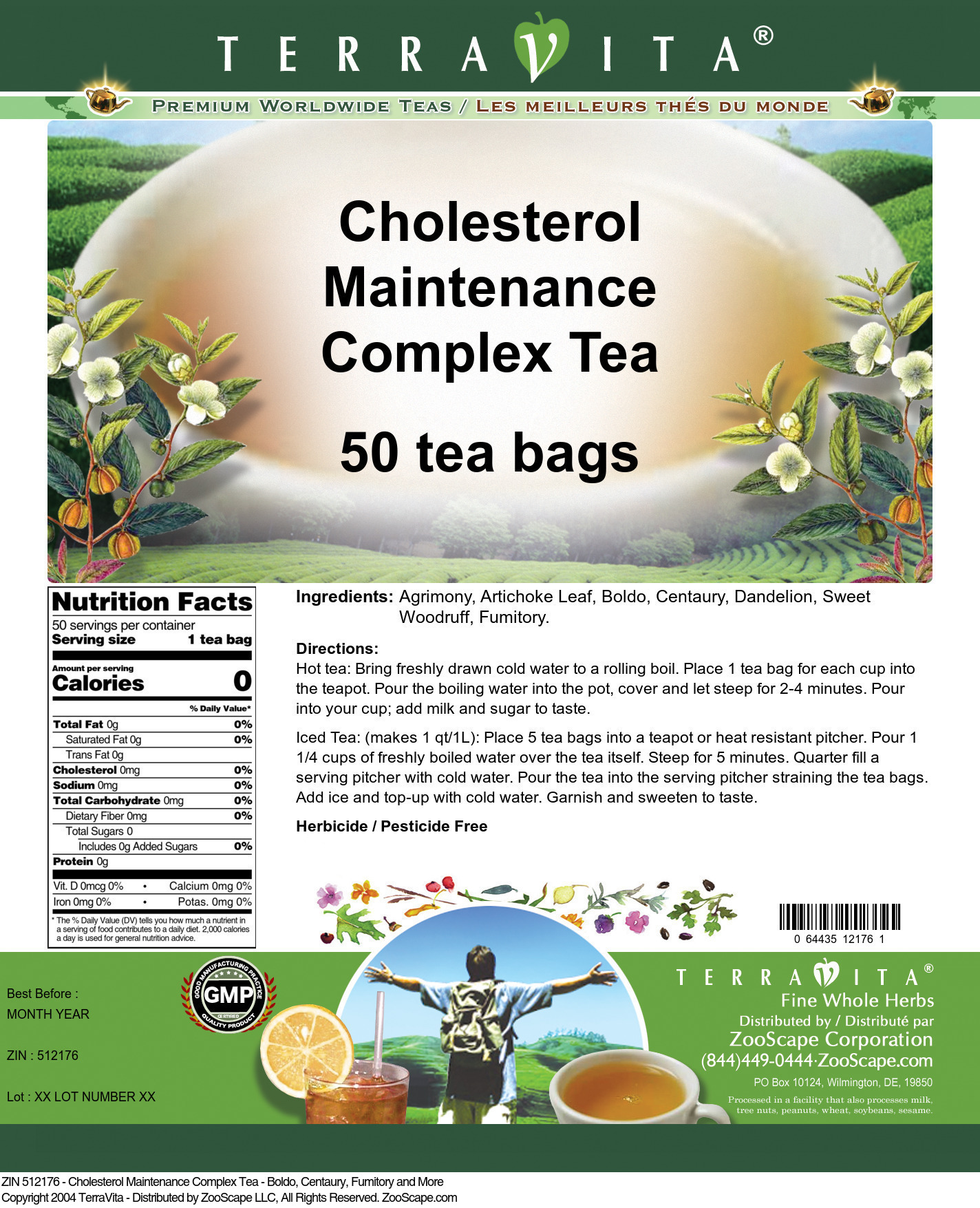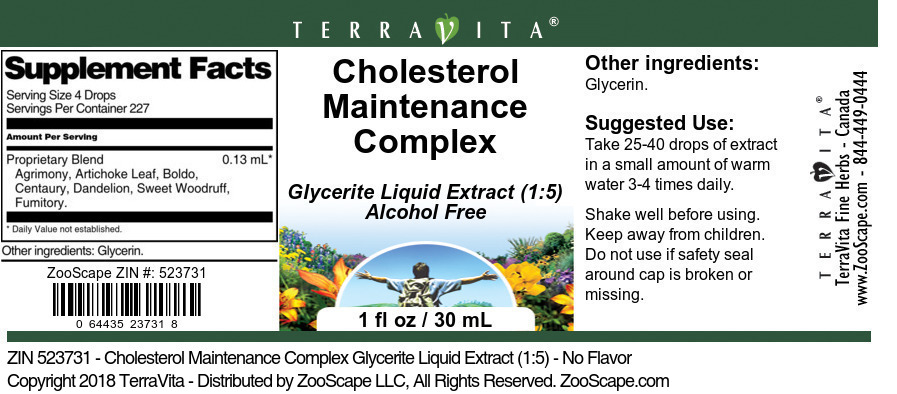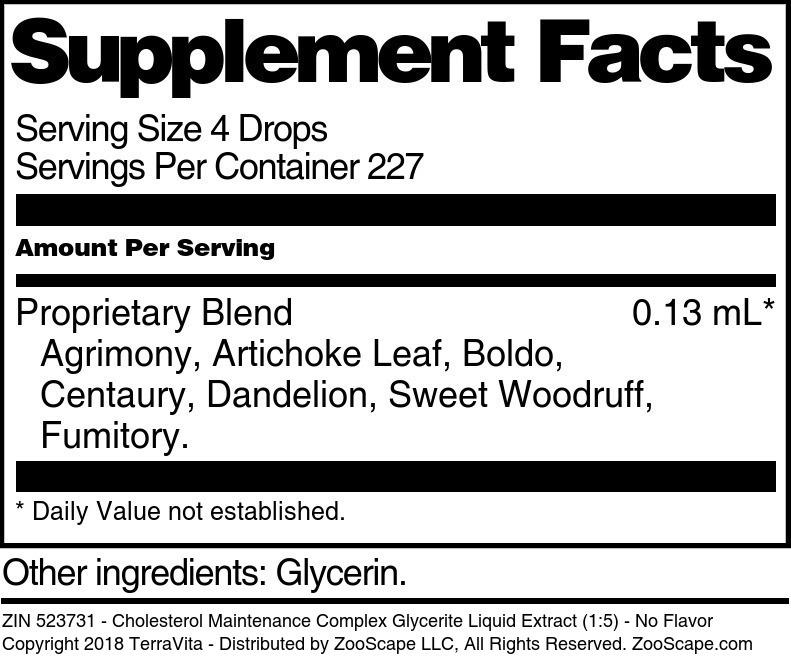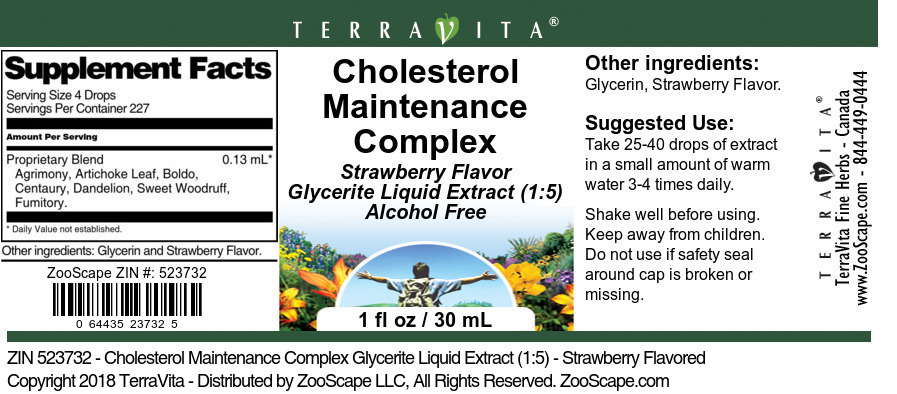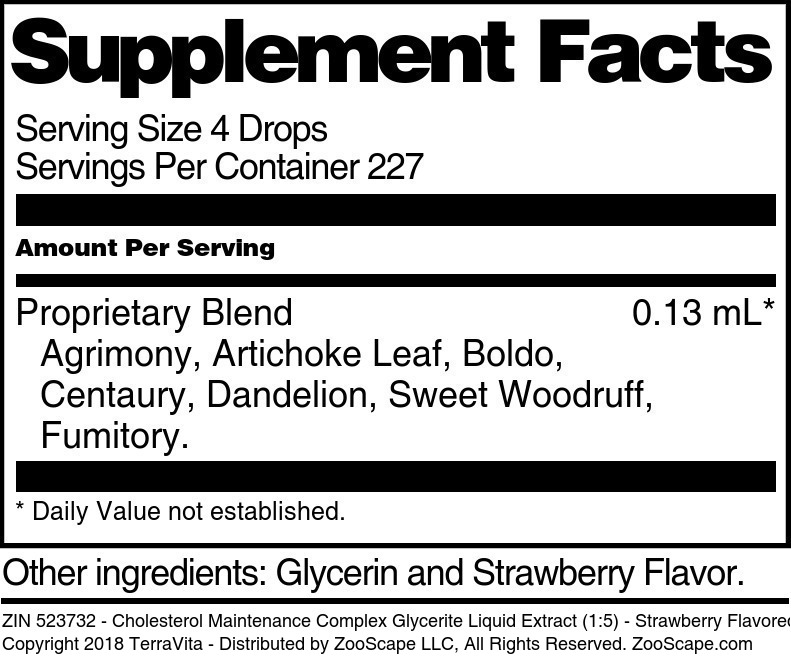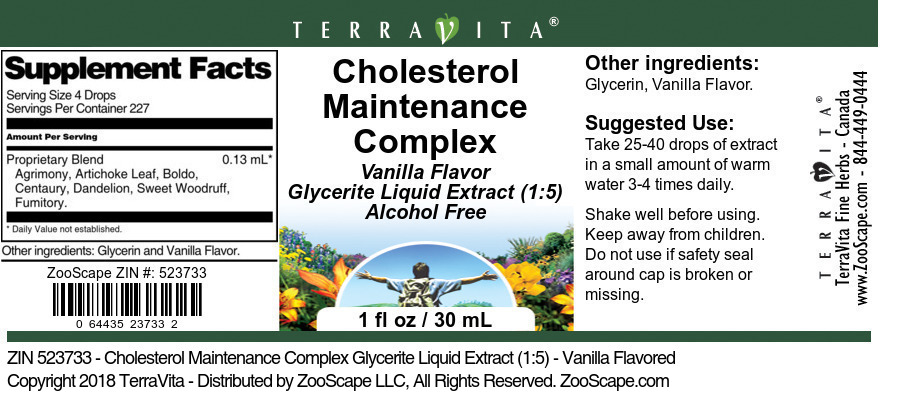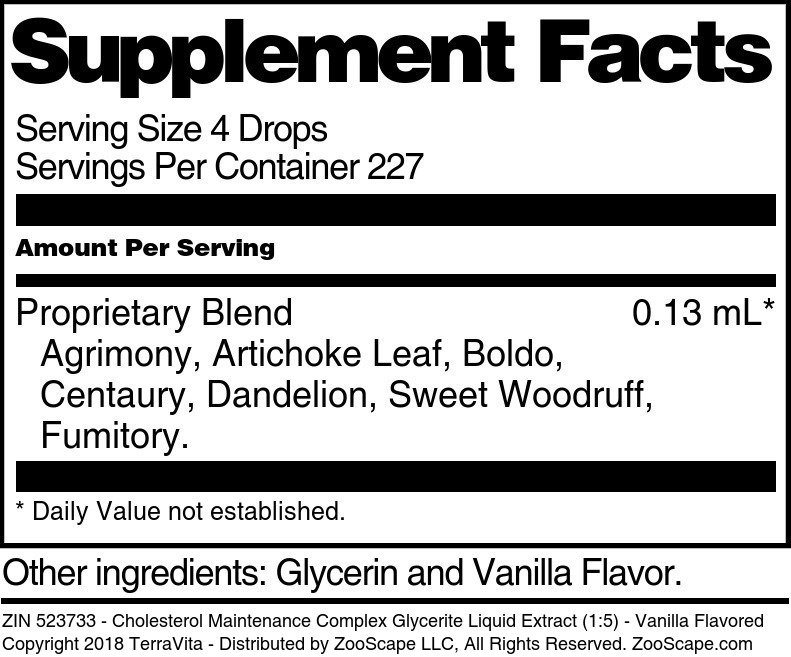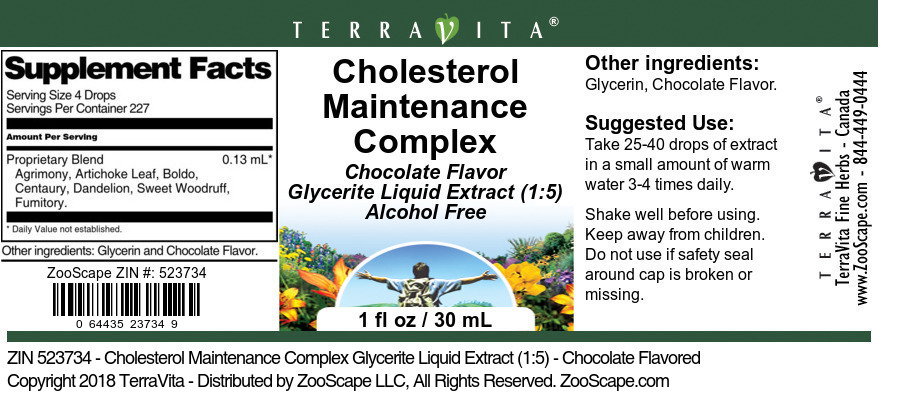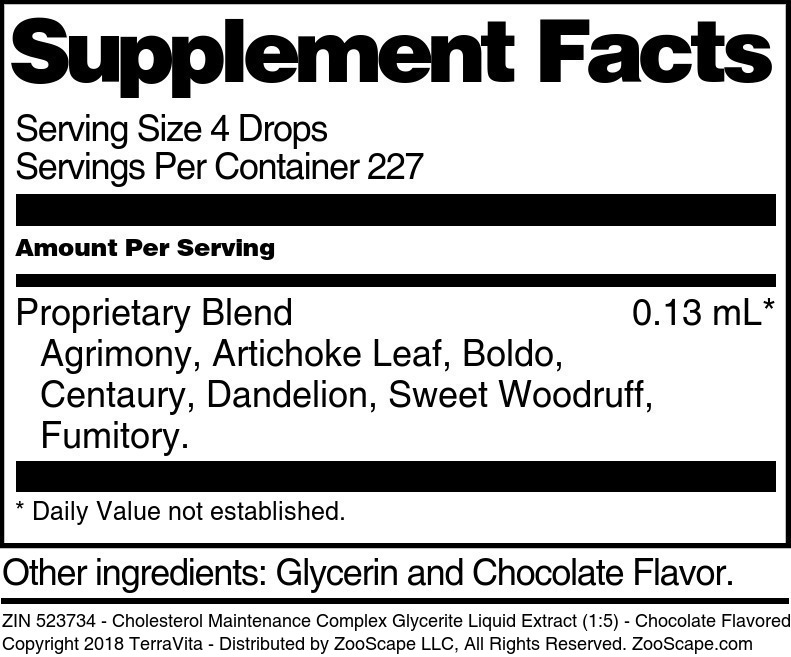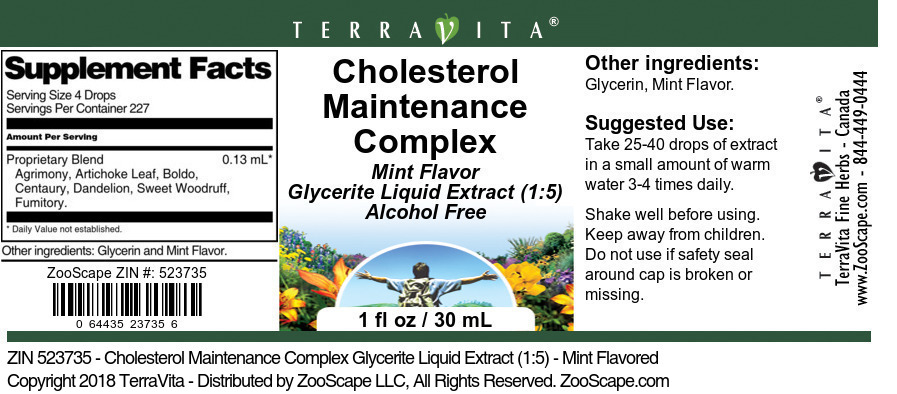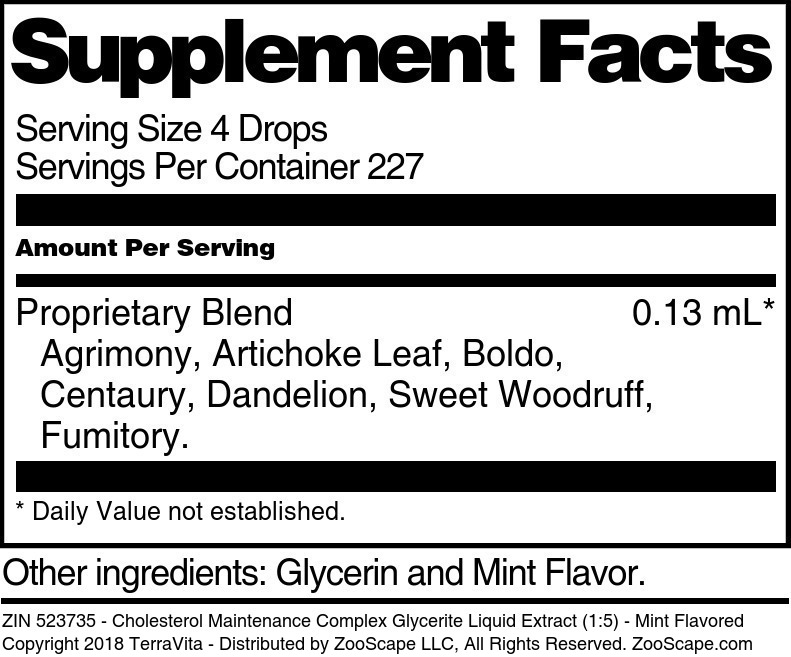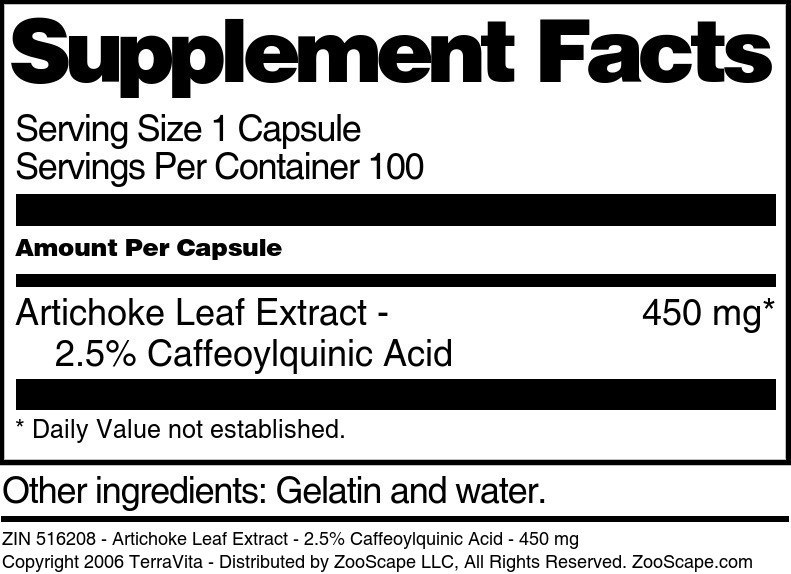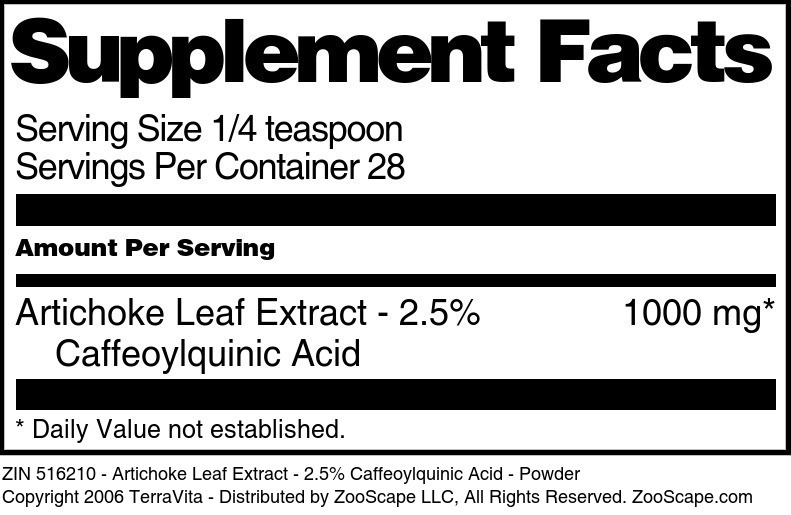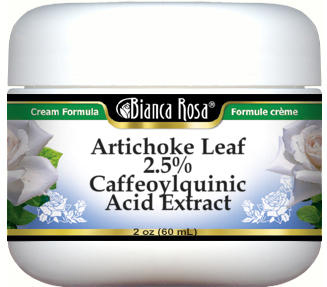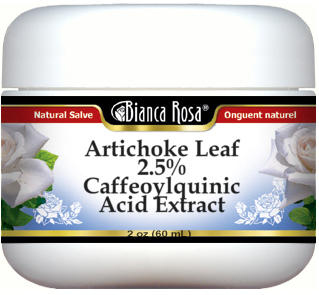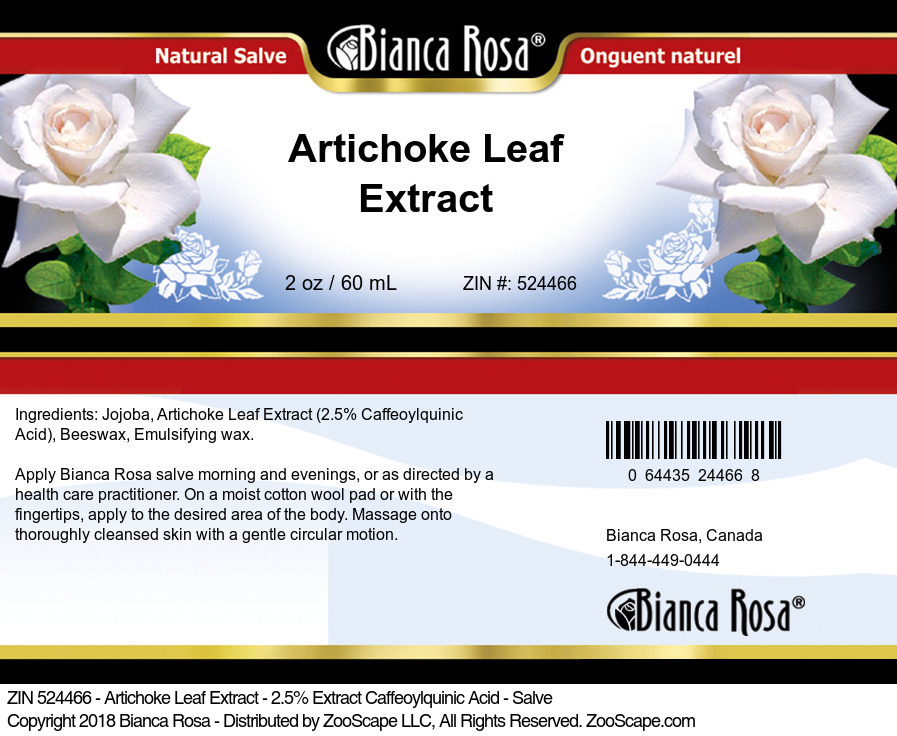Artichoke Leaf
| Images | Product Name | Size | ZIN | Price | Quantity | Add to Cart |
| Artichoke Leaf Tea | 50 tea bags | 426903 | $33.63 | |||
| 25 tea bags | 426908 | $21.51 | ||||
| Artichoke Leaf Tea (Loose) | 4 oz | 426910 | $19.36 | |||
| 8 oz | 426917 | $31.48 | ||||
| Artichoke Leaf Cream | 2 oz | 515013 | $27.73 | |||
| Artichoke Leaf - Salve Ointment | 2 oz | 515014 | $34.42 | |||
| Artichoke Leaf Glycerite Liquid Extract (1:5) | 1 oz - No Flavor | 523296 | $19.28 | |||
| 1 oz - Strawberry | 523297 | $21.32 | ||||
| 1 oz - Vanilla | 523298 | $21.32 | ||||
| 1 oz - Chocolate | 523299 | $21.32 | ||||
| 1 oz - Mint | 523300 | $21.32 | ||||
| Artichoke Leaf - 450 mg | 100 capsules | 510951 | $22.58 | |||
| Artichoke Leaf Powder | 4 oz | 510952 | $20.44 | |||
| 1 oz | 510953 | $10.20 |
Artichoke leaves contain a wide number of active constituents, including cynarin, 1,3 dicaffeoylquinic acid, 3-caffeoylquinic acid, and scolymoside. The choleretic (bile stimulating) action of the plant has been well documented in a placebo- controlled trial involving 20 healthy volunteers. After the administration of 1.92 grams of standardized artichoke extract directly into the duodenum, liver bile flow increased by 127.3% and 151.5% at the 30- and 60-minute mark, respectively. This choleretic effect has led to the popular use of artichoke extract in Europe for the potential to help support symptoms of mild dyspepsia and indigestion-particularly following a meal high in fat. In an open-label study with 553 persons suffering from non-specific digestive disorders (including dyspepsia and indigestion), 320-640 mg of a standardized artichoke extract taken three times per day was found to help support nausea, abdominal pain, constipation, and flatulence in over 70% of the study participants.
The plant can also be employed therapeutically in supporting elevated lipid levels, although with mixed results. For example, a research study in the late 1970s using cynarin at a daily amount of either 250 mg or 750 mg concluded that it did not alter cholesterol and triglyceride levels in patients with familial high cholesterol after three months of therapy. In contrast, however, a recent open-label European study (partially summarized above) suggests that artichoke is efficacious in altering lipid values. After using a standardized artichoke extract (320 mg/capsule) at an amount of one to two capsules two to three times a day for six weeks, total cholesterol and triglyceride values decreased significantly by an average of 11.5% and 12.5%, respectively. HDL-cholesterol levels did not rise significantly. The results of this study, however, must be questioned because of the lack of dietary control and the lack of a placebo group.
While scientists are not certain how artichoke leaves lower cholesterol, test tube studies have suggested that the action may be due to an inhibition of cholesterol synthesis and/or the increased reduction of cholesterol because of the plant's choleretic action. In test tube studies, the flavonoids from the artichoke (e.g., luteolin) have been shown to help avoid LDL-cholesterol oxidation. Moreover, artichoke leaves may be liver protective, as test tube results have demonstrated its effectiveness against carbon tetrachloride-induced toxicity.
Before the discovery of quinine, the Artichoke can be used as a febrifuge. The extract acts in the same way as all plant bitters and astringents; but the main cause of its value wherever it has been used - more particularly for diarrhea, especially chronic diarrhea in children which is so difficult to help support - is certainly due to the fact that it is rich in bitter extractive principles.
Artichoke (Cynara scolymus) is a large thistle-like plant is native to the regions of southern Europe, North Africa, and the Canary Islands. The artichoke is one of the world's oldest nutraceutical plants. The ancient Egyptians placed great value on the plant - it is clearly seen in drawings involving fertility and sacrifice. Moreover, this plant was used by the ancient Greeks and Romans as a digestive aid. In sixteenth-century Europe, the artichoke was favored as a food by royalty. It can also be tried to lower cholesterol, as a digestive aid, for liver protection and gallstones.
Artichoke leaves contain a wide number of active constituents, including cynarin, 1,3 dicaffeoylquinic acid, 3-caffeoylquinic acid, and scolymoside. The choleretic (bile stimulating) action of the plant has been well documented in a placebo- controlled trial involving 20 healthy volunteers. After the administration of 1.92 grams of standardized artichoke extract directly into the duodenum, liver bile flow increased by 127.3% and 151.5% at the 30- and 60-minute mark, respectively. This choleretic effect has led to the popular use of artichoke extract in Europe for the potential to help support symptoms of mild dyspepsia and indigestion-particularly following a meal high in fat. In an open-label study with 553 persons suffering from non-specific digestive disorders (including dyspepsia and indigestion), 320-640 mg of a standardized artichoke extract taken three times per day was found to help support nausea, abdominal pain, constipation, and flatulence in over 70% of the study participants.
The plant can also be employed therapeutically in supporting elevated lipid levels, although with mixed results. For example, a research study in the late 1970s using cynarin at a daily amount of either 250 mg or 750 mg concluded that it did not alter cholesterol and triglyceride levels in patients with familial high cholesterol after three months of therapy. In contrast, however, a recent open-label European study (partially summarized above) suggests that artichoke is efficacious in altering lipid values. After using a standardized artichoke extract (320 mg/capsule) at an amount of one to two capsules two to three times a day for six weeks, total cholesterol and triglyceride values decreased significantly by an average of 11.5% and 12.5%, respectively. HDL-cholesterol levels did not rise significantly. The results of this study, however, must be questioned because of the lack of dietary control and the lack of a placebo group.
While scientists are not certain how artichoke leaves lower cholesterol, test tube studies have suggested that the action may be due to an inhibition of cholesterol synthesis and/or the increased reduction of cholesterol because of the plant's choleretic action. In test tube studies, the flavonoids from the artichoke (e.g., luteolin) have been shown to help avoid LDL-cholesterol oxidation. Moreover, artichoke leaves may be liver protective, as test tube results have demonstrated its effectiveness against carbon tetrachloride-induced toxicity.
Artichoke leaf can be used to help support liver and gallbladder problems, helping lower cholesterol, weight gain, tired limbs, and additionally it is used in small doses before meals to address digestive weakness. Artichoke contains an acid substance called cinarin, along with inulin, enzymes, tannin, and sugars. Pharmacological actions include hepatic, biliary fluidifying, cholagogic, diuretic, digestive, anti-cholesterol, and fat reducing. Artichoke originates from the Mediterranean area, where it is found wild on the island of Crete. It has a long traditional usage as a general detoxifier especially for liver issues.
Globe Artichoke
Cynara scolymus L.
Family: Asteraceae.
Other Names: Artichaut (French); Artischocke (German); carciofo (Italian); alearrhofa, alcachofera (Spanish).
Description: Globe artichoke is a robust perennial herb of up to 2 m in height with sturdy flowering stems arising each year. The large, compound leaves are silvery-grey in colour and the conspicuous flower heads have green bracts and purple florets.
Origin: Europe (thought to be an old cultigen); now widely cultivated.
Parts Used: Fresh or dried leaves (Cynarae folium).
Therapeutic Category: Choleretic, liver protectant, lipid lowering.
Active Ingredients: Artichoke leaves contain numerous phenolic acids, including caffeic acid, monocaffeoylquinic acid derivatives (such as chlorogenic and neochlorogenic acid) and dicaffeoylquinic acid derivatives such as cynarin (1,5-di-O-caffeoylquinic acid). They also contain a bitter sesquiterpene lactone (up to 4%), cynaropicrin. In addition, various flavonoids (rutin, luteolin) and sesquiterpenes (especially caryophyllene and beta-selinene) are present.
Health Effects: Hepatoprotective properties were demonstrated in isolated liver cells. The choleretic and hepatoprotective properties are attributed to cynarin, to chlorogenic and neochlorogenic acid. Cynarin is thought to be responsible for lowering the levels of triglycerides and cholesterol in blood. Clinical studies have shown definite choleretic and lipid lowering effects of leaf extracts (it could therefore play a role in supporting arteriosclerosis). Cyanopicrin, as bitter substance and tonic, may be involved in the improvement of appetite and digestion.
Notes: The involucre bracts and receptacle of the young flower heads are eaten as a popular vegetable. It is interesting to note that the bitter substance cyanopicrin is found in the leaves and not in the fully mature flower heads.
Status: Traditional health; Pharm.; Comm. E+ (dyspeptic problems only).
Preparation and Dosage: A daily dose of 6 g dose of the product (or an equivalent dose in preparations) is recommended.
Bianca Rosa is an exclusive line of premium-quality natural products sourced from only the finest and purest ingredients from around the world. Bianca Rosa is hallmarked by the highest possible standards of purity, stability and freshness. All Bianca Rosa products are prepared with the highest level of quality control, from the raw materials used through the entire manufacturing process, up to and including the moment that the finished product is sealed for freshness and shipped to you. Our highest possible standards backed by our personal guarantee.
Bianca Rosa makes all products as affordable as possible and we are constantly searching the market to maintain our affordability and to look for new ways to serve you. Bianca Rosa has been a trusted household name for many families throughout the world since the 1990s. Bianca Rosa is packed in tamper-proof, recyclable containers.
ZooScape is proud to be the exclusive distributor of all Bianca Rosa products, including creams, salves and oils in the United States, Canada and around the world. Please direct all wholesale and bulk inquiries to 1-844-449-0444.
TerraVita is an exclusive line of premium-quality, natural source products that use only the finest, purest and most potent ingredients found around the world. TerraVita is hallmarked by the highest possible standards of purity, potency, stability and freshness. All of our products are prepared with the highest elements of quality control, from raw materials through the entire manufacturing process, up to and including the moment that the bottles or bags are sealed for freshness and shipped out to you. Our highest possible standards are certified by independent laboratories and backed by our personal guarantee.
TerraVita exists to meet and ensure your family's health and wellness without the harmful effects or chemicals and prescription medications. We strive to make all of our products affordable and reliable and are constantly searching the market to maintain our affordability and to look for new ways to serve you and the ones you love. TerraVita has become a trusted household name for many families and can bring you and yours the very best herbal supplements, blends, teas and spices that are on the market today.
TerraVita is packed in tamper-proof, food-grade, recyclable containers.
ZooScape is proud to be the exclusive distributor of TerraVita teas, herbs and supplements in the United States, Canada and around the world. Please direct all wholesale and bulk inquiries to 1-844-449-0444.
The TerraVita Premium Collection uses only the finest, purest and most potent plant extracts from around the world.
The TerraVita Premium Collection is hallmarked by the highest possible standards of purity, potency, stability and freshness. Our highest possible standards are certified by independent laboratories and backed by our personal guarantee.
The TerraVita Premium Collection is packed in tamper-proof, food-grade, recyclable containers.
ZooScape is proud to be the exclusive distributor of TerraVita teas, herbs and supplements in the United States, Canada and around the world. Please direct all wholesale and bulk inquiries to 1-844-449-0444.
These statements have not been evaluated by the Food and Drug Administration (FDA). Products are intended to support general well being and are not intended to treat, diagnose, prevent, or cure any condition or disease.
Cellulite Formula
| Images | Product Name | Size | ZIN | Price | Quantity | Add to Cart |
| Cellulite Formula - Artichoke, Birch and Bladderwrack - 450 mg | 100 capsules | 511314 | $23.86 | |||
| Cellulite Formula Powder - Artichoke, Birch and Bladderwrack | 4 oz | 511315 | $22.55 | |||
| 1 oz | 511316 | $10.78 | ||||
| Cellulite Formula Cream | 2 oz | 524311 | $21.61 | |||
| Cellulite Formula Salve | 2 oz | 524312 | $23.70 | |||
| Cellulite Formula Tea (Loose) - Artichoke, Birch and Bladderwrack | 4 oz | 511317 | $20.38 | |||
| 8 oz | 511318 | $33.36 | ||||
| Cellulite Formula Tea - Artichoke, Birch and Bladderwrack | 25 tea bags | 511319 | $22.16 | |||
| 50 tea bags | 511320 | $34.80 | ||||
| Cellulite Formula Glycerite Liquid Extract (1:5) | 1 oz - No Flavor | 523721 | $20.16 | |||
| 1 oz - Strawberry | 523722 | $22.29 | ||||
| 1 oz - Vanilla | 523723 | $22.29 | ||||
| 1 oz - Chocolate | 523724 | $22.29 | ||||
| 1 oz - Mint | 523725 | $22.29 |
TerraVita exists to meet and ensure your family's health and wellness without the harmful effects or chemicals and prescription medications. We strive to make all of our products affordable and reliable and are constantly searching the market to maintain our affordability and to look for new ways to serve you and the ones you love. TerraVita has become a trusted household name for many families and can bring you and yours the very best herbal supplements, blends, teas and spices that are on the market today.
TerraVita is packed in tamper-proof, food-grade, recyclable containers.
ZooScape is proud to be the exclusive distributor of TerraVita teas, herbs and supplements in the United States, Canada and around the world. Please direct all wholesale and bulk inquiries to 1-844-449-0444.
Bianca Rosa is an exclusive line of premium-quality natural products sourced from only the finest and purest ingredients from around the world. Bianca Rosa is hallmarked by the highest possible standards of purity, stability and freshness. All Bianca Rosa products are prepared with the highest level of quality control, from the raw materials used through the entire manufacturing process, up to and including the moment that the finished product is sealed for freshness and shipped to you. Our highest possible standards backed by our personal guarantee.
Bianca Rosa makes all products as affordable as possible and we are constantly searching the market to maintain our affordability and to look for new ways to serve you. Bianca Rosa has been a trusted household name for many families throughout the world since the 1990s. Bianca Rosa is packed in tamper-proof, recyclable containers.
ZooScape is proud to be the exclusive distributor of all Bianca Rosa products, including creams, salves and oils in the United States, Canada and around the world. Please direct all wholesale and bulk inquiries to 1-844-449-0444.
TerraVita is an exclusive line of premium-quality, natural source products that use only the finest, purest and most potent ingredients found around the world. TerraVita is hallmarked by the highest possible standards of purity, potency, stability and freshness. All of our products are prepared with the highest elements of quality control, from raw materials through the entire manufacturing process, up to and including the moment that the bottles or bags are sealed for freshness and shipped out to you. Our highest possible standards are certified by independent laboratories and backed by our personal guarantee.
TerraVita exists to meet and ensure your family's health and wellness without the harmful effects or chemicals and prescription medications. We strive to make all of our products affordable and reliable and are constantly searching the market to maintain our affordability and to look for new ways to serve you and the ones you love. TerraVita has become a trusted household name for many families and can bring you and yours the very best herbal supplements, blends, teas and spices that are on the market today.
ZooScape is proud to be the exclusive distributor of TerraVita teas, herbs and supplements in the United States, Canada and around the world. Please direct all wholesale and bulk inquiries to 1-844-449-0444.
These statements have not been evaluated by the Food and Drug Administration (FDA). Products are intended to support general well being and are not intended to treat, diagnose, prevent, or cure any condition or disease.
High Cholesterol Complex
| Images | Product Name | Size | ZIN | Price | Quantity | Add to Cart |
| High Cholesterol Complex Tea (Loose) - Guggul Gum and Artichoke Leaf | 4 oz | 511111 | $60.98 | |||
| 8 oz | 511112 | $83.36 | ||||
| High Cholesterol Complex Tea - Guggul Gum and Artichoke Leaf | 25 tea bags | 511113 | $39.17 | |||
| 50 tea bags | 511114 | $49.40 | ||||
| High Cholesterol Complex Glycerite Liquid Extract (1:5) | 1 oz - No Flavor | 523576 | $20.16 | |||
| 1 oz - Strawberry | 523577 | $22.29 | ||||
| 1 oz - Vanilla | 523578 | $22.29 | ||||
| 1 oz - Chocolate | 523579 | $22.29 | ||||
| 1 oz - Mint | 523580 | $22.29 | ||||
| High Cholesterol Complex - Guggulipid Extract and Artichoke Leaf Extract - 450 mg | 100 capsules | 511108 | $32.22 | |||
| High Cholesterol Complex Powder - Guggulipid Extract and Artichoke Leaf Extract | 4 oz | 511109 | $36.34 | |||
| 1 oz | 511110 | $14.65 | ||||
| 4 oz | 511109 | $36.34 |
Artichoke extracts have also been shown to maintain cholesterol in a healthy range in both humans and animals. In a double-blind German study from 2000 involving 143 patients who had high cholesterol, artichoke leaf lowered total cholesterol 18.5% as compared to 8.6% in the placebo group; LDL cholesterol by 23% vs. 6%; and LDL-to-HDL ratios by 20% vs. 7%. In a follow-up study with volunteers who already had healthy cholesterol, it had no effect.
TerraVita exists to meet and ensure your family's health and wellness without the harmful effects or chemicals and prescription medications. We strive to make all of our products affordable and reliable and are constantly searching the market to maintain our affordability and to look for new ways to serve you and the ones you love. TerraVita has become a trusted household name for many families and can bring you and yours the very best herbal supplements, blends, teas and spices that are on the market today.
ZooScape is proud to be the exclusive distributor of TerraVita teas, herbs and supplements in the United States, Canada and around the world. Please direct all wholesale and bulk inquiries to 1-844-449-0444.
TerraVita is an exclusive line of premium-quality, natural source products that use only the finest, purest and most potent ingredients found around the world. TerraVita is hallmarked by the highest possible standards of purity, potency, stability and freshness. All of our products are prepared with the highest elements of quality control, from raw materials through the entire manufacturing process, up to and including the moment that the bottles or bags are sealed for freshness and shipped out to you. Our highest possible standards are certified by independent laboratories and backed by our personal guarantee.
TerraVita exists to meet and ensure your family's health and wellness without the harmful effects or chemicals and prescription medications. We strive to make all of our products affordable and reliable and are constantly searching the market to maintain our affordability and to look for new ways to serve you and the ones you love. TerraVita has become a trusted household name for many families and can bring you and yours the very best herbal supplements, blends, teas and spices that are on the market today.
TerraVita is packed in tamper-proof, food-grade, recyclable containers.
ZooScape is proud to be the exclusive distributor of TerraVita teas, herbs and supplements in the United States, Canada and around the world. Please direct all wholesale and bulk inquiries to 1-844-449-0444.
These statements have not been evaluated by the Food and Drug Administration (FDA). Products are intended to support general well being and are not intended to treat, diagnose, prevent, or cure any condition or disease.
Constipation Formula
| Images | Product Name | Size | ZIN | Price | Quantity | Add to Cart |
| Constipation Formula Tea (Loose) - Artichoke, Black Radish and Boldo | 4 oz | 512139 | $20.57 | |||
| 8 oz | 512140 | $33.71 | ||||
| Constipation Formula Tea - Artichoke, Black Radish and Boldo | 25 tea bags | 512141 | $22.29 | |||
| 50 tea bags | 512142 | $35.02 | ||||
| Constipation Formula Glycerite Liquid Extract (1:5) | 1 oz - No Flavor | 523766 | $20.16 | |||
| 1 oz - Strawberry | 523767 | $22.29 | ||||
| 1 oz - Vanilla | 523768 | $22.29 | ||||
| 1 oz - Chocolate | 523769 | $22.29 | ||||
| 1 oz - Mint | 523770 | $22.29 | ||||
| Constipation Formula - Artichoke, Black Radish and Boldo - 450 mg | 100 capsules | 512136 | $23.02 | |||
| Constipation Formula Powder - Artichoke, Black Radish and Boldo | 4 oz | 512137 | $21.18 | |||
| 1 oz | 512138 | $10.40 |
TerraVita exists to meet and ensure your family's health and wellness without the harmful effects or chemicals and prescription medications. We strive to make all of our products affordable and reliable and are constantly searching the market to maintain our affordability and to look for new ways to serve you and the ones you love. TerraVita has become a trusted household name for many families and can bring you and yours the very best herbal supplements, blends, teas and spices that are on the market today.
ZooScape is proud to be the exclusive distributor of TerraVita teas, herbs and supplements in the United States, Canada and around the world. Please direct all wholesale and bulk inquiries to 1-844-449-0444.
TerraVita is an exclusive line of premium-quality, natural source products that use only the finest, purest and most potent ingredients found around the world. TerraVita is hallmarked by the highest possible standards of purity, potency, stability and freshness. All of our products are prepared with the highest elements of quality control, from raw materials through the entire manufacturing process, up to and including the moment that the bottles or bags are sealed for freshness and shipped out to you. Our highest possible standards are certified by independent laboratories and backed by our personal guarantee.
TerraVita exists to meet and ensure your family's health and wellness without the harmful effects or chemicals and prescription medications. We strive to make all of our products affordable and reliable and are constantly searching the market to maintain our affordability and to look for new ways to serve you and the ones you love. TerraVita has become a trusted household name for many families and can bring you and yours the very best herbal supplements, blends, teas and spices that are on the market today.
TerraVita is packed in tamper-proof, food-grade, recyclable containers.
ZooScape is proud to be the exclusive distributor of TerraVita teas, herbs and supplements in the United States, Canada and around the world. Please direct all wholesale and bulk inquiries to 1-844-449-0444.
These statements have not been evaluated by the Food and Drug Administration (FDA). Products are intended to support general well being and are not intended to treat, diagnose, prevent, or cure any condition or disease.
Cholesterol Maintenance Complex
| Images | Product Name | Size | ZIN | Price | Quantity | Add to Cart |
| Cholesterol Maintenance Complex - Boldo, Centaury, Fumitory and More - 450 mg | 100 capsules | 512170 | $22.05 | |||
| Cholesterol Maintenance Complex Powder - Boldo, Centaury, Fumitory and More | 4 oz | 512171 | $25.43 | |||
| 1 oz | 512172 | $13.72 | ||||
| Cholesterol Maintenance Complex Tea (Loose) - Boldo, Centaury, Fumitory and More | 4 oz | 512173 | $16.30 | |||
| 8 oz | 512174 | $24.28 | ||||
| Cholesterol Maintenance Complex Tea - Boldo, Centaury, Fumitory and More | 25 tea bags | 512175 | $16.41 | |||
| 50 tea bags | 512176 | $24.80 | ||||
| Cholesterol Maintenance Complex Glycerite Liquid Extract (1:5) | 1 oz - No Flavor | 523731 | $20.16 | |||
| 1 oz - Strawberry | 523732 | $22.29 | ||||
| 1 oz - Vanilla | 523733 | $22.29 | ||||
| 1 oz - Chocolate | 523734 | $22.29 | ||||
| 1 oz - Mint | 523735 | $22.29 |
TerraVita exists to meet and ensure your family's health and wellness without the harmful effects or chemicals and prescription medications. We strive to make all of our products affordable and reliable and are constantly searching the market to maintain our affordability and to look for new ways to serve you and the ones you love. TerraVita has become a trusted household name for many families and can bring you and yours the very best herbal supplements, blends, teas and spices that are on the market today.
TerraVita is packed in tamper-proof, food-grade, recyclable containers.
ZooScape is proud to be the exclusive distributor of TerraVita teas, herbs and supplements in the United States, Canada and around the world. Please direct all wholesale and bulk inquiries to 1-844-449-0444.
TerraVita is an exclusive line of premium-quality, natural source products that use only the finest, purest and most potent ingredients found around the world. TerraVita is hallmarked by the highest possible standards of purity, potency, stability and freshness. All of our products are prepared with the highest elements of quality control, from raw materials through the entire manufacturing process, up to and including the moment that the bottles or bags are sealed for freshness and shipped out to you. Our highest possible standards are certified by independent laboratories and backed by our personal guarantee.
TerraVita exists to meet and ensure your family's health and wellness without the harmful effects or chemicals and prescription medications. We strive to make all of our products affordable and reliable and are constantly searching the market to maintain our affordability and to look for new ways to serve you and the ones you love. TerraVita has become a trusted household name for many families and can bring you and yours the very best herbal supplements, blends, teas and spices that are on the market today.
ZooScape is proud to be the exclusive distributor of TerraVita teas, herbs and supplements in the United States, Canada and around the world. Please direct all wholesale and bulk inquiries to 1-844-449-0444.
These statements have not been evaluated by the Food and Drug Administration (FDA). Products are intended to support general well being and are not intended to treat, diagnose, prevent, or cure any condition or disease.
Artichoke Leaf Extract - 2.5% Caffeoylquinic Acid
| Images | Product Name | Size | ZIN | Price | Quantity | Add to Cart |
| Artichoke Leaf Extract - 2.5% Caffeoylquinic Acid - 450 mg | 100 capsules | 516208 | $32.97 | |||
| Artichoke Leaf Extract - 2.5% Caffeoylquinic Acid - Powder | 4 oz | 516209 | $37.60 | |||
| 1 oz | 516210 | $15.00 | ||||
| Artichoke Leaf Extract - 2.5% Caffeoylquinic Acid - Cream | 2 oz | 524465 | $54.28 | |||
| Artichoke Leaf Extract - 2.5% Caffeoylquinic Acid - Salve | 2 oz | 524466 | $59.55 |
Cynara scolytnus L. (Compositae), commonly called the Globe Artichoke, Artichoke and Cynara; in French, Artichaut; in German, Artischocke and Artischockenblätter.
Source
Artichokes originally came from the Mediterranean, but are now grown in Europe and America. The artichoke is a member of the family Compositae, along with other common herbal supportives such as árnica, German chamomile, feverfew, tansy, and yarrow.
History
Dried powdered artichoke, containing fragments of the leaves, has traditionally been used to help support liver problem. Herbalists classify artichoke (along with boldo leaf and fumitory, chicory, thistle, and mugwort) as a "cholagogue," substances that can make the gallbladder contract and release bile. The human body produces hormones capable of doing just that, but it is not clear whether any of the herbal products recommended as "cholagogues" really have that ability. Extracts of the powdered plant contain large amounts of tannin and numerous enzymes. In the past, extracts of artichoke were used to curdle milk for cheese-making.
Traditional Support Uses
During the 17th and 18th centuries, right side abdominal discomfort, for whatever cause, was usually blamed on a defective gallbladder. Thus the interest in "cholagogues" substances to promote bile flow and normalize gallbladder function.
Commission E Recommendations
Artichoke can be used to help support dyspepsia (upset stomach).
Possible Effects
Many of the traditional claims may well be true. Liver cells grown in test tubes and exposed to carbon tetracfrloride (a cleaning fluid that causes liver damage in humans) quickly die, but two of the organic acids contained in artichokes, caffeic and quinic acids, avoid damage from occurring. The flavonoids and polyphenols contained in artichoke leaves are potent antioxidants, and are being investigated as water-soluble protectors against lipid peroxidation and other free radical-mediated cell injury. Claims about the ability to increase bile flow may also be true. When artichoke extract was introduced directly into the gallbladder of patients suspected of having gallbladder issues (via a tube passed through the intestines), compared to placebo, there was a very significant increase in bile flow.
Other alleged actions, including artichoke's effectiveness as a diuretic, have been harder to prove, and the therapeutic value of frequently used lipid-lowering agents, such as the essential phospholipids (EPL), pyridoxal-phosphate (PP) and cynarin are still a matter of debate. Clinical trials with EPL, PP and cynarin in patients with high cholesterol have yielded inconclusive results, but in the test tube, at least, cynarin has impressive antioxidant and hepatoprotective actions.
Dosage
The typical dose for extracts and liquid extracts is 300 to 1,200 milligrams per day. When whole powdered artichoke is being used, the dose may range from 1.5 to 6 grams per day.
TerraVita exists to meet and ensure your family's health and wellness without the harmful effects or chemicals and prescription medications. We strive to make all of our products affordable and reliable and are constantly searching the market to maintain our affordability and to look for new ways to serve you and the ones you love. TerraVita has become a trusted household name for many families and can bring you and yours the very best herbal supplements, blends, teas and spices that are on the market today.
TerraVita is packed in tamper-proof, food-grade, recyclable containers.
ZooScape is proud to be the exclusive distributor of TerraVita teas, herbs and supplements in the United States, Canada and around the world. Please direct all wholesale and bulk inquiries to 1-844-449-0444.
Bianca Rosa is an exclusive line of premium-quality natural products sourced from only the finest and purest ingredients from around the world. Bianca Rosa is hallmarked by the highest possible standards of purity, stability and freshness. All Bianca Rosa products are prepared with the highest level of quality control, from the raw materials used through the entire manufacturing process, up to and including the moment that the finished product is sealed for freshness and shipped to you. Our highest possible standards backed by our personal guarantee.
Bianca Rosa makes all products as affordable as possible and we are constantly searching the market to maintain our affordability and to look for new ways to serve you. Bianca Rosa has been a trusted household name for many families throughout the world since the 1990s. Bianca Rosa is packed in tamper-proof, recyclable containers.
ZooScape is proud to be the exclusive distributor of all Bianca Rosa products, including creams, salves and oils in the United States, Canada and around the world. Please direct all wholesale and bulk inquiries to 1-844-449-0444.
These statements have not been evaluated by the Food and Drug Administration (FDA). Products are intended to support general well being and are not intended to treat, diagnose, prevent, or cure any condition or disease.
